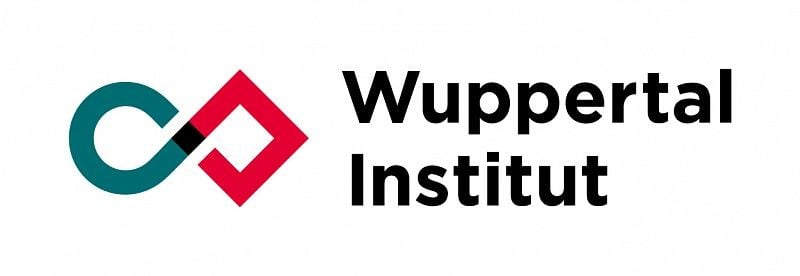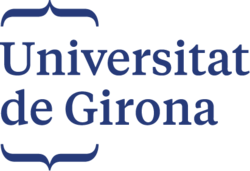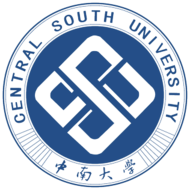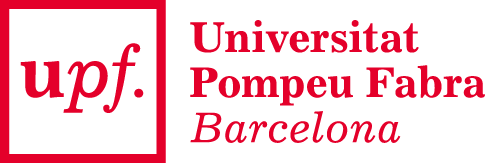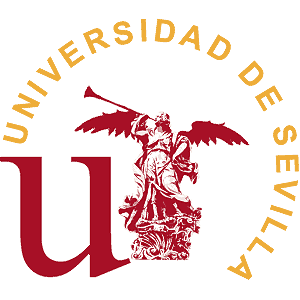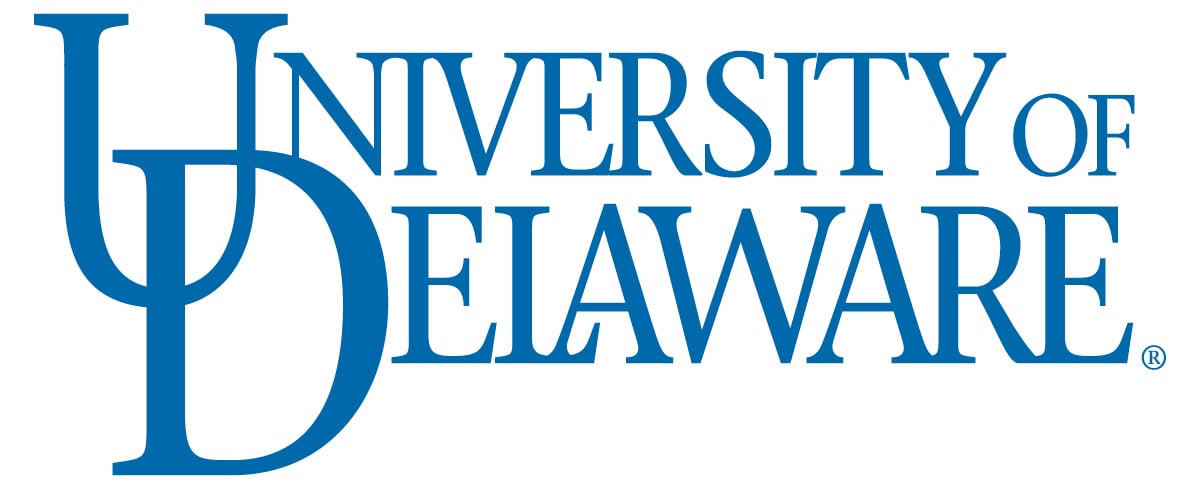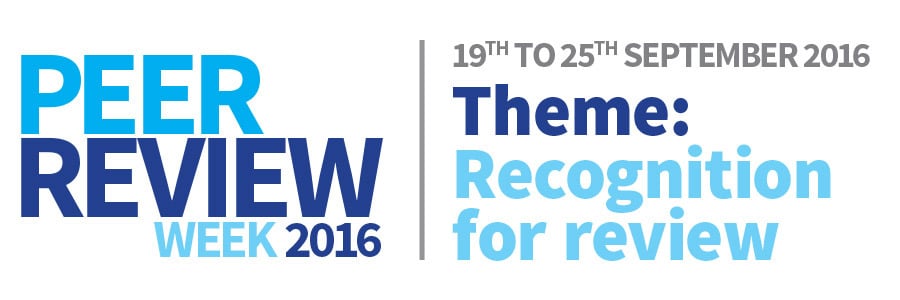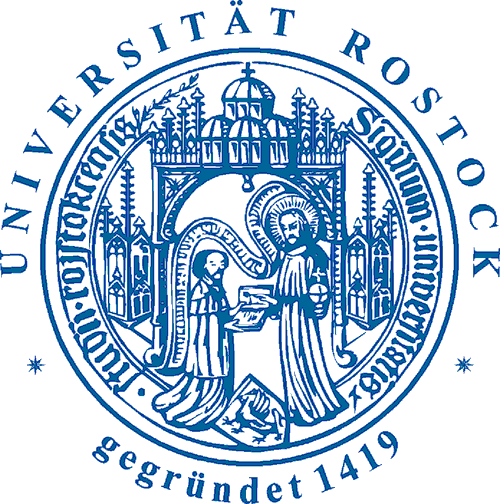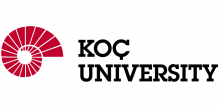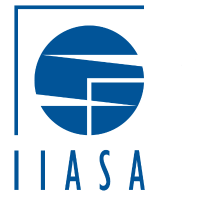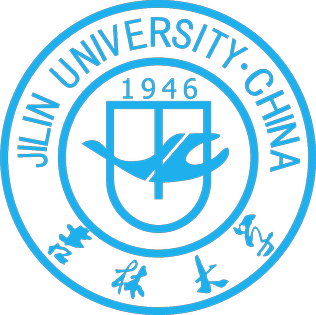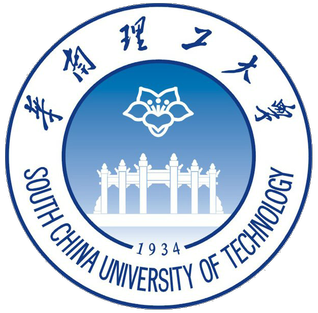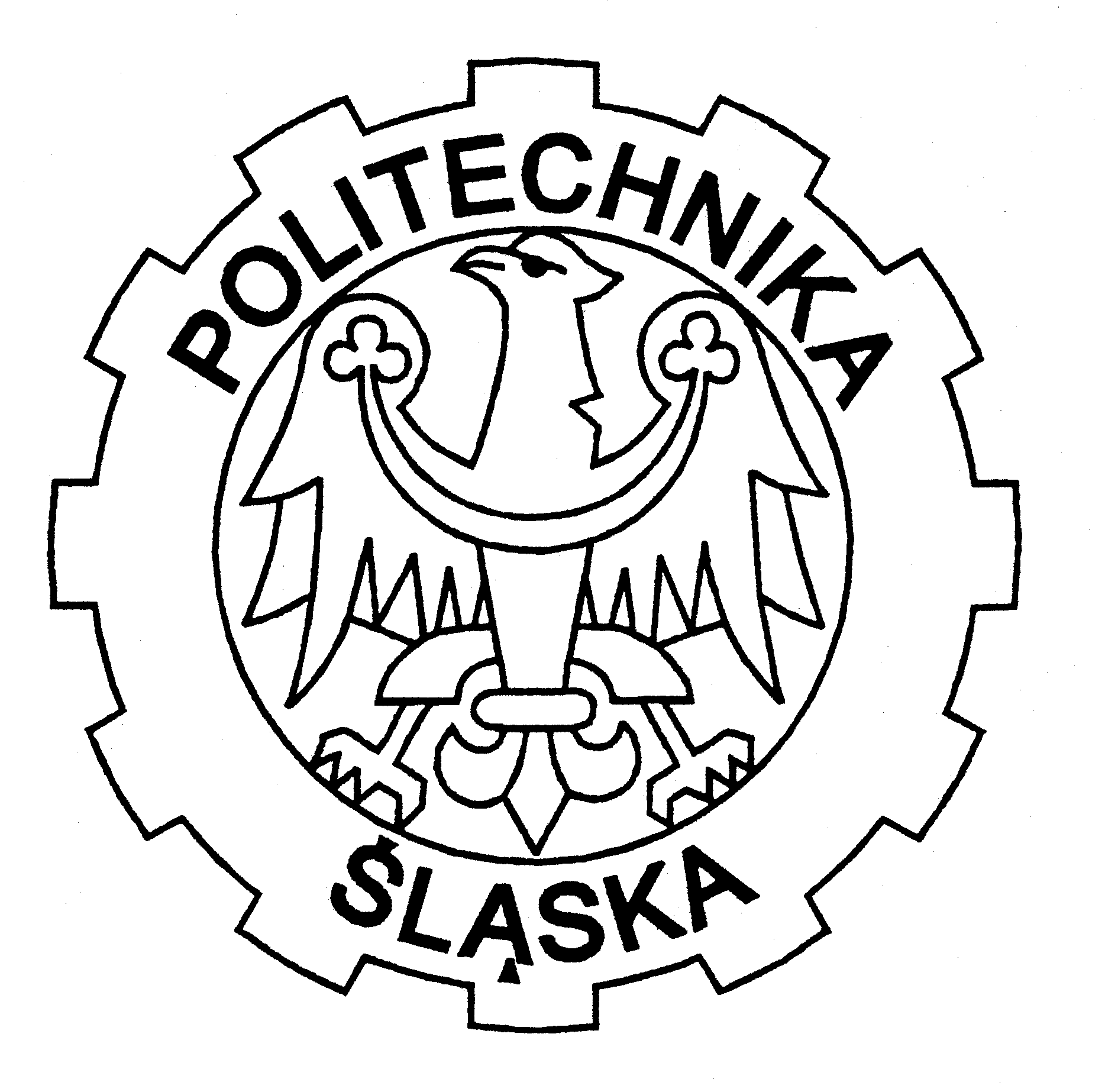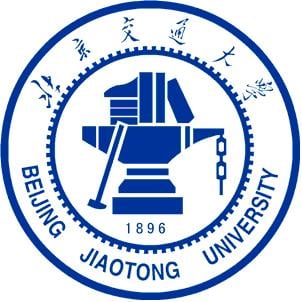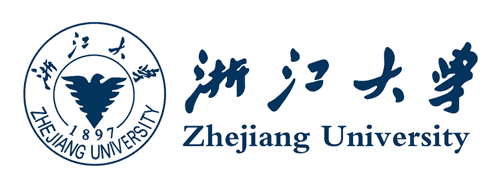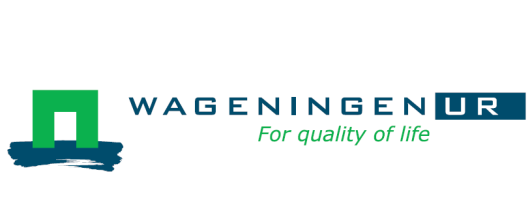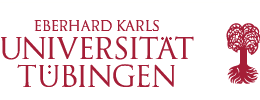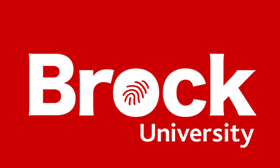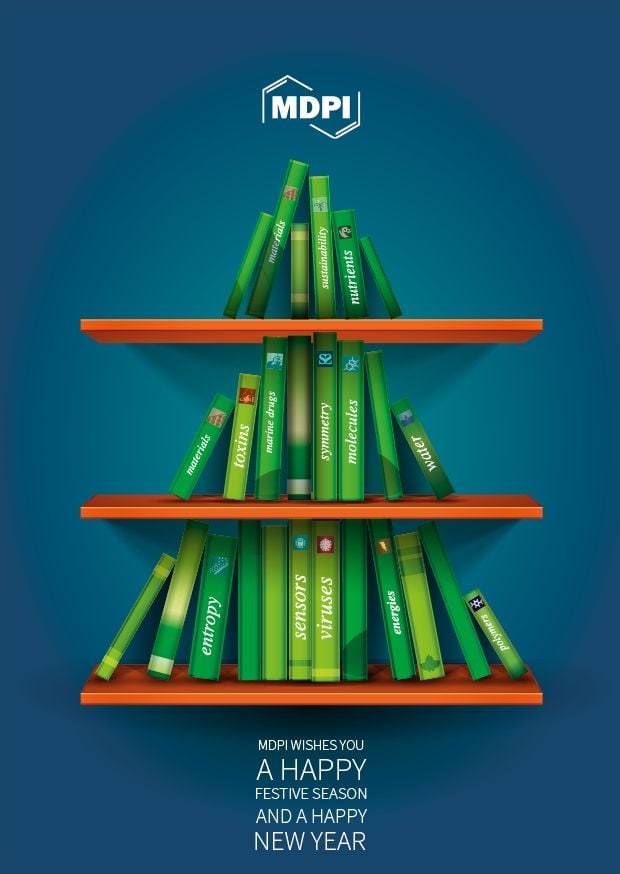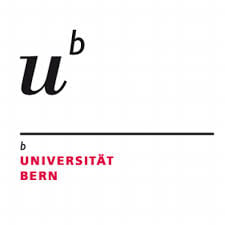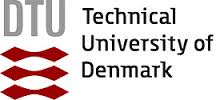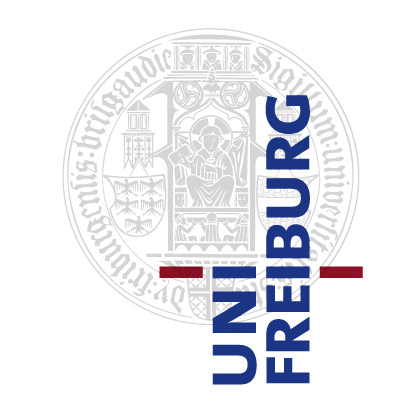
Journal Menu
► ▼ Journal Menu-
- Bioengineering Home
- Aims & Scope
- Editorial Board
- Reviewer Board
- Topical Advisory Panel
- Instructions for Authors
- Special Issues
- Topics
- Sections & Collections
- Article Processing Charge
- Indexing & Archiving
- Editor’s Choice Articles
- Most Cited & Viewed
- Journal Statistics
- Journal History
- Journal Awards
- Society Collaborations
- Conferences
- Editorial Office
Journal Browser
► ▼ Journal BrowserNeed Help?
Announcements
15 April 2024
Meet Us at the 12th World Biomaterials Congress (WBC 2024), 26–31 May 2024, Daegu, Korea

MDPI will attend the 12th World Biomaterials Congress (WBC 2024) as an exhibitor. We invite researchers from different backgrounds to visit and share their latest ideas with us.
The WBC is a large-scale academic conference supported by the IUSBSE, a global association in the field of biomaterials. The 12th World Biomaterials Congress will attract more than 4,000 participants from all over the world. Participating experts can gather and share the latest information and knowledge in the diverse areas within biomaterials research.
The following MDPI journals will be represented at the conference:
- Bioengineering;
- International Journal of Molecular Sciences;
- Journal of Functional Biomaterials;
- Applied Biosciences;
- Journal of Cardiovascular Development and Disease;
- Materials;
- Current Issues in Molecular Biology;
- Cosmetics;
- Fibers;
- Metals.
If you are planning to attend the above conference, please do not hesitate to start an online conversation with us. Our delegates look forward to meeting you in person and answering any questions you may have. For more information about the conference, please visit the following website: https://www.wbc2024.com/.
7 April 2024
Meet Us at the 28th International Conference on Miniaturized Systems for Chemistry and Life Sciences—Micro-Total Analysis Systems (µTAS 2024), 13–17 October 2024, Montréal, Canada
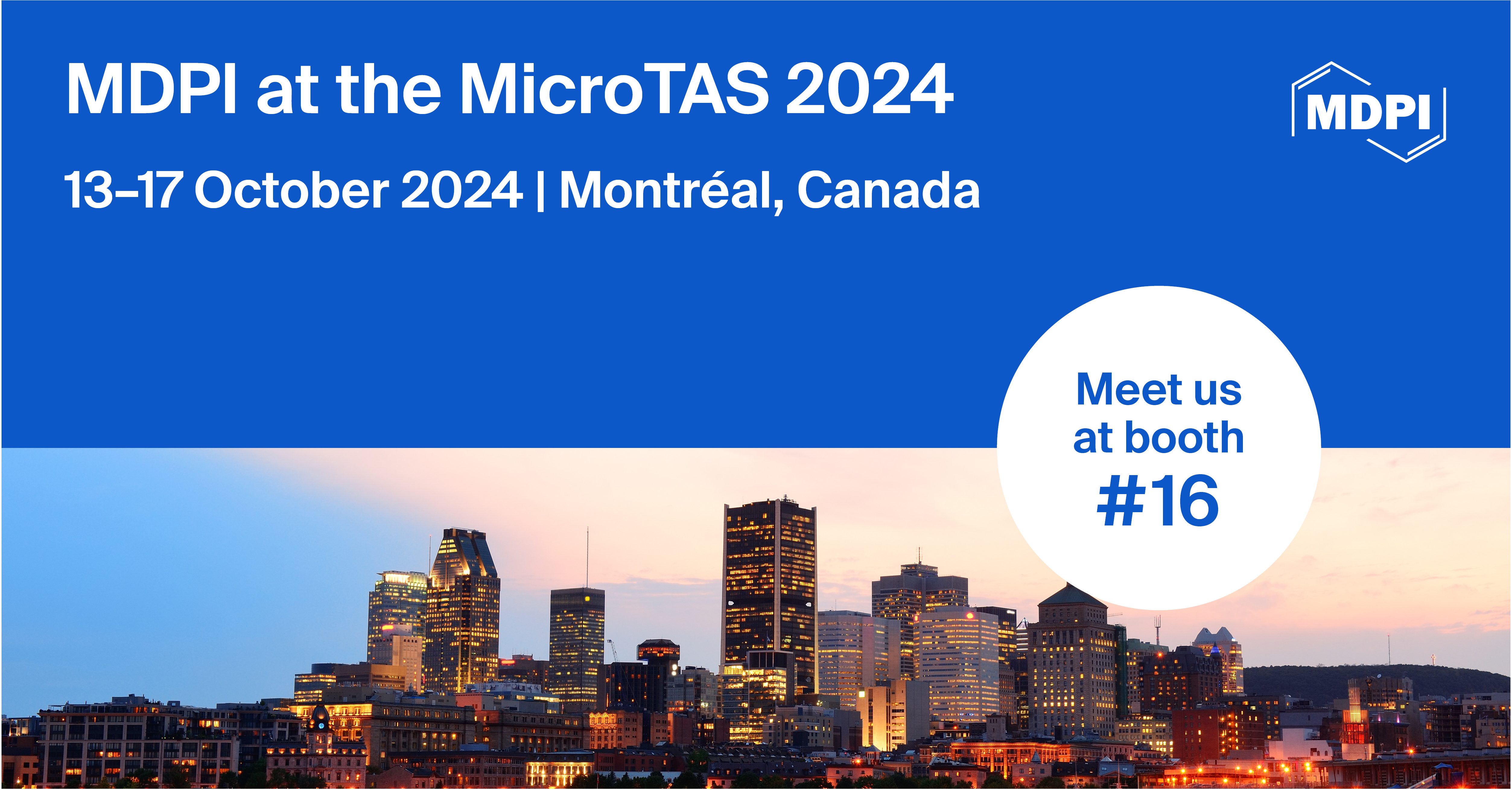
MDPI will be attending the 28th International Conference on Miniaturized Systems for Chemistry and Life Sciences—Micro-Total Analysis Systems (µTAS 2024) held in Montréal, Canada, from 13 to 17 October 2024.
The µTAS International Conference series is the premier forum for reporting research results in microfluidics, lab-on-a-chip, organ-on-a-chip, wearables, BioMEMS, microfabrication, 3D printing, nanotechnology, integration, materials and surfaces, analysis and synthesis, and detection technologies for chemistry, life sciences, and biomedicine. µTAS 2024 will feature plenary and keynote talks from world luminaries and will offer an opportunity for students and scientists to deliver oral and poster presentations selected from submitted abstracts to a global audience of experts in their area. µTAS 2024 will also include networking and social session for students, minorities, young faculty, and an array of industry exhibitions and presentations, as well as a wonderful cultural experience in Montréal.
During this conference, MDPI will welcome researchers from different backgrounds to visit and share their latest views and research with us.
The following MDPI journals will be represented:
- Micromachines;
- Applied Sciences;
- Bioengineering;
- Fibers;
- Molecules;
- JLPEA;
- Technologies;
- Chemosensors;
- Biosensors.
If you plan on attending this conference, feel free to stop by our booth at #16. Our delegates look forward to meeting you in person to answer any questions you may have.
For more information about the conference, please see the following link: https://microtas2024.org/.
2 April 2024
MDPI Insights: The CEO's Letter #10 - South Korea, IWD, U2A, Japan

Welcome to the MDPI Insights: The CEO's Letter.
In these monthly letters, I will showcase two key aspects of our work at MDPI: our commitment to empowering researchers and our determination to facilitating open scientific exchange.
Opening Thoughts

Left to right: Dr. Jisuk Kang (Scientific Officer, MDPI), Stefan Tochev (CEO, MDPI), and Dr. Giulia Stefenelli (Chair of Scientific Office Board, MDPI), during media meetings at Prain Agency office in Seoul, South Korea.
Visit to Seoul, South Korea
During my recent visit to South Korea, I had the privilege of meeting various stakeholders, including representatives of government, research institutions, and academia, to understand their needs and communicate MDPI’s commitment to accessible science. Accompanied by my colleagues Dr. Giulia Stefenelli and Dr. Jisuk Kang, I engaged with the Korean scientific community, which is increasingly embracing open access (OA).
As the leading OA publisher in South Korea, MDPI is trusted by local authors and in 2023 enjoyed an approximately 30% share of the OA market. South Korea ranks sixth globally for MDPI in terms of research papers submitted and published.
MDPI and South Korea by Numbers
As at 30 March, over 76,000 MDPI articles have been authored by individuals affiliated with Korean institutions. We have over 1,800 active editorial board members (EBMs) from South Korea, with more than 880 EBMs having an H-index between 26 and 50, including 10 serving as Chief Editors.
“South Korea is the sixth-largest contributor to our total publications”
Over the past five years (2019–2023), nearly 120,000 authors affiliated with South Korean institutes have published with MDPI. Specifically in 2023, we received approximately 25,000 submissions from South Korean authors, publishing close to 13,000 articles, resulting in a rejection rate of 47.4%, which is not far below MDPI’s overall rejection rate of 56.4% in 2023.
Institutional Partnerships with South Korea
I am pleased to share that MDPI has more than 825 institutional partnerships worldwide, with 12 in South Korea, including Kyunghee University, Chung-Ang University, and Inha University, among others.

Left to right: Dr. Jisuk Kang (Scientific Officer, MDPI), Dr. Giulia Stefenelli (Chair of Scientific Office Board, MDPI), and Stefan Tochev (CEO, MDPI) fielding media questions at Prain PR Agency office in Seoul, South Korea.
Over the past three years (2021–2023), we have had some of the most prestigious academic universities ranked among the top 10 Korean institutions publishing with MDPI. Seoul National University had the highest number of publications with MDPI during those three years, publishing nearly 6,000 papers. Universities such as Korea University and Yonsei University also rank among the top 10 Korean institutions publishing with MDPI.
MDPI Hosts Seminar for Academia and Media
As the world’s leading OA publisher, MDPI is actively democratizing science. This is reflected in the seminars we hosted on 21 March to address questions about our editorial processes and ethical standards. The visit garnered media coverage, reflecting our mission to providing high-quality services and fostering open dialogue in the community.
“MDPI is actively democratizing science”
MDPI in the News

Stefan Tochev (CEO, MDPI) leading a seminar on OA and MDPI at Prain PR Agency office in Seoul, South Korea.
Media coverage generated by our visit to Seoul included the following stories:
“Open access is an unstoppable trend…it will lead the development of the knowledge ecosystem.”
I greatly appreciate the contributions of everyone who took the time to meet with us, share their stories, and hold us accountable for continuing to provide high-quality publishing services while identifying areas for improvement. I am also excited to announce that we have opened an MDPI office in Seoul and will release a press release on MDPI.com, with details, by the end April 2024. The purpose of the office is to establish a local presence to connect with and support the South Korean academic community through institutional partnerships, conferences, author workshops, stakeholder communications, and more.
Impactful Research

Featured Articles on Women’s Leadership and Healthcare
In celebration of International Women’s Day (8 March 2024), MDPI curated a collection of research articles on various topics, including women’s leadership, reproductive health, preventive healthcare, and a selection of articles from our journal Women.
Women’s Leadership
- Women Entrepreneurship and Sustainable Development: Bibliometric Analysis and Emerging Research Trends
Sustainability 2022, 14, 9160. https://doi.org/10.3390/su14159160 - Refugee Women Business Mentors: New Evidence for Women’s Empowerment
Sustainability 2022, 14, 9154. https://doi.org/10.3390/su14159154 - Women and Leadership in Higher Education: A Systematic Review
Soc. Sci. 2023, 12, 555. https://doi.org/10.3390/socsci12100555 - Understanding Needs and Potentials for Gender-Balanced Empowerment and Leadership in Climate Change Adaptation and Mitigation in Africa
Sustainability 2022, 14, 9410. https://doi.org/10.3390/su14159410 - Challenges Women Experience in Leadership Careers: An Integrative Review
Merits 2023, 3, 366-389. https://doi.org/10.3390/merits3020021
Women’s Reproductive Health
- Recreational Female Athletes’ Understanding of and Perceived Impact of the Menstrual Cycle on Physical Performance, Mood, and Sleeping Behaviour
Women 2023, 3, 445-456. https://doi.org/10.3390/women3030034 - Difficulties in Adaptation of the Mother and Newborn via Cesarean Section versus Natural Birth—A Narrative Review
Life 2023, 13, 300. https://doi.org/10.3390/life13020300 - The Main Theories on the Pathogenesis of Endometriosis
Int. J. Mol. Sci. 2023, 24, 4254. https://doi.org/10.3390/ijms24054254
Women’s Preventive Healthcare
- Insulin Metabolism in Polycystic Ovary Syndrome: Secretion, Signaling, and Clearance
Int. J. Mol. Sci. 2023, 24, 3140. https://doi.org/10.3390/ijms24043140 - Assessing Barriers Encountered by Women in Cervical Cancer Screening and Follow-Up Care in Urban Bolivia, Cochabamba
Healthcare 2022, 10, 1604. https://doi.org/10.3390/healthcare10091604 - Updates on HPV Vaccination
Diagnostics 2023, 13, 243. https://doi.org/10.3390/diagnostics13020243
Featured Articles in MDPI Journal Women
Below are a few articles from Women, our journal focused on women’s health, the social determinants of health, and the healthcare system that serves women. The aim of Women is to encourage academics to publish their experimental and theoretical results in detail, to aid reproducibility, and in an engaging style, to aid comprehensibility.
- Premenstrual Syndrome and Exercise: A Narrative Review
Women 2023, 3, 348-364. https://doi.org/10.3390/women3020026 - Increasing Awareness of the Human Papillomavirus (HPV) Vaccine for Women 18–45 Years of Age
Women 2023, 3, 365-373. https://doi.org/10.3390/women3030027 - Addressing Women’s Needs with Human Immunodeficiency Virus (HIV) and Enhancing the Visibility of Pharmacists in the Public Health Arena
Women 2022, 2, 346-352. https://doi.org/10.3390/women2040032
Inside MDPI

Championing Women’s Healthcare and Access to Healthcare Information
MDPI colleagues from our offices joined in celebrating #IWD2024. In doing so, we emphasized key missions that encompass:
- Empowering women to assume leadership and decision-making roles in both business and science.
- Helping women and girls make informed decisions about their health.
- Recruiting and developing female talent and fostering inclusive workplace environments.
“We are thrilled to recognize the accomplishments of women scientists”
I am proud to see our colleagues enthusiastically supporting the International Women’s Day call to ‘Inspire Inclusion!’ The heart-hands in the collage below symbolize our appreciation of the achievements of women researchers and the recognition of the trailblazers who have courageously made a mark on societies past and present.

We are thrilled to recognize the accomplishments of women scientists through our many MDPI awards and by highlighting success stories. As inspirational figures, female scientists are paving the way for the next generation of women aspiring to pursue careers in engineering, life sciences, computing, and various other STEM fields.
“I consider myself lucky because I work with incredibly talented women who inspire me every day.”
– Dr. Alessandra Pasut, Winner of MDPI's ‘Biology 2023 Young Investigator Award’
“It’s really important to find a supportive and enabling environment in which to do your science; it would have a big impact on you as a person and on your scientific outputs.”
– Dr. Rhea Longley, Winner of the ‘Pathogens 2023 Young Investigator Award’
Open-access publishing, in particular, allows early-career women researchers to share their work more widely, potentially attracting mentorship opportunities and collaborations. This support is crucial for career development and advancement.
Coming Together for Science

MDPI Joins United2Act in Collective Fight to Stop Paper Mills
In my February 2024 CEO Letter, I highlighted some of our recent initiatives aimed at bolstering our commitment to research integrity, including joining the STM Integrity Hub and expanding our Research Integrity and Publication Ethics team (RIPE). Continuing our efforts in coming together for science, I am pleased to share our participation in the United2Act initiative.
The text below is taken from our official announcement:
United2Act represents an international group of stakeholders in the publishing industry committed to addressing the collective challenge posed to research integrity by paper mills.
Scientists and academic publishers have increasingly noted the alarming proliferation of paper mills, recognized as fraudulent entities seeking to manipulate the publication process for financial profit. These entities engage in fraudulent practices such as falsifying or fabricating data, selling co-authorship of fake papers, manipulating peer review, and including inappropriate citations. These actions pose a significant threat to the integrity of the scholarly record, prompting widespread concern among those involved in the academic community.
MDPI has been actively contributing to combat the undermining of the scientific record. Our editors employ a set of tools to detect potential ethical breaches within a manuscript and to tackle the issue of fake papers.
United2Act’s consensus statement is the outcome of a virtual summit held in May 2023. It involved the participation of research bodies, publishers, researchers/sleuths, universities, and publishing infrastructure from 15 countries and resulted in a Consensus Statement outlining five key areas of action for all stakeholders:
- Education and awareness
- Improve post-publication corrections
- Facilitate and organise research on paper mills
- Enable the development of trust markers
- Facilitate dialogue between stakeholders
MDPI is committed to promoting transparency and integrity in scholarly publishing and is continuing to work closely with the scientific community toward this goal.
Closing Thoughts

Left to right: Ryo Hirayama (Marketing Specialist, MDPI), Takashi Sasabe (Marketing Specialist, MDPI), Dr. Giulia Stefenelli (Chair of Scientific Office Board, MDPI), Dr. Izumi Yamamoto (Marketing Manager, MDPI), and Stefan Tochev (CEO, MDPI), at MDPI’s office in Tokyo, Japan.
Visit to Tokyo and Kyoto, Japan
In March, I had the opportunity to visit our Tokyo office and engage with stakeholders in Tokyo and Kyoto. During the visit, I also recorded a video message to welcome Japanese scholars working with MDPI and to highlight our operations in Japan.
We held meetings with Editors-in-Chief, librarians, scholars, and external consultants to gather feedback on our efforts to enhance our reputation and explore additional steps we can take in that direction. Japan's rich cultural heritage, characterized by tradition, respect, and formality, provided valuable insights into meeting the publishing needs specific to Japan.
Japan’s Open Access statistics
Over the years, we have seen a shift from subscription-only to gold OA publishing in Japan, despite the lack of an official mandate. Here are some statistics:
- 2012: 68% of articles were subscription-only, 6% were green Open Access, and 8% were gold Open Access.
- 2016: 55% of articles were subscription-only, 6% were green Open Access, and 20% were gold Open Access.
- 2022: 43% of articles were subscription-only, 7% were green Open Access, and 39% were gold Open Access.
To learn more about the history of OA in Japan as well as about future trends, please read this blog post.
“Japan is the ninth-largest contributor to our total publications”

Left to right: Stefan Tochev (CEO, MDPI), Dr. Izumi Yamamoto (Marketing Manager, MDPI), and Dr. Giulia Stefenelli (Chair of Scientific Office Board, MDPI) visiting Kyoto University in Kyoto, Japan.
MDPI and Japan by Numbers
As at 1 April, over 50,000 MDPI articles have been authored by scholars affiliated with Japanese institutions, making the country the ninth-largest contributor to our total publications. Over the past three years (2020–2023), nearly 90,000 authors affiliated with Japanese institutes have published with MDPI, and we have collaborated with over 4,600 Guest Editors from Japan.
In 2023, we published over 8,200 papers from authors associated with Japanese institutions. MDPI collaborates with 41 institutional partnerships in Japan, including the University of Tokyo, Hokkaido University, and Nagoya University. We have over 2,100 active EBMs from Japan, more than 1,050 EBMs having an H-index between 26 and 50, including 13 serving as Editors-in-Chief.
General Feedback – a side note
A general takeaway from our discussions with stakeholders from around the world is that negative perceptions of MDPI often stem from misinformation, misconceptions, or misunderstandings about MDPI and our practices. While we acknowledge our mistakes and work diligently to address them, maintaining a strong editorial procedure and robust peer-review process, I find that educating stakeholders about our how we do what we do and our ongoing improvements tends to help shift opinions.
That said, we recognize the importance of addressing individual concerns. We take feedback seriously and are continuously working to get better while not compromising the core principles that millions of authors appreciate about MDPI.
Chief Executive Officer
MDPI AG
15 March 2024
Interview with Dr. Dora Allegra Carbone, Author of a Highly Viewed Article of Bioengineering

Dr. Dora Allegra Carbone is one of the authors of the highly viewed article entitled “Potential of Porous Substrate Bioreactors for Removal of Pollutants from Wastewater Using Microalgae”, published in Bioengineering (ISSN: 2306-5354).
Dr. Dora Allegra Carbone completed her Ph.D. at the University of Federico II, Italy, in 2017, specializing in microalgal biotechnologies. During her doctoral research, she concentrated on optimizing growth systems for biomass production. This involved comparing traditional liquid bioreactors with newer solid-state systems, including the notable Twin-layer system, which she studied while conducting research at the University of Cologne, Germany. In 2018, she expanded her studies on microalgae and their growth, focusing further on immobilized systems, once again examining the Twin-layer system, also at the University of Cologne. After returning to Italy in 2019, she continued her work in algology across various areas, such as co-cultivating different organisms and treating wastewater at different institutions until 2021. Since then, she has dedicated herself to teaching and scientific outreach.
The following is an interview with Dr. Dora Allegra Carbone:
1. Could you please briefly introduce the main research content of the published paper?
The paper talks about a new technology, the Porous Substrate Bioreactors (PSBRs), which allows microalgae growth on an immobilized system and solves some problems linked to standard suspended cultivation. This technology seems to bring interesting results in wastewater treatment. This paper is the result obtained by PSBRs in this field.
2. Could you describe the difficulties and breakthrough innovations encountered in this research?
PSBRs represent an innovative technology demonstrating promising outcomes across various facets of microalgae cultivation, such as astaxanthin production. These systems have exhibited several advantages in wastewater treatment compared to classic suspended cultivation methods, including enhanced cost-effectiveness, reduced water consumption, and elevated levels of biomass productivity. Therefore, they present themselves as compelling alternatives to traditional methods in rural areas and small-scale decentralized systems within urban settings, such as hospitals. Nonetheless, a significant challenge lies in adopting these systems for large-scale applications. The scaling-up process necessitates a sustainable operation, incorporating automated algal biomass harvesting. Hence, future research should prioritize addressing these obstacles to facilitate the successful integration and utilization of PSBR technology in wastewater treatment and other biotechnology fields.
3. What made you decide to publish a bioengineering article? Why did you choose Bioengineering?
I have had previous publications with MDPI, and I have always found them to be reliable. Throughout my career, I have considered MDPI to be a top-notch publisher for research. Additionally, I have come across several bioengineering papers published by them, and they consistently exhibit high quality and are quite interesting as well. The Bioengineering journal produces valuable work which makes them trustworthy, and I would not hesitate to recommend them.
4. What was your experience publishing with Bioengineering?
My experience with this journal has been exceptional. The editorial team is truly efficient. They consistently respond promptly to my inquiries and provide helpful support whenever needed. Moreover, I have found that the time it takes for my work to be published is remarkably fast, which has been incredibly beneficial for my work.
5. How do you think open access impacts authors?
Open access increases the visibility of scientific papers without barriers; consequently, the number of citations and the impact factor significantly increase. As a result, this process amplifies the recognition of research and offers greater opportunities for young scientists to succeed in their respective fields.
6. What do you hope that readers will get from your paper?
I sincerely hope the readers recognize the PSBRS system's immense potential in wastewater treatment. Certainly, with further in-depth studies and ongoing research, this technology can significantly enhance wastewater treatment processes on both small and large scales. It promises substantial improvements in efficiency, effectiveness, and environmental sustainability. Embracing and advancing the development of PSBRS technology could prove instrumental in addressing pressing challenges in wastewater management, benefiting communities and ecosystems alike.
4 March 2024
MDPI Insights: The CEO's Letter #9 - Romania, Research Integrity, Viruses

Welcome to the MDPI Insights: The CEO's Letter.
In these monthly letters, I will showcase two key aspects of our work at MDPI: our commitment to empowering researchers and our determination to facilitating open scientific exchange.
Opening Thoughts

Reka Kovacs (Deputy Office Manager, MDPI), Stefan Tochev (CEO, MDPI), and Sandra Ana Spatariu (Office Manager, MDPI) at the MDPI office in Cluj, Romania.
MDPI’s Impact on Romania
In February, I visited our office in Cluj, Romania. I worked closely with our senior office managers and various teams, including the departments of training, marketing and conferences, as well as our journal relationship specialists, reviewing our service to the local scholarly community. During the visit, I also met with representatives from Babes-Bolyai University and the Technical University of Cluj-Napoca. Our multifunctional Romanian office plays an important role in supporting our collaborations with the local market as well as helping to meet MDPI’s overall business needs.

Feedback and strategy meeting with a group of MDPI’s Journal Relationship Specialists at the MDPI office in Cluj, Romania.
With 22,436 articles, Romania ranks as a top 20 contributing country to MDPI’s total number of papers published as at 28 February 2024. This highlights the importance of our collaboration with Romanian-affiliated authors and the growing opportunity to support their publishing needs. MDPI is one of the few academic publishers with a significant presence in Romania, boasting over 360 colleagues across our offices in Bucharest and Cluj. We are also proud to hire colleagues from local institutions to launch their careers within publishing.
Romania ranks as a top 20 contributing country.
The Numbers: 2019–2023
MDPI has seen a healthy increase in submissions from Romanian authors over the past three years, from 8,439 in 2021 to 11,866 by end of 2023, with most submissions going to journals such as Sustainability, Medicina, Diagnostics, IJMS, Applied Sciences, and JCM. From 2019 to 2023, MDPI published articles from 32,145 authors affiliated with Romanian institutions. Over those years, we have worked with Romanian Guest Editors on nearly 3,000 occasions to support their Special Issue and Topical collections.
With more than 300 Editorial Board Members from Romania, 34 appear on the board of Mathematics, 27 on Materials, 19 on Polymers, 18 on Coatings, and 16 on Molecules, while three serve as Section Editors-in-Chief (SEiC) on our journals Coatings (3.4 IF, 4.6 Citescore), Magnetochemistry (2.7 IF, 3.5 Citescore), and Chemosensors (4.2 IF, 3.9 Citescore).
Institutional Open Access Programs
Our commitment to working with institutions is evident in Romania, where we have established eight Institutional Open Access Programs (IOAP) with esteemed institutions such as the University of Bucharest, the University of Medicine and Pharmacy Cluj-Napoca, and most recently the National Institute for Laser, Plasma and Radiation Physics.
Our growth and presence in Romania are a true testament.
We also have IOAP agreements with Babes-Bolyai University and the Technical University of Cluj-Napoca, where I had the opportunity to meet senior stakeholders during my visit. Below are a few photos capturing our meeting with Prof. Radu Silaghi-Dumitrescu (Head of Faculty of Chemistry, Babes-Bolyai University) at the MDPI office in Cluj, Romania, along with a photo from our meeting with Vice Deans Nicoleta Cobarzan, Nicoleta Ilies, and Hoda Gavril, from the faculty of Civil Engineering at the Technical University of Cluj, Romania.


Our growth and presence in Romania are a true testament to the service we provide to the scholarly community and the relationships we foster in that region. We look forward to continuing to support Romanian scholars and institutions by providing a valuable and trusted experience with MDPI, the leader in open access publishing.
Impactful Research

MDPI Joins the STM Integrity Hub
MDPI has long been a supporter and partner of STM, with our involvement ranging from sponsoring and attending events to helping organize event programs. By joining the STM Integrity Hub, we aim to further our commitment to STM initiatives aimed at safeguarding the integrity of science.
“We are pleased to welcome MDPI as the 35th organisation participating in the Hub. This expansion is critical, as every new member enhances our capacity to prevent fraudulent submissions from entering the academic record.”
Joris van Rossum, Director of Research Integrity, STM
MDPI operates in full alignment with STM Integrity Hub's values of shared data and experiences. We strongly believe in collaboration and open exchange for the purposes of creating a holistic approach to support research integrity at MDPI itself and across the entire academic publishing industry. The Integrity Hub is an excellent example of how publishers can come together to jointly address industry-wide challenges related to research integrity, such as manuscripts that breach research integrity standards and paper-mills.
I look forward to our Research Integrity and Publication Ethics Team (RIPE) team immersing themselves in this initiative, exchanging information, best practices, and tools for the benefit of the entire scholarly ecosystem. We believe that ethical publishing standards should be implemented across the board, and we aim to be rigorous in our approach, addressing research integrity issues and improving the impact of published research.
Inside MDPI

MDPI Expands Research Integrity and Publication Ethics Team (RIPE)
In addition to external collaborations and joint initiatives aimed at further strengthening our commitment to research integrity, we are also enhancing our internal efforts. This includes improving our processes and guidelines and expanding our teams and departments to ensure quality assurance throughout our publishing process.
We are pleased to announce the expansion of our Research Integrity and Publication Ethics Team (RIPE) at MDPI. The RIPE team has recently welcomed new colleagues, each bringing unique skills and a personal commitment to prioritize ethical considerations in all our work.
The demand for research integrity and high ethical standards in academic publishing is steadily rising across our industry. Our expanded RIPE team will work to enhance and align our practices with industry best practices, ensuring excellence in research integrity and publication ethics.

Stefan Tochev (CEO, MDPI) introduces Dr. Tim Tait-Jamieson (Research Integrity Lead, MDPI) for his presentation on MDPI’s Retraction and Approval Process to a group of Journal Relationship Specialists at the MDPI office in Cluj, Romania: “The demand for research integrity and publication ethics is steadily rising across our industry.”
Introducing our Research Integrity and Publication Ethics Team
Led by Dr. Tim Tait-Jamieson (Research Integrity Lead), the RIPE team comprises Dr. Ivana Resanovic (Research Integrity Manager), Dr. Lavinia Rogojina (Research Integrity Manager), Ms. Diana Apodaritei (Research Integrity Specialist), Dr. Zoltan Mihaly (Research Integrity Specialist), Mr. Aleksandar Đukić (Research Integrity Specialist), Ms. Ana Stankovic (Research Integrity Specialist), and Ms. Anna Pena (Publication Ethics Assistant).
Please click here to access everything that you need to know about MDPI’s Research and Publication Ethics.
With this span of complementary roles, the RIPE team collaborates directly with journal editorial teams and works closely with various departments, including our Scientific Office Board and our Journal Relationship Specialists. The team’s primary objectives are to help prevent issues regarding research integrity and publication ethics during peer review, uphold MDPI’s ethics policies, adhere to industry standards, and resolve publication ethics and research integrity issues and complaints.
Quality Updates to Special Issues Oversight
At MDPI, we are committed to reviewing policies pertaining to the quality of research. In this blog post, Shaheena Patel (Communications Associate, MDPI), outlines two recent updates to MDPI journal processes. These updates pertain to Special Issue (SI) quality guidelines, in line with criteria provided by COPE and DOAJ. Alongside the SI updates, details regarding the new minor corrections policy introduced in 2024 are provided in the blog.
The two updates we implemented include greater oversight and the verification of Guest Editor credentials. These guidelines require that Editors-in-Chief (EiCs) and Editorial Board Members (EBMs) take responsibility for overseeing SIs.
PS. Thank you, James Butcher, for featuring this up in your 67th issue of the Journalogy newsletter.
Read more:
Coming Together for Science

Viruses 2024 – A World of Viruses
I am pleased to share the success of our MDPI conference Viruses 2024 – A World of Viruses, held 14-16 February, in Barcelona. With 240 registrations, this event brought together top scientists, researchers, and industry experts from 40 countries to share their findings on the latest developments in viral pathogenesis and immune responses.
Attendees gathered for the 5th edition of the Viruses’ conference, where we hosted influential keynote speeches from Nobel Prize laureate Dr. Charles M. Rice and ‘Distinguished Senior Virologist’ Prof. Luis Enjuanes, along with 14 invited speakers, 47 selected speakers, and nine flash poster presenters, to discuss the most significant issues in virology today.
Recap on the #Viruses2024 Conference
Take a look at the key moments from MDPI’s Viruses event and please join us in commemorating a gathering for global knowledge and cooperation. A heartfelt thank-you to all attendees; their passion and engagement played a crucial role in making this event an engaging success!
Below are calls to action from the keynote speakers encouraging collaboration and communication:
“There’s never been a better time than now to really take the power that we have both in terms of basic research and also in biotech and pharma to develop antiviral agents.” - Dr. Charles M. Rice, The Rockefeller University, New York, USA
“The collaboration between labs is absolutely essential. Improving initial detection and improving communication is a must for all of us working in science.” - Prof. Dr. Luis Enjuanes, National Center of Biotechnology (CNB-CSIC), Madrid, Spain

Our thanks go to our sponsors and partnering societies, our Viruses journal and editorial team, our Barcelona colleagues, and the social media, conference and other MDPI teams for making this event a memorable occasion. View the event gallery here.
Upcoming In-Person Event

24–26 April, 2024
4th MMCS – Harnessing the Power of New Drug Modalities
Location: Barcelona, Spain
Esteemed speakers at MMCS 2024 include Prof. Arun K. Ghosh, the mind behind the Darunavir molecule, and Prof. Paul Brennan, CSO of Alzheimer's Research UK Oxford Drug Discovery Institute.
Find more upcoming MDPI events here.
Organize Your Event with MDPI’s Sciforum
Sciforum is MDPI’s platform dedicated to the organization of scientific events. In line with our mission to promote science, Sciforum supports scholars, societies, research networks, and universities at all stages of organizing in-person events, virtual events and webinars. Our platforms are efficient, user-friendly, and cost-effective. We handle all steps related to event management. Contact us for details.
Closing Thoughts

Researcher to Reader (R2R) Conference
From 20–21 February 2024, I had the pleasure of attending the Researcher to Reader (R2R) conference in London, which MDPI has proudly sponsored over the years. The conference programme offered a variety of session formats, including workshops, panel discussions, debates, interviews, presentations, and lightning talks, with opportunities to discuss relevant topics.
We take pride in supporting the scientific community, bringing researchers across the world together to network, exchange ideas and share the latest in science and publishing. In 2023, MDPI invested close to 2 million CHF in sponsoring over 2,000 scientific and publishing-related conferences worldwide.
R2R Peer Review Innovations Workshop
I found the R2R conference to be engaging, with the workshops being particularly enjoyable. My colleague Giulia Stefenelli (Chair of Scientific Office Board) and I participated in the “Peer Review Innovations” workshop, which spanned four sessions over the two days. These sessions explored the future of peer review and how we can improve the peer review process for everyone involved. Notably, the large majority of attendees expressed their opinion that peer review, as currently practiced, requires significant improvement. Together, we collaborated on potential immediate and long-term improvements and innovative processes, aiming to create an ecosystem beneficial to all stakeholders by strengthening submission systems with the aim of reducing threats and making authors more responsible for their work. We also discussed the opportunity for academic institutions to better scrutinize the quality of the work produced and submitted to journals.
Our group comprised publishers, software providers, librarians, and more, bringing diverse perspectives to the discussions. These interactions were relevant to MDPI’s ongoing conversations, providing insights to our efforts. The session also made me appreciate that MDPI is doing well, as the group discussions included the subject of various quality checks that we have already embedded in our processes, ensuring that we keep abreast of industry standards.
The need for an optimized system to incentivize the activities of editors and reviewers was also a focus of discussion, as well as the support that reviewers need from publishers via the provision of strong reports through fixed forms, questionnaires and training.
At MDPI, we are currently auditing our reviewer program to improve reviewer recognition, guidelines, and methods for identifying suitable reviewers, while maintaining our commitment to quality and timeliness.
Congratulations to Mark Carden, Conference Director, and the R2R team for organizing a productive and successful event. PS: The break times were greatly appreciated as well!
Chief Executive Officer
MDPI AG
31 January 2024
MDPI Insights: The CEO's Letter #8 - Altmetric and Flat Fee Agreement

Welcome to the MDPI Insights: The CEO's Letter.
In these monthly letters, I will showcase two key aspects of our work at MDPI: our commitment to empowering researchers and our determination to facilitating open scientific exchange.
Opening Thoughts

MDPI and Digital Science Meeting
At MDPI, we are committed to providing our authors with the essential tools to publish, promote, and track their research. In line with this commitment, we have established a longstanding collaboration with Digital Science, a company specializing in research data and analytical insights for the research community. Our collaboration integrates their Altmetric tool, offering us and our authors the ability to track a variety of sources that monitor and report attention surrounding publications.
As part of our collaboration, we recently hosted Cathy Holland, Director of Global Publisher Business Development, and Helen Cooke, Managing Director of Publisher Sales, from Digital Science, at our MDPI headquarters in Basel, Switzerland.
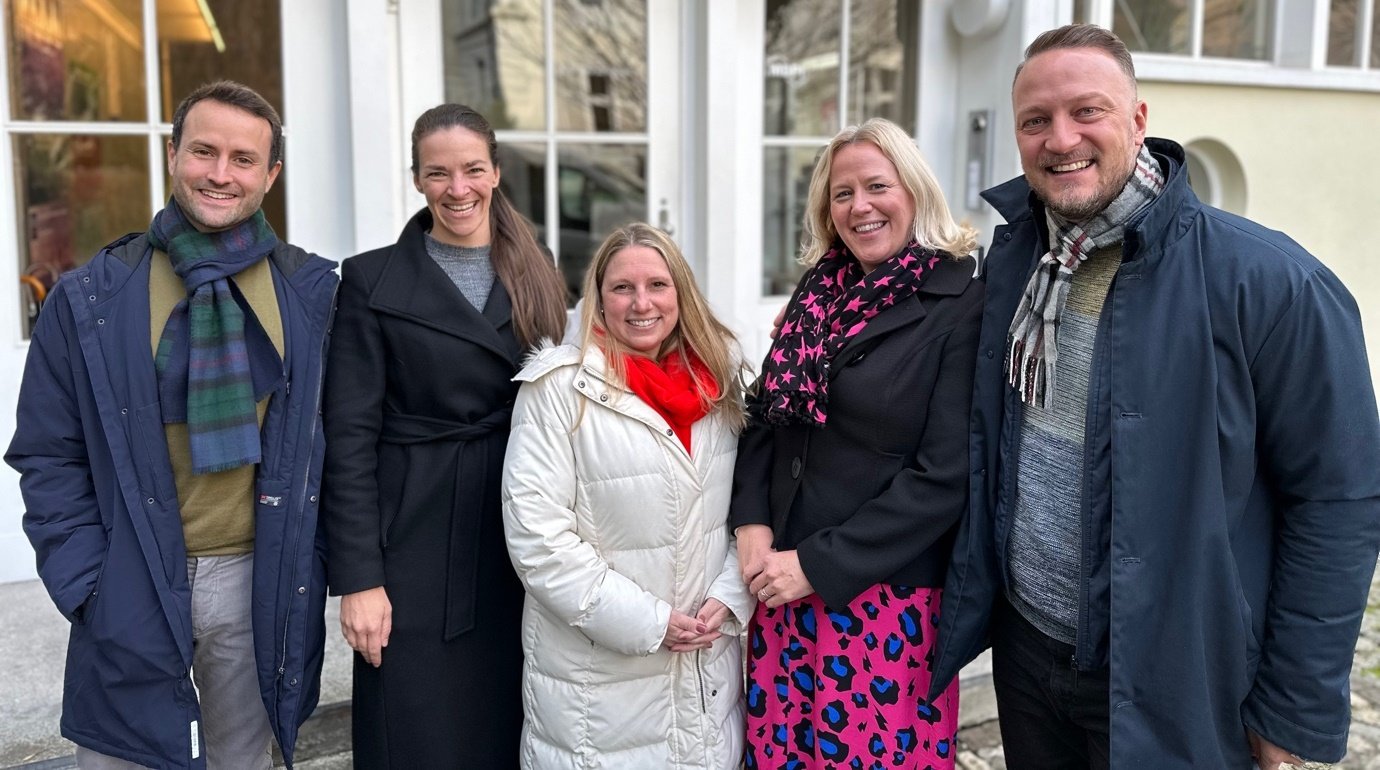
Left to right: Facundo Santomé (Senior Marketing Manager, MDPI), Constanze Shelhorn (Indexing Manager, MDPI), Cathy Holland (Director of Global Publisher Business Development, Digital Science), Helen Cooke (Managing Director of Publisher Sales, Digital Science), and Stefan Tochev (CEO, MDPI) in front of MDPI headquarters in Basel, Switzerland.
During our meeting, we discussed MDPI’s publishing philosophy and explored further avenues for collaboration. We look forward to continuing our partnership with Digital Science, aiming to improve our services yet further and meet the needs of our authors more closely than ever.
What is Altmetric?
You will notice that MDPI articles feature an Altmetric score, a colourful doughnut capturing the score in the upper right corner of the article page. This score represents ‘alternative metrics,’ as distinct from traditional metrics such as Impact Factor, CiteScore, and Scimago Journal Rank.
Altmetrics complement traditional citation-based metrics by capturing online discussions related to a specific research topic. By analyzing both sets of data, we can obtain a comprehensive understanding of the attention a particular research output receives and the sources in which it is mentioned.
“Almetric provides visual insights into where research is being discussed”
Sources Tracked by Altmetric
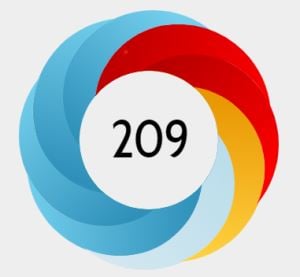
Altmetric badge showing the Altmetric score and colour-coded mention sources.
Altmetric monitors various sources, categorizing them into segments such as policy documents, peer reviews, Wikipedia, news and blogs, and social media, among other sources. Each category is identifiable by a specific colour.
The Altmetric badge provides visual insights into where the research is being discussed. A more colourful badge indicates broader mentions across multiple platforms. Such tracking enables us to gauge the extent of an article’s online dissemination, noting that increased visibility may correlate with higher citation rates.
Read more:
Impactful Research

Ten High-Altmetric Articles Published by MDPI
As at 30 January 2024, Altmetric has tracked 670,500 MDPI research outputs from MDPI, resulting in over 4.3 million mentions. This includes over 71,894 mentions in policy and patents and 294,714 mentions in news and blogs, with some achieving an Altmetric score as high as 28,754.
So, what is a good Altmetric score? There are various ways to put this score into context. You can find out more about the score in context and how to evaluate your work by this means.
Here are ten MDPI papers ranking in the top 5% of all research outputs scored by Altmetric.
|
|
“Accuracy in Wrist-Worn, Sensor-Based Measurements of Heart Rate and Energy Expenditure in a Diverse Cohort” J. Pers. Med. 2017, 7(2), 3; https://doi.org/10.3390/jpm7020003 Altmetric page: https://mdpi.altmetric.com/details/20477344 Altmetric shows that this article appeared in 253 news stories from 209 outlets including Forbes, BBC, and Fox News. |
|
|
“Daylight Saving Time and Acute Myocardial Infarction: A Meta-Analysis” J. Clin. Med. 2019, 8(3), 404; https://doi.org/10.3390/jcm8030404 Altmetric page: https://mdpi.altmetric.com/details/57654628 Altmetric shows that this article appeared in 295 news stories from 207 outlets including Forbes, The Atlantic, and New York Times. |
|
|
“The Preliminary Analysis of Cave Lion Cubs Panthera spelaea (Goldfuss, 1810) from the Permafrost of Siberia” Quaternary 2021, 4(3), 24; https://doi.org/10.3390/quat4030024 Altmetric page: https://mdpi.altmetric.com/details/111086701 Altmetric shows that this article appeared in 182 news stories from 134 outlets including CBC News, CNN, and National Geographic. |
|
|
“Not the Cat’s Meow? The Impact of Posing with Cats on Female Perceptions of Male Dateability” Animals 2020, 10(6), 1007; https://doi.org/10.3390/ani10061007 Altmetric page: https://mdpi.altmetric.com/details/83796184 Altmetric shows that this article appeared in 124 news stories from 98 outlets including VICE, CNN and The Guardian. |
|
|
“Behaviour and Welfare Impacts of Releasing Elephants from Overnight Tethers: A Zimbabwean Case Study” Animals 2022, 12(15), 1933; https://doi.org/10.3390/ani12151933 Altmetric page: https://mdpi.altmetric.com/details/133463915 Altmetric shows that this article appeared in 192 news stories from 186 outlets. |
How do I use altmetrics?
Altmetric Explorer provides a detailed step-by-step guide and instruction video for first-time users of the tool. The guide includes useful diagrams that make it easy to get started.
Sharing Research Online
For research to be tracked across different sources, Altmetric needs a research output with a persistent identifier: a DOI, ISBN, PubMed ID, handle ID, etc. When sharing research, it is important to include a link to the original research output.
|
|
“An Update on Eukaryotic Viruses Revived from Ancient Permafrost” Viruses 2023, 15(2), 564; https://doi.org/10.3390/v15020564 Altmetric page: https://mdpi.altmetric.com/details/142929875 Altmetric shows that this article appeared in 250 news stories from 180 outlets including CTV, Fox News, and CNN. |
|
|
“The Global Problem of Insufficient Sleep and Its Serious Public Health Implications” Healthcare 2019, 7(1), 1; https://doi.org/10.3390/healthcare7010001 Altmetric page: https://mdpi.altmetric.com/details/53406248 Altmetric shows that this article appeared in 252 news stories from 168 outlets including BBC, Harvard Business Review, and Forbes. |
|
|
“A Detailed Review Study on Potential Effects of Microplastics and Additives of Concern on Human Health” Int. J. Environ. Res. Public Health 2020, 17(4), 1212; https://doi.org/10.3390/ijerph17041212 Altmetric page: https://mdpi.altmetric.com/details/86529137 Altmetric shows that this article appeared in 197 news stories from 150 outlets including BBC, The Tribune, and World Economic Forum. |
|
|
“An Empirical Study of Chronic Diseases in the United States: A Visual Analytics Approach to Public Health” Int. J. Environ. Res. Public Health 2018, 15(3), 431; https://doi.org/10.3390/ijerph15030431 Altmetric page: https://mdpi.altmetric.com/details/34714141 Altmetric shows that this article appeared in 232 news stories from 149 outlets including Forbes, New York Times, and Harvard Business Review. |
|
|
“Garden Scraps: Agonistic Interactions between Hedgehogs and Sympatric Mammals in Urban Gardens” Animals 2023, 13(4), 590; https://doi.org/10.3390/ani13040590 Altmetric page: https://mdpi.altmetric.com/details/142934305 Altmetric shows that this article appeared in 172 news stories from 168 outlets including BBC. |
Inside MDPI

MDPI Annual Meeting Celebrations in China
On Thursday 25 January, over 1,300 MDPI colleagues from our two offices in Beijing gathered to kick off MDPI’s traditional ‘Annual Meetings.’ These celebrations take place in MDPI’s offices across China, including Dalian, Tianjin, Wuhan, and Nanjing.
The evenings include performances, informative talks and presentations, awards, and entertainment, providing an ideal platform to recognize our colleagues, celebrate their achievements, and set our sights on the future.
“It is essential that we stay connected and share best practices”

I sent a video congratulating everyone on their work and sharing our vision of building MDPI into the most trusted OA publisher, highlighting the roles each of us has to play in achieving that goal.
Unfortunately I could not join in person, but you may recall my recent trip, when I visited our offices in Beijing and Wuhan, which I look forward to visiting again this year.
Although our headquarters are in Basel, Switzerland, and we are expanding throughout Europe and North America, the majority of MDPI’s workforce is in China and throughout the Asia-Pacific region, including offices in Singapore, Thailand, Japan, and newly opened office in South Korea. It is essential that as a global organization, we stay connected and share best practices in order to grow collectively and continue providing the exceptional service to our authors.
The Annual Meeting is a moment to reflect and enjoy the year’s hard work and dedication.
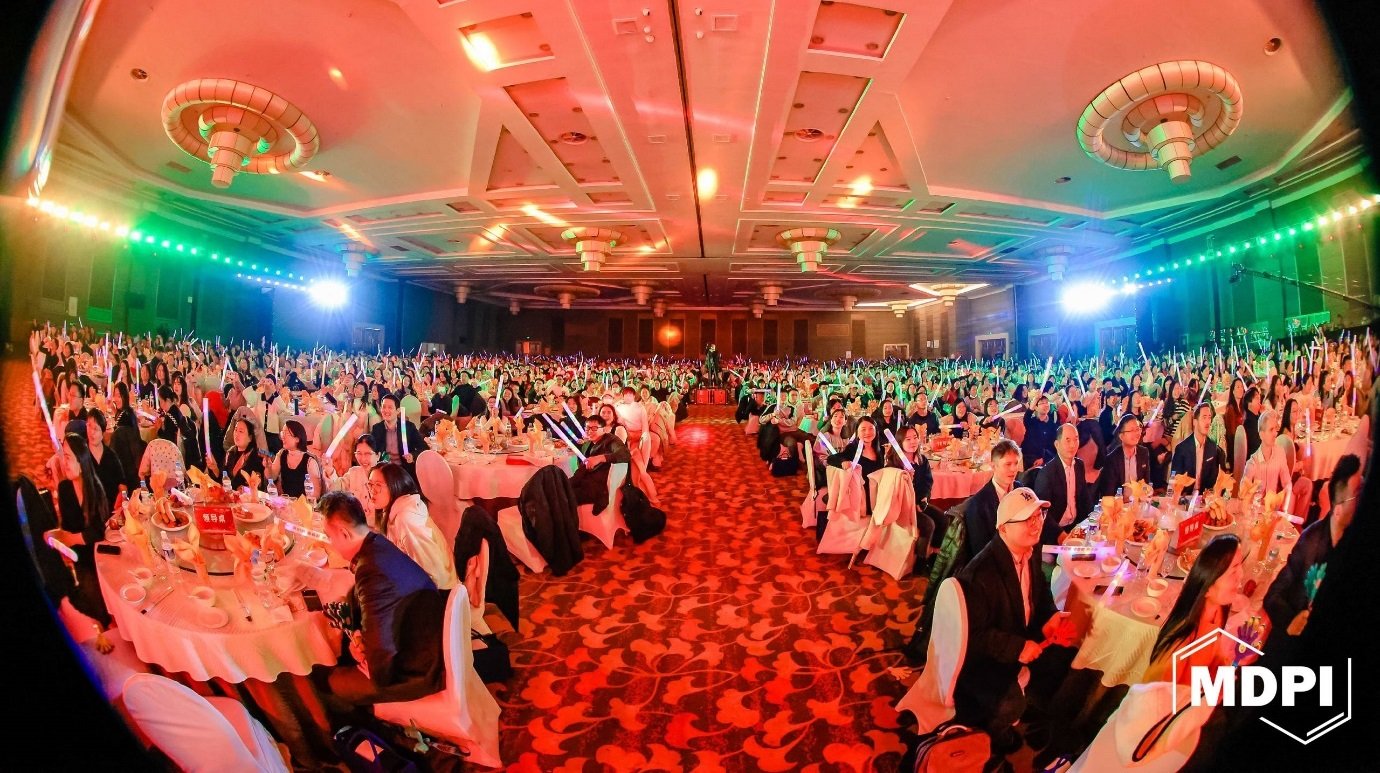
I extend our best wishes to all for the Chinese New Year (Xīnnián kuàilè)!
Coming Together for Science
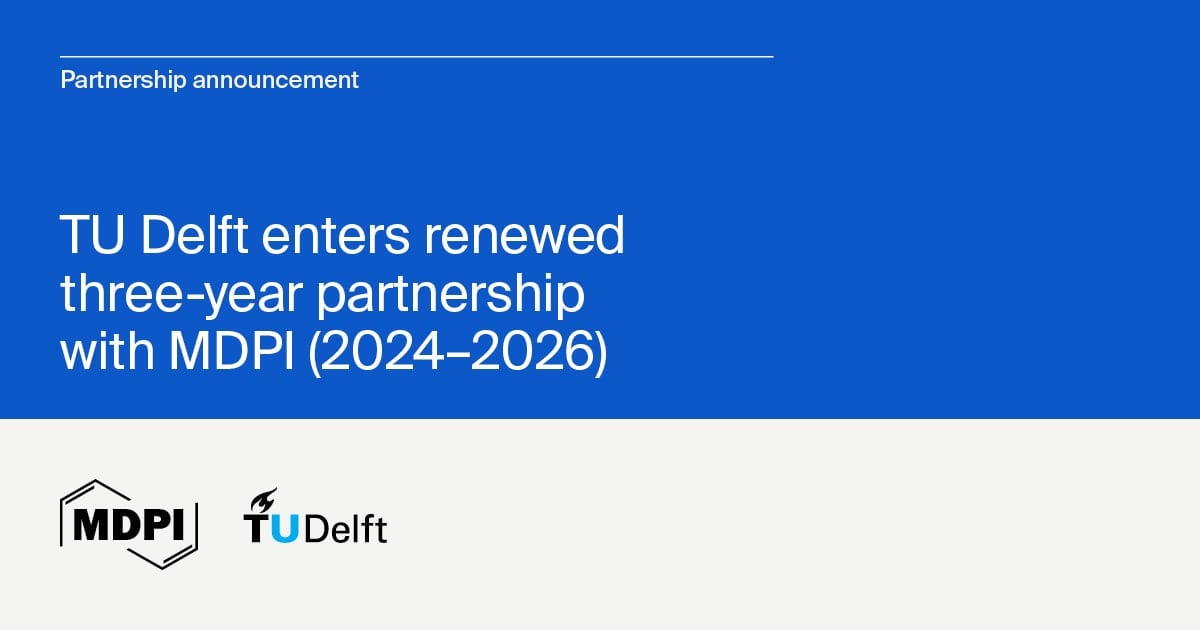
MDPI and TU Delft Adopt Flat Fee Model in Extended Partnership
We are excited to announce a renewed three-year partnership with Delft University of Technology (TU Delft) in the Netherlands. This collaboration introduces a fixed lump-sum fee, covering publishing costs from 2024 to 2026.
“This initiative reflects our dedication to transparent and inclusive publishing”
TU Delft-affiliated authors will enjoy cost-free publishing in any MDPI journal during this period, aligning with our commitment to removing barriers for open access publishing. The agreement supports Plan S compliance and facilitates a seamless publishing process for TU Delft corresponding authors. This initiative reflects our dedication to transparent and inclusive publishing, providing stability and predictability both for authors and for institutions.
For further details on our Institutional Open Access Program (IOAP), please contact us.
Benefits to MDPI’s IOAP
At MDPI we have a long tradition of partnerships, including our Institutional Open Access Program (IOAP). IOAP supports institutions through simplification, access, transparency, APC discounts, and institutional repository deposits. The program simplifies administrative processes, offers central payment, and allows easy opting in and out. Participants gain free access to Susy, MDPI’s online submission system, with extensive article metadata and exportable data. APC discounts and Book Processing Charge discounts are available for affiliated authors. Automated deposits to institutional repositories and streamlined matching of papers to IOAP participants enhance the overall experience.
For further information, see our IOAP FAQ.
Closing Thoughts

Reflections on the 2024 APE Conference
MDPI was proud to co-sponsor the Academic Publishing in Europe (APE) 2024 Conference that took place in Berlin, Germany, from 9–10 January 2024.
The conference theme, ‘Keep the Conversation Going!’, explored the evolving landscape of scholarly communication. APE is one of the key conferences I make a point to attend each year. January offers a valuable opportunity to engage with new contacts, reconnect with familiar faces, and participate in impactful discussions and presentations among professionals, scholars, and practitioners in the field.
“It's fascinating to see how other publishers are leveraging AI”
Highlights
Some of the standout panels for me include: the role of the UN Sustainable Development Goals (SDGs) within the publishing industry. It was encouraging to hear the current status quo, though I was eager also to learn about the exciting projects planned for 2024 and beyond. These will allow us to track progress in subsequent years. At MDPI, we remain committed to promoting Open–Access (OA) content on SDGs through scientific articles and books. Furthermore, we extend our commitment to sustainability by financially supporting researchers through initiatives such as the World Sustainability Award and the Emerging Sustainability Leader Award, as well as waiving the APC for feature papers on each SDG.
In recent years, discussions on AI have become increasingly prominent at such conferences. It’s fascinating to see how other publishers are leveraging AI to meet the evolving needs of their audiences while at the same time using it to safeguard the scientific process. Other engaging panels that I enjoyed included updates on transformation beyond transformative agreements, the principles of lean change, incentive structures related to research integrity, and the panel on reviewer incentives.
“We can share best practices and lessons learned”
Incorporating MDPI’s Insights into Conferences
I must confess that I sometimes feel overlooked when MDPI is not invited to participate in crucial industry discussions. As the leading open access publisher and the third-largest publisher overall, we possess extensive experience in many of these areas and can offer valuable contributions to these discussions. We can share best practices, lessons learned, and our thinking about future trajectories. For instance, in panels discussing reviewer incentives, at MDPI we offer a discount voucher to reviewers for future submissions, reflecting our commitment to fostering a robust peer review process. In 2022 alone, MDPI collected over 1.4 million peer review reports, informing the decision-making processes of our editors. Given our expertise in these areas, it would be natural to include MDPI in such discussions. I therefore extend an invitation to future conference organizers to consider MDPI for speaking engagements and collaborative opportunities.
Chief Executive Officer
MDPI AG
25 January 2024
Acknowledgment of the Reviewers of Bioengineering in 2023
In recognizing the exceptional efforts of our reviewers in 2023, we express our sincere gratitude for upholding the high standards of Bioengineering. Their commitment ensured the rigorous peer review that is integral to quality academic publishing.
In 2023, Bioengineering received 5766 review reports, from 4227 reviewers. This past year, we worked with reviewers from 87 countries and regions, reflecting the diversity in our collaboration with research communities. Their dedication shapes scholarly discourse and advances global research. The editorial team expresses gratitude for the vital role played by each reviewer in the Bioengineering family throughout 2023, and we look forward to their continued support in 2024.
The following are the reviewers who have consented to show their names:
| A. Raja Annamalai | Kinga Turzó |
| Aalap Chokshi | Kishore Bingi |
| Abdelghani Dahou | Klaus Peter Latté |
| Abdolhassan Kazemi | Kok Beng Gan |
| Abdolreza Jamilian | Konstantin Kozlov |
| Abdorreza Mesgar | Konstantin Yarygin |
| Abdul Jatoi | Koyeli Girigoswami |
| Abdullah Amru Indera Luthfi | Krishna Kant |
| Abdulnaser M. Alshoaibi | Krisztina Nikovics |
| Abhishek Jha | Kunal Pal |
| Abraham Pouliakis | Kuntal Maity |
| Abul Doulah | Kuosheng Cheng |
| Adebowale Obalalu | Lan Lin |
| Adel Elamri | Lanju Mei |
| Adel Girgis | Laszlo Csirmaz |
| Adem Ozcelik | Lateef Ahmad |
| Afzal Hussain | Laura Bulgariu |
| Agnishwar Girigoswami | Laura Burattini |
| Agostino Guida | Laura Gastaldi |
| Ahmad Bazli Ramzi | Laurent Dewasme |
| Ahmad Hassanat | Leila Allahqoli |
| Ahmed Abass | Leonardo Pagnotta |
| Ahmed El-Fiqi | Leonid Bystrykh |
| Ahmed El-Shanshory | Leslie Pendrill |
| Ahmed Fatimi | Leticia Xochitl López Martínez |
| Ahsan Sarwar Rana | Lev Kazakovtsev |
| Aike Qiao | Lewis Gladius |
| Ajay Kumar Yagati | Li Wang |
| Ajinkya Pawar | Liana Anicai |
| Akalesh Verma | Liangtao Yang |
| Akira Sakai | Lin Zhang |
| Akmalbek Bobomirzaevich Abdusalomov | Lina Vieira |
| Alaa Adawy | Linda Paternò |
| Alberto Battistel | Lioua Kolsi |
| Alberto Porta | Lisandro Lovisolo |
| Alberto Rodriguez-Archilla | Liudmila Gerasimova-Meigal |
| Aleksander Mendyk | Loganathan Rangasamy |
| Aleš Fidler | Lorenzo Faggioni |
| Alesandr Krasnov | Luca Fredianelli |
| Alessandra Giuliani | Luca Redaelli De Zinis |
| Alessandro Di Rienzo | Lucia Barra |
| Alessio Paladini | Lucia Rocco |
| Alexander Gusev | Luciano Bissolotti |
| Alexander Laemmle | Ludovic Tricoire |
| Alexander Meigal | Luigi Perotti |
| Alexander Moskalensky | Luis Coelho |
| Alexander Netrusov | Luis Dias |
| Alexander Novikov | Luis Mariano Esteban |
| Alexander Panich | Lukas Holzer |
| Alexander Pyatakov | Mabel Noemí Brunotto |
| Alexander S. Machikhin | Maciej Zaborowicz |
| Alexander Shtil | Mahdi Roozbeh |
| Alexandre de Brevern | Mahmoud Elbattah |
| Alexandre Vetcher | Mahmoud Tabrizi |
| Alexandru Lavric | Mahmud Iwan Solihin |
| Alexey Beskopylny | Makoto Nakamura |
| Alexey Ruchay | Malaya Nath |
| Alexey Smolin | Małgorzata Chojak |
| Alfonso Maria Ponsiglione | Manel Santafe |
| Alfred Ankrah | Manoj Sharma |
| Ali Al-juboori | Mansi Gandhi |
| Ali Salehzadeh-Yazdi | Manuel Prado-Velasco |
| Ali Zarrabi | Manuel Rodríguez-Ortega |
| Amar Nath Chatterjee | Manuela List |
| Ami Mehta-Doshi | Maqsood Ahmed Siddiqui |
| Amid Shakeri | Marat Leonidovich Rudakov |
| Amine Khaldi | Marc C. A. Stuart |
| Amir Benzaoui | Marcelo Suzuki |
| Amirmasoud Ahmadi | Marcin Kozuch |
| Amirtharajan Rengarajan | Marco Invernizzi |
| Amit Banerjee | Marco Schieppati |
| Amjad Abu Hasna | Marco Zedda |
| Ammar Saleem | Marcos Brioschi |
| Amr Arafat | Marek Pagáč |
| Amr shehabeldine | Marga López |
| Amritlal Mandal | Margaret Saha |
| Amro Amara | Maria A. Bonifacio |
| Amroune Salah | Maria Botelho |
| Ana Joaquina Perez-Berna | Maria D. Rikkou-Kalourkoti |
| Ana Maria Buzaleh | Maria Federica De Riccardis |
| Ana Rita Caseiro Santos | Maria Giovanna Gandolfi |
| Anatoly Karavaev | Maria Giovanna Scioli |
| André Lopes | Maria Jose De Jesus Valle |
| Andre Luiz Costa | Maria Lepore |
| Andre van Zundert | Maria Luiza Mello |
| Andrea Bagno | Maria Pia Cavatorta |
| Andrea Barucci | Maria Pia Ferraz |
| Andrea Capodaglio | Maria-Elissavet (Mariliza) Nikolaidou |
| Andrea Maria Patelski | Marian Simka |
| Andrea Mastinu | Mariana Domnica Stanciu |
| Andreas G. Tsantes | Mariana Ferdes |
| Andrei Vasile Nastuta | Mariana Floria |
| Andrei Victor Sandu | Marija M. Vuksanović |
| Andrej Savic | Marina Carbone |
| Andres Barajas-Solano | Marina Piscopo |
| Andres-Amador Garcia-Granada | Mario Amatria |
| Andrew J. | Mário Vaz |
| Andrew Kolarik | Marioara Avram |
| Andrey Bogomolov | Marisa Varrenti |
| Andrey Kovalev | Markus Neureiter |
| Andrii Kondratiev | Markus Oertel |
| Andrzej Kasperski | Marta Carvalho |
| Angela De Bonis | Martin Meier |
| Angelo Naselli | Martine Pithioux |
| Anna Kabłak-Ziembicka | Marzia Segù |
| Anna Paradowska-Stolarz | Masashi Mizuguchi |
| Anna Scotto d'Abusco | Massimo Corsalini |
| Anran Ran | Massoud Amini |
| Antonio Di Martino | Mati Pääsuke |
| António Manuel de Amaral Ramos | Matteo Bruno Lodi |
| Antonio Nenna | Matthew Bernards |
| Antreas Kantaros | Maximilian Deußing |
| Anuchit Jitpattanakul | Mayur Virarkar |
| Anurag Satpathy | Md Belal Bin Heyat |
| Anusha Ekanayaka | Md Sofiqul Islam |
| Apostolos Tsolakis | Megat Syahirul Amin Megat Ali |
| Arafa Aly | Mehdi Bahrami |
| Arash Kia | Mehdi Mogharabi-Manzari |
| Arda Isik | Mehran Emadi Andani |
| Arianna Carnevale | Meijuan Chen |
| Arkalgud Ramaprasad | Meir Barak |
| Arnaldo Santos | Mengze Xu |
| Arnulfo Ramos-Jiménez | Michael Arkas |
| Arulselvan Palanisamy | Michael Brimacombe |
| Arup Acharjee | Michael Gray |
| Arvind Negi | Michael Liebman |
| Asmaa Abdella | Michael Shestopalov |
| Ateeq Ur Rehman | Michaela Cellina |
| Athanasios Papadopoulos | Michel Roethlisberger |
| Athina Angelopoulou | Michele Boffano |
| Atkinson Irina | Michitaka Yoshimura |
| Aydi Abdelkarim | Mieszko Wieckiewicz |
| Ayhan Celik | Mikhail Kostik |
| Ayhan Esi | Mikhail Ryazantsev |
| Babak Chehroudi | Milan Poudel |
| Bao Yang | Milan Toma |
| Baolei Guo | Milos Kojic |
| Barbara Jasiewicz | Min Dai |
| Bart Vande Vannet | Ming-Der Lin |
| Bartosz Małkiewicz | Mingjian Shi |
| Basanta Kumar Biswal | Mingzhu Sun |
| Batyrkhan Omarov | Miran Kondrič |
| Bennett Amaechi | Mircea Ioan Popa |
| Beom Sun Chung | Mithun Rudrapal |
| Bernard Hernandez | Mizuho Nishio |
| Bikash Koli Dey | Mohamad Shahgholi |
| Bilal Kirmani | Mohamed Abuzaid |
| Bing Wang | Mohamed Ali |
| Bo Luan | Mohamed Jaber |
| Bogdan Ene-Iordache | Mohamed Trabia |
| Bogdan Gherman | Mohammad Ashfaq |
| Bogdan Istrate | Mohammad Etoom |
| Bogdan Oancea | Mohammad Hossein Moattar |
| Bogdan Socea | Mohammad Reza Daliri |
| Bogdan Tutunaru | Mohammad Rezapour |
| Bogdan Walkowiak | Mohammed Abdullah |
| Bogomir Milojevic | Mohammed Emran |
| Bohan Yin | Mohammed H. Alsharif |
| Bojan Masanovic | mohammed hawash |
| Boris A. Galitsky | Mohammed Salman Shazeeb |
| Boris Dzantiev | Mohammed Shuaib |
| Braden Fleming | Mohammed Zakariah |
| Bruce Milthorpe | Monica Betta |
| Bruno Bonnechère | Mónica Martins |
| Camillo La Mesa | Monika Łopuszańska-Dawid |
| Cândida Malça | Monika Papież |
| Carla Masala | Monika Prakash |
| Carlos A. García-González | Morteza Taheri |
| Carlos Cerdán Santacruz | Mostafa Kamal Masud |
| Carlos F. Geraldes | Muahammad Atiq Ur Rehman |
| Carlos Hall | Mubarak Mustapha |
| Carlos López-de-Celis | Muhammad Akram |
| Carlos Miguel Marto | Muhammad Altaf Khan |
| Carlos Rovere | Muhammad Khalis Abdul Karim |
| Carlos Torres-Torres | Muhammad Sardaraz |
| Carmen Gaidau | Muhammad Shafiq |
| Carmen Hernandez | Muhammad Tariq |
| Carmen Zaharia | Muhammed Yildirim |
| Carson Leung | Muhammet Baykara |
| Catherine Park | Mukesh Meena |
| Cevat Erisken | Munho Ryu |
| Chandra Mishra | Murat Koklu |
| Chang Wei Hsieh | Murni Sarian |
| Chang Won Jeong | Mustafa Bayram |
| Changli Zhao | Mustafa Demirci |
| Changzheng Chen | Myles Jones |
| Chao Wang | Nafisa Gull |
| Chao Zhang | Nagavendra Kommineni |
| Charity Ngoatle | Nahum Rosenberg |
| Cheng Chen | Naiying Mao |
| Cheng Yang | Naji Kharouf |
| Chenzhen Zhang | Nan Yang |
| Cherng-Yuan Lin | Narongchai Autsavapromporn |
| Chetta Massimiliano | Natale Musso |
| Chhavi Sharma | Natalia Chumakova |
| Chiara Martinelli | Nathan K. Evanson |
| Chichun Pan | Neelamadhab Padhy |
| Chih-Kun Hsiao | Nejc Umek |
| Chris Wei Zhou | Nektarios Kalyvas |
| Christian Gernhardt | Nenad Ignjatović |
| Christian Maibohm | Neofytos Komninos |
| Christian Müller | Nianfeng Sun |
| Christie Ying Kei Lung | Nicola Armstrong |
| Christoph Berliner | Nicolas Joudiou |
| Christophe A. Marquette | Nicoletta Cera |
| Christos Papaneophytou | Nicos Maglaveras |
| Christos Rahiotis | Nikita Minaev |
| Cinzia Franchin | Nina Anfinogenova |
| Clare Selden | Nir Erdinest |
| Claudio De Lazzari | Nithesh Naik |
| Colleen M. McDowell | Nitish Nayak |
| Congqiang Zhang | Nizar Faisal Alkayem |
| Constantin Munteanu | Noriko Takegahara |
| Constantinos Koutsojannis | Noureddine Issaoui |
| Cristiana Corsi | Nuno Mendes |
| Cristina Chircov | Oleg Shichalin |
| Cristina Gluhovschi | Olexander Barmak |
| Curtise K. C. Ng | Olga Lyublinskaya |
| Cyrille Blondet | Omid Akhavan |
| Dachang Zhu | Omneya Attallah |
| Dalia Medhat | Onur Güler |
| Dan-Alexandru Szabo | Orion Itzhak |
| Dandan Tu | Oscar de Lucio |
| Daniel Aguado | Otávio Augusto Chaves |
| Daniel Dalla Torre | Othmane Merah |
| Daniel Pozza | Panagiotis Mallis |
| Daniel Torres-Lagares | Pankaj Attri |
| Daniela Opriş-Belinski | Paola Manini |
| Daniele Corbo | Paolo Benna |
| Daniele Panetta | Paolo Boffano |
| Daniele Ugo Tari | Paolo Cavoretto |
| Daniil Bratashov | Paolo Spinnato |
| Danijela Budimir Mršić | Paolo Zaffino |
| Danilo Lofaro | Paris Jafari |
| Danish Javeed | Pascal Pineau |
| Dariusz Mikołajewski | Patricia Godoy |
| Darko Božanić | Patrick Martin |
| Daryoush Shahbazi-Gahrouei | Paul Annus |
| Dave Mangindaan | Paul Soto |
| David Greenhalgh | Paul Sundaram |
| David Lea-Smith | Paula Daza-Navarro |
| Davide Barbagallo | Paulo J. Palma |
| Davide Bizzoca | Paulo Santiago |
| Davide Borroni | Pavel Makarevich |
| Davut Karayel | Pavel Rehak |
| De Gong | Pawan Kumar |
| Debarati Paul | Pedro Gomes |
| Deborah Verran | Pedro Morouço |
| Deepti Shrivastava | Peer Kämmerer |
| De-Li Shi | Perrey Stephane |
| Delly Ramadon | Peter Fennema |
| Dengfeng Li | Peter Gaengler |
| Despina Kalogianni | Peter Liddle |
| Devanand Venkatasubbu Gopinath | Peter Mukli |
| Dhiraj Bhatia | Peter Neubauer |
| Dianbao Zhang | Peter Piko |
| Diego Romano Perinelli | Peter Trosan |
| Dieter Dirksen | Petr Masliukov |
| Dilovan Zebari | Philip Hublitz |
| Dimitrios Tzachanis | Philip Moore |
| Dinesh Veeran Ponnuvelu | Philippe Gorce |
| Dirk Henrich | Pichad Khejornsart |
| Dmitry Gryadunov | Pier Nicola Sergi |
| Dmitry Kiselev | Piero Antonio Zecca |
| Dmitry Markov | Pietro Hiram Guzzi |
| Domenico Spinelli | Ping Wang |
| Dominik Dłuski | Pingfan Hu |
| Domonkos Varga | Piotr Dobrowolski |
| Donatella Delle Cave | Piotr Karauda |
| Dong Zhang | Piotr Kurcok |
| Don-Gey Liu | Piya Temviriyanukul |
| Dongrui Ma | Piyush Baindara |
| Dongwoo Kim | Pradeep Panda |
| Dong-Wook Han | Priti Prasanna Maity |
| Dora Luz Almanza Ojeda | Qaiser Riaz |
| Dragana Gabric | Qi Shao |
| Dragana Zagorac | Qian Ma |
| Drago Beslo | Qian Wang |
| Dragos Apostu | Qiang Peng |
| Dulani Meedeniya | Qianrong Qi |
| Ebrahim Karami | Qiao Lin |
| Ebrahim Kouhsari | Qiguo Rong |
| Ebtesam Al-Suhaimi | Qin Xiang Ng |
| Eduardo Nakano | Qing Feng |
| Ekaterina Naumenko | Qinhe Zhang |
| Elamparuthi Ramasamy | Qiuyun Xu |
| Elena Helerea | Rachid Touzani |
| Elena Salernitano | Rade M. Babić |
| Elena Tchetina | Radian Popescu |
| Eleuterio A. Sánchez Romero | Radu Racovita |
| Elham Asgari | Rafał Bachorz |
| Elisa Belluzzi | Raghvendra Pratap Singh |
| Elisa Viladés | Rahul Mandal |
| Elnaz Pashaei | Rajagopal Maheswar |
| Elsa Chan | Rajamani Devaraj |
| Elsa Marisa Vieira | Rajiv Singla |
| Eman Mehanna | Rajni Verma |
| Emanuela Chiarella | Raluca Nicu |
| Emanuele Piuzzi | Ramasubba Reddy Palem |
| Emanuele Torti | Ramgopal Kashyap |
| Emerson Venancio | Rami Suleiman |
| Enrique Berjano | Rana Youness |
| Enrique Cuan-Urquizo | Ratna Kishore Velamati |
| Enwu Liu | Ravichandran Manickam |
| Erfan Tirkolaee | Ravindra Kumar |
| Eric Chappel | Rayaz A. Malik |
| Eric Fujiwara | Rebekka Heitmar |
| Eric Goulet | Récsán Zsuzsa |
| Eric Ramirez | Reinaldo Rodríguez-Ramos |
| Erik Steen Redeker | Remington L. Nevin |
| Erika de Alvarenga | Renato Melo |
| Erman Çakıt | Reza Razaghi |
| Esra Imamoglu | Ricardo Cartes |
| Eugene Loos | Riccardo Beltrami |
| Eugenio Mattei | Ripon Sarkar |
| Eugenio Vocaturo | Rita Cordeiro |
| Eui Chul Lee | Rob Fowkes |
| Evangelia Sarantopoulou | Robert Friedman |
| Everaldo Silvino dos Santos | Robert W. Caldwell |
| Evgeny Mirkes | Roberto Castiglione |
| Ewa Korzeniewska | Roberto de Fazio |
| Ewa Oledzka | Roberto Gatta |
| Ewa Piątkowska | Rodolfo Reda |
| Fábio Fernandes | Rogerio Buchaim |
| Fábio Lanferdini | Ronald Moore |
| Fabrizio Barberis | Roong Jien Wong |
| Fabrizio Fiori | Roozbeh Abedini-Nassab |
| Facundo Almeraya-Calderón | Rosalinda Inguanta |
| Fahad Ahmad | Roseline Ogundokun |
| Fahim Sufi | Rosella Cataldo |
| Fahmi Khalifa | Rossella Cacciola |
| Faming Wang | Rubén San-Segundo |
| Farhad Ali | Ruchire Eranga Wijesinghe |
| Farkhondeh Asadi | Runwen Yao |
| Fateh Mebarek Oudina | Runze Li |
| Fatemeh Khatami | Rupesh Kumar Chikara |
| Fausta Lui | Ryan Peterson |
| Federico Barrino | Ryota Hosomi |
| Federico Berton | Saadullah Abbasi |
| Federico Solla | Sadaf Bashir Khan |
| Feng Li | Sadiq Abdulhussain |
| Feng Ma | Saeed Roshani |
| Fengjie Zhao | Saima Imran |
| Fengyuan Zhao | Salil Bharany |
| Fernanda Lopes | Salvatore Giordano |
| Fernanda Medeiros Borsagli | Salvatore Saccone |
| Fernanda Mesquita | Saman Parvaneh |
| Fernanda Tonelli | Samet Memiş |
| Fernando Sanchez Lasheras | Samo Fokter |
| Fidelis Ajibade | Samuel Samnick |
| Filipe Pinto | Samuele Sutera |
| Filippo Cademartiri | Samy Sayed |
| Filomena Salazar | Sandeep Kumar Mishra |
| Florian Recker | Sandeep Urandur |
| Francesca Zotti | Sanika Suvarnapathaki |
| Francesco Claps | Sanjay Kumar Singh |
| Franco Zanini | Sara Abdelsalam |
| Frank A. Schildberg | Saravanan Ramiah Shanmugam |
| Frederico Vieira | Sarfaraz Niazi |
| Fredrik Huss | Satoshi Yamaguchi |
| G.P Ramesh | Satyendra Tiwary |
| Gábor Hornyánszky | Saurabh Sharma |
| Gabriel-Ionut Plavan | Savvas Lampridis |
| Gador Canton | Sebastian Glowinski |
| Gagandeep Singh | Sebastiano Cicco |
| Galina Kurlyandskaya | Sergey Kolotilov |
| Gang Chen | Sergey Tkachev |
| Gang Li | Sergii Babichev |
| Gary Garcia Molina | Serkan Yílmaz |
| Gema Navarrete | Sezer Okay |
| Gemma Palazzolo | Shahjada Selim |
| Genki Yoshikawa | Shahrokh Hatefi |
| George Fragulis | Shahzadi Tayyaba |
| George Livanos | Shaik Gouse Peera |
| George Manis | Shailendra Maurya |
| George Paraskevas | Shaobin Wang |
| George Thompson | Shaode Yu |
| George Verros | Shao-Yi Hsia |
| Georgios Panos | Shenghong He |
| Ghada Atteia Allah | Shichao Ding |
| Gian Andrea Pelliccioni | Shigeki Kamitani |
| Gianandrea Pasquinelli | Shikha Sharma |
| Giancarlo Condello | Shilin Liu |
| Gilbert Lim | Shireesh Srivastava |
| Giner Alor-Hernández | Shiv Dutt Purohit |
| Giou-Teng Yiang | Shiwei Liu |
| Giovanni Buzzaccarini | Shoushui Wei |
| Giovanni Diraco | Simon Fox |
| Giovanni Levi | Simona Ascanelli |
| Giulia Festa | Singara Singh Kasana |
| Giuseppe Brunetti | Siu Hong Dexter Wong |
| Giuseppe Cirillo | Sivakumar Nuvvula |
| Giuseppe Milone | Sivarao Subramonian |
| Giuseppe Trusso Sfrazzetto | Sivasakthivel Ramkumar |
| Glauco Chisci | Siyuan Zhao |
| Gloria Cerasela Crisan | Sladjana Stajčić |
| Gopichandh Danala | Slawomir Jakiela |
| Gordana Wozniak Knopp | Sohail Mumtaz |
| Gordon Alderink | Solomon Viswas Raja |
| Gregory Chagnon | Somdutt Mujwar |
| Grzegorz Cieślar | Somenath Chakraborty |
| Grzegorz Sobota | Sonia Ronchey |
| Grzegorz Zieliński | Sophie Alvarez |
| Guankui Wang | Sorin J. Brull |
| Gurkan Bayar | Sorina Dinescu |
| Gurmail Paddan | Sotiria Vrouva |
| Gustavo Costa | Sotirios Kalfas |
| Gustavo Fernandes | Soumya Basu |
| Haidi Ibrahim | Soumya Nayak |
| Haishan Zeng | Soumya Srivastava |
| Haiyan Yang | Sourav Banerjee |
| Hajime Hajime | Srijit Das |
| Hamed Barabadi | Srikanth Prabhu |
| Hamed Hatami-Marbini | Stefan Fischer |
| Hamed Nosrati | Stefan Kranz |
| Hamed Taherdoost | Stefano Di Paolo |
| Hamid Ghasemi | Stefano Restaino |
| Hamid Tebyaniyan | Stephan Havemann |
| Hanrui Wang | Steven Murray |
| Hanseob Jeong | Sudarsu Venkata Ramanaiah |
| Hans-Jürgen Federsel | Sudi Patel |
| Hao Wu | Sulev Kõks |
| Hao Zhang | Suman Lama |
| Haradhan Kolya | Suparerk Janjarasjitt |
| Harikumar Rajaguru | Supriyo Ray |
| Hariprasath Manoharan | Surendra Sarsaiya |
| Hartmut F. Witte | Suresh Anand Sadananthan |
| Hasan Zulfiqar | Syed Furqan Qadri |
| Haw-Ming Huang | Syed Muzahir Abbas |
| Hayes Phil | Syoichi Tashiro |
| He Zhang | Tadeusz Mikolajczyk |
| Hemali Rathnayake | Taha Mastura Mohammad |
| Hemangi Bhonsle | Tahereh Jafary |
| Heng Bo Jiang | Taj Mohammad |
| Henrique Neiva | Takahiro Wada |
| Henry Atkinson | Takaomi Arai |
| Hervé Reychler | Takeharu Tsuge |
| Hesham Moustafa | Takuya Koie |
| Hiam Alquran | Tamás Haidegger |
| Hisao Haniu | Taner Sar |
| Hong Tang | Taner Tuncer |
| Hongqing Yu | Tania Colasanti |
| Hongyu Ren | Tarek Mohamed |
| Hooman Shafaee | Tarik Kivrak |
| Hossam Nabwey | Tatiana Rakitina |
| Huihua Yuan | Teruya Komatsu |
| Hunter Moseley | Thach Nguyen |
| Hyeuknam Kwon | Thanavel Rajangam |
| Iacopo Cappellini | Thayne Kowalski |
| Ignacio Bosch | Thierry Ribeiro |
| Igor Gruic | Thomas Boland |
| Igor Vujović | Thomas Dippong |
| Ihsan Hamawand | Thomas Lindner |
| Ilaria Cacciotti | Thorsten Kuczius |
| Ilaria Girolami | Tiago Ribeiro |
| Ilaria Marcantoni | Tianming Zhao |
| Ilya Klabukov | Tirath Raj |
| Iman Yazdi | Tohru Yamada |
| Imtiaz Ahmad | Tomasz Marciniak |
| Inbarasan Muniraj | Tomasz Szymborski |
| Inderbir Singh | Tommaso Greco |
| Indrajeet Kumar | Tomohiro Torii |
| Ines Aguinaga-Ontoso | Tomomi Yamazaki |
| Ioan Petean | Tongran Qin |
| Ioan Tudosa | Torbjörn Ledin |
| Ioannis Kosmas | Torsten Malm |
| Ioannis Tsoulos | Toshiyo Tamura |
| Ion Cosmin Puia | Tugay Ayasan |
| Ionel Alexandru Checherita | U. Vijayalakshmi |
| Ionut Schiopu | Ugo D'Amora |
| Iqram Hussain | Umapathi Reddicherla |
| Irena Jekova | Usman Ghafoor |
| Irene Buj-Corral | Vadim Elagin |
| Irene Chiesa | Vaidotas Marozas |
| Irfan Khan | Valeria Allizond |
| Irina Le-Deygen | Vangelis Daskalakis |
| Irina Negut | Vangelis Karalis |
| Ismail Ben Abdallah | Vasil Garamus |
| Ismail Fidan | Vassilios Papadopoulos |
| Ítala Marx | Venkata Krishna Kowthavarapu |
| Iurii Krak | Venugopal Rao Soma |
| Ivan Bratchenko | Vesna Mandic-Markovic |
| Ivan Cuk | Viacheslav Voronin |
| Ivan Ivanov | Vikram Dalal |
| Ivo Dumic-Cule | Viktoriya Davydova |
| Ivona Bago | Vinay Shivanna |
| Jabar H. Yousif | Vinay Vakharia |
| Jacopo Lamanna | Vincenzo Taormina |
| Jaganmay Sarkar | Vineet Kumar |
| Jaison Jeevanandam | Vinoth Kumar |
| Jakub Szabelski | Vítor Carvalho |
| James Chow | Vittorio Rampa |
| James Chung-Wai Cheung | Vivek Chavda |
| Jamshed Iqbal | Vladimir Galaktionov |
| Jamshid Piri | Voula Georgopoulos |
| Jan Gajewski | Vrinda Gote |
| Janusz Kluczynski | Vyacheslav Ryabov |
| Jaroslava Halper | Wacław Kuś |
| Javad Hassannataj Joloudari | Wansu Park |
| Javed Ali Khan | Warawut Chaiwong |
| Javier Martin | Weerawat Limroongreungrat |
| Jayshri Kulkarni | Wei Feng |
| Jean-Michel Guenet | Wei Yan |
| Jeanne Wilson-Rawls | Weihua Huang |
| Jeffrey Jones | Weihua Yang |
| Jennifer Gubitosa | Weiping Li |
| Jeong Yeon Kim | Weizhen Hou |
| Jesús Pastor | Wen Shi |
| Jeyasakthy Saniasiaya | Wenbin Shi |
| Ji Young Cho | Wendy Bollag |
| Jia Wen | Wenguang Yang |
| Jiacheng Zhang | Wenji Piao |
| Jianan Zhao | Wenjie Zhou |
| Jianhua Wu | Wenjing Ma |
| Jianqi Wang | Wenqiang Wei |
| Jie Wang | William Berg |
| Jie Zhang | Wim Buijs |
| Jihoon Moon | Wito Richter |
| Jiling Feng | Wi-Young So |
| Jilong Liu | Woo-Jong Kim |
| Jimmy T. Efird | Xavier Navarro |
| Jin Li | Xiaobo Li |
| Jingan Li | Xiaobo Wu |
| Jingjing Yang | Xiaodong Zhou |
| Jingyi Xue | Xiaohu Zhao |
| Jin-Hyuck Park | Xiaolei Peng |
| Jinjun Xia | Xiaoqiang Zhang |
| Jinkun Geng | Xiaowei Zhang |
| Jinlong Liu | Xiaoyang Guan |
| Jintamai Suwanprateeb | Xiaoyang Liu |
| Jinwei Xie | Xin Guo |
| Jinze Xu | Xin Song |
| Joao Carmo | Xin Tong |
| João Marcelo Teixeira | Xingchun Gao |
| João Paulo Tribst | Xinjun Feng |
| Joaquim Carreras | Xinyu Ling |
| Jochen Salber | Xuan Mu |
| Jochen Schmid | Xudong Ji |
| Jochen Winter | Xuejun Liu |
| John A. StCyr | Xueming Zhang |
| John Ayeelyan | Xueqin Gao |
| John M. Perry | Yang Zhang |
| John Nicholson | Yanru Lou |
| John Stanford | Yaoxiang Li |
| Jolanta Szymańska | Yasemin M. Akay |
| Jonas Kurniawan | Yekta Can |
| Joni H. Ylostalo | Yeliz Karaca |
| Jorge Arede | Yeong-Min Yoo |
| Jorge Grasa | Yi Wang |
| Jorge Ordonez-Llanos | Yi Zhang |
| José Francisco González Prieto | Yide Zhang |
| Jose L. Martinez-de-Juan | Yifan Ma |
| Josefa Gonzalez-Santos | Yi-Lang Chen |
| Joseph Christakiran Moses | Yin Zhao |
| Jovan Gardasevic | Ying Yang |
| Jozsef Sarosi | Yingji Mao |
| Juan Manuel Belda Lois | Yinglei Song |
| Juan Manuel Gutiérrez | Yizhang Wu |
| Juan Shan | Yoo Tanabe |
| Juern W. P. Schmelzer | Yosra Soltan |
| Julius Höhne | Young Hye Song |
| Juliusz Huber | Young Zoon Kim |
| Jun Long Lim | Yu Knyazev |
| Junaidi Khotib | Yu Zhang |
| Jung Woo Sohn | Yuan-Yang Cheng |
| Juris Burlakovs | Yu-Chi Lee |
| Juvenal Rodriguez | Yufang Shen |
| Jwayoung Kim | Yukun Yang |
| Kai Bin Liew | Yulia Alexandrovskaya |
| Kai Li | Yun Ling |
| Kailing Yu | Yunn-Hwa Ma |
| Kamalan Kirubaharan Amirtharaj Mosas | Yuxin Tong |
| Kamil Reza Khondakar | Yves Bayon |
| Kamyar Khoshnevisan | Zaihua Duan |
| Karel Kostev | Zapryana Denkova |
| Kari Stone | Zhaoxi Sun |
| Karim Kriaa | Zhen Wang |
| Katarzyna Krukiewicz | Zhengwei Huang |
| Katrin Bauer | Zhengzhi Mu |
| Kavitha Subash | Zhengzhong Tan |
| Kayode Oshinubi | Zhibin Zhou |
| Ke Cheng | Zhiguo He |
| Keigi Fujiwara | Zhijie Wang |
| Kelin Du | Zhiping Liu |
| Kelly De Jesus | ZhuangJian Liu |
| Kenichi Kimura | Zhuhuang Zhou |
| Kenji Hayashida | Zhuofu Liu |
| Kenneth Lim | Zia Ullah Arif |
| Kevin Dzobo | Zihao Ding |
| Khaled Aboshanab | Zihao Ou |
| Khalid Raza | Zizhu Zhang |
| Kijoon Lee | Zsolt Piróth |
| Kim Jin-Chul | Zygmunt Pojda |
2 January 2024
MDPI Insights: The CEO’s Letter #7 - Nobel Laureates Entrust MDPI with Their Research

Welcome to the MDPI Insights: The CEO's Letter.
In these monthly letters, I will showcase two key aspects of our work at MDPI: our commitment to empowering researchers and our determination to facilitating open scientific exchange.
Opening Thoughts

Nobel Prize Laureates Entrust MDPI with Their Research
The Nobel Prize stands as a hallmark of distinction, honouring ground-breaking research across disciplines. Annually, the Nobel Prizes are awarded in six categories: Physics, Chemistry, Medicine or Physiology, Literature, Peace, and Economic Sciences.
Through the years, renowned scholars have entrusted MDPI with their work. As at December 2023, 26 Nobel laureates have contributed to more than 75 articles across 25 MDPI journals, including: Antibiotics, Applied Sciences, Biology, Biomedicines, Cancers, Catalysts, Cells, Crystals, Entropy, Games, IJMS, Life, Materials, Micromachines, Molecules, Pharmaceuticals, Pharmaceutics, Photonics, Quantum Beam Science, Remote Sensing, Sensors, Solids, Universe, Vaccines, and Viruses.
The best of the best trust us with their work.
Nobel Prize Laureates Who Have Published with MDPI
We are proud to list the names of Pierre Agostini, Hiroshi Amano, Werner Arber, Aaron Ciechanover, Robert H. Grubbs, Oliver Hart, Gerard ‘t Hooft, Michael Houghton, Harald zur Hausen, Katalin Karikó, Jean-Marie Lehn, Gérard Mourou, Ferid Murad, Shuji Nakamura, William Nordhaus, Kostya S. Novoselov, Giorgio Parisi, Charles M. Rice, Alvin E. Roth, Donna Strickland, K. Barry Sharpless, George F. Smoot, Anne L’Huillier, Drew Weissman, Kurt Wüthrich, Ada Yonath.
The privilege of hosting such contributors resonates deeply with our editorial teams. For instance, in this interview, the Editor-in-Chief (EiC) of Universe speaks on the significance of publishing a paper by Nobel laureate Gerard ’t Hooft within the journal.
2023 Nobel Prize Winners Published by MDPI

Nobel Prize Winners, 2023: Katalin Karikó, Drew Weissman, Anne L’Huillier (Ill. Niklas Elmehed © Nobel Prize Outreach)
Three laureates from the 2023 Nobel Prize cohort have trusted MDPI as their publishing platform. Notably, in a 2022 Pharmaceutics paper, molecular biologist Katalin Karikó and her team presented a methodology for evaluating mRNA capping efficiency, pivotal for therapeutic applications. Pharmaceutics had previously dedicated a Special Issue to “mRNA Therapeutics: A Themed Issue in Honor of Professor Katalin Karikó”, spotlighting ten articles from August 2021 to February 2022.
In the journal Vaccines, Professor Drew Weissman, collaborating with scholars from Pennsylvania University and George Mason University, contributed an influential review titled “Nanomaterial Delivery Systems for mRNA Vaccines”. His collaborative efforts spanned five papers across MDPI journals between 2021 and 2023.
Furthermore, Anne L'Huillier of Lund University, only the fifth female recipient of the Physics Prize, co-authored an article in Applied Sciences focusing on "Advanced EUV and X-Ray Optics". Similarly, Pierre Agostini, an Emeritus Professor from Ohio State University, co-authored an article featured in the special issue "Attosecond Science and Technology: Principles and Applications".
We extend heartfelt congratulations to all Nobel Prize laureates and express sincere gratitude for their confidence in MDPI as a platform for their scholarly contributions.
Read more:
Impactful Research

MDPI Journals Newly Indexed in 2023
The aim of indexing is to enhance the quality and credibility of published research, ensuring that researchers access the most credible resources available. While the principle behind citation indexing is straightforward, it remains one of the most dependable methods for tracking an idea's evolution across various scientific disciplines.
Throughout the year, MDPI works to expand the reach of our publications across premier multidisciplinary databases like Web of Science, Scopus, EBSCO, and ProQuest. This initiative is spearheaded by MDPI's Indexing team, under the leadership of Dr. Constanze Schelhorn.
In 2023, MDPI achieved 54 new acceptances in Scopus, 29 in Web of Science, 52 in EBSCO, and 83 in DOAJ: Directory of Open Access Journals.
The team prioritizes ensuring that our journals feature in numerous specialized databases, including PMC, PubMed, MEDLINE, Inspec, CAS, and FSTA, among others. Currently, MDPI collaborates with over 65 renowned international databases, consistently enhancing our database affiliations annually.
MDPI’s journals are indexed in all major global databases.
Furthermore, we collaborate with universities and government organizations to list our journals in country-specific ranking lists and relevant institutional repositories. This ensures compliance with requirements often set by funders or institutions for authors to publish in specific journals.
Web of Science Adds 24 MDPI Journals to Emerging Sources Citation Index (ESCI)
Clarivate recently analysed MDPI’s new journals, resulting in 24 journals, mainly established in 2020, being added to the ESCI in November and December 2023. Additionally, five journals passed this assessment earlier in the year. For a complete list of our journals in Web of Science, refer here. Journals in the ESCI meet 24 quality criteria, ensuring editorial rigor. They may be considered for inclusion in broader indices like the Science Citation Index Expanded (SCIE), the Social Sciences Citation Index (SSCI), or the Arts and Humanities Citation Index (AHCI), based on four impact criteria.
Read more:
Inside MDPI

MDPI Appoints New Chief Operating Officer (COO)

Alistair Freeland returned to MDPI and assumed the role of Chief Operating Officer in November 2023, a position he previously held from 2013 to 2019. He succeeds Dr. Yu Lin, who will remain a member of MDPI’s Board of Directors, overseeing significant financial decisions for the company. I would like to express my sincere thanks to Dr. Yu Lin for his service as COO.
Alistair brings extensive experience not only in scholarly publishing but also in technology and business management. Prior to rejoining MDPI, he was associated with SIX Group, the entity responsible for Switzerland's financial market infrastructure. There, he played a pivotal role in developing the blockchain-based platform SDX (SIX Digital Exchange), which has gained traction among major Swiss banks and the Swiss National Bank.
As COO, Alistair will collaborate with the MDPI management team to improve the practices and services we offer to scholarly communities. I am pleased to welcome Alistair back to MDPI and look forward to his contributions going forward.
Coming Together for Science

MDPI’s 2024 In-Person Academic Events Schedule
MDPI's Conference Team is dedicated to organizing and hosting in-person academic events across Europe, Asia-Pacific, and North America. We recognize conferences as invaluable platforms for scientific collaboration, scholarly exchange, discussions on contemporary topics, networking, and forging collaborations.
Here's a glimpse of the notable events we currently have scheduled for 2024:
|
|
14–16 February, 2024 |
|
|
24–26 April, 2024 |
|
|
28–31 May, 2024 |
|
|
1–4 August, 2024 |
Upcoming events with details to be announced:
- September 2024, Materials 2024 – Basel, Switzerland
- 19–21 September 2024, International Conference on Nanomaterials Sciences 2024 – Beijing, China
- October 2024, ncRNA 2024 – Basel, Switzerland
- November 2024, Pharmaceuticals 2024 – Barcelona, Spain
- 22–26 November 2024, International Conference on Science of Electronics – Wuhan, China
- Stay tuned for more details on the Sustainable Publishing Forum 2024.
Click here for all upcoming MDPI events.
Organize Your Event with MDPI’s Sciforum
Sciforum is MDPI’s platform dedicated to the organization of scientific events. In line with our mission to promote science, Sciforum supports scholars, societies, research networks, and universities at all stages of organizing in-person events, virtual events and webinars. Our platforms are efficient, user-friendly, and cost-effective. We handle all steps related to event management. Contact us for details.
Closing Thoughts

Reflecting on 2023 and Looking Ahead to 2024
As we approach 2024, I reflect on the incredible journey we’ve had together at MDPI this year. The past 12 months have been marked by ambitious projects and initiatives to improve our internal processes, and a commitment to continue delivering top-notch services to our stakeholders. I’d like to thank each and every one of our staff members for contributing to the positive experiences our stakeholders have reported in our surveys. Your dedication to speed, efficiency, and effective communication with our stakeholders is very much recognized and appreciated.
Becoming a stronger organisation
While we have encountered challenges in 2023, it’s important to understand that these are a part of our growth process. Difficulties provide us with opportunities to reflect, address problems at their roots, and ultimately evolve into a stronger organization. Our stakeholders expect us to overcome tough times, and it’s an expectation that we have for ourselves.
I extend my sincere appreciation to every MDPI employee, from our editorial office and IT department to marketing, indexing, IOAP, societies, Scientific Office board, products, production, conferences, finance, operations, admin, and beyond. To our newest team members, a warm welcome; to our longstanding colleagues, your dedication is invaluable.
“I am committed to taking MDPI to a new level of excellence.”
Interacting with many of you during my visits to our offices and representing MDPI at external events has been a personal highlight. I am deeply grateful to Dr. Lin for entrusting me with the role of CEO of MDPI. Looking forward, I am committed to working closely with our management team to lead MDPI and take it to a new level of excellence, aiming to establish it as the most trusted publisher in open access worldwide. This is a collective endeavour, with each of us shaping MDPI’s reputation. I therefore encourage us to take pride in our work, as it represents not only our craft but also MDPI as a whole.
Accountability and communication
As we look forward to 2024, there’s a lot to be excited about. Together, we’ll navigate challenges, seize growth opportunities, and refine our practices. To solidify MDPI’s position as the premier open access publisher globally, we must bolster accountability, improve stakeholder communication, share MDPI’s best practices, champion the open access philosophy, and educate stakeholders about our mission, methodologies, and motivations.
Thank you for engaging with the CEO Letter over the past six months of 2023. I will continue to release this newsletter as a method of sharing the great work being done at MDPI. Please feel free to connect directly with any insights or questions.
Here’s to a joyous and prosperous 2024!
Chief Executive Officer
MDPI AG
30 November 2023
MDPI Insights: The CEO’s Letter #6 - MDPI Spain Summit and ResearchGate

Welcome to the MDPI Insights: The CEO's Letter.
In these monthly letters, I will showcase two key aspects of our work at MDPI: our commitment to empowering researchers and our determination to facilitating open scientific exchange.
Opening Thoughts

MDPI Spain Summit

Stefan Tochev (CEO, MDPI) gives the opening speech at the MDPI Spain Summit.
On Friday 10 November 2023 I was in Barcelona, Spain, to deliver the opening presentation and participate in a panel at MDPI’s Spain Summit, a two-day event, inspired by our salon events in China.
With 16 Editors-in-Chief (EiCs) and 20 Editorial Board Members (EBMs) in attendance, the event, organized by our conference team and Barcelona office, featured presentations on open access (OA), MDPI, and publishing market trends in Spain.
The event provided a great opportunity to engage with stakeholders from various MDPI journals, including Nutrients, Vaccines, Buildings, IJMS, and others. We were able to gather feedback and have open conversations around manuscript quality, the peer-review process, and journal development, as well as accreditation agencies.
The main objective of this Summit was to bring together Editors representing MDPI journals across various disciplines within Spanish universities and research centers, primarily from the Barcelona area. The aim was to facilitate an open and fruitful discussion regarding the development of their journals, the future of OA in Spain, and to provide meaningful interactions and networking opportunities.
Connecting with Editorial Board Members

Stefan Tochev in conversation with Summit participants: "Our EBMs are passionate about the journals they serve."
Interacting with our EBMs in person provides a valuable opportunity to show how important it is to us to connect with them, hear their perspectives on their journals and learn more about their own experience collaborating with MDPI.
From my conversations, it was clear that our EBMs are passionate about the journals they serve. I know the advice they provide may sometimes involve just small tweaks, but these can lead to important improvements. As the saying goes, small hinges swing open big doors.
As at November 2023, MDPI has over 6,300 EBMs affiliated with Spanish institutions, with more than 30 of them serving as EiCs or section EiCs. Furthermore, over 68,000 Spanish scholars have contributed as reviewers in MDPI journals.
Open Access in Spain
In 2023, Spain implemented legislation mandating immediate OA for all publicly funded research, aligning with the EU’s Plan S initiative to expedite the transition to OA. The Spanish government also approved a four-year, €23.8 million annual budget for the first national OA strategy, aiming to make publicly funded research freely accessible upon publication. This strategy aims to strengthen the quality and transparency of research in Spain, and to help promote movement towards a digital, low-carbon economy.
For further details of Spain's OA policy and the history of government mandates, click here.
Spain has already seen a notable decline in subscription-only articles, decreasing by 62% over a 10-year period, while gold OA increased by 42%. Green OA slightly decreased, suggesting a shift towards publishing in gold OA journals rather than traditional subscription-based ones. Here are some statistics from Scopus.
A big thank-you to the various MDPI teams, including our conference team and the Barcelona office, for organizing this very successful event!

MDPI colleagues from various offices gathered to host and support the first MDPI Spain Summit, in Barcelona, Spain.
I think this type of gathering has the potential to become an annual event in various locations. For example, Manchester could be an option, as we have over 30 EiCs and over 3,000 EBMs in the UK, a top market for MDPI that publishes high-quality research.
Impactful Research

769 Editorial Board Members of MDPI Journals Recognized as Highly Cited Researchers in 2023
Congratulations to our 769 Editorial Board Members from 40 countries/territories who have been awarded Highly Cited Researcher status for 2023 by Clarivate. This recognition is based on their outstanding scientific research contributions and significant influence in various fields, as evidenced by Web of Science data.
Click here to view the full list of 769 Editorial Board Members.
Clarivate's Highly Cited ResearchersTM list identifies individuals with exceptional impact in scientific and social science domains over the past decade. Their papers rank in the top 1% of citations in 21 fields analysed in ‘Essential Science Indicators,’ showcasing their substantial influence.
This year, 7,125 Highly Cited Researcher 2023 designations were issued to 6,849 individuals from 67 countries, representing just 1 in 1,000 researchers worldwide.
These researchers demonstrate exceptional influence, representing a small fraction of contributors pushing the boundaries of knowledge, contributing to global well-being, sustainability, and security.
Congratulations to these scholars for their remarkable achievement: we are honoured to have them on board with our journals!
Inside MDPI

Corporate Marketing and Communications Strategy Session

Members of MDPI’s Corporate Marketing & Communications team.
For the past few years, I have led the Corporate Marketing & Communications department in our annual strategy session.
This typically involves 2–3 days of focused sessions covering key topics including budgeting, hiring targets, campaign reviews, and planning for the upcoming year, department strategy, and structure.
We are constantly exploring ways to optimize the Corporate Marketing & Communications department to support MDPI’s primary objectives and better convey the MDPI story while serving the scholarly community.
The strategy session also serves as a team-building activity, during which the team voted on bowling!
Strategy Session
In this strategy session, we looked at how to align our teams in order to better streamline our content with our campaigns, build a dedicated marketing team to strategically support our core MDPI products, expand our communications teams and functionalities to focus on company-critical campaigns and press releases, align our new brand design system with our marketing initiatives, set up a community and engagement team to support various teams with their outreach and communication efforts, and increase our use of data in the evaluation of campaign performance.
To grow in these areas, we will be hiring for various positions, including those of Public Relations Manager, Communications Manager, Internal Communications Manager, Campaign Manager, Marketing Associate, and Editorial Engagement Manager.
I am grateful for the way our Corporate Marketing & Communications department has grown and gelled over the years, and I look forward to supporting the department teams and their ideas for the future.
Coming Together for Science

ResearchGate and MDPI Partner to Boost the Visibility of Open Access Content through Journal Home

Stefan Tochev (CEO, MDPI) and Sören Hofmayer (Co-Founder and Chief Strategy Officer, ResearchGate) meet in Berlin, Germany to take their ongoing discussion further.
When I assumed the role of CEO at MDPI, my primary focus was to initiate the building of essential partnerships and collaborations within our industry. After all, I am a firm believer in achieving our goals by helping others achieve theirs and focusing on co-opetition wherever there is an opportunity. I first touched on the notion of co-opetition in MDPI Insights: The CEO's Letter #3, particularly when discussing collaborations with Elsevier.
In light of this, Sören Hofmayer (Co-Founder and Chief Strategy Officer at ResearchGate) and I connected recently to continue a discussion that had been ongoing for months. I was quickly brought up to speed and felt there was an opportunity for MDPI journals to pilot the Journal Home service that ResearchGate had launched. This would provide a new way for MDPI to engage with authors and readers and amplify the visibility of our journals.
While I receive many offers and opportunities for discussions with vendors, I am a firm believer that timing is everything, and in this case, the time for us is now. Sören and I met in person during my recent visit to Berlin and decided to proceed with piloting ten MDPI journals with the Journal Home service.
The press release below provides further details.
Press Release: Berlin (Germany) and Basel (Switzerland), 15 November 2023
ResearchGate, the professional network for researchers, and MDPI, the largest open access publisher in the world and a pioneer in open access publishing, today announced a partnership that will see ten of MDPI’s open access journals benefit from an enhanced presence on ResearchGate through its innovative Journal Home offering.
This new partnership will expand the reach and visibility of MDPI’s participating flagship journals with ResearchGate’s highly relevant community of more than 25 million researchers globally.
Around 210,000 version-of-record articles from these 10 titles will be readily available on ResearchGate, including the full archive material and all new articles as they are published. These journals also benefit from enhanced brand visibility, with dedicated journal profiles, prominent representation on all associated article pages and all relevant touchpoints across the ResearchGate network – keeping the journals top-of-mind with their reader and author audiences. All articles covered by the new partnership will automatically be added to the authors’ publication records in ResearchGate. This not only reduces MDPI authors’ needs for direct management but also offers them valuable insights into the impact of their work, including data about readership and citations.
Closing Thoughts

November is Men’s Health Awareness Month

Stefan Tochev (CEO, MDPI) listening to music as he writes at a coffee shop in Basel, Switzerland.
November is dedicated to raising awareness of various men’s health issues. I have been fortunate to have positive male role models in my life, and I strive to share my experiences with others.
I used to take part in Movember, growing my moustache throughout November to raise awareness and funds and to help “change the face of men’s health.” With male family and friends impacted by physical and mental health issues, I have recently become more interested in men’s overall well-being.
Men often face stigma involving the perceived need always to be strong and have things figured out. Recently, I’ve had meaningful conversations with male friends and colleagues about issues we rarely discuss, and it was a positive experience.
Various factors impact men’s health and well-being, all too easily leading to risky health behaviours including a lack of health awareness, poor health education, and negative, culturally induced, behaviour patterns in our work and personal lives. I hope we can break down these barriers in our work environment.
Healthy men help build healthy families and a healthy society
Men are less likely than women to seek help with their physical and mental health struggles. This is a reminder to prioritize your overall well-being. I hope that as men, we will continue to open up to one another, becoming vulnerable in order to share what we are going through. By sharing and by supporting each other, we can learn and grow together. You are not alone, and when you fall, you can still get up and stand tall.
From one broski to another, you are loved and appreciated. I hope this mindset carries into December and beyond.
Mindfulness
Our content team recently released a handful of articles on mindfulness, a practice that I believe provides a good opportunity for stress release and self-reflection:
Chief Executive Officer
MDPI AG
21 November 2023
769 Editorial Board Members of MDPI Journals Achieve Highly Cited Researcher Recognition in 2023

We extend our sincere congratulations to the 769 Editorial Board Members of our journals – from 40 different countries/territories – who have been recognized as Highly Cited Researchers for the year 2023 by Clarivate. They are being recognized for their high-quality scientific research achievements and outstanding contributions to their professional fields, as indicated by Web of Science data.
Clarivate's annual list of Highly Cited ResearchersTM identifies the most highly cited scientists for the past decade who stand out for their significant and broad influence in various scientific and social science domains. Their impactful papers are among the top 1 per cent in the citation distribution of one or more of 21 fields analyzed in the "Essential Science Indicators", distinguishing them as hugely influential among their peers.
This year, 7,125 Highly Cited Researcher 2023 designations were issued to 6,849 individuals from 67 countries, representing just 1 in 1,000 researchers worldwide.
This means that these researchers have demonstrated an incredible level of significant and broad influence in their chosen field or fields over the last decade. They represent a small fraction of the researcher population whose contributions disproportionately push the boundaries of knowledge, enhancing global well-being, sustainability, and security.
Congratulations to the scholars for their noteworthy achievement – we are honored to have them on board with our journals!
|
Abate, Antonio |
Jaiswal, Amit K. |
Shen, Zexiang |
1 November 2023
MDPI Insights: The CEO’s Letter #5 - OA Week, UK, and Strategy

Welcome to the MDPI Insights: The CEO's Letter.
In these monthly letters, I will showcase two key aspects of our work at MDPI: our commitment to empowering researchers and our determination to facilitating open scientific exchange.
Opening Thoughts

Open Access Week 2023 – the Global Drive to Open Continues
As the world's largest open-access (OA) publisher, we believe that unrestricted access to research findings is the cornerstone of transparency, efficiency, and quality control across scientific disciplines. At MDPI, we provide free, immediate access to scientific papers, empowering scientists to examine, validate, replicate, and build upon existing results. This minimizes redundancy, optimizes resources, and fosters innovative approaches.
International OA Week, held from 23 to 29 October 2023, provided a unique opportunity to link the global movement toward open sharing and open science with the progress of policy changes at the local level. Our mission, during OA Week and all the year round, is to offer educational resources highlighting the benefits of open-access publishing. The MDPI Blog is a valuable resource for information on open access and open science.
Core principles of OA publishing
Accessibility, transparency, and collaboration are core principles of OA publishing. OA aims to break down barriers that have traditionally restricted research access, ensuring that knowledge is available to all, regardless of financial situation or institutional affiliations. Our commitment to diverse pathways for OA publishing worldwide includes discounts for researchers. You can learn more about how MDPI supports scientific communities here.
One of the key strengths of OA publishing is its ability to facilitate interdisciplinary research. By removing paywalls and promoting knowledge-sharing across disciplines, OA encourages collaboration and innovation. Researchers from various fields can access and build upon each others’ work, fostering a holistic approach to addressing complex global challenges.
OA holds the potential to democratize knowledge, advance science, and drive positive societal change.
Policy driving change
Governments, institutions, and funding agencies have recognized the transformative potential of OA and have implemented policies to promote it. These policies often require publicly funded research to be made openly accessible, accelerating the growth of OA repositories and journals. Check out our spotlights on OA policies in the US, EU and China.
OA publishing is continuously evolving, with community-driven models and technologies shaping its future. Initiatives such as “Plan S” and “cOAlition S” promote OA publishing from the perspective of national funders, requiring grantees to publish their research openly. A new policy announced by the US administration last year mandates that, with effect from January 2026, all US federally funded research should be freely and immediately available after publication.
Additionally, preprint servers such as MDPI's Preprints.org, which allow researchers to share their findings before formal peer review, have gained popularity, enhancing the speed at which new knowledge is disseminated. The rise of blockchain technology is also being explored to ensure transparency and authenticity in scholarly publishing.
For more than two decades, OA publishing has been revolutionizing academic publishing by promoting accessibility, transparency, and collaboration. Its support for interdisciplinary research, evolving policies, and innovative practices all contribute to its growing influence in the global research community. As OA continues to expand, it holds the potential to democratize knowledge, advance science, and drive positive societal change.
MDPI is proud to lead the transition to open access.
Read more:
Impactful Research

Spotlight on Smart Cities
Smart cities will serve as a cornerstone for future human development. Their implementation will help us tackle many of the significant challenges we are facing – climate change, ageing populations, waste management, public safety, travel, and so on. Recognising the importance of this multifaceted field, MDPI launched the inaugural issue of Smart Cities in 2018 to provide an advanced forum for research into smart technology and society. Here we take a look at how this journal has developed, and its impact in this exciting field.
As at 30 October, 2023, Smart Cities has published 421 papers and has an Impact Factor of 6.4. It also has a CiteScore of 8.5, and more than one quarter of its published papers – 124 – have been cited 10 times or more.
Highly cited papers in Smart Cities
Below are several highly cited papers recently published in Smart Cities. Citation metrics are current as at 31 October 2023.
1. “Introducing the “15-Minute City”: Sustainability, Resilience and Place Identity in Future Post-Pandemic Cities”
Authors: Carlos Moreno, Zaheer Allam, Didier Chabaud, Catherine Gall and Florent Pratlong
Smart Cities 2021, 4(1), 93-111; https://doi.org/10.3390/smartcities4010006
Citations: Crossref (338), Scopus (366), Web of Science (270), Google Scholar (710)
The paper discusses the socio-economic impacts of the COVID-19 on cities, including increasing inequalities and rising unemployment. It introduces the concept of the "15-Minute City," a form of "chrono-urbanism," as a response to the challenges posed by the pandemic.
2. “A Review on Electric Vehicles: Technologies and Challenges”
Authors: Julio A. Sanguesa, Vicente Torres-Sanz, Piedad Garrido, Francisco J. Martinez and Johann M. Marquez-Barja
Smart Cities 2021, 4(1), 372-404; https://doi.org/10.3390/smartcities4010022
Citations: Crossref (359), Scopus (363), Web of Science (268), Google Scholar (558)
This paper provides an overview of the progress in Electric Vehicles (EVs), focusing on battery technology, charging methods, and emerging research challenges. It also analyzes the global EV market and its future outlook.
3. “IoT in Smart Cities: A Survey of Technologies, Practices and Challenges”
Authors: Abbas Shah Syed, Daniel Sierra-Sosa, Anup Kumar and Adel Elmaghraby
Smart Cities 2021, 4(2), 429-475; https://doi.org/10.3390/smartcities4020024
Citations: Crossref (121), Scopus (151), Web of Science (91), Google Scholar (215)
This paper gives an overview of the Internet of Things (IoT) in the context of Smart Cities, discussing the fundamental components, technologies, architectures, networking technologies, and artificial algorithms that underpin IoT-based Smart City systems.
4. “Artificial Intelligence Techniques in Smart Grid: A Survey”
Authors: Olufemi A. Omitaomu and Haoran Niu
Smart Cities 2021, 4(2), 548-568; https://doi.org/10.3390/smartcities4020029
Citations: Crossref (76), Scopus (94), Web of Science (57), Google Scholar (120)
This survey paper reviews the utilization of artificial intelligence (AI) techniques in the context of the smart grid. It covers various applications of AI in load forecasting, power grid stability assessment, fault detection, and security issues in the smart grid and power systems.
5. “The Metaverse as a Virtual Form of Smart Cities: Opportunities and Challenges for Environmental, Economic, and Social Sustainability in Urban Futures”
Authors: Zaheer Allam, Ayyoob Sharifi, Simon Elias Bibri, David Sydney Jones and John Krogstie
Smart Cities 2022, 5(3), 771-801; https://doi.org/10.3390/smartcities5030040
Citations: Crossref (72), Scopus (75), Web of Science (43), Google Scholar (176)
This paper discusses the concept of the Metaverse, a virtual world introduced by Meta (formerly Facebook), and its potential impact on urban life. It explores how emerging technologies such as AI, Big Data, IoT, and Digital Twins could reshape urban design and services in the context of the Metaverse.
Testimonial
“It was indeed a great and pleasant experience with MDPI regarding our recent publication. The submission process was very straightforward and less time-consuming than the norm. The review process was very fast compared to many other open access journals, which is praiseworthy. The support from the Editorial Office during the revision process was highly useful as well. We look forward to publishing with MDPI in the future, and I will most definitely recommend MDPI to my colleagues and collaborators.” – Dr. Luís Rosa, University of Minho
Article in Smart Cities: Mobile Networks and Internet of Things Infrastructures to Characterize Smart Human Mobility
Inside MDPI

MDPI Manchester office, UK Visit

Allie Shi (Editorial Director, MDPI), Stefan Tochev (CEO, MDPI), Jamie Anderson (Manchester Office Manager, MDPI), Michael O’Sullivan (Senior Scientific Officer, MDPI), Hushneara Akhtar, and Becky Castellon (IOAP Team Lead, MDPI), dining out in Manchester, UK.
In October, I visited MDPI’s new office in Manchester. During the visit, I connected with our English Editing (EE) managers, Scientific Officer, members of the Editorial team, the Marketing team, and IOAP Team Lead.
Our Manchester office focuses primarily on EE services and provides local support for the UK market. Additionally, we regularly visit Editorial Board members and participate in local conferences.
I would like to thank Jamie Anderson, Manchester Office Manager, and her team, for their deep commitment to our Manchester staff and to MDPI’s impact on the UK market.
The UK by numbers
The UK is a hub for the world’s top universities, making it a key market for MDPI and the publishing world in general. It is home to two of the top-five-ranked universities globally, 11 in the top 100, and 15 in the top 200.
As a result, the UK plays a key role in MDPI’s global market. As at October 2023, it ranks as the seventh-largest contributor to the total number of papers published by MDPI. We have 3,500 Editorial Board members affiliated with UK institutions, including 34 serving as Editors-in-Chief (EiCs). Our commitment to collaboration with institutions is evident in the UK, where we have successfully established some 60 Institutional Open Access Program (IOAP) agreements with esteemed institutions, such as the University of Oxford, the University of Cambridge, Imperial College London, the University of Edinburgh, and more.
According to InCites Dataset + ESCI for the period 2018–2022, as at October 2023, nearly 65% of UK papers are now published as OA. Just over 10% of total OA publications are by UK authors. UK papers are known for their high quality, with an average of 11 citations per paper. Furthermore, 2.16% of UK papers are in the top 1% of cited papers, and 14.61% are in the top 10% of cited papers, showcasing their impact.
We are currently hiring EEs in various locations worldwide.
English Editing at MDPI
Our English Editing (EE) department consists of two main branches, Quality Control and Learning and Development, reflecting our priorities. We are continuously enhancing the quality of our English Editing services and have raised the relevant standards, which now extend to company-wide communications. English editors participate in international interviews, conduct English assessments, and provide colleagues with presentations on ways to improve their use of written and spoken English.
While expanding, the EE department has proactively refocused its efforts on the quality of our work and how the English Editing department can benefit the company more broadly. We currently have approximately 140 full-time English Editors based across five offices worldwide, supplemented by over 700 freelance English editors.
Our Manchester office serves as the hub for the EE Department, with EE Managers situated there, except for Kurtis Jackson, who serves as the Head of EE and is located in our Basel office. Manchester EEs play a critical role in establishing and developing EE teams in our other offices, overseeing management and recruitment. The EE department plays a vital role in MDPI’s operations, as it is the department that touches every published paper. If this work interests you, I encourage you to explore our available EE positions, whether you are seeking full-time or freelance opportunities.
Testimonials
“MDPI provides an excellent service compared to any other previously used services. It delivers fast and high-quality results but at an affordable price.” – Ardha Apriyanto, University of Potsdam
“In my role as a professor, I consider that MDPI Author Services offer an excellent quality in the editing of Western academic writing while maintaining the required standards of clarity, precision and rigor. Additionally, delivery times are fast compared to other available services.” – Jesus Insuasti, University of Nariño
Read more:
Coming Together for Science

STM and Frankfurt Book Fair
Attending STM
MDPI has been a proud sponsor of the STM Conference for several years. The STM Conference is a dynamic event featuring interactive sessions, expert panellists, idea-sharing, and ample networking opportunities. On 16 October, the event kicked off with arrival drinks, sponsored by MDPI, followed by a welcoming dinner, providing a great chance to connect and network with industry professionals. The following day was filled with speakers, sessions, and further opportunities to connect. STM exemplifies the collaborative spirit of the scientific community, with session topics including achieving open, visible, and impactful research at scale; maintaining research integrity in a rapidly changing world; and exploring the impact of ever-evolving technology in the scholarly community.
Meeting with Web of Science
On a personal note, one of the highlights of STM was a candid and productive conversation with Nandita Quaderi, Editor-in-Chief and SVP at Web of Science. During our discussion, we talked about MDPI, Web of Science, the IJERPH delisting, and ways of moving forward. This open conversation aimed at fostering better collaboration for the future.
“We discussed ways to improve our communication and collaboration.”
I appreciated our frank discussion and felt that Nandita wholeheartedly supports open access. She also expressed her appreciation for the monthly CEO Letter, which she sees as a way to add personality to the MDPI brand and provide insight into the great work we do at MDPI. While we highlighted the positives, we also discussed ways to improve our communication and collaboration moving forward. This meeting alone made the trip worthwhile, and I hope Nandita doesn’t mind my sharing that she found our chat to be “the most honest and constructive discussion” she’s had with someone from MDPI in recent years.
75th Frankfurt Book Fair

Jelena Milojevic (Book Editor, MDPI), Jovana Dubajic (Book Editor, MDPI), Evan Escamilla (Project Manager, MDPI), Laura Wagner (Head of Books, MDPI), and Jenny Knowles (Commissioning Editor, MDPI), at the Frankfurt Book Fair in Frankfurt am Main, Germany.
For the 75th time, the Frankfurter Buchmesse opened its doors in October to celebrate exciting stories and their authors. If you haven’t yet had the chance to visit the Frankfurt Book Fair, I highly recommend it. It’s the largest book fair in the world, attracting thousands of visitors from around the globe. This is the place to gain valuable industry insights from top-class publishing professionals, connect with publishers directly, and learn about the latest trends in publishing.
MDPI Books
Our Books team was also present at the Frankfurt Book Fair, networking and learning from various panels. Did you know that our MDPI Books department publishes OA Books?
The book publishing program includes monographs, book series, edited books and reprints of special issues and topical collections, among other book types.
If you have a book proposal you would like to discuss, please feel free to contact our Books team to understand the benefits and methods of publishing your next book with the OA model.
Closing Thoughts

MDPI Strategy Meeting
As the newly appointed CEO, this is my first year leading the MDPI Senior Management Strategy session. I saw it as an opportunity to explore what MDPI has the potential to become in the next five years. Guided by the vision of its founder and President, Dr. Shu-kun Lin, the company has accomplished remarkable feats over the past 27 years and currently holds the position as the world’s third-largest academic publisher, following Springer Nature and Elsevier.
Our primary objective is to build upon the milestones of the past decades and consolidate MDPI’s position as well-established publishing brand. The two-day meeting emphasized the importance of communicating MDPI’s values more actively via its brand and adopting a straightforward yet impactful approach to managing MDPI as a mature academic publisher.
“Our primary objective is to consolidate MDPI’s position as well-established publishing brand”
As the world’s number one open-access publisher, MDPI has long been a game-changer in the scholarly community, serving millions of authors. The challenge in being a trailblazer is the need to continuously improve and at the same time explore the next blue-ocean strategy, while also maintaining the smooth operation of the business. Our collection model, featuring guest-curated thematic topics in the form of Special Issues, has disrupted the industry. Other publishers closely study us and attempt to replicate our models. The future of this collection model is something we are actively addressing – while, of course, looking ahead to what comes next!
Chief Executive Officer
MDPI AG
19 October 2023
Open Access Week 2023 – the Global Drive to Open Continues

MDPI has been a strong proponent of the open access publishing model right from the beginning. As one of the pioneering fully open access publishers, we firmly believe that unrestricted access to research findings forms the foundation for better transparency, efficiency, and quality control across all scientific disciplines.
In December 2022, we reached a significant milestone by surpassing one million articles published. That is one million articles freely available to all, to circulate and build upon!
Offering free and immediate access to scientific papers empowers scientists to examine, validate, replicate, and expand upon existing results. This not only helps prevent redundancy and optimizes how resources are used but also paves the way for innovative new approaches.
The International Open Access Week takes place from 23 to 29 October 2023, providing a unique opportunity to connect the global movement towards open sharing and open science with the progress of policy transformations at the local level.
Our goal, during Open Access Week as well as throughout the year, is to offer resources for educating people about the benefits of open access publishing. The MDPI Blog offers a wealth of information around open access and open science.
Promoting the values of accessibility, transparency, and collaboration
Open access publishing embodies the fundamental values of democratizing knowledge and fostering global accessibility. It aims to break down barriers that have traditionally limited access to scholarly work, ensuring that knowledge is available to all, regardless of their financial or institutional affiliations.
Discounts are part of our commitment to ensuring there are diverse pathways to Open Access publishing for researchers worldwide. MDPI supports scientific communities in several different ways.
One of the key strengths of open access publishing lies in its ability to facilitate interdisciplinary research. By removing paywalls and promoting the sharing of knowledge across disciplines, OA encourages collaboration and innovation. Researchers from diverse fields can access and build upon each other's work, fostering a holistic approach to addressing complex global challenges.
Funders' policies are getting aligned with open science
Governments, institutions, and funding agencies have recognized the transformative potential of open access and have implemented policies to promote it. These policies often mandate that publicly funded research should be made openly accessible. Such initiatives have accelerated the growth of open access repositories and journals, reinforcing the commitment to open access principles. Check our spotlights on OA policies in the US, EU and China.
Open access publishing is continually evolving, with innovative and community-driven models and technologies shaping its future. Initiatives like "Plan S" and "cOAlition S" promote the adoption of OA publishing from the national funders’ perspective by requiring grantees to publish their research openly. A new policy announced by the US administration last year requires that, as of January 2026, all US federally funded research be made freely and immediately available after publication.
Additionally, preprint servers such as MDPI's Preprints.org, which allow researchers to share their findings before formal peer review, have gained popularity, enhancing the speed at which new knowledge is disseminated. The rise of blockchain technology is also being explored to ensure transparency and authenticity in scholarly publishing.
For more than twenty years, open access scholarly publishing has been revolutionizing academia by promoting the values of accessibility, transparency, and collaboration. Its support for interdisciplinary research, evolving policies, and innovative practices all contribute to its growing influence in the global research community. As open access continues to expand, it holds the potential to democratize knowledge, advance science, and drive positive societal change.
MDPI is proud to be a leader in the transition to open access.
2 October 2023
MDPI Insights: The CEO’s Letter #4 - MDPI Presence in China

Welcome to the MDPI Insights: The CEO's Letter.
In these monthly letters, I will showcase two key aspects of our work at MDPI: our commitment to empowering researchers and our determination to facilitating open scientific exchange.
Opening Thoughts

Open Access in China
It is Saturday, 23 September, and I have just returned from an unforgettable 12-day trip to China, visiting our main offices in Beijing and Wuhan. In the wake of a packed and very enjoyable agenda of internal and external meetings, I would like to use this edition of the CEO Letter to showcase how MDPI supports the scholarly community in China.
Coincidentally, Jack McKenna, Communications Associate from MDPI’s corporate content team, has just released a blog article discussing China’s open access (OA) policy. It is a timely read, providing a concise overview of the development of the OA movement in China and reflecting on its future. I shall draw some content from Jack’s piece and use this edition of the CEO Letter to highlight the various ways in which MDPI is involved in this market. And it would be remiss of me not to include some pictures and highlights from my travels!
Open Access Policy in China
As per Jack’s post, in 2020, China became the world’s leading producer of research articles. Today, China is experiencing a “substantial growth rate in OA [Open Access] publication”. This growth is supported by the State’s commitment to research & development and its policy “requiring the promotion of open science”.
Over the past two decades, there have been gradual developments in China’s OA framework, with repositories and platforms being developed in a consistent manner. Currently, key institutions across China – including the National Science Library, the National Science and Technology Library, and the Natural Science Foundation of China – support OA. The State aims to establish consistent policies across government agencies – a framework for a more encompassing embrace of OA across institutions.
In China, the number of subscription-only articles decreased by nearly 30% over the 10-year period of 2011–2021, while gold OA increased by 22%. Between 2017 and 2020 alone, China published 800,921 academic papers in an OA format.
In 2023, as the leading publisher of academic research, China is pursuing “self-reliance”. Therefore, the State will be establishing consistent policies across government agencies, including those related to OA. Additionally, it will want to ensure that Chinese people can access the research that is supported by Chinese funding and produced by Chinese academics. For this reason, “Open Access is a matter of priority in China”.
MDPI Offices in China
While the history of MDPI begins in Basel, Switzerland, the story of MDPI’s founder is very much rooted in China. Dr. Shu-kun Lin, Founder and President of MDPI, graduated with a BSc from Wuhan University in 1982. He also studied physical chemistry at the Lanzhou Institute of Chemical Physics, Chinese Academy of Sciences (1982–1986; MSc in 1985), and at the University of Louisville, USA (1987–1989). Dr. Lin completed his doctorate in organic chemistry at the Swiss Federal Institute of Technology (ETH-Zürich) in 1992.

Stefan Tochev (CEO, MDPI) at MDPI’s Wuhan office.
In 2002, MDPI’s Basel headquarters moved to Matthäusstrasse 11, 4052 Basel, and Dr. Lin opened an editorial office in Qingdao, China, which launched the journal Marine Drugs in the following year. Below is a list of MDPI’s current offices in China and their respective dates of inauguration:
- 2008: Beijing (Tongzhou, Haidian)
- 2013: Wuhan (Hankou, Guanggu)
- 2019: Tianjin
- 2021: Dalian
- 2021: Nanjing
Our Strength is in Our People
With over 6,000 MDPI staff, across 20 offices in 11 countries, MDPI is able to offer authors responsive and efficient round-the-clock support, enabling a rapid publication process.
In my experience, stakeholders are genuinely surprised when they realize the extent of our global operations. My response is to reiterate that our people are our strength. This is why we have fast and efficient processes and top-notch responsiveness. Our global presence ensures that your manuscript is constantly attended to, rather than sitting on someone’s desk. We prioritize our authors’ needs and act quickly to move things through the various stages of publication. MDPI is built on speed, convenience, and competence, which I believe are core pillars for success in any industry. We continually strive to improve our systems and processes on the basis of these core strengths. We literally have over 6,000 staff worldwide dedicated to serving your needs. It’s not magic: it’s people; it’s real.
Impactful Research

MDPI Awards
To support the academic community, and especially young researchers, and also to enhance communication among scientists, MDPI journals offer various awards in specific fields. We serve the scientific community by funding research to facilitate the development of sustainable global solutions through our annual World Sustainability Award and Emerging Sustainability Leader Award.
In 2022, MDPI made awards totalling over US$1 million in recognition and support of researchers worldwide.
Across our journal catalogue, we have granted over 2,000 awards to recognize and support researchers from all disciplines. Since 2016, these awards have served as a source of recognition, acknowledging the impact of research by heightening the influence of talented individuals. The award types mainly include the Young Investigator Award, the Best PhD Thesis Award, the Best Paper Award, and the Outstanding Reviewer Award.
To learn more about MDPI Awards and to find out which are currently available, please click here.
MDPI Awards to Scholars from China
Since 2021, there have been 23 Best Paper Awards granted to authors affiliated with Chinese institutions, identifying their papers as having high-quality scientific impact. A total of 45 Chinese scholars have received awards such as the Young Investigator Award, the Best PhD Thesis Award, the Outstanding Reviewer Award, and the Tu Youyou Award, among others. Prizes for these awards include MDPI grants for paid publications, totalling over CHF 70,000 for scholars affiliated with Chinese institutions.
MDPI’s Tu Youyou Award

Prof. Tu Youyou (left), Dr. Shu-Kun Lin (President, MDPI).
In 2015, Professor Tu Youyou was awarded the Nobel Prize in Physiology or Medicine “for her discoveries concerning a novel therapy against Malaria.” In order to commemorate Professor Tu’s contributions to human health and to promote the passion and spirit conveyed by her experiences, MDPI in 2016 established the ‘Tu Youyou Award’, which runs biennially to recognize outstanding scholars dedicated to the research of natural products and medicinal chemistry.
The 2022 Tu Youyou Award was granted to Prof. Dr. Xiaoguang Lei of Peking University. Click here to access the interview with the winner.
2015 Nobel Prize for Medicine Awarded to Professor Youyou Tu
Professor Tu’s work was celebrated in a Special Issue from Molecules on the occasion of her 80th birthday. The Special Issue: 'Artemisinin (Qinghaosu): Commemorative Issue in Honor of Professor Youyou Tu on the Occasion of her 80th Anniversary” was created five years before she won the Nobel Prize, highlighting the visibility MDPI provides researchers and their work.
Highly Cited Articles by Chinese Scholars Published in MDPI
Click here to access the most cited MDPI papers published by scholars affiliated with Chinese institutions. This list presents the most influential research from the more than 287,000 MDPI papers published by Chinese scholars. With over 9 million total citations, I encourage you to maximize your visibility and impact by publishing with MDPI, the number one most cited open access publisher.
Read more:
- Tu Youyou Award
- World Sustainability Awards
- Available Awards
Inside MDPI
 Stefan Tochev (CEO, MDPI) with the Beijing Marketing team.
Stefan Tochev (CEO, MDPI) with the Beijing Marketing team.
Marketing Department in China
During my visit to our offices in Beijing and Wuhan, I had the opportunity to meet with, and to present to, our local marketing teams. These teams are responsible for various journal-related and corporate promotional activities, including newsletters, conferences, seminars, author training, journal awards, content creation, digital marketing, and social media.
I was pleased by the ambition and curiosity of our marketing colleagues. They showed a strong desire to collaborate and acquire knowledge and tactics to effectively market and promote MDPI-journal-related activities. I presented some of the principles and objectives that we apply in the Corporate Marketing and Communications department, and used the opportunity to strengthen our collaborative communications across offices.
 Stefan Tochev (CEO, MDPI) with the Wuhan Marketing team.
Stefan Tochev (CEO, MDPI) with the Wuhan Marketing team.
Coming Together for Science

Collaborations, Scholarships and Meetings
MDPI maintains partnerships with nearly 190 learned societies and over 800 institutions and consortia, helping to facilitate the transition to OA publishing. Our commitment to working with institutions is evident in China, where we have successfully established over 35 Institutional Open Access Programs (IOAP) with esteemed institutions such as the Tsinghua University, Huazhong University of Science and Technology, and Shanghai Jiao Tong University.
Our institutional partnerships, waiver programs, and article processing cost discounts create diverse pathways to OA publishing for researchers worldwide.
Scholarships in China
Since 2021, several MDPI journals (Sensors, Photonics, Coatings, Materials, Energies, and Journal of Fungi) have funded full scholarships for four Master’s and five Ph.D. projects in China. These scholarships align with Tianjin University, Wuhan University of Technology, Central South University, the Chinese Academy of Sciences, and the China University of Petroleum (Beijing).
Meeting with the Society of Chinese University Journals (CUJS)

Prof. Tieming Zhang (President of CUJS, centre) and MDPI colleagues at CUJS office.
I am pleased to have participated in some highly productive meetings during my visit to China, including one with the Society of Chinese University Journals (CUJS). The meeting involved Prof. Tieming Zhang (President of CUJS), Assoc. Prof. Xin Zhang (Vice President and Secretary General), and Dr. Fei Gao (Executive Member of CUJS). Alongside my colleagues Dr. Guoshi Liu, Dr. Giulia Stefenelli, and Anita Sun, I represented MDPI and held an open discussion to address any questions regarding OA and MDPI.
We discussed several methods for collaboration, including a workshop on the future of peer review, MDPI sponsoring a funding grant for early-career researchers, and transitioning journals from diamond to gold OA. I am thankful for the opportunity to have met our colleagues at CUJS in person and feel very confident about our future collaborations in support of OA publishing in China.
MDPI hosts free academic seminars, author training sessions, and academic conferences as part of its commitment to enrich and support the scholarly community. CUJS often stages academic events (e.g., conferences, editor training, and editor competitions), and I believe there are great opportunities for CUJS and MDPI to collaborate accordingly.
Meeting with National Science Library, Chinese Academy of Sciences (NSLC)

Stefan Tochev (CEO, MDPI), Dr. Giulia Stefenelli (Chair of Scientific Officers, MDPI), Anita Sun (PR Manager, MDPI) and Dr. Guoshi Liu (Managing Director, MDPI) at the National Science Library, Chinese Academy of Sciences.
We also visited the NSLC Director, Xiwen Liu, and colleagues Ying Jin, Zhesi Shen, and Sichao Tong. Following our introductions, we gave a presentation on the history and editorial process at MDPI, discussing specific details related to MDPI’s business and data. We highlighted the status of our IOAP collaborations in China and the makeup of our author base, specifically in China, and drew attention to the fact that MDPI has published research by authors from every country in the world. We then discussed the design indicators, calculation methods and implementation purposes of the ‘Early Warning Journal List’ and how we can have open communication to provide any data regarding MDPI journals. I am pleased to report that we reached a consensus on future communications, and am grateful to NSLC for hosting us in their offices.
In-person meetings with stakeholders provide an invaluable opportunity to communicate what MDPI is about and the various ways in which we serve the scholarly community. While digital marketing and online communication are essential, they are no replacement for the understanding and trust that come about through in-person interactions.
The Numbers
As at September 2023, China holds the largest position in MDPI’s global market, ranking as the largest contributor to the total number of papers published by MDPI.
At this point in time, there were more than 847,000 China mainland scholars who have published with MDPI, 51 of whom are Section-Editors-in-Chief (SEiC) of MDPI journals, with seven serving as Editors-in-Chief (EiCs) for journals such as Air, Big Data and Cognitive Computing, Blockchains, Future, Nanoenergy Advances, and Targets.
Our growth and presence in China are a true testament to the service we provide to the scholarly community, and to the relationships we foster through collaborative activities. We look forward to continuing to support the growth of the scholarly community in China, providing a valuable and trusted experience with MDPI.
Closing Thoughts
Final Reflections on our MDPI Offices in Beijing and Wuhan

Stefan Tochev (CEO, MDPI), Dr. Constanze Schelhorn (Indexing Manager, MDPI), Jiale Shang (Admin, Tongzhou, MDPI) at Beijing Capital International Airport, Beijing.
I spent approximately two weeks visiting some of our offices in China, and the first word that comes to mind when describing my experience is ‘hospitality.’ My colleagues and I were met with enthusiasm and delight at the airport by the Tongzhou Admin team (thank you, Jiale Shang, and thank you, Eric Wang, for keeping us organized on this trip!) and were taken care of with great attention. From hotels to transportation, dinners, and meetings, our stay was catered for perfectly.
Perhaps this is where MDPI’s focus on customers and service originates. At our core, we are a service company that provides a publishing platform for its authors. It’s therefore no surprise that authors consistently rate their experience with MDPI very highly.
95% of submitting authors rate their overall experience with the MDPI publication process as Excellent or Good (Springer Nature report 90%).
91% of submitting authors rate their overall experience with the MDPI peer review process as Excellent or Good.
Speed/Efficiency and Editorial Relationship are two key reasons underlying this high satisfaction score. ‘Editorial Relationship’ can be further explored, but in the past month, the most commonly noted aspects were the professionalism, kindness, availability, communicativeness, and personalized assistance provided by our editorial staff throughout the process. These attributes are at the core of our work across all our offices and continents.
Hospitality and Service
Just as our Chinese colleagues strove to keep us engaged by showing us the city sights (thank you, Thea Pan, and Jason Wu from the Wuhan Marketing team!) and sharing a variety of wonderful meals, our editorial staff are committed to serving our authors throughout their publishing journey. Our aim is to place the author at the centre of everything we do, eager to welcome our ‘guests’ and provide them with a pleasant publishing experience.
I asked my colleague Francis Wu (Senior Publisher, Wuhan office) where this hospitality originates. He responded that it is part of Chinese culture. I reflected long and deep on this answer. China is a vast country, and when visitors arrive, hosts want to ensure they feel welcomed and taken care of in order to maximize their time and visit. I can’t think of a better analogy for how I would want our authors to feel when they visit MDPI for their publishing needs. A company culture that prioritizes service, something that goes beyond products and productivity, and focuses on the overall experience. Over 6,000 people, across all MDPI offices, are ready, willing and able to go the extra mile for their colleagues and their customers. This is something I am truly proud of.
Chief Executive Officer
MDPI AG
27 September 2023
Meet Us at the 27th International Conference on Miniaturized Systems for Chemistry and Life Sciences (µTAS 2023), 15–19 October 2023, Katowice, Poland
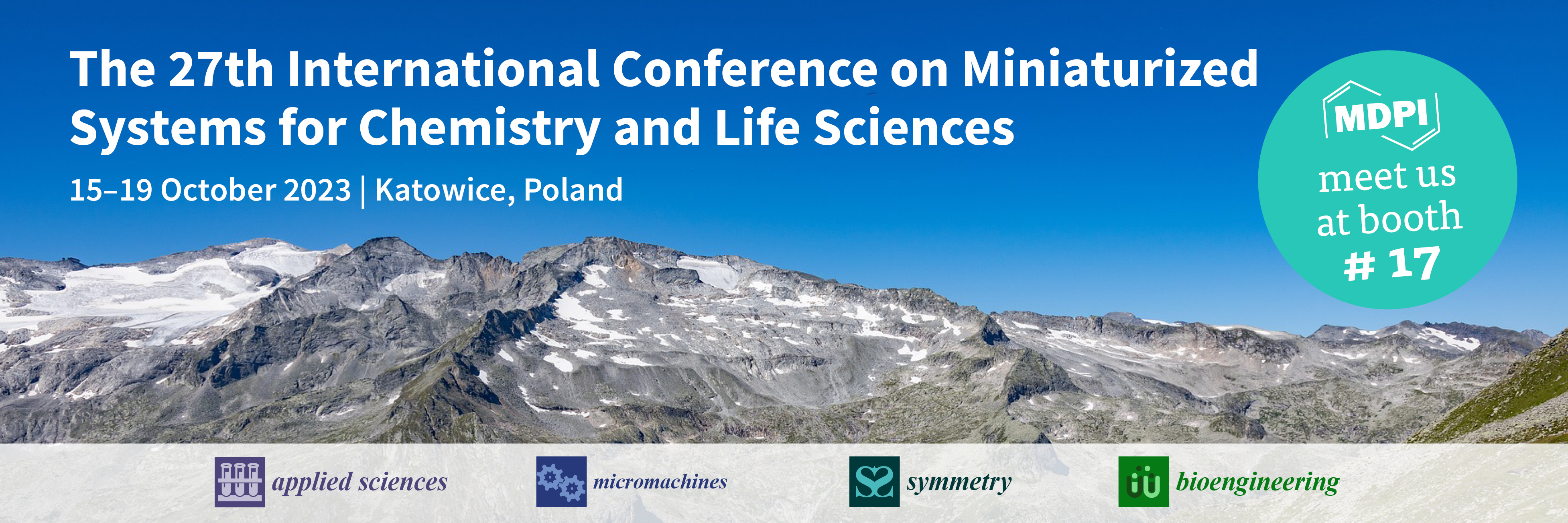
MDPI will attend the 27th International Conference on Miniaturized Systems for Chemistry and Life Sciences (µTAS 2023). µTAS 2023 continues an international conference series that is the premier forum for reporting research results in microfluidics, microfabrication, nanotechnology, integration, materials and surfaces, analysis and synthesis, and detection technologies for the life sciences and chemistry. The conference offers plenary and invited talks, expansive poster sessions, networking forums, and an array of industry exhibitions, as well as numerous contributed oral and poster presentations selected from submitted abstracts.
The conference anticipates over 1000 scientists, trainees, and industry professionals from around the globe will once again share advances regarding integrated microsystems and nanotechnology for chemistry and life sciences in person.
The following MDPI journals will be represented:
If you plan on attending this conference, please feel free to stop by our booth #17 and start a conversation with us. Our delegates look forward to meeting you in person and answering any questions that you may have. For more information about the conference, please visit https://microtas2023.org/.
22 September 2023
Meet Us at the 45th Annual Meeting of Japanese Society of Biomaterials, 6–7 November 2023, Kobe, Japan
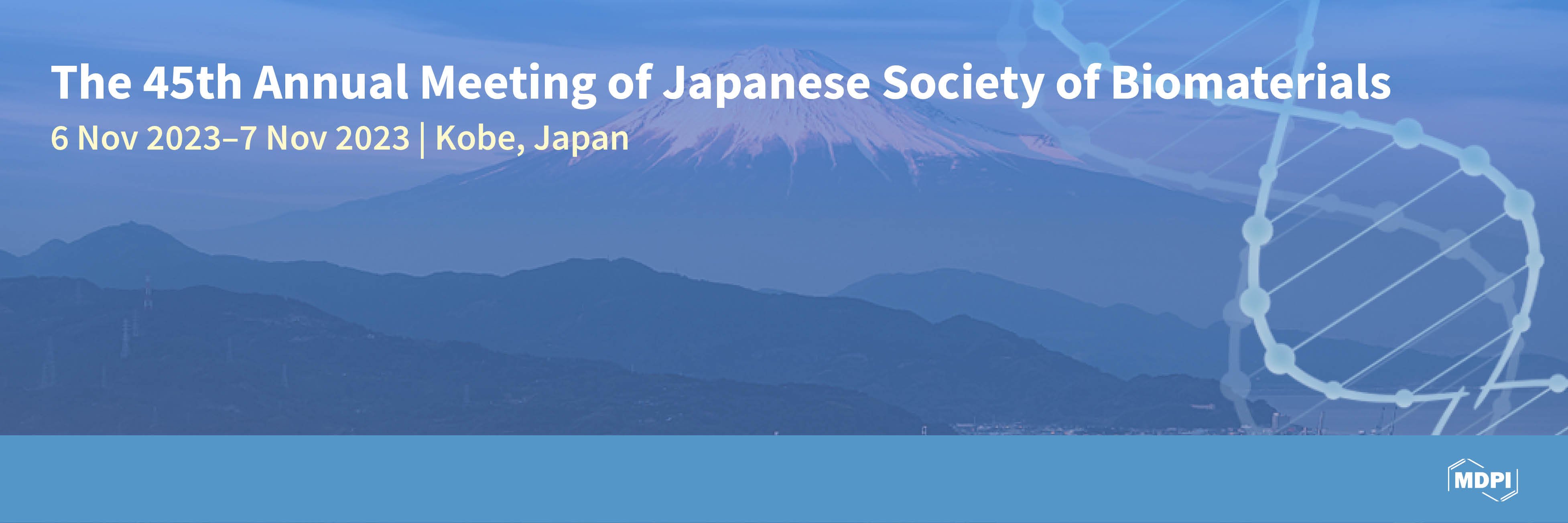
The 45th Annual Meeting of Japanese Society of Biomaterials will be held from 6 to 7 November 2023 at the Kobe International Conference Center (Kobe, Hyogo, Japan). The conference focuses on the current technological advancement and development of biomaterials, as well as cutting-edge materials to solve the various problems with which modern society is confronted. The conference invites all researchers in the life science, engineering, medical device, and other industries to join.
The following MDPI journals will be represented at the conference:
- Bioengineering;
- Gels;
- JFB;
- Polymers.
If you are planning to attend this conference, please feel free to start an online conversation with us. Our delegates look forward to meeting you in person and answering any questions that you may have. For more information about the conference, please visit the following link: https://lynx-dent.jp/jsb45/.
18 September 2023
Meet Us at the 16th IFToMM World Congress (WC2023), 5–10 November 2023, Tokyo, Japan
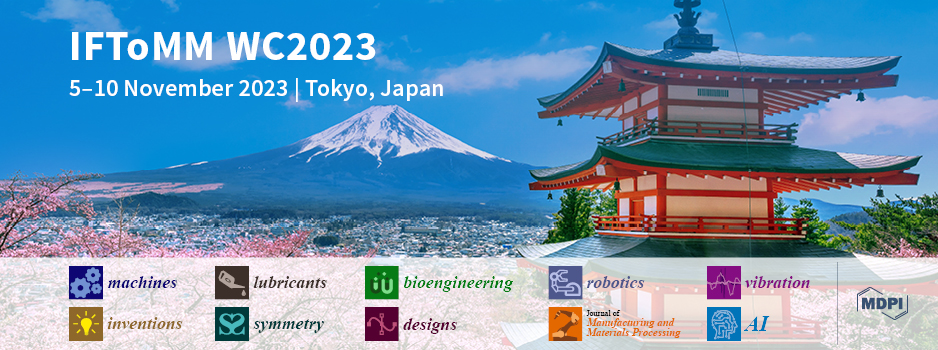
MDPI will be attending the 16th IFToMM World Congress (WC2023), which will be held from 5 to 10 November 2023 in Tokyo, Japan.
The organizing committee of the 16th World Congress of the International Federation for the Promotion of Mechanism and Machine Science is very pleased to welcome you to Tokyo.
The IFToMM World Congress is held every 4 years and is the largest congress on mechanism and machine science. It provides an opportunity for researchers, scholars and students with interests in the theory and use of mechanisms and machines for sharing new ideas and experiences and discussing future developments.
The following MDPI journals will be represented:
- Machines;
- Lubricants;
- Bioengineering;
- Robotics;
- Vibration;
- Inventions;
- Symmetry;
- Designs;
- JMMP;
- AI.
If you plan to attend this conference, please feel free to start a conversation with us. Our delegates look forward to meeting you in person and answering any questions that you may have. For more information about the conference and our booth, please visit the following link: http://wc2023.jc-iftomm.org/.
6 September 2023
Recap of Awards Granted to Scholars in 2022
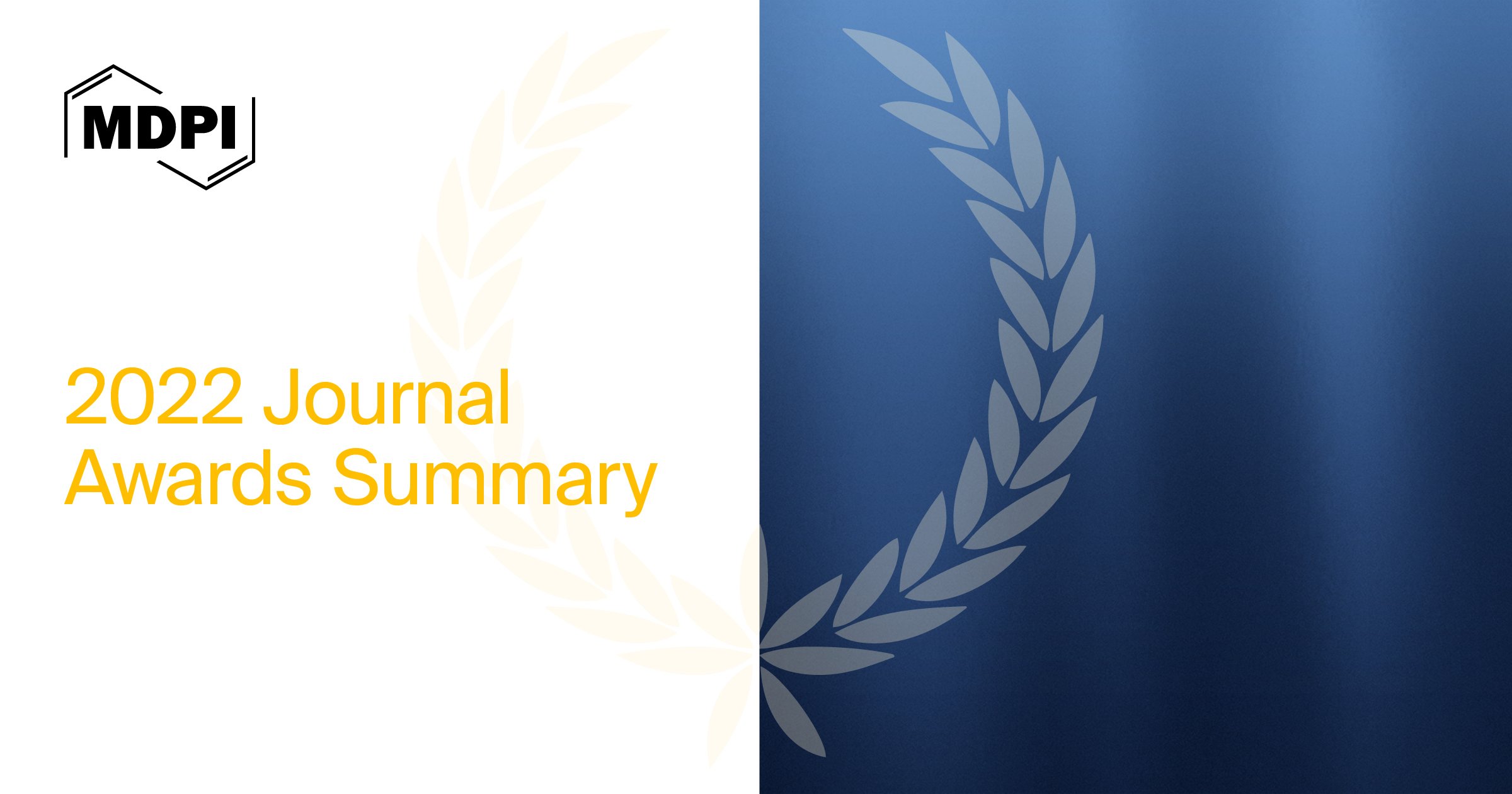
MDPI is committed to supporting the academic community, nurturing talent and advancing science. Awards are an important part of the research landscape and play a vital role in helping academics gain recognition, especially young researchers as they embark on new research avenues.
In 2022, our journals presented a total number of 394 Awards, including Travel Awards, Young Investigator Awards, Best PhD Thesis Awards, Best Paper Awards, and Outstanding Reviewer Awards, with several winners announced for some of the awards. The total prize sum amounted to just under 580,000 Swiss francs (CHF), or approximately 650,000 US dollars. Overall, more than 720 scholars were awarded.
The majority of the awards were dedicated to young researchers in relatively early stages of their careers. This encompassed 66 of the afore-mentioned Travel Awards, 60 Young Investigator Awards, supporting research projects and conference attendance, as well as 51 Best PhD Thesis Awards. Additionally, 113 Best Paper Awards were given by our journals. The selection committees were entrusted with identifying the most impactful and novel research and review articles published in their journal within a given year.
MDPI will continue its support and recognition for the academic community moving forward, sponsoring new awards across disciplines. To learn more about all the awardees and their research projects in your field of study, please visit the following pages:
To explore more MDPI awards, please click here.
5 September 2023
Meet Us at the 16th China Pharmaceutical Preparations Conference, 15–17 September 2023, Changsha, China

The upcoming conference is the 16th so far, and it has become an important conference in the field of pharmaceutical research in China. The theme of this formulation conference is "New Technologies, New Opportunities, and New Challenges" which will be held in Changsha, China. Experts from various fields and directions in pharmacy at home and abroad will be invited to conduct exchanges and discussions on theoretical research, technology applications, policies, and regulations on pharmaceutical formulations. In addition to the main venue, the conference also has a basic pharmacy forum (targeted drug delivery strategy, controlled release strategy), industrial pharmacy forum, International Controlled Release Association China Branch Forum, external preparations forum, improved new drugs and clinical research forum, medicinal excipients and pharmaceutical packaging materials forum, preparation R&D services and equipment forum, young pharmaceutical workers forum, graduate student forum, and other sub-venues.
Pharmaceutics (ISSN: 1999-4923) is a peer-reviewed, open access journal on the science and technology of pharmaceutics and biopharmaceutics, and it is published monthly online by MDPI. Pharmaceutics will participate in this event as an exhibitor together with seven other MDPI journals.
The following MDPI journals will be represented:
- Pharmaceutics (leading);
- Biomedicines;
- Medicina;
- Hematology Reports;
- Polymers;
- Future Pharmacology;
- Pharmacy;
- Bioengineering.
If you are attending this conference, please feel free to start a conversation with us at our booth #A39. Our delegates look forward to meeting you in person and answering any questions that you may have.
For more information, please feel free to contact the Pharmaceutics Editorial Office at pharmaceutics@mdpi.com.
1 September 2023
Meet Us at the Tissue Engineering and Regenerative Medicine International Society (TERMIS–AP) Conference, 16–19 October 2023, Hong Kong, China
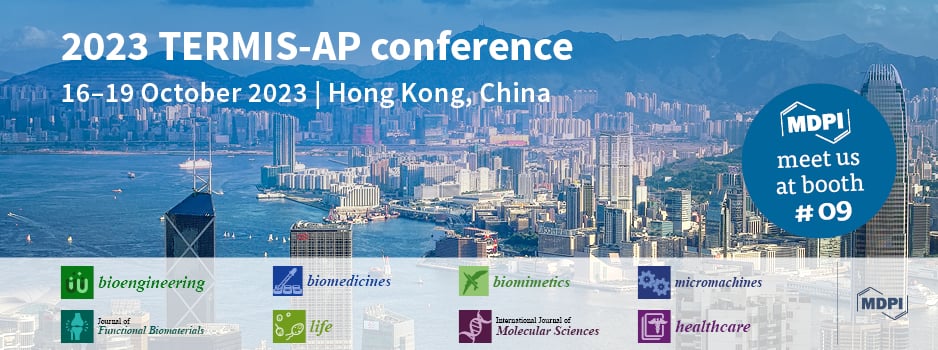
MDPI will attend the Tissue Engineering and Regenerative Medicine International Society (TERMIS-AP) conference, which will be held from 16 to 19 October 2023 at the Hong Kong Science Park, Hong Kong, China. The mission of TERMIS–AP is to provide a platform for the generation and dissemination of knowledge and interactions across a range of expertise for the advancement of basic, translational, and clinical research.
The conference will comprise various topics that provide comprehensive coverage of diverse issues in current tissue engineering and regenerative medicine under the main theme of “New Chapter of Future Regenerative Medicine”.
The following MDPI journals will be represented:
If you plan on attending this conference, please feel free to stop by our booth #09 and start a conversation with us. Our delegates look forward to meeting you in person and answering any questions that you may have. For more information about the conference, please visit https://ap2023.termis.org/.
30 August 2023
MDPI Insights: The CEO’s Letter #3 - Sustainability and Co-opetition

Welcome to the MDPI Insights: The CEO's Letter.
In these monthly letters, I will showcase two key aspects of our work at MDPI: our commitment to empowering researchers and our determination to facilitating open scientific exchange.
Opening Thoughts

Our Commitment to Sustainability
As a pioneer in academic open access publishing since 1996, MDPI has always been dedicated to facilitating scientific exchange across all disciplines. Our approach to open science is guided by principles such as Open Access (OA), Timeliness and Efficiency, Simplicity, High-Quality Service, Flexibility, and a commitment to Sustainability. This commitment involves preserving published papers for the long term and supporting the future of science through partnerships, sponsorships, and awards.
In this edition of the CEO Letter, I will delve into MDPI’s various sustainability initiatives. As a leader in OA publishing, we are able to provide the public with a significant amount of environment-related content at no cost.
MDPI and the Sustainable Development Goals (SDGs)
In 2020, the SDG Publishers Compact was launched to accelerate implementation of the SDGs by promoting content that informs, develops, and inspires action. MDPI joined this initiative in 2021 and subsequently launched the MDPI SDG Hub in 2022, offering free access to recent research within the scope of each of the 17 SDGs. We also support authors from underrepresented communities by waiving publication charges for selected SDG-related papers. Detailed sustainability practices and supported publications are available in the report under each Goal page.
“More than 80% of MDPI articles and reviews published in 2022 relate to the Sustainable Development Goals.” [source: InCites, Accessed on 21.08.2023]
As at August 2023, MDPI boasts 14 journals dedicated to sustainability-related topics. Our first journal in this area, Sustainability, has published over 29,000 articles on the SDGs, accumulating over 240,000 citations (source: InCites, as at 1 January 2023). These journals serve as vital platforms for researchers to share insights and address environmental challenges. In addition:
MDPI journals specializing in sustainability-related topics:
- 2009: Sustainability
- 2012: Resources
- 2013: Climate
- 2014: Environments
- 2016: Recycling
- 2019: Clean Technologies
- 2020: Sustainable Chemistry
- 2021: Wind, Biomass, Conservation, Pollutants, Solar
- 2022: Waste, Microplastics
Read more:
Impactful Research

Highly Cited Articles in Sustainability
In 2022, content published in Sustainability and indexed in Journal Citation Reports (JCR) received nearly 190,000 citations. This highlights the fact that Sustainability publishes highly cited research articles related to environmental sciences and SDG-related topics such as climate action.
We are pleased to share that Sustainability received a 2022 CiteScore of 5.8, marking a 16% increase from the 2021 metric. Specifically, the CiteScore positions Sustainability as follows: Q1 (27 out of 163) in the “Environmental Science (miscellaneous)” category, and Q1 (101 out of 779) in the “Geography Planning and Development” category. For additional journal statistics, please visit here.
“Sustainability received a 2022 CiteScore of 5.8”
While MDPI journals such as Climate and Atmosphere have a distinct focus on atmosphere pollution and its impact on climate processes, journals like Sustainability, Environments, Water, Remote Sensing, and IJERPH publish content related to climate change. These journals have published over 32,300 articles related to SDG 13: Climate Action.
Highly Cited Papers in Sustainability
Below are several highly cited papers published in Sustainability over the past three years. Citation metrics are current as at 15 August 2023.
1. “A Global Assessment: Can Renewable Energy Replace Fossil Fuels by 2050?”Authors: Jerry L. Holechek, Hatim M. E. Geli, Mohammed N. Sawalhah, and Raul Valdez
Sustainability 2022, 14(8), 4792; https://doi.org/10.3390/su14084792
Citations: Crossref (97), Scopus (91), Web of Science (82), Google Scholar (125)
This paper addresses one of the most significant challenges of climate change – achieving Net Zero Carbon by 2050. The meta-analysis suggests that while difficult, this transition is possible through the concerted application of pathways, lifestyle changes, and global cooperation.
2. “Anxiety and the Ecological Crisis: An Analysis of Eco-Anxiety and Climate Anxiety”Author: Panu Pihkala
Sustainability 2020, 12(19), 7836; https://doi.org/10.3390/su12197836
Citations: Crossref (144), Scopus (121), Web of Science (159), Google Scholar (382)
This paper has received substantial media attention, including coverage by The Guardian, BBC, Vice, and CNBC. An interview with Dr. Panu Pihkala, a leading interdisciplinary researcher on the topic, can be found on MDPI’s podcast: Insight Faster, Episode 1.
3. “Impact of Climate Change on Agriculture and Its Mitigation Strategies: A Review”Authors: Gurdeep Singh Malhi, Manpreet Kaur, and Prashant Kaushik
Sustainability 2021, 13(3), 1318; https://doi.org/10.3390/su13031318
Citations: Crossref (207), Scopus (221), Web of Science (186), Google Scholar (355)
This paper reviews literature on climate change, addressing its causes, future projections, impact on agriculture, including plant physiology, growth, productivity, pest infestation, and the economic implications of mitigation strategies.
4. “Impacts of Plastic Pollution on Ecosystem Services, Sustainable Development Goals, and Need to Focus on Circular Economy and Policy Interventions”Authors: Rakesh Kumar, Anurag Verma, Arkajyoti Shome, Rama Sinha, Srishti Sinha, Prakash Kumar Jha, Ritesh Kumar, Pawan Kumar, Shubham, Shreyas Das, Prabhakar Sharma, and P. V. Vara Prasad
Sustainability 2021, 13(17), 9963; https://doi.org/10.3390/su13179963
Citations: Crossref (134), Scopus (136), Web of Science (113), Google Scholar (184)
This review aims to assess the adverse effects of plastic pollution on ecosystems, link the management of plastic with the SDGs, and propose policy measures using transdisciplinary approaches. Empowering communities to reduce plastic use is crucial. Addressing global plastic pollution is a priority.
Sustainability is an international, cross-disciplinary, open access journal that explores environmental, cultural, economic, and social sustainability of human beings. It provides a forward-looking platform for research on sustainability and sustainable development, and is published semi-monthly online by MDPI. Sustainability is affiliated with The Canadian Urban Transit Research & Innovation Consortium (CUTRIC) and The International Council for Research and Innovation in Building and Construction (CIB).
Read more:
- Testimonials: See what our editors and authors say about Sustainability.
Inside MDPI

President of Ireland Authors Editorial in MDPI Journal Sustainability
It’s a very special occasion when the president of a country takes the initiative to write an editorial for a journal. Michael D. Higgins, President of the Republic of Ireland, has contributed his insights to a forthcoming Special Issue in Sustainability:

This Special Issue, focusing on “making sustainable development happen” at grassroots levels, allows for perspectives from, and on, the major world faiths, exploring how challenges have been conceptualised and addressed, in addition to case studies of faith-based sustainability initiatives in practice.
The experience of faith institutions and communities in translating theological and moral commitments to sustainable development into action is now a topic we must examine with urgency; one on which I am so glad this Special Issue focuses.
As President of Ireland, I very much support this Special Issue of Sustainability. It is my great hope that the contents of the papers contained herein will assist in making sustainable development happen at grassroots levels across the world so that we can cooperate together, people of faith and of none, to ensure a just, inclusive and sustainable future for all on our fragile planet.
Read the completed editorial here:
Special Issue “Faith and Sustainable Development: Exploring Practice, Progress and Challenges among Faith Communities and Institutions”: Foreword by the President of Ireland
Author: Michael D. Higgins
Sustainability 2023, 15(12), 9683; https://doi.org/10.3390/su15129683
Coming Together for Science

The World Sustainability Forum 2023
The World Sustainability Forum (WSF) is a biennial MDPI event focused on sustainability. WSF 2023 marks the tenth anniversary of the conference series, taking place on 14 September. For the first time, the event will be hosted as a 24-hour conference across three locations – Singapore, Basel in Switzerland, and Toronto in Canada – alongside virtual streaming.
This unique format allows us to span three time zones, providing live coverage of critical sustainability-related topics throughout the day:
- The Singapore Hub, chaired by Professor Horn Mun Cheah and Associate Professor Renee Tan, will explore “Sustainability for Social and Community Impact”.
- The Basel Hub, chaired by Prof. Dr. Anet Režek Jambrak and Dr. Lela Mélon, will delve into “Sustainability in the industry, and at university and corporate settings”.
- The Toronto Hub, led by Dr. Umberto Berardi, will discuss “The Sustainable Built Environment”.
MDPI Sustainability Foundation: Recognizing Excellence in Sustainability Research
The MDPI Sustainability Foundation supports researchers through two sustainability-focused awards:
- The World Sustainability Award, amounting to USD 100,000, is given to senior researchers.
- The Emerging Sustainability Leader Award, valued at USD 20,000, sponsored by the journal Sustainability, is presented to early-career researchers.
The winners of the Sustainability Foundation will be formally awarded during the WSF2023 on 14 September. Interviews with the award winners and finalists are available below.
2023 World Sustainability Award Winners
Interviews with 2023 Emerging Sustainability Leader Award Finalists
- Dr. Bahareh Kamranzad
- Dr. Youjin Kim
- Dr. Julia Lohmann
As a hybrid event, WSF23 provides scholars with the option to attend in person at one of the conference sites or, for a more sustainable approach, virtually. All sessions will be recorded and archived for future access. Registration is open until 3 September 2023, with in-person and virtual tickets available here.
Read more:
Closing Thoughts
“Co-opetition”: Collaboration Plus Healthy Competition – A Visit to Elsevier
I firmly believe in fostering collaboration and at the same time promoting healthy competition within the academic publishing industry. The market offers ample room for publishers and related companies to provide valuable services and products that enrich the academic community. While MDPI is recognized for its efficient and streamlined processes –thanks to our over 6,000 colleagues, in-house tools, and initiatives that support the author journey – our ethos has always involved learning from and collaborating with other organizations.
MDPI’s Interaction with Elsevier
In January 2023, I had a brief conversation with Judy Verses, President of Global Academic and Government Markets at Elsevier, following her participation in a panel discussion at the Academic Publishers Europe event in Berlin. One of the highlights for me was Judy’s insight into the impact of research, particularly her emphasis on the role of collaboration, including policy and showing the impact of research to influence on funding decisions.
“Such collaborations drive forward-looking strategies to elevate our support for the scholarly community”

Judy and I resumed our discussion in August, when I visited Elsevier's office to review current projects, such as our recent agreement with Science Direct and the continued indexing of MDPI journals in Scopus (indexing database owned by Elsevier). We also explored possible opportunities for the future, including a potential collaboration to expand MDPI’s Scilit data infrastructure. This endeavour aims to aggregate and provide access to scholarly metadata encompassing journal articles, conference papers, books, preprints, and more. While these discussions are ongoing, the underlying principle remains that such collaborations drive forward-looking strategies to elevate our services and support for the scholarly community.
It was great that Judy and I acknowledged the merits of 'co-opetition,' a concept based of the belief that fostering cooperation alongside healthy competition can lead to shared advancements for both individual companies and the industry at large.
‘Fully OA’ Organizations Dedicated to Open Access

MDPI proudly aligns with the ‘Fully OA’ group, a collaborative initiative comprising nine organizations dedicated to Open Access. Our monthly meetings, including an OASPA representative, serve as platforms to share non-confidential information, resources, and projects. These gatherings also facilitate discussions on topics relevant to fully OA organizations. Occasionally, joint actions spring from these interactions, such as collaborative blog posts on pertinent subjects and joint statements, such as a recent response to the House Appropriations Committee.
This display of cooperation among competing entities forms a strategic alliance focused on nurturing the best interests of the OA publishing model.
As I wrap up this third edition of the CEO Letter, I encourage you to seize opportunities for collaboration and contribute to advancing our shared academic culture. As the African proverb has it, “If you want to go fast, go alone; if you want to go far, go together.”
Chief Executive Officer
MDPI AG
18 August 2023
Meet Us at the 2023 China Biomaterials Conference, 12–15 October 2023, Chongqing, China
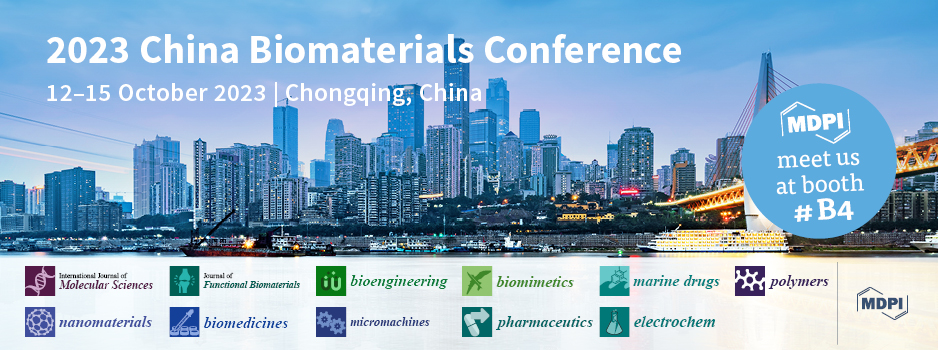
Conference: 2023 China Biomaterials Conference (CSBM2023)
Date: 12–15 October 2023
Booth: #B4
MDPI journals will be attending the 2023 China Biomaterials Conference (CSBM2023) as an exhibitor. This meeting will be held in Chongqing, China, from 12 to 15 October 2023.
The theme of the conference is “Innovative Biomaterials to Protect People's Health”, focusing on the frontiers of biomaterials science, technological innovation, achievement transformation, regulatory science, etc., to discuss and share the latest developments in the current field of biomaterials.
The following MDPI journals will be represented:
- IJMS;
- JFB;
- Bioengineering;
- Biomimetics;
- Marine Drugs;
- Polymers;
- Nanomaterials;
- Biomedicines;
- Micromachines;
- Pharmaceutics;
- Electrochem.
If you plan on attending this conference, please feel free to stop by our booth (#B4) and speak with us. Our delegates look forward to meeting you in person and answering any questions that you may have.
For more information about the conference, please visit http://2023.csbm.org.cn/index.php/index/index/index.html.
16 August 2023
Bioengineering | Hot Papers in the Field of Organ-on-a-Chip
One of the groundbreaking advancements in modern technology is the field of organ-on-a-chip in the realm of bioengineering. This innovative technique, by emulating the structure and functionality of human organs, presents unprecedented opportunities in areas such as drug screening, disease research, and personalized medicine. Organ-on-a-chip is a miniature biologically based microchip that enables biological experiments within a simulated microenvironment of human organs. Through the precise manipulation of cellular interactions, biomaterials, and fluids, organ-on-a-chip can mimic the physiological functions and pathological processes of human organs, providing a more reliable tool for disease research and drug development. In this context, we are pleased to feature some recently published papers centered around the topic of organ-on-a-chip in Bioengineering (ISSN: 2306-5354). These publications encompass various organs and disease domains. These articles showcase the potential of organ-on-a-chip in disease modeling, drug screening, and personalized medicine, while also exploring its value in biological research and medical applications.
1. “A Review of Biomaterials and Scaffold Fabrication for Organ-on-a-Chip (OOAC) Systems”
by Luana A. Osório, Elisabete Silva and Ruth E. Mackay
Bioengineering 2021, 8(8), 113; https://doi.org/10.3390/bioengineering8080113
Available online: https://www.mdpi.com/2306-5354/8/8/113
2. “Versatile Vessel-on-a-Chip Platform for Studying Key Features of Blood Vascular Tumors”
by Marina Llenas, Roberto Paoli, Natalia Feiner-Gracia, Lorenzo Albertazzi, Josep Samitier and David Caballero
Bioengineering 2021, 8(6), 81; https://doi.org/10.3390/bioengineering8060081
Available online: https://www.mdpi.com/2306-5354/8/6/81
3. “Multi-Compartment Lymph-Node-on-a-Chip Enables Measurement of Immune Cell Motility in Response to Drugs”
by Nicholas Hallfors, Aya Shanti, Jiranuwat Sapudom, Jeremy Teo, Georg Petroianu, SungMun Lee, Lourdes Planelles and Cesare Stefanini
Bioengineering 2021, 8(2), 19; https://doi.org/10.3390/bioengineering8020019
Available online: https://www.mdpi.com/2306-5354/8/2/19
4. “Organ-On-A-Chip Database Revealed—Achieving the Human Avatar in Silicon”
by Lincao Jiang, Qiwei Li, Weicheng Liang, Xuan Du, Yi Yang, Zilin Zhang, Lili Xu, Jing Zhang, Jian Li, Zaozao Chen et al.
Bioengineering 2022, 9(11), 685; https://doi.org/10.3390/bioengineering9110685
Available online: https://www.mdpi.com/2306-5354/9/11/685
5. “Organ on Chip Technology to Model Cancer Growth and Metastasis”
by Giorgia Imparato, Francesco Urciuolo and Paolo Antonio Netti
Bioengineering 2022, 9(1), 28; https://doi.org/10.3390/bioengineering9010028
Available online: https://www.mdpi.com/2306-5354/9/1/28
6. “Application of Micro-Engineered Kidney, Liver, and Respiratory System Models to Accelerate Preclinical Drug Testing and Development”
by Hanieh Gholizadeh, Shaokoon Cheng, Agisilaos Kourmatzis, Hanwen Xing, Daniela Traini, Paul M. Young and Hui Xin Ong
Bioengineering 2022, 9(4), 150; https://doi.org/10.3390/bioengineering9040150
Available online: https://www.mdpi.com/2306-5354/9/4/150
7. “A Biomimetic Electrospun Membrane Supports the Differentiation and Maturation of Kidney Epithelium from Human Stem Cells”
by Xingrui Mou, Jessica Shah, Rohan Bhattacharya, Titilola D. Kalejaiye, Bowen Sun, Po-Chun Hsu and Samira Musah
Bioengineering 2022, 9(5), 188; https://doi.org/10.3390/bioengineering9050188
Available online: https://www.mdpi.com/2306-5354/9/5/188
8. “Recent Advances in Drug Delivery System Fabricated by Microfluidics for Disease Therapy”
by Fuhao Jia, Yanbing Gao and Hai Wang
Bioengineering 2022, 9(11), 625; https://doi.org/10.3390/bioengineering9110625
Available online: https://www.mdpi.com/2306-5354/9/11/625
9. “A Bioprinted Heart-on-a-Chip with Human Pluripotent Stem Cell-Derived Cardiomyocytes for Drug Evaluation”
by Alan Faulkner-Jones, Victor Zamora, Maria P. Hortigon-Vinagre, Wenxing Wang, Marcus Ardron, Godfrey L. Smith and Wenmiao Shu
Bioengineering 2022, 9(1), 32; https://doi.org/10.3390/bioengineering9010032
Available online: https://www.mdpi.com/2306-5354/9/1/32
10. “Organs-on-Chips Platforms Are Everywhere: A Zoom on Biomedical Investigation”
by Mohamed Zommiti, Nathalie Connil, Ali Tahrioui, Anne Groboillot, Corinne Barbey, Yoan Konto-Ghiorghi, Olivier Lesouhaitier, Sylvie Chevalier and Marc G. J. Feuilloley
Bioengineering 2022, 9(11), 646; https://doi.org/10.3390/bioengineering9110646
Available online: https://www.mdpi.com/2306-5354/9/11/646
16 August 2023
MDPI’s 2022 Young Investigator Awards in Engineering—Winners Announced

MDPI’s Young Investigator Awards recognize promising junior researchers, acknowledge their contributions, and enhance communication among scientists. We are proud to present the winners for the year 2022 in the engineering category. The winners were selected by the journals’ Award Evaluation Committee.
We warmly congratulate the following young investigators for their outstanding contributions. MDPI will continue to provide support and recognition to the academic community.
- Yi Zhang, University of Electronic Science and Technology, China
- Lin Ma, University of North Carolina at Charlotte, USA
- Stefano Cinti, University of Naples Federico II, Italy
- Umberto Berardi, Toronto Metropolitan University, Canada
- Benedetto Nastasi, Sapienza University of Rome, Italy
- Do Kyun Kim, Seoul National University, Republic of Korea
- Fernando Bento, University of Beira Interior, Portugal
- Goshtasp Cheraghian, Humboldt University of Berlin, Germany
- Roman Mykhailyshyn, The University of Texas at Austin, USA
- Pingan Zhu, City University of Hong Kong, China
- Viknesh Andiappan, the Swinburne University of Technology Sarawak Campus, Malaysia
- Wenzhuo Wu, Purdue University, USA
About MDPI Awards:
In order to reward the academic community, especially young researchers and enhance communication among scientists, MDPI journals regularly offer various awards to researchers in specific fields. These awards, serving as a source of inspiration and recognition, help raise the influence of talented individuals who have been credited with outstanding achievements and are making a significant contribution to the advancement of their fields.
To explore more MDPI awards, please click here.
16 August 2023
MDPI’s 2022 Travel Awards in Engineering—Winners Announced
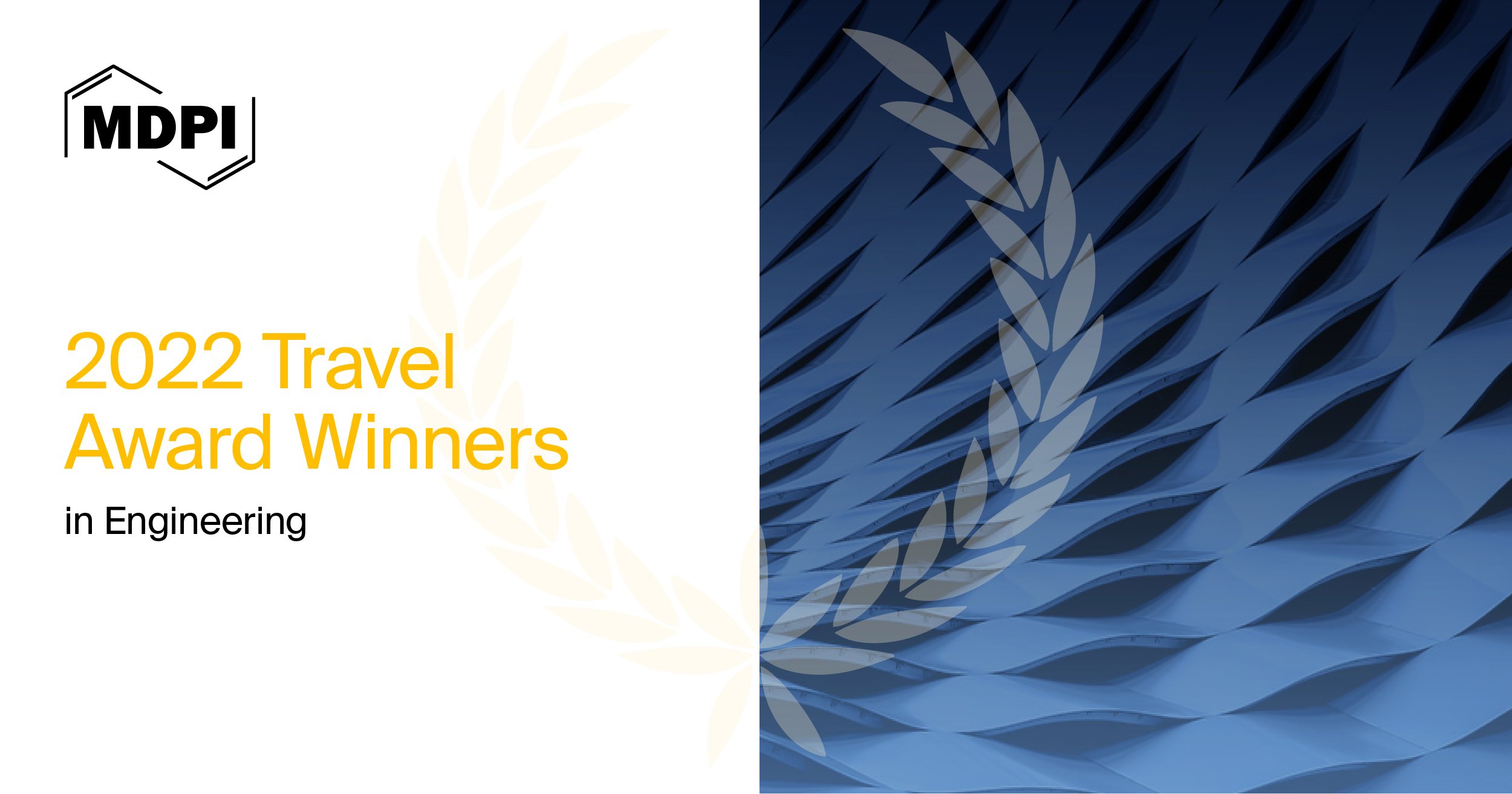
We are proud to recognize the winners of MDPI’s 2022 Travel Awards in the engineering category for their outstanding presentations.
MDPI journals regularly offer travel awards to encourage junior scientists to present their latest research at academic conferences in specific fields, which helps to increase their influence.
The winners mentioned below were carefully selected by the journal editors based on an outline of their research and the work to be presented at an academic conference.
We would like to warmly congratulate the winners of the 2022 Travel Awards and wish them the greatest success with their future research endeavors. MDPI will continue to enhance communication among scientists.
- Dmitry Kireev, University of Texas at Austin, USA
- Danilo D’Angela, University of Naples Federico II, Italy
- Jungsub Kim, Texas A&M University, USA
About MDPI Awards:
In order to reward the academic community, especially young researchers and enhance communication among scientists, MDPI journals regularly offer various awards to researchers in specific fields. These awards, serving as a source of inspiration and recognition, help raise the influence of talented individuals who have been credited with outstanding achievements and are making a significant contribution to the advancement of their fields.
To explore more MDPI awards, please click here.
16 August 2023
MDPI’s 2022 Outstanding Reviewer Awards in Engineering—Winners Announced
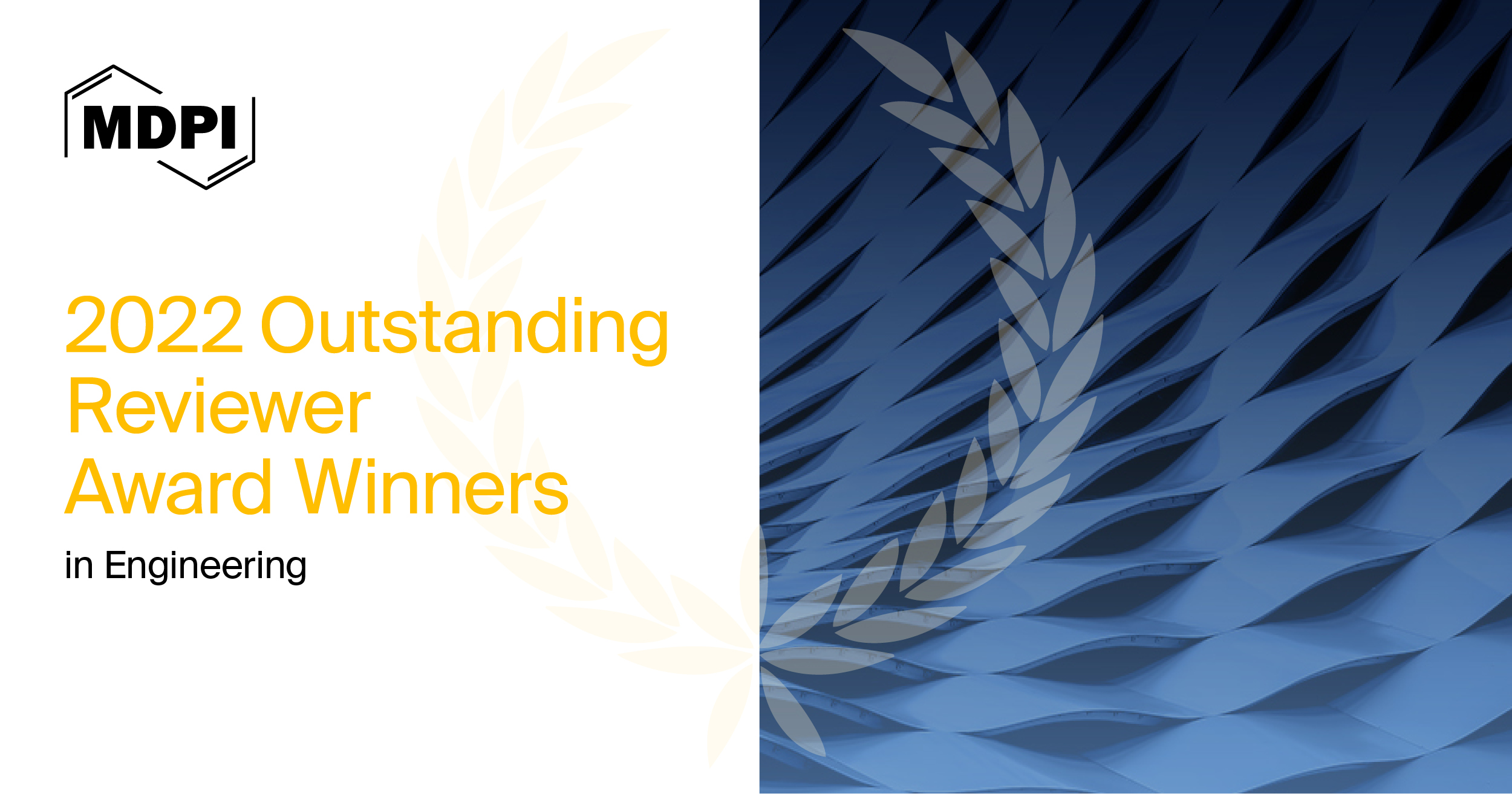
In order to acknowledge our reviewers, who demonstrate diligence, professionalism, and timeliness when generously dedicating their time to reviewing papers, MDPI journals regularly offer outstanding reviewer awards to scholars who participate in the peer review process.
We are proud to recognize the winners for the year 2022 in the engineering category for their outstanding contributions by presenting them with an Outstanding Reviewer Award.
We would like to take this opportunity to congratulate all of the winners on their achievements. MDPI will continue to provide support and recognition to the academic community.
- Chongjing Cao, Shenzhen Institute of Advanced Technology (SIAT), China
- Roman Mykhailyshyn, University of Texas at Austin, USA
- Chiranjibi Sitaula, Monash University, Australia
- Davide Forcellini, 1University of Auckland, New Zealand; 2University of San Marino, San Marino
- Giuseppe Ciaburro, Università degli Studi della Campania Luigi Vanvitelli, Italy
- Yang Song, Norwegian University of Science and Technology, Norway
- Xiaoming Liu, Beijing Institute of Technology, China
- Carlos Torres-Torres, Instituto Politécnico Nacional, Mexico
- Paolo Blecich, University of Rijeka, Croatia
- Łukasz Ścislo, Cracow University of Technology, Poland
- Giorgio Sonnino, Université Libre de Bruxelles (ULB), Belgium
- Luiz Antonio Alcântara Pereira, Federal University of Itajubá (UNIFEI), Brazil
- Cagatay Iris, University of Liverpool, United Kingdom
- Chiemela Victor Amaechi, Lancaster University, United Kingdom
- Denis Istrati, University of Nevada, USA
- Mai The Vu, Sejong University, Korea
- Mina Tadros, University of Lisbon, Portugal
- Chao Fu, Northwestern Polytechnical University, China
- Eduardo Suárez, Universidade de Vigo, Spain
- Jordi-Roger Riba, Universitat Politècnica de Catalunya, Spain
- Catalin Ianasi, Institute of Chemistry “Coriolan Dragulescu”, Romania
- Daniel Ferrández, Polytechnic University of Madrid, Spain
- Kamil Krzysztof Roman, Institute of Technology and Life Sciences in Warsaw, Poland
- Marcin Dębowski, University of Warmia and Mazury in Olsztyn, Poland
- Mariusz Szymanek, University of Life Sciences in Lublin, Poland
- Agustin L. Herrera-May, Universidad Veracruzana, Mexico
- Chiachung Chen, National Chung Hsing University, Taiwan
- Jae-Myung Ryu, Kumoh National Institute of Technology, Republic of Korea
- Sebastian Głowiński, Koszalin Technical University, Poland
- Wei Zhou, University of Waterloo, Canada
About MDPI Awards:
In order to reward the academic community, especially young researchers and enhance communication among scientists, MDPI journals regularly offer various awards to researchers in specific fields. These awards, serving as a source of inspiration and recognition, help raise the influence of talented individuals who have been credited with outstanding achievements and are making a significant contribution to the advancement of their fields.
To explore more MDPI awards, please click here.
16 August 2023
MDPI’s 2022 Best PhD Thesis Awards in Engineering—Winners Announced
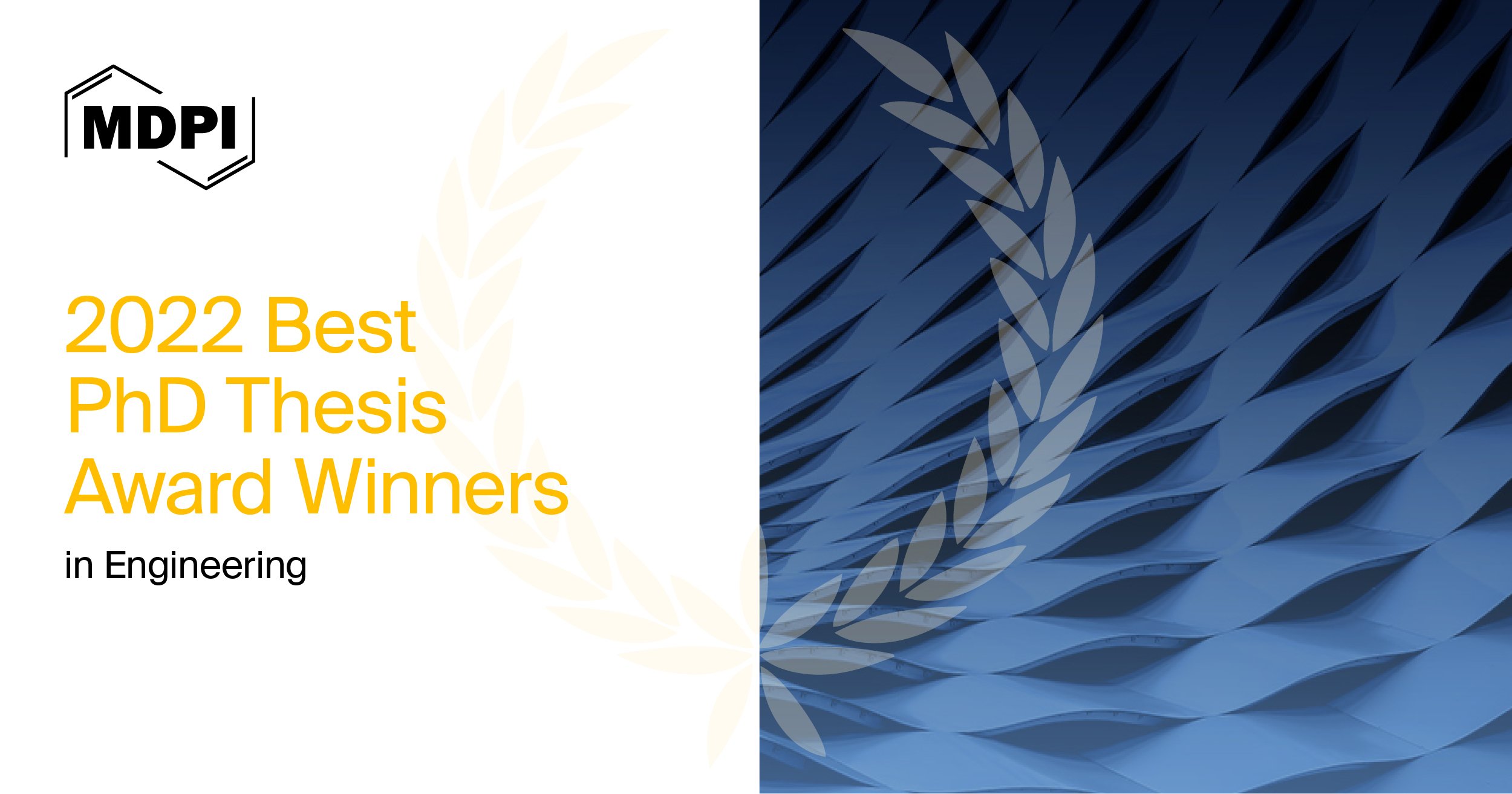
MDPI’s Best PhD Thesis Awards are presented to recognize the young scholars who are judged to have completed the most outstanding PhD thesis in their field of research and to encourage them to continue their excellent work and further contributions to their field.
We would like to warmly congratulate the winners of the 2022 Best PhD Thesis Awards and wish them success with their future research endeavors. MDPI will continue to enhance communication among scientists.
JMSE:
- “Mathematical Modelling of Wave-Induced Motions and Loads on Moored Offshore Structures”
by Changqing Jiang, University of Duisburg-Essen, Germany
- “Experimental Characterization of Frictional Hysteresis for Nonlinear Dynamic Analysis of Jointed Structures”
by Alfredo Fantetti, Imperial College London, UK
- “Sustainable Cultivation of Microalgae Biomass for Bioenergy Production”
by Angela Paul Peter, Xiamen University Malaysia, Malaysia
- “Studying Protein Function with Fluorescent Nanoantennas”
by Scott G. Harroun, Université de Montréal, Canada
About MDPI Awards:
In order to reward the academic community, especially young researchers and enhance communication among scientists, MDPI journals regularly offer various awards to researchers in specific fields. These awards, serving as a source of inspiration and recognition, help raise the influence of talented individuals who have been credited with outstanding achievements and are making a significant contribution to the advancement of their fields.
To explore more MDPI awards, please click here.
16 August 2023
MDPI’s Best Paper Awards in Engineering—Winners in 2022 Announced
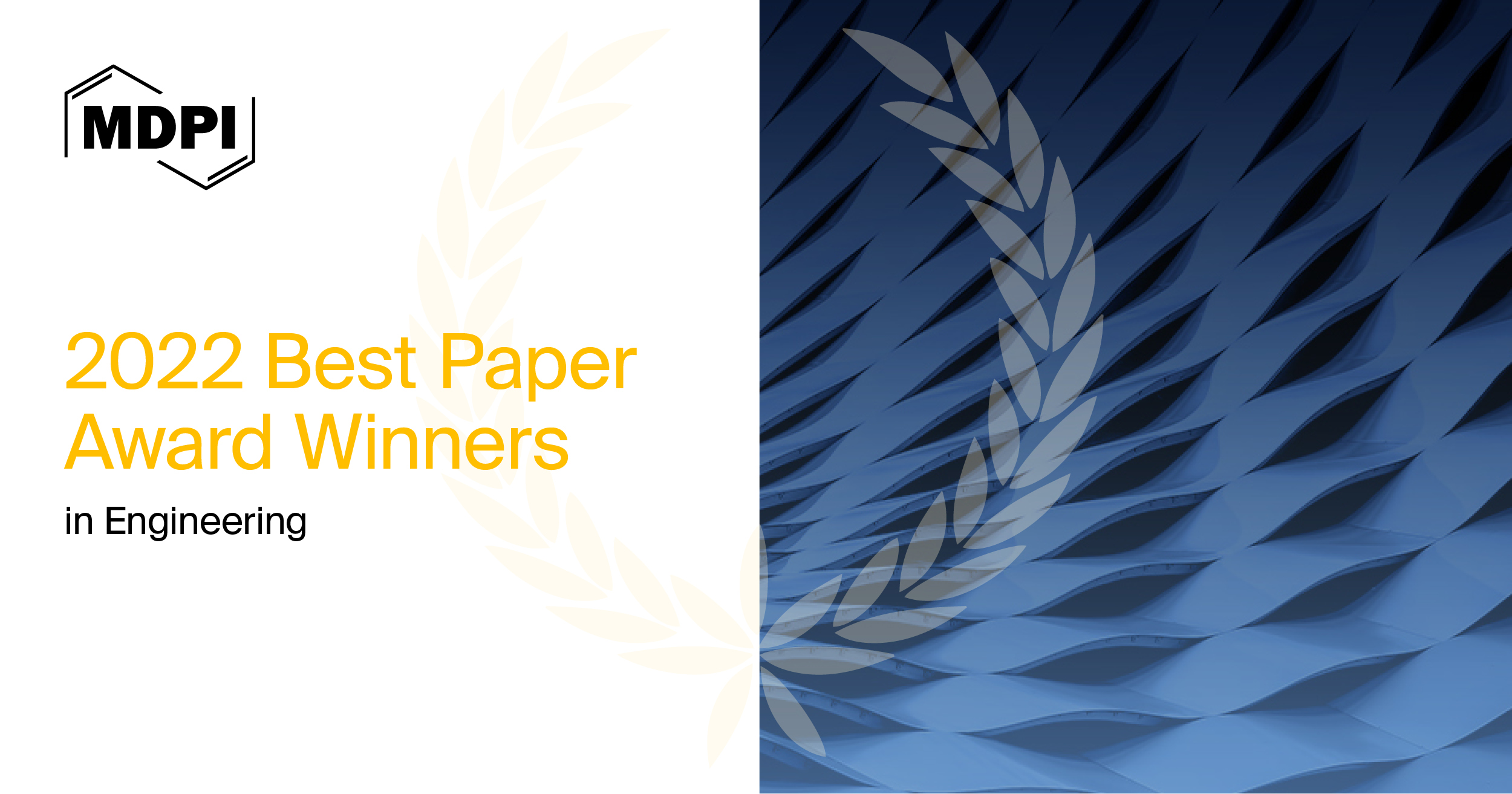
The purpose of our Best Paper Awards is to promote and recognize the most impactful contributions published within MDPI journals.
The editors of each journal carefully selected reviews and research papers through a rigorous judging process based on criteria such as scientific merit, overall impact, and the quality of presentation of the papers published in the journal.
We are honored to present the winners announced for the year 2022 in the engineering category, who were selected from extensive competition, and congratulate the authors for their outstanding scientific publications. MDPI will continue to provide support and recognition to the academic community.
- “Two-Way and Multiple-Way Shape Memory Polymers for Soft Robotics: An Overview”
by Giulia Scalet
Actuators 2020, 9(1), 10; https://doi.org/10.3390/act9010010
- “Low-Cost, Open-Source Mechanical Ventilator with Pulmonary Monitoring for COVID-19 Patients”
by Leonardo Acho, Alessandro N. Vargas and Gisela Pujol-Vázquez
Actuators 2020, 9(3), 84; https://doi.org/10.3390/act9030084
- “Styrenic-Rubber Dielectric Elastomer Actuator with Inherent Stiffness Compensation”
by Giacomo Moretti, Luca Sarina, Lorenzo Agostini, Rocco Vertechy, Giovanni Berselli and Marco Fontana
Actuators 2020, 9(2), 44; https://doi.org/10.3390/act9020044
- “Chromium(III) Removal from Wastewater by Chitosan Flakes”
by Loris Pietrelli, Iolanda Francolini, Antonella Piozzi, Maria Sighicelli, Ilaria Silvestro and Marco Vocciante
Appl. Sci. 2020, 10(6), 1925; https://doi.org/10.3390/app10061925
- “Unravelling the Environmental Application of Biochar as Low-Cost Biosorbent: A Review”
by Antía Fdez-Sanromán, Marta Pazos, Emilio Rosales and María Angeles Sanromán
Appl. Sci. 2020, 10(21), 7810; https://doi.org/10.3390/app10217810
- “Observation of Potential Contaminants in Processed Biomass Using Fourier Transform Infrared Spectroscopy”
by Jingshun Zhuang, Mi Li, Yunqiao Pu, Arthur Jonas Ragauskas and Chang Geun Yoo
Appl. Sci. 2020, 10(12), 4345; https://doi.org/10.3390/app10124345
- “Drug-Resistant Tuberculosis 2020: Where We Stand”
by Angelo Iacobino, Lanfranco Fattorini and Federico Giannoni
Appl. Sci. 2020, 10(6), 2153; https://doi.org/10.3390/app10062153
- “Real-Time Remote Maintenance Support Based on Augmented Reality (AR)”
by Dimitris Mourtzis, Vasileios Siatras and John Angelopoulos
Appl. Sci. 2020, 10(5), 1855; https://doi.org/10.3390/app10051855
- “Dielectric Elastomer Actuator for Soft Robotics Applications and Challenges”
by Jung-Hwan Youn, Seung Mo Jeong, Geonwoo Hwang, Hyunwoo Kim, Kyujin Hyeon, Jihwan Park and Ki-Uk Kyung
Appl. Sci. 2020, 10(2), 640; https://doi.org/10.3390/app10020640
- “Low-Cost Biochar Adsorbents for Water Purification Including Microplastics Removal”
by Virpi Siipola, Stephan Pflugmacher, Henrik Romar, Laura Wendling and Pertti Koukkari
Appl. Sci. 2020, 10(3), 788; https://doi.org/10.3390/app10030788
- “Microstructure and Mechanical Properties of AISI 316L Produced by Directed Energy Deposition-Based Additive Manufacturing: A Review”
by Abdollah Saboori, Alberta Aversa, Giulio Marchese, Sara Biamino, Mariangela Lombardi and Paolo Fino
Appl. Sci. 2020, 10(9), 3310; https://doi.org/10.3390/app10093310
- “Humans-as-a-Sensor for Buildings—Intensive Longitudinal Indoor Comfort Models”
by Prageeth Jayathissa, Matias Quintana, Mahmoud Abdelrahman and Clayton Miller
Buildings 2020, 10(10), 174; https://doi.org/10.3390/buildings10100174
- “Circular Building Design: An Analysis of Barriers and Drivers for a Circular Building Sector”
by Jouri Kanters
Buildings 2020, 10(4), 77; https://doi.org/10.3390/buildings10040077
- “Building Information Modelling (BIM) to Enhance Occupational Safety in Construction Activities: Research Trends Emerging from One Decade of Studies”
by Mario Fargnoli and Mara Lombardi
Buildings 2020, 10(6), 98; https://doi.org/10.3390/buildings10060098
- “A SWOT Analysis of the Use of BIM Technology in the Polish Construction Industry”
by Krzysztof Zima, Edyta Plebankiewicz and Damian Wieczorek
Buildings 2020, 10(1), 16; https://doi.org/10.3390/buildings10010016
- “Durability and Climate Change—Implications for Service Life Prediction and the Maintainability of Buildings”
by Michael A. Lacasse, Abhishek Gaur and Travis V. Moore
Buildings 2020, 10(3), 53; https://doi.org/10.3390/buildings10030053
- “Worker 4.0: The Future of Sensored Construction Sites”
by Diego Calvetti, Pedro Mêda, Miguel Chichorro Gonçalves and Hipólito Sousa
Buildings 2020, 10(10), 169; https://doi.org/10.3390/buildings10100169
- “A Review of Topology Optimisation for Fluid-Based Problems”
by Joe Alexandersen and Casper Schousboe Andreasen
Fluids 2020, 5(1), 29; https://doi.org/10.3390/fluids5010029
- “On the Deterministic Prediction of Water Waves”
by Marco Klein, Matthias Dudek, Günther F. Clauss, Sören Ehlers, Jasper Behrendt, Norbert Hoffman and Miguel Onorato
Fluids 2020, 5(1), 9; https://doi.org/10.3390/fluids5010009
- “On the Effect of Block Roughness in Ogee Spillways with Flip Buckets”
by Rasoul Daneshfaraz, Amir Ghaderi, Aliakbar Akhtari, Silvia Di Francesco
Fluids 2020, 5(4), 182; https://doi.org/10.3390/fluids5040182
- “Marine Application of Fiber Reinforced Composites: A Review”
by Felice Rubino, Antonio Nisticò, Fausto Tucci and Pierpaolo Carlone
J. Mar. Sci. Eng. 2020, 8(1), 26; https://doi.org/10.3390/jmse8010026
- “Numerical Simulation of Large Wave Heights from Super Typhoon Nepartak (2016) in the Eastern Waters of Taiwan”
by Shih-Chun Hsiao, Hongey Chen, Han-Lun Wu, Wei-Bo Chen, Chih-Hsin Chang, Wen-Dar Guo, Yung-Ming Chen and Lee-Yaw Lin
J. Mar. Sci. Eng. 2020, 8(3), 217; https://doi.org/10.3390/jmse8030217
- “Development of Deterministic Artificial Intelligence for Unmanned Underwater Vehicles (UUV)”
by Timothy Sands
J. Mar. Sci. Eng. 2020, 8(8), 578; https://doi.org/10.3390/jmse8080578
- “Effective Application of Solid Lubricants in Spacecraft Mechanisms”
by Jeffrey R. Lince
Lubricants 2020, 8(7), 74; https://doi.org/10.3390/lubricants8070074
- “High-Rate Laser Surface Texturing for Advanced Tribological Functionality”
by Jörg Schille, Lutz Schneider, Stefan Mauersberger, Sylvia Szokup, Sören Höhn, Johannes Pötschke, Friedemann Reiß, Erhard Leidich and Udo Löschner
Lubricants 2020, 8(3), 33; https://doi.org/10.3390/lubricants8030033
- “Size Sorting of Exosomes by Tuning the Thicknesses of the Electric Double Layers on a Micro-Nanofluidic Device”
by Satoko Fujiwara, Kyojiro Morikawa, Tatsuro Endo, Hideaki Hisamoto and Kenji Sueyoshi
Micromachines 2020, 11(5), 458; https://doi.org/10.3390/mi11050458
- “Additive Manufacturing of Sub-Micron to Sub-mm Metal Structures with Hollow AFM Cantilevers”
by Giorgio Ercolano, Cathelijn van Nisselroy, Thibaut Merle, János Vörös, Dmitry Momotenko, Wabe W. Koelmans and Tomaso Zambelli
Micromachines 2020, 11(1), 6; https://doi.org/10.3390/mi11010006
- “A Robotic Biopsy Endoscope with Magnetic 5-DOF Locomotion and a Retractable Biopsy Punch”
by Manh Cuong Hoang, Viet Ha Le, Kim Tien Nguyen, Van Du Nguyen, Jayoung Kim, Eunpyo Choi, Seungmin Bang, Byungjeon Kang, Jong-Oh Park and Chang-Sei Kim
Micromachines 2020, 11(1), 98; https://doi.org/10.3390/mi11010098
- “Development of Fully Flexible Tactile Pressure Sensor with Bilayer Interlaced Bumps for Robotic Grasping Applications”
by Lingfeng Zhu, Yancheng Wang, Deqing Mei and Chengpeng Jiang
Micromachines 2020, 11(8), 770; https://doi.org/10.3390/mi11080770
- “A mm-Sized Free-Floating Wireless Implantable Opto-Electro Stimulation Device”
by Yaoyao Jia, Yan Gong, Arthur Weber, Wen Li and Maysam Ghovanloo
Micromachines 2020, 11(6), 621; https://doi.org/10.3390/mi11060621
- “Advanced Bioethanol Production: From Novel Raw Materials to Integrated Biorefineries”
by Aleta Duque, Cristina Álvarez, Pablo Doménech, Paloma Manzanares and Antonio D. Moreno
Processes 2021, 9(2), 206; https://doi.org/10.3390/pr9020206
- “An Overview on Fault Diagnosis, Prognosis and Resilient Control for Wind Turbine Systems”
by Zhiwei Gao and Xiaoxu Liu
Processes 2021, 9(2), 300; https://doi.org/10.3390/pr9020300
- “Role of Microalgae in the Recovery of Nutrients from Pig Manure”
by Ana Sánchez-Zurano, Martina Ciardi, Tomás Lafarga, José María Fernández-Sevilla, Ruperto Bermejo and Emilio Molina-Grima
Processes 2021, 9(2), 203; https://doi.org/10.3390/pr9020203
- “Applying Lean Six Sigma Methodology to a Pharmaceutical Manufacturing Facility: A Case Study”
by Brian Byrne, Olivia McDermott and John Noonan
Processes 2021, 9(3), 550; https://doi.org/10.3390/pr9030550
- “YOLO-Tomato: A Robust Algorithm for Tomato Detection Based on YOLOv3”
by Guoxu Liu, Joseph Christian Nouaze, Philippe Lyonel Touko Mbouembe and Jae Ho Kim
Sensors 2020, 20(7), 2145; https://doi.org/10.3390/s20072145
- “Piezoelectric Energy Harvesting Solutions: A Review”
by Corina Covaci and Aurel Gontean
Sensors 2020, 20(12), 3512; https://doi.org/10.3390/s20123512
- “Applications of Graphene Quantum Dots in Biomedical Sensors”
by Bhargav D. Mansuriya and Zeynep Altintas
Sensors 2020, 20(4), 1072; https://doi.org/10.3390/s20041072
WEVJ:
- “Beyond the State of the Art of Electric Vehicles: A Fact-Based Paper of the Current and Prospective Electric Vehicle Technologies”
by Joeri Van Mierlo, Maitane Berecibar, Mohamed El Baghdadi, Cedric De Cauwer, Maarten Messagie, Thierry Coosemans, Valéry Ann Jacobs and Omar Hegazy
World Electr. Veh. J. 2021, 12(1), 20; https://doi.org/10.3390/wevj12010020
- “An Overview of Parameter and Cost for Battery Electric Vehicles”
by Adrian König, Lorenzo Nicoletti, Daniel Schröder, Sebastian Wolff, Adam Waclaw and Markus Lienkamp
World Electr. Veh. J. 2021, 12(1), 21; https://doi.org/10.3390/wevj12010021
About MDPI Awards:
In order to reward the academic community, especially young researchers and enhance communication among scientists, MDPI journals regularly offer various awards to researchers in specific fields. These awards, serving as a source of inspiration and recognition, help raise the influence of talented individuals who have been credited with outstanding achievements and are making a significant contribution to the advancement of their fields.
To explore more MDPI awards, please click here.
15 August 2023
Meet Us at the 37th International Specialised Symposium on Yeasts (ISSY37), 27 November–1 December 2023, Adelaide, Australia
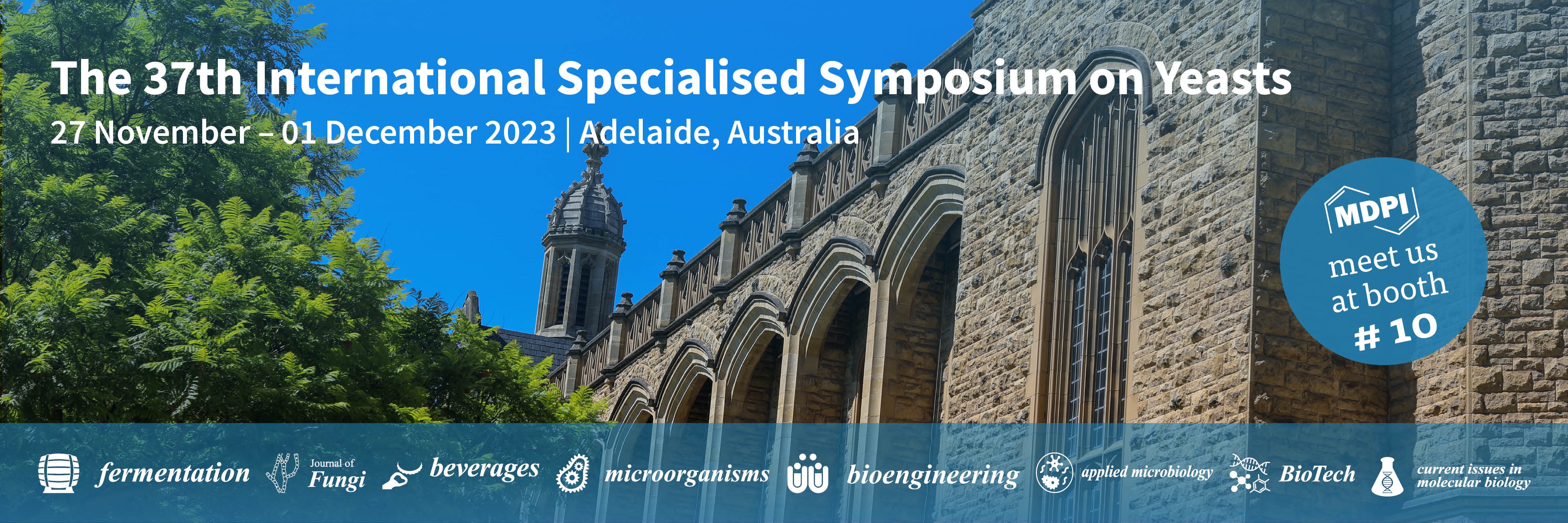
Conference: 37th International Specialised Symposium on Yeasts—ISSY37
Date: 27 November–1 December 2023
Location: Adelaide, Australia
MDPI will be attending ISSY37 as an exhibitor, and we welcome researchers from different backgrounds to visit and share their latest ideas with us.
The theme for ISSY37 is “Yeast Biotech 2.0: New Yeast, Knowledge and Applications”. The meeting will bring together leading researchers, biotech executives, suppliers, government and early career researchers interested in fundamental and applied investigations of yeast. The planned themes will likely include:
- Biodiversity and new yeast;
- Yeast-derived food and beverages;
- Yeast cell factories;
- Yeast in plant-based foods and meat/dairy alternatives;
- Synthetic genomes, organelles and communities;
- Designer yeast;
- Bioenergy;
- Biomedicine;
- Biosafety.
The following MDPI journals will be represented:
- Fermentation (leading journal);
- JoF;
- Microorganisms;
- Beverages;
- Bioengineering;
- Applied Microbiology;
- CIMB;
- BioTech.
If you are planning to attend this conference, please do not hesitate to contact us. Our delegates look forward to meeting you in person and answering any questions that you may have. For more information about the conference, please visit the following website: https://issy2023.com.au/.
10 August 2023
Meet Us at the 7th International Conference of Bionic Engineering, 12–15 October 2023, Wuhan, China
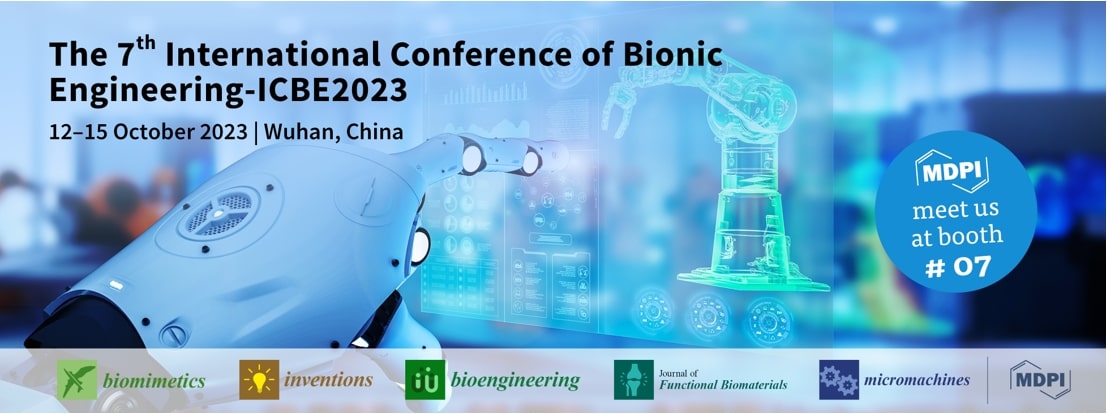
Conference: The 7th International Conference of Bionic Engineering—ICBE2023
Date: 12–15 October 2023
Location: Wuhan, China
MDPI will be attending ICBE2023 as an exhibitor, and we welcome researchers from different backgrounds to visit and share their latest ideas with us.
Biomimetic science and engineering is a rapidly developing interdisciplinary field that closely relates to biology, chemistry, physics, materials science, mechanical engineering, medicine and other disciplines. The 7th International Conference of Bionic Engineering and the International Youth Conference of Bionic Science and Engineering 2023 (ICBE and IYCBSE 2023) will not only offer a unique platform to exchange information and ideas, and to initiate collaborations between international bionic scholars, but will also create an opportunity to promote the transformation of bionic technologies and to address future challenges for biomimetic science and engineering.
Organized by Wuhan University, Hubei University and Jilin University, the ICBE and IYCBSE 2023 will be conducted in an online/offline (Wuhan, China) hybrid mode.
The theme of ICBE and IYCBSE 2023 is “human, nature, harmony”, including but not limited to the following topics:
- Biological systems and biodiversity;
- Bioinspired functional structures and surfaces;
- Biomaterials and bioinspired materials;
- Bionic machinery;
- Biomechanics and rehabilitation engineering;
- Biosensors and signal processing;
- Robotics, motion systems and artificial intelligence;
- Nature-inspired energy system;
- Biofabrication and bioinspired manufacturing;
- Sustainable and environmentally friendly novel technologies;
- Industrial applications of bionics;
- Other fields related to bionics.
The following MDPI journals will be represented:
If you are planning to attend this conference, please do not hesitate to start an online conversation with us. Our delegates look forward to meeting you in person and answering any questions that you may have. For more information about the conference, please visit the following website: https://www.icbe2022.net/En/Default.
27 July 2023
MDPI Insights: The CEO’s Letter #2 - Open Peer-Review and IJERPH

Welcome to the MDPI Insights: The CEO's Letter.
In these monthly letters, I will showcase two key aspects of our work at MDPI: our commitment to empowering researchers and our determination to facilitating open scientific exchange.
Opening Thoughts

Open Peer Review Reports
Continuing the topic of openness from my inaugural monthly CEO letter, in these Opening Thoughts, I highlight the growth and importance of open peer-review reports at MDPI. Open peer reports align with the principles of open science, making the publishing process more transparent and facilitating rigorous peer review.
MDPI journals operate an open peer-review option by default, allowing authors to publish review reports and author responses (often referred to as open reports) together with the published paper. Publishing the reviewer reports and author responses together with the article provides greater transparency and trust for readers, as this allows them to track the editorial decision-making process. Open peer-review also encourages reviewers and editors to provide high-quality comments, as these will be made public if the article is accepted for publication.
Start and Growth of Open Peer Review at MDPI
The MDPI journal Life was a pioneer in offering this opportunity to its authors in 2014. The first MDPI article with peer-review reports openly published was a review by the Nobel Laureate Werner Arber, in which the review reports were published as supplementary material. By 2018, open peer-review was available across all MDPI journals. As such, MDPI authors have embraced the open peer-review model, providing a steady increase in the number of MDPI articles. As of 2023, approximately one-third (34.0%) of MDPI articles were published with open review reports.
As at July 2023, the percentage of MDPI articles published with open peer review has increased to 36.2% of the total papers published in 2023 so far, indicating ongoing growth in adoption.
Open peer review continues to play a critical role in the assessment of the peer-review process in Life. For further insights, please see the recent editorial by Dr. Pabulo Henrique Rampelotto, the former Editor-in-Chief of Life, who spearheaded the implementation of the open peer-review process.
Benefits of Open Peer Review
The benefits of open peer review include increased transparency, trust and constructive feedback. To promote open communication further and increase the robustness of the peer-review process, we encourage reviewers to sign their reports so that their name appears on the review report (this process is referred to as open identity). The default option is for reviewers to remain anonymous; however, by signing the reports, reviewers receive direct credit for their contribution to the peer-review process and show their commitment towards open science.
As the leading open access publisher, MDPI remains committed to promoting open peer-review and encourages authors to choose this approach. Our goal is to provide a rigorous and transparent peer-review process that benefits the scientific community, and we believe that open peer-review is a vital step in fostering openness and collaboration in scientific communication.
Impactful Research

MDPI Papers Cited in the News – IJERPH edition
Every month, our corporate marketing team compiles data from Altmetrics to create a list of MDPI papers that have been cited in the news. This list continues to grow as renowned news outlets regularly reference research published by MDPI in their articles.
During 2022, a total of 111,965 MDPI research papers were mentioned in prominent news outlets such as National Geographic, The Washington Post, Forbes, The Guardian, the BBC, CNN, Time, and Harvard Business Review.
Highly Cited Journal Publications
IJERPH, known for publishing impactful research, received the most news mentions among all MDPI journals in 2022, based on Altmetrics data:
- International Journal of Environmental Research and Public Health: 3509 mentions
- Nutrients: 2698 mentions
- International Journal of Molecular Sciences: 1701 mentions
- Journal of Clinical Medicine: 1131 mentions
- Viruses: 1111 mentions
These numbers show the recognition and impact of the articles published in IJERPH. For a more detailed view of the journal’s most cited and viewed papers, you can visit here. In total, IJERPH has garnered over 28,000 mentions in prominent news outlets, and as at July 2023, an impressive count of over 17,000 papers cited 10 times or more. These figures highlight the impactful contribution of IJERPH publications to the scientific community.
Example of Recent Mentions
During May and June 2023, a noteworthy selection of articles from IJERPH was cited in news articles, including:
The Washington Post: “Bringing nature inside can improve your health. Here’s how to do it.”
IJERPH paper: “Physiological Benefits of Viewing Nature: A Systematic Review of Indoor Experiments”
Harvard Business Review: “How to Take Better Breaks at Work, According to Research”
IJERPH paper: “Canine-Assisted Therapy Improves Well-Being in Nurses”
National Geographic: “Lyme disease is spreading fast—but a vaccine may be on the way”
IJERPH paper: “Range Expansion of Tick Disease Vectors in North America: Implications for Spread of Tick-Borne Disease”
Inside MDPI

MDPI Develops an Artificial Intelligence Tool to Enhance the Peer-Review Process
At MDPI, we believe that rigorous peer-review is the corner-stone of high-quality academic publishing. We are grateful to the scholars who generously dedicate their time to peer-review articles submitted to MDPI journals. Their contributions are invaluable to the advancement of science.
Peer-review is a critical part of the publication process, ensuring that MDPI upholds the highest quality standards for the papers we publish. Every manuscript submitted to our journals undergoes a comprehensive peer-review process conducted by subject-matter experts.
To further enhance our peer-review process, our Data Analytics team has developed an Artificial Intelligence (AI) tool designed to support the selection of reviewers. This proprietary tool utilizes Natural Language Processing (NLP), a specially designed AI language model, to extract information from the title and abstract of submitted papers. It then searches our database for similar manuscripts and suggests potential reviewers based on this analysis. Integrated with MDPI's submission system (SuSy), the AI tool cross-references the suggested candidates with our reviewer database to verify their invitation status and availability.
The goal of this tool is to provide better targeted peer-review invitations, reducing the number of emails sent for each paper and increasing the efficiency of our editorial staff.
In the near future, our Data Analytics team plans to deploy similar AI projects to improve other critical aspects of our services, offering an enhanced experience to our authors and readers.
Click here to learn about MDPI’s review process, including procedures, responsibilities, and benefits.
Read more:
Coming Together for Science
The Future of IJERPH

On 5 July 2023, Prof. Dr. Paul B. Tchounwou, the founding Editor-in-Chief of IJERPH, along with five Section Editors in Chief (Prof. Dr. Germán Vicente-Rodríguez, Prof. Dr. Karl Goodkin, Prof. Dr. William A. Toscano, Prof. Dr. Jimmy T. Efird, and Prof. Dr. William Douglas Evans), gathered in Basel to discuss the future of the journal. The meeting provided an opportunity to address the recent decision by The Web of Science to delist IJERPH due to the journal failing the Content Relevance criterion, and propose best strategies that will ensure high scientific rigor as well as a clear scope and aim of IJERPH, going forward.
While the delisting is disappointing for IJERPH, as well as for our authors, academic editors, and the entire scientific community supporting our journal, we see it as an opportunity to reflect and prepare for the future direction of the journal.
Since its launch in 2004, IJERPH’s vision and mission have evolved to be more complete and comprehensive in engaging scientific communities. In light of this, we will refresh the journal’s aims and scope, ensuring they align with the organic expansion of IJERPH. Additionally, we will restructure the journal sections into broader categories, encouraging collaborative research and transdisciplinary approaches for authors. This is designed to foster collaboration and knowledge exchange among diverse fields, contributing to a holistic understanding of health promotion and disease prevention. We are confident that these next steps will enhance the scientific strength and societal impact of our journal.

Journal Achievements
In addition to the productive discussions, we took the time to celebrate some of the remarkable achievements of IJERPH, which I highlight below:
- Founded by Prof. Dr. Paul B. Tchounwou in 2004
- Indexed in PubMed in 2008
- Received its first Impact Factor in 2012
- Published its 5000th paper in 2017
- Over 60,000 papers published as at June 30, 2023
- 131,628,173 paper views in 2018–2022
- Over 28,000 mentions in prominent news outlets
- 17,000 papers cited 10 times or more as at June 30, 2023
- No.1 journal in the 2022 Google Scholar Metrics in the category of Public Health
- Awarded several editions of Young Investigator Awards, Travel Awards, and Outstanding Reviewer Awards since 2018.
These achievements showcase the journal’s significant contributions to the field and its impact on global health. We are proud of the exceptional work accomplished by the IJERPH team and look forward to building upon this success in the years to come.
Closing Thoughts
MDPI’s Impact in Spain

During the past month, I had the opportunity to visit our new office building in Barcelona, where I met with our local colleagues to discuss the ways we serve the scholarly community, particularly in Spain. The multi-functional office plays a vital role in supporting various business needs, including editorial, design, conference management, data analytics, journal relationship management, publishing partnerships, and collaborations with societies.
Spain holds a significant position in MDPI’s global market, ranking as the fourth-largest contributor to the total number of papers published by MDPI as at July 2023, ranking next to Italy, the USA, and China, with Germany completing the top five.
The Numbers
Out of the 1,680,000 total MDPI articles published as at 25 July, almost 80,000 articles are contributed by Spanish authors, representing nearly 40,000 unique authors affiliated with Spanish institutions. Remarkably, over 6,300 of these authors hold editorial board member (EBM) positions within MDPI journals, with 30 of them serving as Editors-in-Chief (EiCs).
Our commitment to working with institutions is very evident in Spain, where we have successfully established over 40 Institutional Open Access Programs (IOAP) with esteemed institutions such as the University of Barcelona, the Autonomous University of Barcelona, Pompeu Fabra University, the University of Navarre, and Complutense University of Madrid.
Over the past five years, we have successfully organized eight in-person conferences in Barcelona, attracting over 1,150 registrations, with two forthcoming events scheduled for 2024. Barcelona's excellent connectivity to international airports makes it easily accessible to participants from around the world. Its welcoming atmosphere provides us with the perfect environment for knowledge-sharing, networking, and contributing to the local economy.
Our growth and presence in Spain are a true testament to the incredible service we provide to the scholarly community and the relationships we foster through responsive and collaborative communication. We look forward to continuing to support Spanish scholars, providing them a valuable and trusted experience with MDPI, the leader in open access publishing.
Testimonials
I close this letter as I did in the first edition, by sharing testimonials from our stakeholders. Here are a few IJERPH testimonials from a Spanish guest editor and an author:
Guest Editor
“I want to thank the kindness, attention and professionalism of the MDPI team throughout the editorial process of the Special Issue. I believe that it is a very professional and quality editorial process.”
- Professor Víctor Arufe-Giráldez, University of A Coruña
Special Issue in International Journal of Environmental Research and Public Health: Physical Activity in Childhood and Adolescence
Special Issue in International Journal of Environmental Research and Public Health: Physical Education: Present and Future
__
Author
“I want to thank the rigor of the revisions made to the manuscripts to improve their quality, the support to the authors for the editor assignment system they have and the follow-up they carry out, for the speed in answering and in carrying out the entire process of the revision, and for doing all this at an affordable price.”
- Dr. María Paz García-Caro, University of Granada
Article in International Journal of Environmental Research and Public Health: Factors Associated with Suicide Attempts and Suicides in the General Population of Andalusia (Spain)
Chief Executive Officer
MDPI AG
14 July 2023
Meet Us at 2023 BMES Annual Meeting, 11–14 October 2023, Seattle, USA
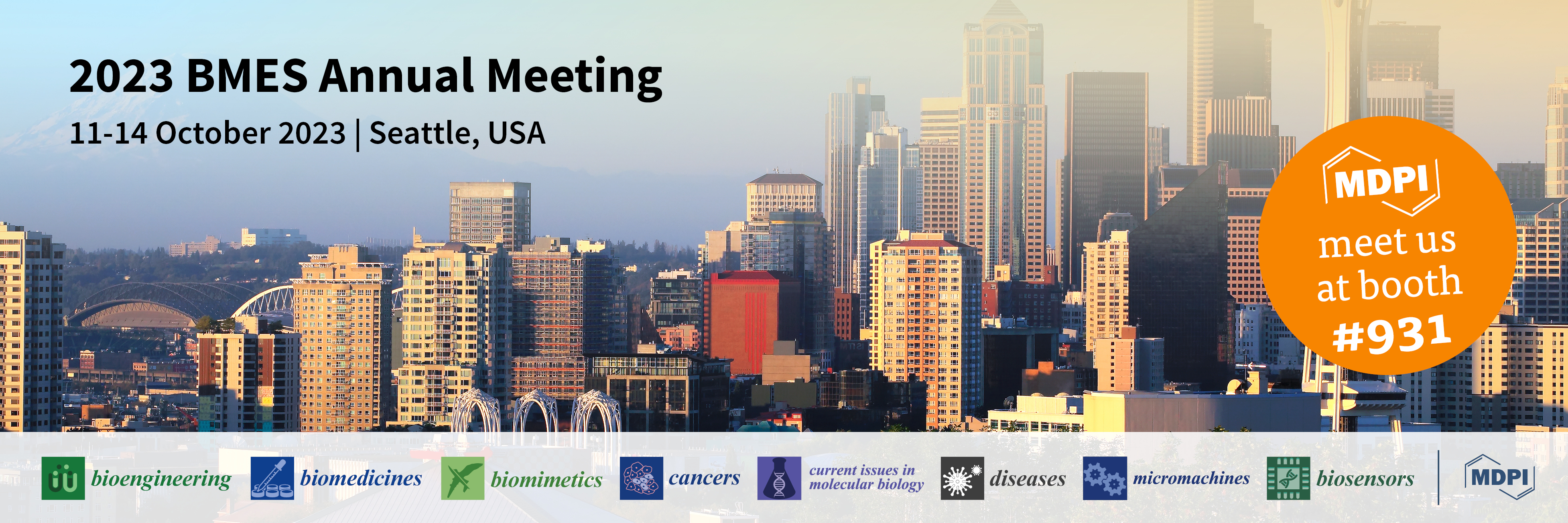
A range of MDPI journals will be attending the 2023 BMES Annual Meeting as exhibitors. This meeting will be held in Seattle, USA, from 11 to 14 October 2023.
The BMES Annual Meeting will gather participants for networking, education, and continued growth in the biomedical engineering field. It is a premiere event centered around topics and discussions specific to our community. The theme of this year’s meeting is focused on the convergence of three pillars essential to our field’s success: science, technology, and social transformation.
The conference's vision is to center the perspective that the future of biomedical engineering requires and the curious evaluation of complex scientific challenges, while candidly considering intersectionality and social factors. Through creative programming, it will ensure that these three pillars are interwoven into all aspects of the meeting.
The following MDPI journals will be represented:
- Bioengineering;
- Biomedicines;
- Biomimetics;
- Cancers;
- CIMB;
- Diseases;
- Micromachines;
- Biosensors.
If you are attending this conference, please feel free to start a conversation with us at our booth at #931. Our delegates look forward to meeting you in person and answering any questions that you may have.
For more information about the conference, please visit https://www.bmes.org/annualmeeting.
11 July 2023
MDPI’s Newly Launched Journals in June 2023
With the first issue released in June 2023, five new MDPI journals disseminating multi-disciplinary science are due to launch, which will cover the subjects of medicine & pharmacology, biology and physical sciences.
The newly launched journals will be overseen by professional Editorial Board Members and Editors to ensure an accurate and rapid publication, rigorous peer review and broad visibility.
Please feel free to browse and discover more about the new journals below.
| Journal | Founding Editor-in-Chief | Journal topics (selected) |
| Prof. Dr. Jun Ma, Peking University, China| Editorial | view inaugural issue | growth and development; diet and nutrients; school health promotion policies and practices; child health and care; adolescent health and wellbeing | view journal scope | submit an article |
|
| Prof. Dr. Bernd Rehm, Griffith University, Australia | Editorial | view inaugural issue | DNA and gene synthesis; synthetic transcription factors; protein engineering; viral engineering; metabolic engineering | view journal scope | submit an article | |
| Prof. Dr. Varsha Gandhi, University of Texas MD Anderson Cancer Center, USA | Editorial | view inaugural issue | lymphatics; cancers associated with lymphocytes and lymphoblasts; lymphatic tissues; lymphoma; lymphoid leukemia | view journal scope | submit an article | |
| Dr. Bradley Turner, University of Melbourne, Australia | Editorial | view inaugural issue | multiple sclerosis; amyotrophic lateral sclerosis; primary lateral sclerosis; atherosclerosis; systemic sclerosis | view journal scope | submit an article | |
 |
Prof. Dr. Clemens Burda, Case Western Reserve University, USA | Editorial | view inaugural issue | Gamma ray, X-ray, and UV–Vis spectroscopies; NIR/mid-infrared/Raman spectroscopy; microwave and THz spectroscopy; high-resolution gas-phase atomic, molecular, and cluster spectroscopy; MS, NMR, and EPR spectroscopy | view journal scope | submit an article |
We wish to thank everyone who has supported the development of open access publishing. You are welcome to submit an application to the New Journal Committee (newjournal-committee@mdpi.com) if you would like to create more new journals.
3 July 2023
MDPI Insights: The CEO’s Letter #1 - Open Access and Impactful Research

Welcome to the MDPI Insights: The CEO's Letter.
In these monthly letters, I will showcase two key aspects of our work at MDPI: our commitment to empowering researchers and our determination to facilitating open scientific exchange.
Opening Thoughts
The Future is Open, and MDPI is Leading the Way
I strongly believe in a future that embraces openness, where open source, open information, and open access (OA) take center stage. This belief that led me to join MDPI in 2020, and I am honored to have recently been appointed as Chief Executive Officer (CEO). In this capacity, and operating in close liaison with Dr. Lin and MDPI’s senior management, I shall work to build on Dr. Lin’s achievements of the past quarter-century. In this role, I will focus on communication initiatives to promote MDPI's remarkable work and continue to build our company as a trusted leader in OA publishing. For over two decades, MDPI has been at the forefront of reshaping the academic publishing landscape, with OA surpassing subscription-based publishing in 2020. This trajectory is deeply rooted in our history and reflects our unwavering commitment and vision for an open future.
1 Million Published Articles
2023 began with a remarkable achievement for MDPI, as we became the first OA publisher to reach the milestone of 1 million published articles. This represents 2.7 million unique authors who have trusted us with their work, or about a third of all researchers worldwide. As the world's most cited OA publisher, we are proud in sharing these significant milestones.
Our mission remains unchanged: to make science open and accessible to all. We understand the importance of knowledge access, empowering researchers to stay at the forefront of a rapidly changing world. Our diverse range of journals covers a wide spectrum of disciplines, offering cutting-edge insights, trusted tools, and crucial knowledge to address global challenges.
Liberating Science
As the world’s leading OA publisher, MDPI is actively liberating science. We are committed to eliminating the frustrations researchers and the general public face when accessing information, ensuring it is not locked behind paywalls. We firmly believe that everyone has a right to information, and our commitment to open access publishing drives our work.
In this inaugural edition of Insights: The CEO's Letter, I draw inspiration from the upcoming 20th anniversary of the Berlin Declaration on Open Access. Its stated mission reminds us that true impact is achieved when knowledge is widely and readily available to society:
"Our mission of disseminating knowledge is only half complete if the information is not made widely and readily available to society”
Impactful Research

MDPI Publishes Impactful Research: Recognized by Leading Indexing Databases
MDPI journals are indexed in every single top database in the world.
As of June 2023, we have 214 journals indexed within Web of Science, 223 indexed within Scopus, 87 indexed within PubMed and PMC, and 17 indexed within MEDLINE, and these numbers increase every month. We constantly strive to expand the coverage of our journals within leading multi-disciplinary and scope-specific databases, resulting in an incredibly broad range of journals that are indexed within a variety of databases. MDPI has active relationships with approximately 65 well-known databases around the world, and we continue to expand our portfolio every year so that your work can be found, cited, and referenced with ease.
Continued Growth of MDPI Journals
The 2022 Scopus and Web of Science journal citation metrics were officially released in June, and I am pleased to report that 31 MDPI journals received their first CiteScore, taking the total number of journals with a CiteScore to 216. The number of MDPI journals receiving an Impact Factor (IF) also continues to grow with 111 receiving their first, by being covered in the ESCI, bringing our total number of journals with an IF to 208 of which 41 journals received an IF above 4.0. Looking at 2022 CiteScores in the Scopus database, 80% of MDPI journals have a score that ranks them in Q1 or Q2 in at least one subject category.
Publishing impactful science would not be possible without all of our authors, editors and reviewers. Thank you for your contribution and continued support! Together we share the latest scientific insights faster and ensure that your work is accessible to all.
Read more
Inside MDPI

Preprints.org: Clarivate adds the Preprint Citation Index to the Web of Science
At MDPI, we are dedicated to driving the advancement of science. Through our initiative, Preprints.org, researchers can publish their work and gain valuable feedback from the broader research community, ensuring rapid progress in their respective fields. This is particularly crucial during times of health and climate challenges, where timely dissemination of findings is essential.
Increased Visibility for Preprints
I am pleased to share that Clarivate recognizes the significance of preprints and has taken a crucial step to enhance their visibility. Clarivate has added the Preprint Citation Index to the Web of Science, encompassing preprints published not only on Preprints.org but also on other reputable repositories.
Looking ahead, the future of preprints appears promising, bolstered by the recent indexing announcement from the Web of Science. As a result, preprints will receive increased visibility, serving as a valuable resource for staying informed about the latest research developments.
Read more
What are Preprints?
The Pros and Cons of Preprints
Preprints and COVID-19
Preprints—The Future of Open Access Publishing?
Coming Together for Science

The First International Conference on Antioxidants: Sources, Methods, Health Benefits and Industrial Applications
In this edition of ‘Coming Together for Science,’ I am pleased to highlight the First International Conference on Antioxidants organized by our conference team in the beautiful city of Barcelona, Spain. The conference attracted over 130 attendees, who engaged in 42 talks, and 89 poster presentations spread across several sessions.
Working Together
Under the leadership of Prof. Dr. Alessandra Napolitano (Department of Chemical Sciences, University of Naples ‘Federico II’, Naples, Italy) and Prof. Dr. Rosa M. Lamuela Raventos (Department of Nutrition, Food Sciences and Gastronomy, University of Barcelona, Spain) as chairs, and supported by the committee members, 10 invited keynote speakers, poster presenters, and all the attendees, this dedicated group of academics came together to discuss the natural sources, methodologies, health benefits, and industrial applications of antioxidants.
Especially noteworthy is the positive feedback received from attendees, with 94% rating the overall organization of the conference as good or excellent. I particularly love the picture above, capturing the gathering of some of the participants. You can browse through more photos in the event gallery located here.
Managing Events With Sciforum
If you are considering hosting your own academic event, I highly recommend checking out Sciforum, MDPI's event management platform. Sciforum simplifies the entire process, making it easy to host your own event by allowing you to focus on what really matters: Science!
Read more
Closing Thoughts
 Stefan Tochev, Dr. Shu-Kun Lin, Dr. Eric O. Freed, Peter Roth, Wynne Wang, Allison Yang
Stefan Tochev, Dr. Shu-Kun Lin, Dr. Eric O. Freed, Peter Roth, Wynne Wang, Allison Yang
Viruses and Editorial Quality: Acknowledging the Dedication of our Viruses Journal Team
During a June meeting with Dr. Eric O. Freed, the founding and current Editor-in-Chief of our journal Viruses, I was reminded of the exceptional dedication of our editorial board. Meeting with Eric is a pleasure, as he has a strong commitment and clear vision for the journal. Over the course of two days, we gained a deep understanding of the journal’s expectations and focus on strategic growth, editorial board representation, and engagement.
I am pleased to share that Viruses holds a CiteScore of 7.1 (an increase of 7.57% versus the 2021 metric) and an Impact Factor of 4.7. You can view the journal statistics here. Viruses publishes highly cited papers, and is indexed in renowned databases such as Scopus, SCIE (Web of Science), PubMed, and others, and maintains affiliations with prestigious societies. Moreover, the Viruses team has recently announced an exciting upcoming event titled ‘Viruses 2024 – A World of Viruses,’ scheduled to take place in Barcelona, Spain, from 14–16 February 2024.
Testimonials
If you notice my enthusiasm regarding our editorial service, it’s because the surveys and testimonials we receive speak volumes about the experiences of our authors, reviewers, and guest editors who collaborate with MDPI. The purpose of these letters is to highlight the exceptional work that we do and the experiences we create for the scholars – thus, let me end with this testimonial from an author:
“It was a great pleasure to publish in Viruses Special Issue [Emerging Viruses in Aquaculture]. The submission process was easy. Guest editors were very helpful and provided all the guidance and support as needed. The handling of the manuscript by the Editorial Team was very fast, efficient, and professional. The reviewer’s comments were insightful, and the publication processes were remarkably rapid.”
– Ms. Magdalena Stachnik, Państwowy Instytut Weterynaryjny | PIWet
Article in Viruses: Emerging Viral Pathogens in Sturgeon Aquaculture in Poland: Focus on Herpesviruses and Mimivirus Detection
Chief Executive Officer
MDPI AG
28 June 2023
2022 Impact Factors for MDPI Journals
The 2022 citation metrics have been released in the Journal Citation Reports (JCR), and we’re pleased to announce the following results for MDPI journals:

We are thrilled to announce that 90% of our ranked MDPI journals, specifically 86 out of 96 (captured in the table below), are performing above average in Q1 or Q2. This year, Clarivate has expanded its Impact Factor (IF) awards to include journals in the Emerging Sources Citation Index (ESCI) and the Arts and Humanities Citation Index (AHCI), providing greater transparency for the full set of journals indexed in the Web of Science Core Collection. As a result, 111 of MDPI journals have received their first IF in 2023, with 37 journals surpassing an IF of 3.0. In total, 208 MDPI journals have been honored with an IF.
Clarivate explains that by "expanding the coverage but holding to highly selective standards, the [Impact Factor] is now a reliable indicator of trustworthiness, as well as a measure of scholarly impact, at the journal level."
Please visit our blog post where we discuss the release of the latest citation metrics with our Indexing Manager, Dr. Constanze Schelhorn, to find out what's different this time around and how to make use of different metrics available.
| Journal | Impact Factor | Rank Quartile | Category |
| Vaccines | 7.8 | Q1 | Immunology |
| Medicine, Research & Experimental | |||
| Antioxidants | 7.0 | Q1 | Food Science & Technology |
| Biochemistry & Molecular Biology | |||
| Chemistry, Medicinal | |||
| Cells | 6.0 | Q2 | Cell Biology |
| Nutrients | 5.9 | Q1 | Nutrition & Dietetics |
| International Journal of Molecular Sciences | 5.6 | Q1 | Biochemistry & Molecular Biology |
| Q2 | Chemistry, Multidisciplinary | ||
| Journal of Theoretical and Applied Electronic Commerce Research | 5.6 | Q2 | Business |
| Biomolecules | 5.5 | Q1 | Biochemistry & Molecular Biology |
| Biosensors | 5.4 | Q1 | Chemistry, Analytical |
| Instruments & Instrumentation | |||
| Q2 | Nanoscience & Nanotechnology | ||
| Fractal and Fractional | 5.4 | Q1 | Mathematics, Interdisciplinary Applications |
| Marine Drugs | 5.4 | Q1 | Chemistry, Medicinal |
| Pharmacology & Pharmacy | |||
| Pharmaceutics | 5.4 | Q1 | Pharmacology & Pharmacy |
| Nanomaterials | 5.3 | Q1 | Physics, Applied |
| Q2 | Chemistry, Multidisciplinary | ||
| Materials Science, Multidisciplinary | |||
| Nanoscience & Nanotechnology | |||
| Cancers | 5.2 | Q2 | Oncology |
| Foods | 5.2 | Q1 | Food Science & Technology |
| Polymers | 5.0 | Q1 | Polymer Science |
| Remote Sensing | 5.0 | Q1 | Geosciences, Multidisciplinary |
| Q2 | Remote Sensing | ||
| Imaging Science & Photographic Technology | |||
| Environmental Sciences | |||
| Antibiotics | 4.8 | Q1 | Pharmacology & Pharmacy |
| Q2 | Infectious Diseases | ||
| Drones | 4.8 | Q2 | Remote Sensing |
| Journal of Functional Biomaterials | 4.8 | Q2 | Engineering, Biomedical |
| Materials Science, Biomaterials | |||
| Biomedicines | 4.7 | Q1 | Pharmacology & Pharmacy |
| Q2 | Biochemistry & Molecular Biology | ||
| Medicine, Research & Experimental | |||
| Journal of Fungi | 4.7 | Q2 | Mycology |
| Microbiology | |||
| Viruses | 4.7 | Q2 | Virology |
| Bioengineering | 4.6 | Q2 | Engineering, Biomedical |
| Gels | 4.6 | Q1 | Polymer Science |
| Molecules | 4.6 | Q2 | Chemistry, Multidisciplinary |
| Biochemistry & Molecular Biology | |||
| Pharmaceuticals | 4.6 | Q2 | Pharmacology & Pharmacy |
| Chemistry, Medicinal | |||
| Toxics | 4.6 | Q1 | Toxicology |
| Q2 | Environmental Sciences | ||
| Biomimetics | 4.5 | Q1 | Engineering, Multidisciplinary |
| Q2 | Materials Science, Biomaterials | ||
| Microorganisms | 4.5 | Q2 | Microbiology |
| Plants | 4.5 | Q1 | Plant Sciences |
| Biology | 4.2 | Q2 | Biology |
| Chemosensors | 4.2 | Q2 | Instruments & Instrumentation |
| Chemistry, Analytical | |||
| Electrochemistry | |||
| Membranes | 4.2 | Q2 | Engineering, Chemical |
| Materials Science, Multidisciplinary | |||
| Chemistry, Physical | |||
| Polymer Science | |||
| Toxins | 4.2 | Q1 | Toxicology |
| Q2 | Food Science & Technology | ||
| Metabolites | 4.2 | Q2 | Biochemistry & Molecular Biology |
| Batteries | 4.0 | Q2 | Electrochemistry |
| Materials Science, Multidisciplinary | |||
| Q3 | Energy & Fuels | ||
| Catalysts | 3.9 | Q2 | Chemistry, Physical |
| Journal of Clinical Medicine | 3.9 | Q2 | Medicine, General & Internal |
| Land | 3.9 | Q2 | Environmental Studies |
| Sensors | 3.9 | Q2 | Instruments & Instrumentation |
| Chemistry, Analytical | |||
| Engineering, Electrical & Electronic | |||
| Sustainability | 3.9 | Q2 | Environmental Sciences (SCIE) |
| Environmental Studies (SSCI) | |||
| Q3 | Green & Sustainable Science & Technology (SCIE) | ||
| Green & Sustainable Science & Technology (SSCI) | |||
| Buildings | 3.8 | Q2 | Construction & Building Technology |
| Engineering, Civil | |||
| Agronomy | 3.7 | Q1 | Agronomy |
| Q2 | Plant Sciences | ||
| Fermentation | 3.7 | Q2 | Biotechnology & Applied Microbiology |
| Pathogens | 3.7 | Q2 | Microbiology |
| Agriculture | 3.6 | Q1 | Agronomy |
| Diagnostics | 3.6 | Q2 | Medicine, General & Internal |
| Genes | 3.5 | Q2 | Genetics & Heredity |
| Journal of Intelligence | 3.5 | Q2 | Psychology, Multidisciplinary |
| Lubricants | 3.5 | Q2 | Engineering, Mechanical |
| Processes | 3.5 | Q2 | Engineering, Chemical |
| Coatings | 3.4 | Q2 | Materials Science, Coatings & Films |
| Physics, Applied | |||
| Q3 | Materials Science, Multidisciplinary | ||
| ISPRS International Journal of Geo-Information | 3.4 | Q2 | Geography, Physical |
| Q3 | Computer Science, Information Systems | ||
| Remote Sensing | |||
| Materials | 3.4 | Q2 | Metallurgy & Metallurgical Engineering |
| Physics, Applied | |||
| Physics, Condensed Matter | |||
| Q3 | Materials Science, Multidisciplinary | ||
| Chemistry, Physical | |||
| Micromachines | 3.4 | Q2 | Instruments & Instrumentation |
| Physics, Applied | |||
| Chemistry, Analytical | |||
| Q3 | Nanoscience & Nanotechnology | ||
| Water | 3.4 | Q2 | Water Resources |
| Environmental Sciences | |||
| Brain Sciences | 3.3 | Q3 | Neurosciences |
| Energies | 3.2 | Q3 | Energy & Fuels |
| Fire | 3.2 | Q1 | Forestry |
| Q2 | Ecology | ||
| Life | 3.2 | Q2 | Biology |
| Current Issues in Molecular Biology | 3.1 | Q3 | Biochemistry & Molecular Biology |
| Horticulturae | 3.1 | Q1 | Horticulture |
| Animals | 3.0 | Q1 | Agriculture, Dairy & Animal Science |
| Veterinary Sciences | |||
| Insects | 3.0 | Q1 | Entomology |
| Atmosphere | 2.9 | Q3 | Meteorology & Atmospheric Sciences |
| Environmental Sciences | |||
| Electronics | 2.9 | Q2 | Engineering, Electrical & Electronic |
| Physics, Applied | |||
| Q3 | Computer Science, Information Systems | ||
| Forests | 2.9 | Q1 | Forestry |
| Inorganics | 2.9 | Q2 | Chemistry, Inorganic & Nuclear |
| Journal of Marine Science and Engineering | 2.9 | Q1 | Engineering, Marine |
| Q2 | Oceanography | ||
| Engineering, Ocean | |||
| Metals | 2.9 | Q2 | Metallurgy & Metallurgical Engineering |
| Q3 | Materials Science, Multidisciplinary | ||
| Tropical Medicine and Infectious Disease | 2.9 | Q2 | Tropical Medicine |
| Parasitology | |||
| Q3 | Infectious Diseases | ||
| Universe | 2.9 | Q2 | Astronomy & Astrophysics |
| Physics, Particles & Fields | |||
| Healthcare | 2.8 | Q2 | Health Policy & Services (SSCI) |
| Q3 | Health Care Sciences & Services (SCIE) | ||
| Applied Sciences | 2.7 | Q2 | Engineering, Multidisciplinary |
| Physics, Applied | |||
| Q3 | Chemistry, Multidisciplinary | ||
| Materials Science, Multidisciplinary | |||
| Crystals | 2.7 | Q2 | Crystallography |
| Q3 | Materials Science, Multidisciplinary | ||
| Entropy | 2.7 | Q2 | Physics, Multidisciplinary |
| Magnetochemistry | 2.7 | Q2 | Chemistry, Inorganic & Nuclear |
| Q3 | Chemistry, Physical | ||
| Materials Science, Multidisciplinary | |||
| Symmetry | 2.7 | Q2 | Multidisciplinary Sciences |
| Actuators | 2.6 | Q2 | Instruments & Instrumentation |
| Engineering, Mechanical | |||
| Aerospace | 2.6 | Q1 | Engineering, Aerospace |
| Behavioral Sciences | 2.6 | Q2 | Psychology, Multidisciplinary |
| Current Oncology | 2.6 | Q3 | Oncology |
| Machines | 2.6 | Q2 | Engineering, Mechanical |
| Q3 | Engineering, Electrical & Electronic | ||
| Medicina | 2.6 | Q3 | Medicine, General & Internal |
| Separations | 2.6 | Q3 | Chemistry, Analytical |
| Minerals | 2.5 | Q2 | Mining & Mineral Processing |
| Mineralogy | |||
| Geochemistry & Geophysics | |||
| Children | 2.4 | Q2 | Pediatrics |
| Diversity | 2.4 | Q2 | Biodiversity Conservation |
| Q3 | Ecology | ||
| Journal of Cardiovascular Development and Disease | 2.4 | Q3 | Cardiac & Cardiovascular Systems |
| Mathematics | 2.4 | Q1 | Mathematics |
| Photonics | 2.4 | Q3 | Optics |
| Veterinary Sciences | 2.4 | Q1 | Veterinary Sciences |
| Fishes | 2.3 | Q2 | Marine & Freshwater Biology |
| Fisheries | |||
| Axioms | 2.0 | Q2 | Mathematics, Applied |
| Systems | 1.9 | Q2 | Social Sciences, Interdisciplinary |
| Tomography | 1.9 | Q3 | Radiology, Nuclear Medicine & Medical Imaging |
Note: The Journal of Personalized Medicine's Impact Factor was omitted in the original release and will be assigned separately. Please find the data on the journal webpage in due course.
Source: 2022 Journal Impact Factors, Journal Citation Reports TM (Clarivate, 2023)
27 June 2023
Bioengineering | A Commemorative Issue in Honor of Professor Alexander Friedenstein’s Outstanding Achievements
We are proud to announce a Special Issue of Bioengineering (ISSN: 2306-5354) “A Tribute to Professor Alexander Friedenstein and His Outstanding Achievements in the Area of Stromal Stem Cells”, devoted to the pioneering work of Professor Alexander Friedenstein and his ground-breaking discoveries in stromal stem cells. Prof. Friedenstein is rightly credited with the discovery of mesenchymal stem cells (MSCs), having defined them as stroma-resident cells that fulfill the main criteria attributed to stem cells, making them highly important in the field of regenerative medicine. Single-cell-derived clones of stromal progenitors have been shown to have an intrinsic ability to form bone, cartilage, and connective tissues in vivo, paving the way for a range of cell therapies and tissue engineering developments.
As we approach the centenary of Professor Friedenstein’s birth in 2024, we pay tribute to his outstanding achievements in this field through a Special Issue edited by Dr. Elena A. Jones, Dr. Dimitrios Kouroupis, and Dr. Rodrigo Somoza. The Issue will include original research articles and reviews that celebrate his legacy, exploring issues such as how we can best isolate and culture MSCs, enhance their desired functions, and control their differentiation or trophic activity through their microenvironment. We also consider the benefits and limitations of MSCs versus MSC-derived extracellular vesicles for therapeutics, and how we can effectively isolate MSCs-derived extracellular vesicles and reinforce their therapeutic signatures.
Professor Alexander Friedenstein’s groundbreaking work on stromal stem cells has opened up new frontiers in regenerative medicine and continues to inspire research into new applications in the field.
We invite submissions that celebrate his incredible legacy and honor his memory. You can click here to go to the submission form.
14 June 2023
Meet Us at the 2023 Chinese Biophysics Congress, 19–23 July 2023, Changsha, China

Conference: 2023 Chinese Biophysics Congress
Date: 19–23 July 2023
Place: Changsha, China
MDPI will be attending the 2023 Chinese Biophysics Congress, which will be held from 19 to 23 July 2023 in Changsha, China.
The Chinese Biophysics Congress is the largest and most developed academic event in the field of biophysics in China. Prof. Tao Xu, the chairman of the Chinese Society of Biophysics, will be the chair of the organizing committee. The main theme is Biophysics and Human Health, focusing on the latest research progress and development trend of biophysics and related research fields.
The following MDPI journals will be represented:
- IJMS;
- Biophysica;
- Biomedicines;
- Physics;
- CIMB;
- Bioengineering;
- Biomolecules.
Please do not hesitate to reach out (ijms@mdpi.com) if you plan on attending this conference. Our delegates look forward to meeting you in person and answering any questions that you might have. For more information about the conference, please visit the following website: https://www.bsc.org.cn/2023/.
25 May 2023
Bioengineering | Hot Papers in 3D Bioprinting
Three-dimensional bioprinting is an evolving technology that is used for biomedical research and healthcare. It involves the creation of three-dimensional structures using living cells and biomaterials with the help of a bio-printer. Three-dimensional bioprinting can be used to create complex living tissue structures, such as organs, bones, and skin, which can be used for transplantation and other clinical applications. This technology has become popular in recent years, as it offers a promising solution to organ shortages and could help improve patients’ outcomes. In this context, we are pleased to feature some recently published papers on 3D bioprinting in Bioengineering (ISSN: 2306-5354), which provide valuable insights into this exciting field.
1. “3D Printed Nanocellulose Scaffolds as a Cancer Cell Culture Model System”
by Jennifer Rosendahl, Andreas Svanström, Mattias Berglin, Sarunas Petronis, Yalda Bogestål, Patrik Stenlund, Simon Standoft, Anders Ståhlberg, Göran Landberg, Gary Chinga-Carrasco et al.
Bioengineering 2021, 8(7), 97; https://doi.org/10.3390/bioengineering8070097
Available online: https://www.mdpi.com/2306-5354/8/7/97
2. “Bioprinting Scaffolds for Vascular Tissues and Tissue Vascularization”
by Peter Viktor Hauser, Hsiao-Min Chang, Masaki Nishikawa, Hiroshi Kimura, Norimoto Yanagawa, and Morgan Hamon
Bioengineering 2021, 8(11), 178; https://doi.org/10.3390/bioengineering8110178
Available online: https://www.mdpi.com/2306-5354/8/11/178
3. “Biofabrication Strategies for Musculoskeletal Disorders: Evolution towards Clinical Applications”
by Saman Naghieh, Gabriella Lindberg, Maryam Tamaddon and Chaozong Liu
Bioengineering 2021, 8(9), 123; https://doi.org/10.3390/bioengineering8090123
Available online: https://www.mdpi.com/2306-5354/8/9/123
4. “Recapitulating the Angiogenic Switch in a Hydrogel-Based 3D In Vitro Tumor-Stroma Model”
by Claudia Kuehlbach, Sabine Hensler, and Margareta M. Mueller
Bioengineering 2021, 8(11), 186; https://doi.org/10.3390/bioengineering8110186
Available online: https://www.mdpi.com/2306-5354/8/11/186
5. “Natural Biomaterials and Their Use as Bioinks for Printing Tissues”
by Claire Benwood, Josie Chrenek, Rebecca L. Kirsch, Nadia Z. Masri, Hannah Richards, Kyra Teetzen and Stephanie M. Willerth
Bioengineering 2021, 8(2), 27; https://doi.org/10.3390/bioengineering8020027
Available online: https://www.mdpi.com/2306-5354/8/2/27
6. “Protein-Based 3D Biofabrication of Biomaterials”
by Mahta Mirzaei, Oseweuba Valentine Okoro, Lei Nie, Denise Freitas Siqueira Petri and Amin Shavandi
Bioengineering 2021, 8(4), 48; https://doi.org/10.3390/bioengineering8040048
Available online: https://www.mdpi.com/2306-5354/8/4/48
7. “The Importance of Mimicking Dermal-Epidermal Junction for Skin Tissue Engineering: A Review”
by Mina Aleemardani, Michael Zivojin Trikić, Nicola Helen Green and Frederik Claeyssens
Bioengineering 2021, 8(11), 148; https://doi.org/10.3390/bioengineering8110148
Available online: https://www.mdpi.com/2306-5354/8/11/148
8. “Advantages of Additive Manufacturing for Biomedical Applications of Polyhydroxyalkanoates”
by Alberto Giubilini, Federica Bondioli, Massimo Messori, Gustav Nyström and Gilberto Siqueira
Bioengineering 2021, 8(2), 29; https://doi.org/10.3390/bioengineering8020029
Available online: https://www.mdpi.com/2306-5354/8/2/29
9. “3D Printing of Thermoresponsive Hydrogel Laden with an Antimicrobial Agent towards Wound Healing Applications”
by Martyna Nizioł, Justyna Paleczny, Adam Junka, Amin Shavandi, Anna Dawiec-Liśniewska and Daria Podstawczyk
Bioengineering 2021, 8(6), 79; https://doi.org/10.3390/bioengineering8060079
Available online: https://www.mdpi.com/2306-5354/8/6/79
10. “Translational Application of 3D Bioprinting for Cartilage Tissue Engineering”
by Sophie McGivern, Halima Boutouil, Ghayadah Al-Kharusi, Suzanne Little, Nicholas J. Dunne and Tanya J. Levingstone
Bioengineering 2021, 8(10), 144; https://doi.org/10.3390/bioengineering8100144
Available online: https://www.mdpi.com/2306-5354/8/10/144
18 May 2023
Bioengineering Webinar | Bioengineered Systems: Implants and Devices for Orthopaedic Applications, Held on 20 April 2023
On 20 April 2023, MDPI hosted a webinar for a Special Issue titled “Bioengineered Systems: Implants and Devices for Orthopaedic Applications”. The webinar featured the Special Issue’s Guest Editors, Dr. David E. Anderson, Dr. Madhu S. Dhar and Dr. Dustin L. Crouch. All speakers were from the University of Tennessee, Knoxville, USA, and this multidisciplinary team represented expertise in implant interfaces, regenerative medicine, tissue engineering and biomedical engineering. The Guest Editors/Speakers discussed how technological advances in orthopaedic research are accelerating in multiple areas, including endoprosthetics, tissue regeneration, and biotherapies.
Thank you for attending and we also wish to thank the Bioengineering team and MDPI for organizing and hosting this webinar.
You can watch the recorded webinar at the following link: https://youtu.be/wtoXrPe5fzc.
Please note that this webinar is associated with a Special Issue in the Bioengineering (ISSN: 2306-5354) journal: “Bioengineered Systems: Implants and Devices for Orthopaedic Applications”. The deadline is 31 May 2023.
Webinar Chair and Keynote Speakers:
- Dr. David E. Anderson, College of Veterinary Medicine, University of Tennessee, Knoxville, TN, USA;
- Dr. Madhu S. Dhar, Department of Large Animal Clinical Sciences, College of Veterinary Medicine, University of Tennessee, Knoxville, TN, USA;
- Dr. Dustin L. Crouch, Department of Mechanical, Aerospace & Biomedical Engineering, College of Engineering, University of Tennessee, Knoxville, TN, USA.
12 April 2023
Bioengineering Webinar | Bioengineered Systems: Implants and Devices for Orthopaedic Applications, 20 April 2023

We look forward to providing this exciting webinar related to our Bioengineering (ISSN: 2306-5354) Special Issue, "Bioengineered Systems: Implants and Devices for Orthopaedic Applications". The topic is broad and highly interdisciplinary, so it should be of interest to many, both researchers and practitioners. There has been and much progress and innovation in this area, with the promise to improve healthcare for a wide range of orthopaedic and other clinical problems.
The Guest Editors of this Special Issue invite you to participate in this webinar. Following the presentations, there will be a question-and-answer session. We look forward to a lively and interactive exchange of ideas.
We hope to see you soon!
Date: 20 April 2023 at 2:00 p.m. CEST | 8:00 a.m. EDT | 8:00 p.m. CST Asia
Webinar ID: 852 1064 4327
Register now for free!
Program
|
Speaker/Presentation |
Time in CEST |
|
Dr. David E. Anderson (Chair) |
2:00–2:05 p.m. |
|
Dr. David E. Anderson |
2:05–2:20 p.m. |
|
Dr. Madhu S. Dhar |
2:20–2:35 p.m. |
|
Dr. Dustin L. Crouch |
2:35–2:50 p.m. |
|
Q&A |
2:50–3:05 p.m. |
|
Dr. David E. Anderson (Chair) |
3:05–3:15 p.m. |
After registering, you will receive a confirmation email containing information on how to join the webinar. Registrations with academic institutional email addresses will be prioritized.
Unable to attend? Register anyway and we will let you know when the recording is available to watch.
Webinar Chair and Keynote Speakers:
- Dr. David E. Anderson, College of Veterinary Medicine, University of Tennessee, Knoxville, TN, USA
- Dr. Madhu S. Dhar, Department of Large Animal Clinical Sciences, College of Veterinary Medicine, University of Tennessee, Knoxville, TN, USA
- Dr. Dustin L. Crouch, Department of Mechanical, Aerospace & Biomedical Engineering, College of Engineering, University of Tennessee, Knoxville, TN, USA
Relevant Special Issue:
Bioengineered Systems: Implants and Devices for Orthopaedic Applications
Guest Editors: Dr. David Edgar Anderson, Dr. Madhu S. Dhar and Dr. Dustin Crouch
Deadline for manuscript submissions: 31 May 2023
Relevant feature papers:
“Role of Implantable Drug Delivery Devices with Dual Platform Capabilities in the Prevention and Treatment of Bacterial Osteomyelitis”
Bioengineering 2022, 9(2), 65; doi:10.3390/bioengineering9020065
“Effects on Tissue Integration of Collagen Scaffolds Used for Local Delivery of Gentamicin in a Rat Mandible Defect Model”
Bioengineering 2022, 9(7), 275; doi:10.3390/bioengineering9070275
“Feasibility of Implanting a Foot–Ankle Endoprosthesis within Skin in a Rabbit Model of Transtibial Amputation”
Bioengineering 2022, 9(8), 348; doi:10.3390/bioengineering9080348
11 April 2023
Bioengineering | High-Quality Special Issues

The Special Issues below have been selected as high-quality Special Issues for 2022 by the Editorial Office of Bioengineering (ISSN: 2306-5354). We hope that they provide insights and references for scholars in related fields.
1. “Convergence of Science and Engineering: A Promising Window toward Improving the Public Health”
Edited by Ali Zarrabi
Webpage: https://www.mdpi.com/journal/bioengineering/special_issues/convergence_sci_eng
Viewed by 16,316 | Cited by 16
2. “Feature Papers in Nanotechnology Applications in Bioengineering”
Edited by Gou-Jen Wang
Webpage: https://www.mdpi.com/journal/bioengineering/special_issues/Nanotechnology_Application_Bioengineering
Viewed by 13121 | Cited by 8
3. “Artificial Intelligence Based Computer-Aided Diagnosis”
Edited by Jijiang Yang and Jianqiang Li
Webpage: https://www.mdpi.com/journal/bioengineering/special_issues/AI_computer_aided_diagnosis
Viewed by 14195 | Cited by 26
4. “Recent Advances of Medical Devices”
Edited by Robert M. DiBlasi and Crescenzio Gallo
Webpage: https://www.mdpi.com/journal/bioengineering/special_issues/Medical_Devices_bioengineering
Viewed by 13650 | Cited by 12
5. “Bioprinting of Tissue-Engineered Scaffolds: Design Strategies & Printability of Smart Biomaterials”
Edited by Chaozong Liu, Saman Naghieh and Gabriella Lindberg
Webpage: https://www.mdpi.com/journal/bioengineering/special_issues/tissue-engineered_scaffolds
Viewed by 19194 | Cited by 45
If you are an active researcher in the field and are passionate about participating in editorial work, please do not hesitate to contact the Bioengineering Editorial Office (bioengineering@mdpi.com)
31 March 2023
Interview with Prof. Dr. Tri Indah Winarni—Author of Papers Published in Bioengineering
We had the pleasure of speaking with Prof. Dr. Tri Indah Winarni, author of two papers published in Bioengineering (ISSN: 2306-5354). We discussed the recent research trends in the field, and her personal career development.
Prof. Dr. Tri Indah Winarni's articles published in Bioengineering:
- “Effect of Short-Term Deep-Pressure Portable Seat on Behavioral and Biological Stress in Children with Autism Spectrum Disorders: A Pilot Study”
- “Physiological Effect of Deep Pressure in Reducing Anxiety of Children with ASD during Traveling: A Public Transportation Setting”
The following is an interview with Prof. Dr. Tri Indah Winarni:
1. Congratulations on your published papers. Can you provide a background about yourself and what your research areas are?
I am a Professor at Universitas Diponegoro from the Department of Anatomy, Faculty of Medicine. My research area is autism spectrum disorders, including fragile X syndrome, and five years ago we established the Undip Biomechanical Engineering Research Center (UBM-RC). Since then, we have explored more research areas to establish deep pressure therapy to help with anxiety.
2. What are the current cutting-edge research topics in your field of interest?
Providing handy and effective deep pressure therapy for children with autism spectrum disorders.
3. What made you decide to publish an article in Bioengineering?
Bioengineering is a reputable journal, more open for researchers worldwide, giving the chance to publish important findings. The publishing experience was nice, helpful, with thorough peer review, and fast (sometimes too fast, but it is good for students). Moreover, the Open Access model helps to increase the citation rate. The Open Access model is great, but also not for students, because it was very expensive to publish a paper.
4. What do you hope that readers will get from your papers?
They will get appropriate information for their research and scientific contributions, and it is also useful for patients/parents, who can get more updated information.
We are thankful for Prof. Dr. Tri Indah Winarni's time and support for the Bioengineering journal.
Prof. Dr. Tri Indah Winarni's contact information:
Email: triwinarni@lecturer.undip.ac.id
13 March 2023
Interview with Rodolfo Reda—Author of a Published Paper in Bioengineering
We had the pleasure of speaking with Rodolfo Reda, one of the authors of the published paper “An Update on Nickel–Titanium Rotary Instruments in Endodontics: Mechanical Characteristics, Testing and Future Perspective—An Overview” in Bioengineering (ISSN: 2306-5354). We discussed the recent research trends in the field and his personal career development.

Name: Rodolfo Reda
Email: rodolfo.reda@uniroma1.it
Article title: “An Update on Nickel–Titanium Rotary Instruments in Endodontics: Mechanical Characteristics, Testing and Future Perspective—An Overview”
1. Congratulations on your published paper. Can you please provide background about yourself and what your research areas are?
Thanks for the opportunity. I am a DDS and currently a Ph.D. student at Sapienza University of Rome, Italy, where I graduated. I concentrated my research activity on Ni-Ti alloys and the characteristics of Ni-Ti rotary files used in endodontics. I approached the world of stem cell studies in the laboratory, studying their reactions as a function of the different reagents to which they were subjected. Subsequently, my passion for biochemical and molecular alterations led me to analyze the tissue conditions around dental implants to determine how they affect the implant-supported prostheses features.
2. What are the current cutting-edge research topics in your field of interest?
I believe that the challenge for the future is to reduce the invasiveness of our clinical procedures. To do this, it is necessary to fully understand the biochemical/molecular alterations that lead to the predisposing conditions of the disease or its initial stages in order to be able to prevent it or at least cure it in advance.
3. What made you decide to publish an article in Bioengineering? Why did you choose Bioengineering?
The rapid growth that the journal has had is a symptom of the great attention from the editors. In fact, I can confirm this considering the number of articles they have published and the success they have achieved. I chose this journal because it was the most suitable for the type of article I intended to submit.
4. How was your experience publishing with Bioengineering?
Very simple and quick. The journal’s management is effective, allowing it to reduce the time between the various phases of the peer-review—it is a system that works well.
5. Was it important to you that the journal is Open Access?
I believe that scientific culture should be as freely accessible as possible. The possibility of Open Access publishing favors the dissemination of scientific knowledge.
6. How do you think Open Access impacts authors?
Some are frightened away by the costs of managing such a system. However, it should not be intimidating because it is possible for them to achieve excellent results, often with important help from the journal when they exploit an excellent article or study.
7. What do you hope that readers will get from your paper?
Curiosity. I believe that the most important thing a scientific article can achieve is to stimulate the reader’s curiosity, enticing other clinicians to research in this same area, perhaps with a few more new ideas.
We are thankful for Rodolfo Reda's time and support for Bioengineering
13 March 2023
Interview with Dr. Anthony Atala—Editorial Board Member of Bioengineering

We had the pleasure of speaking with Dr. Anthony Atala, Editorial Board Member of Bioengineering (ISSN: 2306-5354), to discuss the recent trends in the field and his personal career developments.
Anthony Atala, M.D., is the G. Link Professor and Director of the Wake Forest Institute for Regenerative Medicine and the W. Boyce Professor and Chair of the Department of Urology at Wake Forest University, USA. His work focuses on growing human cells, tissues, and organs. Sixteen technological applications developed in Dr. Atala's laboratory have been employed clinically in human patients.
Dr. Atala was elected to the Institute of Medicine of the National Academies of Sciences (now the National Academy of Medicine), to the National Academy of Inventors as a Charter Fellow, and to the American Institute for Medical and Biological Engineering. Dr. Atala is a recipient of the US Congress funded Christopher Columbus Foundation Award, bestowed on a living American who is currently pursuing a discovery that will significantly affect society; the World Technology Award in Health and Medicine, for achieving significant and lasting progress; the Edison Science/Medical Award; the Fast Company World Changing Ideas Award; the R&D Innovator of the Year Award; the Smithsonian Ingenuity Award; and the 2022 Jacobson Innovation Award of the American College of Surgeons for his pioneering work in regenerative medicine.
Dr. Atala’s work was listed twice in Time Magazine’s top ten medical breakthroughs of the year, and as one of five discoveries that will change the future of organ transplantation. In 2019, Dr. Atala’s work was ranked by the Project Management Institute as one of the top ten most impactful biotech projects of the past 50 years. Dr. Atala was named by Scientific American as one of the world’s most influential people in biotechnology, by U.S. News & World Report as one of fourteen pioneers of medical progress in the 21st century, by Life Sciences Intellectual Property Review as one of fifty key influencers in the life sciences intellectual property arena, and by Nature Biotechnology as one of the top ten translational researchers in the world.
Dr. Atala has led or served on several national professional and government committees, including the National Institutes of Health work group on Cells and Developmental Biology, the National Institutes of Health Bioengineering Consortium, and the National Cancer Institute’s Advisory Board. He was a Founder of the Tissue Engineering Society, the Regenerative Medicine Society, the Regenerative Medicine Foundation, the Alliance for Regenerative Medicine, the Regenerative Medicine Development Organization, the Regenerative Medicine Manufacturing Society, and the Regenerative Medicine Manufacturing Consortium.
Dr. Atala works with several journals in a variety of capacities, including as Editor-in-Chief of Stem Cells Translational Medicine, Therapeutic Advances in Urology, and BioPrinting. He is the editor of 25 books, has published more than 800 journal articles, and has applied for or received over 250 national and international patents.
We hope you enjoy the interview.
1. What are your research areas?
Our work focuses on growing human cells, tissues, and organs for human transplantation. We are working on developing replacement organs and tissues, as well as healing cell therapies, for more than 40 different areas of the body. Projects range from blood vessels and kidneys to cell therapies for lung disease and hemophilia. We are pursuing multiple strategies, including 3D printing, to move our projects forward to meet our ultimate goal—making patients better. We are also working extensively in using regenerative medicine approaches for body-on-a-chip systems for drug development and microphysological modeling.
2. What are the latest developments in your research field?
To envision the next transformational steps for the field, we can look at current technologies for the 3D printing of cartilage, bone and skin constructs which can serve as benchmarks for progress. As we understand the factors that have contributed to their success, and as we anticipate advances overall in the bioprinting of materials and cells, current limitations can hopefully be overcome in the short term. The continued development of materials for 3D printing, cell sourcing, tissue structure and biomechanical properties, should have a significant impact on moving the field forward.
3. Can you briefly share your career development story? For example, what cases have influenced you the most?
As I initially pursued medicine, I never even considered research. In fact, I had to be talked into doing a research fellowship after I finished my medical training. Yet once I started on that path, I realized I didn’t want to turn back. Research has been an important part of my career and life ever since. The Wake Forest Institute for Regenerative Medicine research teams are driven by its mission—to improve patients’ lives through regenerative medicine. The goal is to create replacement tissues and organs for patients. It is estimated that every 30 seconds, a patient dies from a disease that could be treated with tissue replacement. There are simply not enough donor tissues and organs to meet the demand. Regenerative medicine offers the hope of engineering replacement organs in the lab to help solve this shortage. Because these organs would be made with a patient’s own cells, there would be no issues with rejection.
4. Do you have any advice you would like to share with young students and early career researchers?
I think it’s important not to put limitations on yourself and your thinking. My advice is always to be receptive to new opportunities and change and to seek advice and input from people who can help when you have a decision to make that can change your life’s trajectory.
5. What do you think of the development of Open Access in publishing?
I am generally in favor of Open Access. Both the scientific community and the general public benefit when publications are widely available. Another consideration is of course financial. Publication fees are often used as an alternative to reader charges, and that can have downsides; for example, bias against less well-funded researchers.
We are thankful for Dr. Atala's time and for his continued support of Bioengineering.
Dr. Anthony Atala’s contact information:
Email: aatala@wakehealth.edu
13 March 2023
Interview with Prof. Dr. Ali Zarrabi—Editorial Board Member of Bioengineering
We had the pleasure of speaking with Prof. Dr. Ali Zarrabi, an Editorial Board Member of Bioengineering (ISSN: 2306-5354), to discuss the recent research trends in the field and his personal career developments. We hope you enjoy the interview.

1. What are your research areas?
My research area is translational nano-bioengineering. It is a multi-disciplinary research field with the mission of performing cutting-edge fundamental and applied research, rooted firmly in nano- and bio-engineering, leading to the development of novel diagnostic/treatment methods for a range of diseases and conditions. Translation is the process of turning laboratory studies into results that directly benefit the health of individuals and the public. It will cover the entire range of basic science and pre-clinical discoveries in diagnostics and therapeutics.
2. What are the latest developments in your research field?
We have developed several bioengineered nano-composites for drug delivery, disease/biomarker diagnosis, tissue engineering (repair or replacement), and wound healing applications. In my research group, the young researchers will be given the opportunity to conduct collaborative research with other groups of highly diverse backgrounds and expertise. Our research spans many areas, including cancer, aging, pharmacology and toxicology, drug delivery, infection, and nutrition.
3. Can you briefly share your career development story? For example, what cases have influenced you the most?
Having seen the influence of interdisciplinary research on the health of society, I decided to become a part of this success story, even with a tiny contribution. I have continuously tried hard in the hopes of conquering the peak and planning for the next.
4. Do you have any valuable suggestions that you would like to share with young students and early career researchers?
Young students should not be discouraged if they do not reach their desired results immediately. They must keep going and try hard to find the way to go.
About the early career researchers, do not underestimate the following:
1. Group work;
2. The miracle of working with undergraduates.
The current student generation has numerous unmet capabilities that you could discover.
5. What do you think of the development of Open Access in publishing?
In my opinion, it is more than necessary to make the results of research available to the public. Especially now that the science development rate is higher than at any time in history, we should keep our findings open to contribute to universal development. Otherwise, our findings will be out of date soon after we publish them in a non-open manner.
We are thankful for Prof. Dr. Zarrabi's time and support of Bioengineering.
Prof. Dr. Zarrabi's contact information:
Email: alizarrabi@gmail.com
13 March 2023
MDPI’s Newly Launched Journals in December 2022
As a leading open access publisher, MDPI provides scholars with a high-quality and rich academic exchange platform by continuously expanding into new and exciting research areas.
In December 2022, MDPI launched five new journals, covering multiple subjects such as life sciences, biology, medicine and pharmacology, social sciences and humanities. These new journals are being edited by established scholars across the world.
|
Journal |
Founding Editor-in-Chief |
Journal Topics (Selected) |
|
Prof. Dr. Fabio Gresta, University of Messina, Italy| Editorial | view inaugural issue |
grass/forage/turf production; grassland management; pasture monitoring; grazing and livestock; grass agro-ecosystems| view journal scope | submit an article |
|
|
Prof. Dr. Christos G. Athanassiou, University of Thessaly, Greece| Editorial | view inaugural issue |
pesticides; fungicides; herbicides; fertilizers; soil conditioners| view journal scope | submit an article |
|
|
Prof. Dr. Stephen H. Safe, Texas A&M University, USA| Editorial | view inaugural issue |
receptor structure; receptor function; receptor signaling; receptor expression and regulation; receptor interactions with drugs| view journal scope | submit an article |
|
|
Dr. Jean Jacques Vanden Eynde, University of Mons-UMONS, Belgium| Editorial | view inaugural issue |
drug discovery; medicinal chemistry; preclinical and clinical research; marketed drugs; intellectual property and regulatory affairs| view journal scope | submit an article |
|
|
Prof. Dr. Heather Kanuka, University of Alberta, Canada| Editorial | view inaugural issue |
higher education; tertiary education; policy and practice in higher education; educational leadership in higher education; educational administration and management in higher education| view journal scope | submit an article |
If you are interested in creating more open access journals with us to publish cutting-edge research, please send your journal proposal application to newjournal-committee@mdpi.com.
7 March 2023
Displaying Co-Authors’ Email Addresses on the Webpage of Published Papers
MDPI is pleased to announce that we now display the co-authors’ email addresses in addition to the corresponding author’s email address on the webpage of published papers, protected by Captcha. For more information about this change, please visit the journal’s instructions for authors page.
We believe this change will facilitate academic discussions and advance our cause of open science and research. The corresponding authors are responsible for communicating with their co-authors and indicating in our system (https://susy.mdpi.com/) if co-authors would prefer for their email addresses not to be displayed.
6 March 2023
Bioengineering | Interview with Prof. Dr. Fergal J. O'Brien
We had the pleasure of speaking with Prof. Dr. Fergal J. O'Brien, Editorial Board Member of Bioengineering (ISSN: 2306-5354). Prof. Dr. O'Brien is working as Professor of bioengineering and regenerative medicine and is the Head of the Tissue Engineering Research Group which is based in the Royal College of Surgeons in Ireland. He is also part of the leadership team of the Advanced Materials and Bioengineering Research Centre and is Deputy Vice Chancellor for Research and Innovation at RCSI.
We hope you enjoy the interview!
6 March 2023
Interview with Prof. Dr. Stephanie Willerth—Author of a Published Paper in Bioengineering
We had the pleasure of speaking with Prof. Dr. Stephanie Willerth, author of the published paper “Natural Biomaterials and Their Use as Bioinks for Printing Tissues” in Bioengineering (ISSN: 2306-5354). We discussed the recent research trends in the field and her personal career developments.
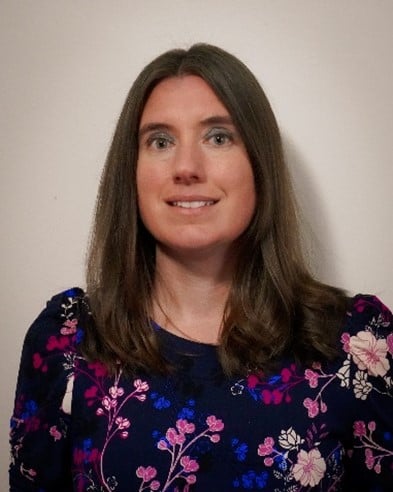
1. Congratulations on your published paper. Can you please tell us a bit about yourself and what your research areas are?
I am a Full Professor and the Canada Research Chair at the University of Victoria where I hold dual appointments in the Department of Mechanical Engineering and the Division of Medical Sciences. I also hold an affiliate appointment with the School of Biomedical Engineering at the University of British Columbia. I run a research group that investigates how to engineer neural tissue from induced pluripotent stem cells (iPSCs) using a variety of methods, including 3D bioprinting and cellular reprogramming. My research group has developed many types of biomaterial scaffolds for promoting the differentiation of iPSCs into neural cell types for tissue engineering applications, such as screening the toxicity of drugs, learning about how tissues form during development, and replacing dysfunctional tissues. I also founded the spin-off company Axolotl Biosciences, with the goal of bioprinting neural tissues that are easily accessible to scientists and engineers from a range of backgrounds.
2. What are the current cutting-edge research topics in your field of interest?
The field of 3D bioprinting is evolving at a rapid rate. It has been interesting to see the new bioprinters being developed along with recent advances in bioinks that allow for the generation of tissues similar to those found in the human body. The use of 3D bioprinting for clinical applications is also another hot area of research and discussion.
3. What made you decide to publish an article in Bioengineering? Why did you choose Bioengineering?
We were invited to submit by one of my colleagues—Dr. Houman Savoji. One of the advantages of submitting to journals such as Bioengineering is that you get quick and high-quality reviews, and there is a quick turnaround in your paper being published after it has been accepted.
4. How was your experience publishing with Bioengineering?
It was great—the process, including submission and responding to reviews, was quick and easy.
5. Was it important to you that the journal is Open Access?
Yes, we receive significant support from a variety of funding agencies, including the Natural Science and Engineering Research Council, the Canadian Institutes of Health Research, the Michael Smith Health Research B.C., the Pacific Parkinson’s Research Institute, the Canada Research Chairs program, and the New Frontiers in Research Fund, and these organizations are funded by taxpayers and donors. I think it is important that anyone can read the results of the research being conducted using such funding.
6. How do you think Open Access impacts authors?
Our Open Access papers tend to be more widely read by diverse audiences, which helps ensure that our work is read by relevant audiences.
7. What do you hope that readers will receive from your paper?
The review does an excellent job of discussing the advantages and disadvantages of the different types of naturally derived biomaterials when used as bioinks for generating tissue models. The team who wrote the paper is an outstanding collection of women scientists and engineers. The first author—Claire Benwood—successfully defended her master’s degree last fall and will start working in the biotechnology industry this spring.
We are thankful for Prof. Dr. Willerth's time and support for the Bioengineering journal.
Prof. Dr. Stephanie Willerth’s contact information:
Email: willerth@uvic.ca
16 February 2023
Increasing Visibility for Preprints.org – Clarivate adds the Preprint Citation Index to the Web of Science
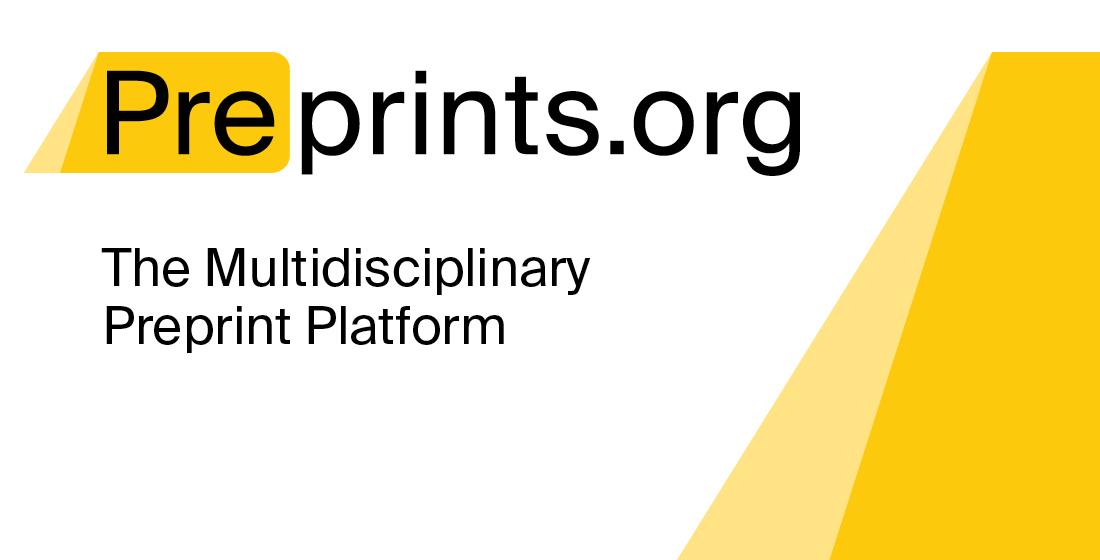
On 9 February 2023, Clarivate, a global leader in providing trusted insights and analytics, added the Preprint Citation Index to the Web of Science platform, streamlining the research process by allowing researchers to locate and link to preprints alongside other trusted content in the database.
The Preprint Citation Index will act as a bridge to connect cutting-edge preprints with peer-reviewed journal articles published within the Web of Science Core Collection. Alerts can be easily set to monitor new research across several repositories and authors will also be able to include preprints on their Web of Science Research Profile to more accurately display their various research outputs.
As of its launch, the Preprint Citation Index will provide nearly two million preprints from various repositories, including MDPI’s own Preprints.org.
MDPI's Preprints Platform – Preprints.org
To advance Open Science and the fast dissemination of research, MDPI offers researchers a free multidisciplinary preprint platform. Preprints.org accepts submissions from all research areas and offers authors high visibility, permanent archiving, article-level Metrics and immediately citable content by assigning a Digital Object Identifier (DOI) to all preprints.
During submission to any MDPI journal, authors have the option to share their research as a preprint. After an initial screening, the manuscript is available online in 48 hours or less. Once online, preprints can be downloaded, shared, commented on, and cited, providing authors maximum visibility.
We invite you to join the ranks of the over 100k researchers using Preprints.org and share your research.
For more information, please visit Preprints.org.
14 February 2023
Meet Us at the 11th National Conference on Bioinformatics and Systems Biology, 25–27 February 2023, Guangzhou, China

Conference: 11th National Conference on Bioinformatics and Systems Biology
Date: 25–27 February 2023
Place: Guangzhou, China
MDPI will be attending the 11th National Conference on Bioinformatics and Systems Biology (CCBSB2023) as the exhibitor. The National Academic Conference on Bioinformatics and Systems Biology has been successfully held for ten sessions since its first session in 1998. It is a national event with the highest academic level and the greatest influence in the field of bioinformatics research in China. The theme of the conference is "The Latest Frontier Research of Bioinformatics and Systems Biology and Their Applications", and the topics cover translational informatics and data sharing security, biomedical data mining and computing, genome informatics, artificial intelligence and life sciences, group bioinformatics and integrated biology, non-coding RNA and RNA informatics, network biology, major disease omics informatics, biological macromolecular structure prediction and simulation, bioinformatics algorithm research, biological data resources, bioinformatics and drugs discovery, computational synthetic biology, agricultural and forestry informatics and other bioinformatics, and other frontier directions.
The following MDPI journals will be represented:
- Genes;
- JPM;
- Cardiogenetics;
- Bioengineering;
- Biomolecules;
- Metabolites;
- Cells;
- Symmetry;
- Biomedicines;
- Computers;
- COVID;
- Epigenomes.
If you are attending this conference, please feel free to start a conversation with us. Our delegates look forward to meeting you in person and answering any questions that you may have. For more information about the conference, please visit https://ccbsb2022.casconf.cn/.
13 February 2023
Dr. Andrea Cataldo Appointed Section Editor-in-Chief of Section “Biomedical Engineering and Biomaterials” in Bioengineering
We are pleased to announce that Dr. Andrea Cataldo has been appointed Section Editor-in-Chief of the Section “Biomedical Engineering and Biomaterials” in Bioengineering (IF: 5.046, ISSN: 2306-5354).

Dr. Andrea Cataldo received his materials engineering degree from the University of Salento, Lecce, Italy, in 1998, and a Ph.D. in information engineering in 2003 from the same University. From 2005 to 2013, he was a Researcher in the area of electric and electronic measurements and, currently, he is an Associate Professor. He is a lecturer in the courses “Instrumentation and Measurement Lab”, “Measurements” and “Principles of Bioengineering” and he is the supervisor of a research group at the Department of Engineering for Innovation, the director of the “measurement Lab” and the founder and technical supervisor of the spin-off MoniTech. His main research interests include measurement and sensing techniques, monitoring systems, sensors, dielectric characterization and non-destructive tests of materials. He has been involved in leading various research projects supported by public and private bodies. He has co-authored over 200 publications in international journals, book chapters, and international and national conferences, along with three books, and he holds four patents.
The following is a short Q&A with Dr. Andrea Cataldo, who shared his vision for the journal with us as well as his views on the research area and Open Access publishing:
1. What appealed to you about the journal that made you want to take the role as its Section Editor-in-Chief?
The journal, although relatively new, thanks to an Open Access policy, a rigorous method of selection and revision of the works and, most importantly, a very high speed of the management of the editorial process, has significantly attracted many researchers and scientists working in the field of bioengineering. Another key reason for its strong attractiveness undoubtedly lies in the tremendous scientific and technological impact that the biomedical engineering, bioengineering and biomaterials sectors are currently experiencing.
2. What is your vision for the Section?
“Biomedical Engineering and Biomaterials” is a multidisciplinary Section collecting the current status, recent progress, and future perspectives in the context of bioengineering science, biomaterials and biomedical engineering.
The Section welcomes innovative contributions covering key aspects of bioengineering, medical diagnosis, biosensors, devices and biomedical instrumentation including design, characterization and application-focused research with a focus on innovative applications involving machine learning and AI.
3. What does the future of this field of research look like?
Tremendous progress has been made in terms of innovative contributions and practical applications of bioengineering, medical diagnosis, biosensors, devices and biomedical instrumentation, including design-, characterization- and application-focused research. In particular, similarly to the enormous impact that enabling technologies 4.0 have entailed in many application fields, the introduction of such paradigms is also leading to an epochal technological transition in bioengineering.
On such a basis, the future of this research field seems particularly oriented to the practical application of advanced experimental tools based on machine learning and AI for medical diagnostics, smart sensing and bio-monitoring, predictive modeling, individualized surgery and computational modeling of biological systems.
4. What do you think of the development of Open Access in the publishing field?
As previously mentioned, I believe that the Open Access policy is key to success and an innovative strategy to guarantee a wide diffusion of scientific research without barriers and to anyone. However, without a rigorous and accurate review procedure and adequate scientific coordination, these positive factors can easily become a disadvantage. From my personal experience, I can say that the Bioengineering journal combines these two factors very well, effectively allowing the simultaneous achievement of an excellent qualitative and informative impact in the sectors of interest. It should also be added that the discount and/or free-of-charge mechanism for publication fees, for example for young researchers, to those who act as reviewers or who contribute to Special Issues or feature papers, also give the opportunity for submission to research groups who may not possess many financial resources.
We warmly welcome Dr. Andrea Cataldo as the new Section Editor-in-Chief and we look forward to him leading Bioengineering to reach many more milestones.
8 February 2023
Interview with Prof. Dr. Giovanni Improta—Editorial Board Member of Bioengineering
We had the pleasure of speaking with Prof. Dr. Giovanni Improta, Editorial Board Member of Bioengineering (ISSN: 2306-5354), to discuss the recent research trends in the field and his personal career developments. We hope you enjoy the interview.
|
|
Name: Prof. Dr. Giovanni Improta |
Prof. Dr. Giovanni Improta is a researcher of electronics and informatics bioengineering at the Department of Public Health of the School of Medicine and Surgery of the University of Naples "Federico II" (Naples, Italy), where he teaches the course "Healthcare Organization Models" in the master’s degree program in biomedical engineering at the Department of Electrical Engineering and Information Technology of the School of Polytechnic and Basic Sciences of the aforementioned university. Additionally, he teaches the course "Toxicology and Industrial Hygiene" in the master's degree program in chemical engineering at the Department of Chemical Materials and Industrial Production Engineering of the same university.
He has an M.Sc. in both management engineering and biomedical engineering. He also has a master’s degree in finance, administration and management control, and three Ph.D. degrees: a Ph.D. in economics and management of health organizations, achieved in 2011 at the University of Naples "Federico II" with a thesis titled "The HTA (Health Technology Assessment) for the management of biomedical equipment of a Hospital Company: reallocation, donation to developing countries, conception and design of a virtual community"; a Ph.D. in bioengineering, achieved in 2014 at the University of Bologna "Alma Mater Studiorum" with a thesis titled "Symbolic Dynamics Analysis: a new methodology for fetal heart rate variability analysis"; and a Ph.D. in products and industrial processes engineering, achieved in 2017 at the University of Naples "Federico II", with a thesis titled "Dynamic Analytic Hierarchy Process: a new approach to technology assessment to support healthcare processes". He was a research fellow at the Department of Public Health of the University of Naples "Federico II" from 2010 to 2017, where he had the opportunity to participate in national and international research projects and to collaborate with companies operating in the public health and biomedical sector.
His research activities are focused on the management and optimization of health processes through the implementation of management strategies and the development of simulation models and multi-criteria decision systems as well as the analysis, processing, and management of biomedical data and signals by means of statistical approaches and machine learning algorithms. He participated in several national and international conferences, he was involved in different national and international research projects, and he is the author of more than 125 Scopus-indexed scientific publications in both peer-reviewed journals and international conference proceedings. The topics he addresses include clinical decision-making systems, Lean and Six Sigma in healthcare, health technology assessment, and biomedical data analysis. He is also the inventor of two patents on innovative solutions to improve patients’ monitoring and well-being. Moreover, he is the editor, guest editor, and reviewer for different international peer-reviewed journals.
The following is an interview with Prof. Dr. Giovanni Improta:
1. What are your research areas?
My main research activities are focused on the management and optimization of health processes through the implementation of management strategies and the development of simulation models and decision support systems as well as the analysis, processing, and management of biomedical data and signals by means of statistical approaches and machine learning algorithms. Within healthcare management and biomedical data analysis, I mostly contribute to the development of modeling tools, machine learning approaches, and statistical analysis to support clinical decision-making, the application of Lean and Six Sigma approaches to improve and optimize care processes and healthcare quality, and the use of simulation and mathematical models for health technology assessment. In this regard, I had the opportunity to contribute to these topics by authoring more than 120 Scopus-indexed scientific publications in both peer-reviewed journals and international conference proceedings.
2. What are the latest developments in your research field?
In my opinion, the main and most interesting developments regard the advancements of digitalization in the public health sector. Indeed, digital technologies have successfully transformed most sectors, with a major impact on healthcare, where massive investments in digital health technologies are bringing radical transformation to healthcare services. In this scenario, one of the main challenges is the integration of such digital technologies into assistance processes/pathways and clinical practice. The advantages that the introduction of novel biomedical engineering solutions in the public health sector can bring range from the improvement of patient‒clinician communication to the efficient design of new diagnostic‒care‒assistance pathways to the optimization of health services. Among the most innovative digital tools in the field of healthcare, the use of artificial intelligence (AI) plays a fundamental role to help clinicians in making better decisions, in more effectively managing patient data, and, not least, in creating personalized care plans. The use of artificial intelligence to support clinical decisions, in particular, is the subject of a recent patent on the development of an intelligent system for the management of polypathological patients, conceived and developed at the Department of Public Health of the “Federico II” University, to which I contributed as the inventor.
3. Can you briefly share your career development story? For example, what cases have influenced you the most?
My career has been focused on improving myself both from the personal and professional perspective. I have always tried to pursue my career’s objectives with perseverance and enthusiasm. My interest in the healthcare sector and the field of biomedical engineering is the main motivation that has boosted my career advancements and encouraged me to invest in my education and grow as a researcher in the bioengineering field. Besides my main education goals (two M.Sc. degrees and three Ph.D. degrees achieved from 2005 to 2017), I have carried out research activities at the Department of Public Health of the University of Naples "Federico II" as a research fellow from 2010 to 2017 and as a senior researcher from 2017 on, also achieving the National Academic Qualification as Associate Professor in the sector 09/G2—Bioengineering.
4. Do you have any valuable suggestions you would like to share with young students and early career researchers?
I would encourage young students and early career researchers to always invest in their education and professional growth as this is one of the most powerful tools to make their value emerge and to effectively pursue their goals. In addition, as research and innovation change and advance very fast, whatever their background is, I would warmly recommend young students to make efforts in understanding their real and profound motivation as it will always provide them with the strength and necessary determination to deal with new research topics and to face new technological, social, and health challenges.
5. What do you think of the development of Open Access in publishing?
I strongly believe in sharing and spreading research advancements with the scientific community. Therefore, I fully support and absolutely agree with Open Access in publishing as a means to foster innovation and as an incentive to learn from the most valuable and outstanding scientific approaches and outcomes in order to bring further improvements by building on solid shared knowledge.
We are thankful for Prof. Dr. Improta's time and support for Bioengineering.
28 January 2023
Interview with Prof. Dr. Anthony Guiseppi-Elie—Founding Editor-in-Chief of Bioengineering
We had the pleasure of speaking with Prof. Dr. Anthony Guiseppi-Elie, Editor-in-Chief of Bioengineering (ISSN: 2306-5354), to discuss the recent research trends in the field and his personal career development.
|
|
Name: Prof. Dr. Anthony Guiseppi-Elie Email: guiseppi@tamu.edu |
Persistence and perseverance, vim and verve.
Prof. Dr. Anthony Guiseppi-Elie is a Chief Academic Officer and serves as Vice President of Academic Affairs and Workforce Development at Tri-Country Technical College, USA. He was the Founding Dean of the College of Engineering, Vice President of Industry Relations, and University Distinguished Professor at Anderson University, South Carolina. He is the former Associate Dean of Engineering Innovation in Engineering Medicine (ENMED) at Texas A&M University (TAMU) and Houston Methodist Hospital (HMH), where he was the TEES Professor of Engineering, Professor of Biomedical Engineering, and Professor of Electrical and Computer Engineering. At Houston Methodist Hospital, he was a Full Affiliate Member of the Houston Methodist Research Institute and a Professor of Biomedical Engineering at the Department of Cardiovascular Sciences and Engineering. Previously, he was Department Head of Biomedical Engineering and Director of the TEES Division of Biomedical Engineering at TAMU and directed the Bioelectronics, Biosensors and Biochips (C3B®) Laboratories as a member of the joint EnMed Faculty Regenerative Engineering Working Group. He is the Founder, President, and Scientific Director of ABTECH Scientific, Inc., a near-patient biomedical diagnostics company, and has been associated with three start-up companies.
He holds an Sc.D. in materials science and engineering from MIT, an M.Sc. in chemical engineering (corrosion science and engineering) from the University of Manchester Institute of Science and Technology (UMIST) and a B.Sc. (First Class Honors) with majors in analytical chemistry, biochemistry, and applied chemistry from the University of the West Indies (UWI). He spent 15 years in both intrapreneurial and entrepreneurial industrial research and product development at companies such as WR Grace & Co, Molecular Electronics Corporation and ABTECH Scientific, Inc., before becoming a full Professor of Chemical and Life Science Engineering (1998) and Professor of Emergency Medicine (2000) at Virginia Commonwealth University/Medical College of Virginia. In 2006, he joined Clemson University as the Dow Chemical Professor with appointments in Chemical and Biomolecular Engineering, Bioengineering, and Electrical and Computer Engineering. In 2015, he joined TAMU and in 2020 joined Anderson University.
As a founding professor of the department of Chemical and Life Sciences Engineering, Prof. Dr. Anthony Guiseppi-Elie was instrumental in establishing the School of Engineering at VCU, serving as the first full professor of Chemical and Life Sciences Engineering, center director, and as a member of the Dean’s Cabinet (Dean Dr. Henry McGee). As a full professor at the Department of Emergency Medicine in the Medical College of Virginia (MCV-VCU), Prof. Dr. Guiseppi-Elie played a key role in recruiting the first class and led the development of an innovative curriculum at the interface of chemical engineering and the life sciences. At Clemson University, he held appointments at the departments of Chemical and Biomolecular Engineering, Bioengineering, and Electrical and Computer Engineering. At Clemson, Prof. Dr. Guiseppi-Elie developed the Biomolecular Concentration, which included courses in biomolecular engineering, bionanotechnology, and biosensors and bioelectronics that served all three departments. At Texas A&M, he served as a founding member of the Working Group on Engineering-Medicine (ENMED) that worked over four years to develop a partnership with Houston Methodist Hospital and realize a program of study leading to the simultaneous earned MS in Engineering Innovation and the MD, both earned in four years of study.
Prof. Dr. Guiseppi-Elie is a 2015–2010 Fulbright Specialist Award recipient in bioengineering at the University of Tucumán, Tucumán, Argentina, the 2017 Visiting Distinguished Professor of Interdisciplinary Science and Engineering at Wrocław University in Poland, the 2014–2015 Visiting Distinguished Professor of Industrial Bioelectronics at l'Ecole des mines d'Alès, France, the 2013 Avis Professor in Pharmaceutics at the University of Tennessee, a 2012–2013 IEEE-EMBS Distinguished Lecturer, and a 2012 Microsystems Distinguished Lecturer at the University of Maryland. Prof. Dr. Guiseppi-Elie is a Fellow of the American Institute of Medical and Biological Engineering (AIMBE Fellow-2006), a Fellow of the Royal Society of Chemistry (FRSC-2014), A Fellow of the Institute of Electrical and Electronic Engineers (FIEEE-2016), a Lifetime Member of AIChE, and holds memberships in AAAS, ACS, MRS, AAPS, and BMES. He has previously served as Vice Chair, Co-Chair, and Secretary Treasurer of the AIMBE Industry Council and was the 2017–2018 Chair of the AIMBE College of Fellows. He is a graduate of the Academic Leadership Academy at Penn State University and serves on the External Advisory Board of the Biomedical Engineering Department at the University of Florida, the Board of Directors of STEAM-E, and The Council for Frontiers of Knowledge (The CFK) (Uganda).
Among Prof. Dr. Guiseppi-Elie’s many national and international appointments are as a member of the National Science Foundation’s (NSF) sub-committee on “Mathematical and Physical Sciences and the Living World” (2020), an appointed member of the International Panel on “Science for Technological Innovation (sfTI)” of the National Science Challenge, New Zealand (2018–2020), an appointed member of the NSF-Lead US Delegation to a Joint USA-Russia Workshop on “Emerging Trends in Bioelectronics” Electrical, Communications and Cyber System Division and the Office of International Science and Engineering (2011), an appointed member of the National Academies Panel on “Electronics and Electrical Engineering” (2009) of the US National Research Council (2009), and an appointed member of the International Panel for “Review of Programme for Research in Third Level Institutions” of the Higher Education Authority (HEA) of Ireland.
Prof. Dr. Guiseppi-Elie has taught technical innovation, entrepreneurship, biomolecular and cellular engineering, biosensors and bioelectronics, biological transport phenomena, and nanobiotechnology. His research interests are engineered bioanalytical microsystems in the service of human health and medicine. This includes bionanotechnology, microfabrication, and 3D printing of bio- and electro-responsive hydrogels, BioMEMS, physiology-on-a-chip, ABIO-BIO interfaces, and interfacing of biology and engineering at the molecular, cellular and tissue length scales. He has published over 225 archival scientific papers (8731 citations, h-index = 48), 33 book or proceedings chapters, holds 8 USA and foreign patents, and has given in excess of 200 invited lectures/colloquia. He is the founding Editor-in-Chief of Bioengineering (IF = 5.046). He was named among the top 1000 Black life scientists in the USA (2020) and the top 2% of scientists worldwide (2021).
We wish to congratulate Prof. Dr. Anthony Guiseppi-Elie for being listed among the top 2% of scientists worldwide. We hope you enjoy the interview!
1. What are your research areas?
My research interests are in the fundamentals: engineering development and clinical deployment of engineered bioanalytical microsystems in the service of human health and medicine. These are measurement devices and systems intended to engender greater control in clinical decision-making, and they employ a wide range of enabling technologies, including carbonaceous nanomaterials in bionanotechnology to support direct electron transfer and biosensor development, microlithographic fabrication of implantable biochip substrates to enable multiplexed biosensing of biomarkers in hemorrhagic trauma, 3D printing of bioactive and electro-responsive hydrogels as biorecognition hosting elements in biosensors, BioMEMS, vascular physiology-on-a-chip, ABIO-BIO interfaces to support neurostimulation, and the interfacing of biology and engineering at the molecular, cellular, and tissue-length scales. Among the areas to which I have made major contributions are enzymes, antibodies, and genosensors that employ electrochemical transduction. Another area of interest has been the development of biologically responsive polymers based on the synthesis of co-polymers fashioned from inherently conductive polymers such as Poly(3,4-ethylenedioxythiophene) (PEDOT) and polypyrrole with highly hydratable monomers such 2-Hydroxyethyl Methacrylate (2-HEMA) and 2-Hydroxypropyl Methacrylate (2-HPMA) and functionalized polypeptides to yield bioactive, electroconductive hydrogels. Such materials may be fashioned into responsive hydrogels that host a drug payload for sustained bio-erodible release and/or electro-stimulated burst release. Most recently, we have become interested in electromics, which is the control of gene expression under the influence of exogenously applied electric fields.
2. What are the latest developments in your research field?
The latest developments in the field of biosensors are found in multiplexed and multimodal biosensors. Multiplexed biosensors use the same principle of transduction but seek a plurality of analytes using a multiplicity of biological recognition elements immobilized on different regions of the complex transducer. Multimodal biosensors may target the same analyte but may use two or more modes of transduction. An equally important development is the use of post-processing to achieve data fusion with other sources of related bioanalytical data or with clinical expert data. The use of data fusion algorithms to achieve classification or stratification is exampled by the use of AI to fuse multi-modal biophysical and biochemical data to achieve stratification of allografts for transplantation.
Another important development is the use of electric fields to influence the expression of genes within cells and tissues. While electrobiology has been around for a very long time and molecular bioelectricity has provided important insight into electrophysiology, the application of controlled electric fields to support neo-vascularization or tissue innervation in regenerative engineering promises to be an important theme for the future.
3. Can you share your career development story? For example, what cases have influenced you the most?
The landmark discovery that some organic polymers may be inherently conductive, possessing electrical conductivities and other properties similar to that of metals, was irresistibly fascinating [H. Shirakawa, E. J. Louis, A. G. MacDiarmid, C. K. Chiang, A. J. Heeger, Synthesis of electrically conducting organic polymers: halogen derivatives of polyacetylene, (CH)x, Journal of the Chemical Society, Chemical Communications, 578–580]. This, and the subsequent works that became the substance of the 2000 Nobel Prize in Chemistry, came on the heels of Lehninger’s electron-transport chain of molecular bioenergetics, in which I had become immersed as an undergraduate biochemistry student. I spent my early career exploring the connections between these two streams, which led to: Guiseppi-Elie US Patent 5,312,762 5/1994 (https://patents.google.com/patent/US5312762A/en?oq=5312762) and Guiseppi-Elie et al. Nanotechnology, 2002, 13(5), 559 (https://iopscience.iop.org/article/10.1088/0957-4484/13/5/303). A second source of influence has been the textbook by Alan J. Grodzinsky—Fields, Forces, and Flows in Biological Systems, ISBN 9780367864354. I have taught from and been inspired by the holistic treatment across multiple length scales found in this textbook.
4. Do you have any valuable suggestions you would like to share with young students and early career researchers?
We are each birthed into an ecosystem of ideas and approaches to the emergence of new ideas in that ecosystem. The faster we can shed the trappings of our own and embrace those of others—for example, through travel, through forays into other disciplines, or immersive associations with other cultures, or collaborations—the faster we can mature in our humanity and in our inquiry. Stick with it, but not indefinitely. Be prepared to tack left or right, taking with you lessons learned. Collaborate extensively, recognizing that with each collaboration, you must sacrifice some of yourself so that the collaboration as a whole is better than the sum of each person taken separately. Be prepared to fail; it is an equally valid condition. Dwell on your failures, but do not become paralyzed by them; they are far more informative than your successes.
5. What do you think of the development of Open Access in publishing?
I am an advocate for Open Access publishing. Open Access publishing broadens participation in the knowledge enterprises through access and availability, and so engenders greater citizen engagement with qualified knowledge sources. I joined MDPI with a proposal to establish Bioengineering in early 2013 (ISSN (electronic): 2306-5354; Publisher: MDPI AG), not long after the publishing house was founded as Multidisciplinary Digital Publishing Institute by Dr. Shu-Kun Lin in 2010. Gold OA publishing allows peer-reviewed journal works to be accessed via the journal’s or publisher’s website. Having been in the Open Access publishing space for almost 10 years, I see that Open Access publishing continues to approach maturity, but also continues to receive some scrutiny and criticism for being a double-edged sword in both perception and practice. Open Access publishing may not yet be fully “out of the woods”, even though this model is now adopted by several major traditional scientific publishing houses, for select or new journals. This model may still be vulnerable while on the path to full maturity. Open Access journals that have benefitted from highly disciplined, deeply engaged academic editorial leadership have reaped the benefits of high Impact Factors. For example, MDPI is home to 10 journals with IF ≥ 5.000 (Clarivate, Journal Citation Reports). It is important that we continue to maintain quality and integrity while democratizing knowledge. Financial self-sufficiency and sustainability continue to be a source of concern in the Open Access space. However, subscribing to the tenets of COPE ensures a culture of publication integrity. Sustained and productive consultative relationships among publishers and Editors-in-Chief, Associate Editors, and Editorial Board Members who are credible content experts will ensure a secure future for Open Access publishing, one that balances the security of the new financial model with the aspirations of equity and integrity in scientific publishing.
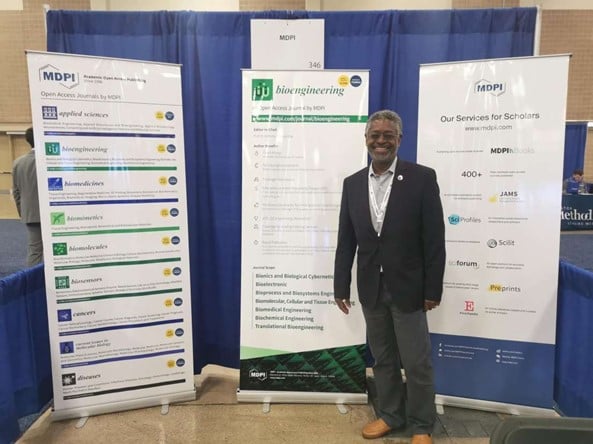
The Founding Editor-in-Chief next to our booth at BMES 2022 in San Antonio, TX, USA
We are thankful for Prof. Dr. Anthony Guiseppi-Elie’s time and his ongoing support of Bioengineering.
20 January 2023
Interview with Dr. David Caballero—Author of a Published Paper in Bioengineering
|
|
Name: Dr. David Caballero Email: dcaballero@i3bs.uminho.pt Article title: “Versatile Vessel-on-a-Chip Platform for Studying Key Features of Blood Vascular Tumors” |
We had the pleasure of speaking with Dr. David Caballero, author of the recently published paper “Versatile Vessel-on-a-Chip Platform for Studying Key Features of Blood Vascular Tumors” in Bioengineering (ISSN: 2306-5354). We discussed the recent research trends in the field and his personal career developments.
We hope you enjoy the interview.
1. Congratulations on your published paper. Can you provide a background about yourself and what your research areas are?
I am an experienced biophysicist with an M.Sc. and Ph.D. in nanoscience from the University of Barcelona, Spain. Currently, I am an assistant researcher at the 3B´s Research Group at the University of Minho, Portugal, a world-known institute in the field of tissue engineering. Since very early on, particularly during my postdoctoral periods at ISIS/IGBMC—Université de Strasbourg (France) and at IBEC (Spain)—and now at 3B´s, I have been very passionate about applying the concepts and principles of fundamental physics to biological problems. My experiments are typically very multidisciplinary and combine microfabrication, tissue engineering, cell biology, and biophysics. The aim is to engineer realistic in vitro environments from which we can extract useful data that can be used to improve our understanding of the mechanisms involved in the onset and progression of pathologies. For example, one of my current research interests is recreating the dynamic properties of the native habitat of cells using organ-on-a-chip technology to evaluate how mechanical forces contribute to the pathophysiology of cancer. Indeed, this research field has attracted much attention from biomedical researchers and a lot of effort is currently being invested in the mechanobiology of cancer. In my case, I am interested in understanding how cancer cells migrate through confined spaces, such as vascular walls or dense matrices, and how they respond to external forces, particularly fluid flow, boosting their invasion capability. We hope that our discoveries can improve our current knowledge in the pathophysiology of the disease and eventually contribute to developing better therapies. Altogether, the combination of (bio)physics and nanotechnology in the biological field is an exciting field of research in which we will continue to see exciting results in the coming years.
2. What made you decide to publish an article in Bioengineering?
One of the most important decisions before and after writing an article is where to submit it. Indeed, there are a bunch of excellent multi-disciplinary journals in which my research could be published. A distinctive feature of Bioengineering though is the strong offer in Special Issues. After receiving the invitation from the editor, we realized that our work perfectly fit within the proposed topic and, therefore, the publication of our article would receive higher attention boosting the impact and interest in our work. After evaluation of the pros and cons of different journals, we decided to submit our article to Bioengineering. We cannot forget the big progression of Bioengineering during the last years, making this journal a very good option for publishing work in the field of tissue engineering, regenerative medicine, biophysics, or similar fields.
3. How was your experience publishing with Bioengineering?
I was indeed surprised, not only about the speed of the peer-reviewing process, but also about its quality. Typically, the time between the submission and publication of an article is very long, being in some cases several months. Sometimes this timeframe is too long, which may jeopardize the novelty of the work or a grant application, or both. Despite the speed of the peer-reviewing, I had two tough rounds of revisions. This contributed to improving the quality of the manuscript and, as a result, increased the interest in the article by the scientific community.
4. Was it important to you that the journal is Open Access?
Nowadays, publishing in Open Access is mandatory for most national and European funding schemes. However, most of the journals have very expensive APCs, which many research groups cannot afford. There is the possibility of publishing in “green” Open Access, but, in certain cases, this option dilutes the spirit of granting easy access to the articles. Publishing in “gold” Open Access at a moderate cost allows the scientific community to have full access to the published manuscripts directly on the journal website without the need to navigate inside University repositories. Overall, this has definitely contributed to our paper reaching a larger audience.
5. What do you hope that readers will get from your paper?
After reading the paper, it will be understood better how the structural and hydrodynamic complexity of vascular tumors can be reproduced and analyzed through microfluidics technology and biophysical analysis. This type of tumor displays aberrant – tortuous – vessel architectures and highly perturbed blood flows and, therefore, in vitro organ-on-a-chip platforms capable of recapitulating these distinctive features are highly demanded by the biomedical community. The readers will realize how vascular tumors perturb blood hemodynamics, particularly through the massive formation of thrombus and blood hemorrhage, two of the main events that we reproduce within the chip. Overall, our work establishes the technological basis of a versatile microfluidic platform, that we denote tumor vessel-on-a-chip, capable of reproducing the distinctive structural and dynamic traits occurring in vascular tumors. Note finally that our system may be utilized for investigating other dynamic events characteristic of vascular-related diseases or for the screening of novel pharmacological formulations targeting thrombi formation and blood hemorrhage, among other applications.
9 January 2023
Welcoming New Section Editors-in-Chief of Bioengineering
We are pleased to announce that Dr. Gary Chinga Carrasco, Dr. Andrea Cataldo, Prof. Dr. Franz Konstantin Fuss, and Dr. Elena A. Jones have been appointed respective Section Editors-in-Chief of the Sections “Nanotechnology Applications in Bioengineering”, “Biomedical Engineering and Biomaterials”, “Biosignal Processing”, and “Regenerative Engineering” in Bioengineering (ISSN: 2306-5354). We look forward to their contribution to the continued success of the journal.
|
|
Name: Dr. Gary Chinga Carrasco |
|
|
Name: Dr. Andrea Cataldo |
|
|
Name: Prof. Dr. Franz Konstantin Fuss |
|
|
Name: Dr. Elena A. Jones |
For more detailed information, please visit the following link: https://www.mdpi.com/journal/bioengineering/sections.
Bioengineering Editorial Office
22 December 2022
Special Issue Mentor Program
We are pleased to announce the launch of a new initiative—the MDPI Special Issue Mentor Program.
This program will enable early career researchers (who must hold a Ph.D. in a related field) to experience editing a Special Issue in MDPI journals, under the mentorship of our experienced Editorial Board Members or other experienced scientists. The mentor program will provide an excellent opportunity for early career scientists to gain editorial experience, and to cultivate their ability to edit scientific research.
The mentee’s responsibilities include:
- Proposing a Special Issue title and assisting the mentor in preparing a summary (around 200–400 words) and 3–10 keywords describing the background, importance, and goal of the Issue;
- Writing a brief promotion plan for the Special Issue;
- Preparing a list of scholars who may be interested in the Issue and personally e-mailing invitations on behalf of Guest Editors;
- Writing an editorial for the online Special Issue together with the mentor.
The mentor’s responsibilities include:
- Conducting a final check before the Special Issue is published online;
- Performing editorial control of the Special Issue and quality control of the publications, both of which must be carried out in a timely manner;
- Providing suggestions to younger scholars if they have any doubts or concerns regarding submissions;
- Organizing video calls with young scholars and the Editorial Office regularly to discuss problems and improvement suggestions for the Special Issue;
- Making and submitting decisions regarding submissions with the assistance of mentees.
Certificates and awards:
After the Special Issue closes, the Editorial Office will provide official certificates for all the mentors and early career researchers.
If you are interested in this opportunity, please send your Special Issue proposal to the Editorial Office of a journal you choose, and we will discuss the process (i.e., mentor collaboration, Special Issue topic feasibility analysis, etc.) in further detail. The full list of MDPI journals is as follows: https://www.mdpi.com/about/journals.
In addition to the new Special Issue Mentor Program, we will continue to welcome all Special Issue proposals focusing on hot research topics.
22 December 2022
Interview with Dr. Ngan F. Huang—Editorial Board Member of Bioengineering
|
|
Name: Dr. Ngan F. Huang Email: ngantina@stanford.edu Editorial Board Member of Bioengineering |
We had the pleasure of speaking with Dr. Ngan F. Huang, Editorial Board Member of Bioengineering (ISSN: 2306-5354), to discuss the recent research trends in the field and her personal career developments. We hope you enjoy the interview.
Dr. Ngan F. Huang is an Associate Professor in the Department of Cardiothoracic Surgery and Courtesy Associate Professor of Chemical Engineering at Stanford University. She holds a co-terminous appointment as Principal Investigator at the VA Palo Alto Health Care System. Dr. Huang completed her BS in chemical engineering at the Massachusetts Institute of Technology, followed by a Ph.D. in bioengineering at the University of California Berkeley and the University of California San Francisco Joint Program in bioengineering. Prior to joining the faculty, she was a postdoctoral scholar in cardiovascular medicine at Stanford University. Her laboratory investigates the interactions between stem cells and the extracellular matrix microenvironment for engineering tissues to treat cardiovascular and musculoskeletal diseases.
Dr. Huang has authored over 90 publications and patents in journals such as Nat Med, PNAS, and Nano Lett. Her research is funded by the NIH, the NSF, the Department of Defense, the Department of Veteran Affairs, and the American Heart Association.
The following is an interview with Dr. Ngan F. Huang:
1. What are your research areas?
My laboratory aims to understand the biochemical and mechanical interactions between extracellular matrix (ECM) proteins and stem cells that regulate cardiovascular differentiation, survival, and angiogenesis, with the goal of translating these basic insights to the design of biological therapies to treat cardiovascular disease and muscle injuries. Ongoing projects include ECM-mediated effects on the endothelial-to-mesenchymal transition, spatially patterned nanofibrillar collagen scaffolds with induced pluripotent stem-cell-derived endothelial cells for the treatment of peripheral arterial disease, scaffold-mediated delivery of therapeutic smooth muscle cells for treatment of abdominal aortic aneurysm, and engineered muscle for the treatment of volumetric muscle loss.
2. What are the latest developments in your research field?
With recent technological advancements, there is a general push towards the use of multi-omics approaches to better understand the pathological progression of cardiovascular diseases, as well as the use of multi-omics to reveal fundamental insights into the effects of experimental therapies. I anticipate that spatial transcriptomics, spatial proteomics, single-cell RNA sequencing, and epigenomics will become widely adopted tools for researchers.
3. Can you briefly share your career development story? For example, what cases have influenced you the most?
My research career began as a high school student, when I had the experience to perform research as a summer intern. This experience motivated me to pursue a graduate degree in research. Along the way, I was fortunate to have been mentored by many influential mentors who took an interest in advancing my career. For this reason, I am grateful and have sought to do the same for my own trainees.
4. Do you have any valuable suggestions you would like to share with young students and early career researchers?
Resilience. Successful researchers do not always have smooth career development. My advice is to not be discouraged by setbacks, but to keep inching forward with resilience.
5. What do you think of the development of Open Access in publishing?
Open Access allows for the widest dissemination of findings to the global community. Overall, I think it is a good idea that moves research advances forward.
We are thankful for Dr. Huang's time and support of Bioengineering.
22 December 2022
Interview with Prof. Dr. Christoph Herwig—Editorial Board Member of Bioengineering
|
|
Name: Prof. Dr. Christoph Herwig Email: christoph.herwig@tuwien.c.at Editorial Board Member of Bioengineering |
Prof. Dr. Christoph Herwig, a bioprocess engineer from RWTH Aachen, worked in industry in the design and commissioning of large chemical facilities prior to beginning his interdisciplinary Ph.D. studies at EPFL, Switzerland in bioprocess identification. Subsequently, he positioned himself at the interface between bioprocess development and facility design in the biopharmaceutical industry. Since 2008, he has been a full professor in biochemical engineering at the Vienna University of Technology. His research area of focus includes the development of data science methods for the integrated and efficient bioprocess development of PAT and QbD principles for biopharmaceuticals. In 2013, he founded the company Exputec, which is now part of Körber Pharma, pioneering data science software solutions for the biopharma life cycle.
The following is a short interview with Prof. Dr. Christoph Herwig:
1. What are your research areas?
Methods for efficient and scalable bioprocess development.
2. What are the latest developments in your research field?
Digital twins integrated into real-time solutions for optimized control solutions and continuous biomanufacturing.
3. Can you briefly share your career development story? For example, what cases have influenced you the most?
I have seen the biopharmaceutical industry change during my industrial career. I have also seen many decisions made around empiricism and manufacturing outcomes based on hope rather than on prediction. This is what I wanted to change from the basis: providing robust, transferable and sound scientific methods.
4. Do you have any valuable suggestions you would like to share with young students and early career researchers?
Have affinity for data. Believe that you don’t always need more experiments and data, but take time and use advanced data science methods to turn data into knowledge. Base your decisions on knowledge, and establish knowledge management in your organization.
5. What do you think of the development of open access in publishing?
It is crucial and a basis for the transparent sharing of knowledge between organizations across the world.
We are thankful for Prof. Dr. Herwig's time and support of Bioengineering.
22 December 2022
Interview with Dr. Danièle Noël—Editorial Board Member of Bioengineering
|
|
Name: Dr. Danièle Noël |
We had the pleasure of speaking with Dr. Danièle Noël, Editorial Board Member of Bioengineering (ISSN: 2306-5354), to discuss the recent research trends in the field and her personal career development. We hope you enjoy the interview.
Dr. Danièle Noël is currently Research Director at Inserm at the Institute for Regenerative Medicine and Biotherapies (IRMB) in Montpellier. She received her Ph.D. in health biology from Bordeaux University in 1992. She completed a postdoctoral fellowship at the Institute of Molecular Genetics in Montpellier in the field of recombinant retrovirology and gene therapy (1992–1999). She then moved to IRMB to work in cell therapy and became a professor in 2011. She is currently leading the group, “Organoids, Mesenchymal stromal cells and Extracellular vesicles for osteoarticular diseases therapies”, which includes 11 staff members. Her main interests are the biology of mesenchymal stromal cells and their application in the treatment of osteoarticular diseases and systemic sclerosis.
Her main focuses are:
- The identification of molecular mechanisms regulating the therapeutic effect of mesenchymal stromal cells and the role of extracellular vesicles (EVs);
- The optimization of cells and EV-based therapeutic approaches for regenerative medicine in rheumatic and autoimmune diseases;
- The optimization of cartilage tissue engineering approaches and joint organoid generation using a combination of molecular factors, scaffolds and 3D bioprinting.
She has authored more than 180 publications (h-index: 64; citations: 16310) and is currently a partner in three European programs.
The following is a short interview with Dr. Danièle Noël:
1. What are your research areas?
Mesenchymal stromal cells; extracellular vesicles; osteo-articular diseases; and therapies.
2. What are the latest developments in your research field?
Extracellular vesicles from mesenchymal stromal cells for the development of new acellular therapies in various therapeutic applications.
3. Can you briefly share your career development story? For example, what cases have influenced you the most?
I have held an academic position at the French National Institute for Health since 2007, where I integrated a laboratory as a senior researcher and, since 2011, I have become a research director leading a research group of more than 12 people.
4. Do you have any valuable suggestions you would like to share with young students and early career researchers?
Keep motivated to develop your own research projects and lead a research group.
5. What do you think of the development of Open Access in publishing?
I think it is a great opportunity to share your research results to a very large community. I totally agree with Open Access for research.
We are thankful for Dr. Noël's time and support of Bioengineering.
22 December 2022
Interview with Prof. Dr. Reeta Rani Singhania—Editorial Board Member of Bioengineering
|
|
Name: Prof. Dr. Reeta Rani Singhania |
We had the pleasure of speaking with Prof. Dr. Reeta Rani Singhania, an Editorial Board Member of Bioengineering (ISSN: 2306-5354), to discuss the recent research trends in the field and her personal career developments. We hope you enjoy the interview.
1. What are your research areas?
My main research expertise is in the areas of microbial and enzyme technology, with the main focus on the development of bioprocesses and bioproducts. I have worked extensively on the production of cellulase and beta-glucosidase for biofuel applications. I have also worked on a major integrated project, with the final aim of producing biohydrogen by utilizing agro-wastes. My current work at NKUST in Kaohsiung, Taiwan, is on the “Bioprocess development for biomass valorization”. In this direction, we have been working on oligosaccharides for prebiotic application and bioethanol production, using locally available abundant biomass. Hydrothermal pretreatment and controlled enzymatic hydrolysis have been explored for this purpose. We have also explored bacterial bioprocesses for nanocellulose production, which has immense applications in various fields and we have explored its potential for heavy metal removal. Overall, in one word, I can summarize my area of research as biorefinery.
2. What are the latest developments in your research field?
Biorefinery is moving quickly, and we have succeeded in developing enzymes for biomass saccharification at high-solid loading with higher efficiencies, which has provided us with several patents and the technology is in the matured stage. Now, I am more focused on understanding biomass deconstruction via hydrothermal pretreatment. Research in this field has resulted in our understanding of how biomass can be deconstructed into each component and the multiple ways of producing cascades of products out of it. Various biomass feedstocks, including lignocellulosic biomass, macroalgae, and microalgae, have been employed to produce various products, including platform chemicals, along with oligosaccharides and bioethanol.
3. Can you briefly share your career development story? For example, what cases have influenced you the most?
I started my career in 2002 as a lecturer at a university (GGV in Bilaspur, India) and shortly switched to research at the CSIR Institute in India, National Institute for Interdisciplinary Science and Technology, Trivandrum, as a project assistant in the group of Professor Ashok Pandey, the leading biotechnologist in India now, where I studied for my doctoral degree with Dr. Rajeev Sukumaran and thereafter, my real research journey started, as I was granted an opportunity to showcase my independent research capabilities at various institutes and in the industry. I moved to France to work at Institute Pascal at Clermont Ferrand and thereafter moved back to India with a prestigious fellowship (“DBT-Energy Bioscience Overseas Fellowship”) to work at the Center for Advanced Bioenergy Research, DBT Center (Indian Oil Corporation Ltd, R & D, Faridabad, India). I think that in the initial stages of my career, I was influenced by biomass conversion using enzymes, which we were producing ourselves in the laboratory. For me, it was amazing to observe how leaves and twigs were converted into ethanol. I realized that in this way, the carbon footprint can be reduced; moreover, lignocellulosic biomass is the most ubiquitous and abundant raw material available that can benefit mankind; hence, technology can be used in the absence or depletion of petro-refinery products. I can see the potential for translational research and laboratory work to be scaled up to an industrial level to see the light of commercialization.
I dedicated my energy to improving my knowledge to a higher standard, so that I could be a well-equipped professional researcher and a teacher.
4. Do you have any valuable suggestions that you would like to share with young students and early career researchers?
I think the best advice I received from my mentors that I can share with young students is to keep learning and to never stop learning because there is always something new to learn to improve your skills and understanding of concepts. There are no alternatives to sincerity and dedication and these are essential in order to succeed in your field. One must also have patience.
5. What do you think of the development of Open Access in publishing?
The concept of Open Access in publishing has opened a new door for students, researchers, and scientists to have easy access to research in their respective areas of interest and expertise to explore innovative ways to understand and perform their research work. I think it is an interesting way to publish research work that is relevant both now and in the future.
We are thankful for Prof. Dr. Singhania's time and support for Bioengineering.
22 December 2022
Interview with Dr. Martin Koller—Editorial Board Member of Bioengineering
|
|
Name: Dr. Martin Koller |
Dr. Martin Koller was awarded his Ph.D. degree by Graz University of Technology, Austria, for his thesis on polyhydroxyalkanoate (PHA) production from dairy surplus streams. This work was carried out as part of the EU-FP5 financed project, WHEYPOL (“Dairy industry waste as source for sustainable polymeric material production”), and was supervised by Gerhart Braunegg, one of the most eminent PHA pioneers. As a senior researcher, he worked on biomediated PHA production, encompassing the development of continuous and discontinuous fermentation processes and novel downstream processing techniques for sustainable PHA recovery. His research focused on cost-efficient PHA production from surplus materials using bacteria and haloarchaea and, to a minor extent, on the development of PHA for biomedical use.
Moreover, Dr. Martin Koller coordinated the EU-FP7 project ANIMPOL (“Biotechnological conversion of carbon containing wastes for eco-efficient production of high added value products”), which, in close cooperation between academia and industry, investigated the conversion of the animal processing industry´s waste streams toward structurally diversified PHA and follow-up products. In addition to PHA exploration, he was also active in microalgal research and in the biotechnological production of various marketable compounds from renewables using yeasts, chlorophyte, bacteria, archaea, fungi, and lactobacilli.
He currently holds more than 90 Web of Science listed articles in high-ranked scientific journals (h-index 40), has authored more than 20 chapters in scientific books, edited eight scientific books and seven journal Special Issues on PHA, delivered plenty of invited and plenary lectures at scientific conferences, and continues to support the editorial teams of several distinguished journals.
Now, Dr. Martin Koller is active as a research and project manager for the Institute of Chemistry at the University of Graz as a member of the university´s Research Management and Service unit. He is also a lecturer at the FH Joanneum (University of Applied Sciences, Graz) and an external supervisor for PHA-related projects.
The following is a short interview with Dr. Martin Koller:
- What are your research areas?
Microbial biopolyesters.
- What are the latest developments in your research field?
Biopolyester production from ethically clear resources (waste materials); novel fermentation regimes; new, robust production strains (Next Generation Industrial Biotechnology).
- Do you have any valuable suggestions you would like to share with young students and early career researchers?
Stay curious!
- What do you think of the development of Open Access in publishing?
Personally, I am fully committed to Open Access publishing; however, in my opinion, fees are often too high, also for not exceptionally high-ranked journals.
We are thankful for Dr. Martin Koller’s time and his support for Bioengineering.
14 December 2022
"Thanks a Million!" – One Million Articles Published in MDPI Journals
MDPI has just become the first open access (OA) publisher to reach the milestone of one million articles published. That is one million articles freely available to all, to circulate and build upon! We are proud to share this special moment with the global scientific community.
This landmark has been reached thanks to the immeasurable support of more than 600,000 expert reviewers, 66,000 editorial board members and 6700 hard-working colleagues across MDPI’s global offices.
Within more than 25 years of publishing, our journals received 2.1 million manuscripts and generated 4.6 million peer review reports to get to one million papers published.
Reaching the milestone of one million articles published reinforces our mission to remove any existing barriers and to make scientific research accessible to all. Since its inception, MDPI’s goal has been to create reliable processes to make science open. This is a path towards facilitating the dissemination of novel insights in scientific communities.
Regular feedback from authors and reviewers shows that our service is greatly appreciated and needed. At the same time, the feedback helps us identify areas for further improvement.
As it stands, a significant share of published research findings remain closed access. More than half of the content published with the most well-known legacy publishers stays behind a paywall, and that is not including articles published in hybrid OA journals, or made available months or years after publication.
A new policy announced by the US administration in August 2022 requires that, as of January 2026, all US federally funded research be made freely and immediately available after publication. While the new policy does not mandate articles be published under an open access license, it is aligned with the open access movement in removing all barriers to research. Similarly, some of the most advanced research institutions in the world intend to have all funded research articles published in open access by 2025.
MDPI is proud to be the leading agent of the transition to open access.
"Thanks a Million" to all the contributors!
9 December 2022
Interview with Prof. Dr. Bin Zheng—Editorial Board Member of Bioengineering
|
|
Name: Prof. Dr. Bin Zheng Email: bin.zheng-1@ou.edu Role: Editorial Board Member of Bioengineering |
Prof. Dr. Zheng works as a Professor at the School of Electrical and Computer Engineering, University of Oklahoma, Norman, USA. We hope you enjoy the interview.
- What are your research areas?
Medical imaging informatics, computer-aided diagnosis of medical images, machine learning and artificial intelligence.
- What are the latest developments in your research field?
In the last several years, my medical imaging research laboratory in the School of Electrical and Computer Engineering, the University of Oklahoma, has been working on several research projects that aim to identify new quantitative imaging (QI) markers and develop novel machine learning (ML)-based prediction models. These research efforts include using the QI features computed from: (1) digital mammograms to predict short-term breast cancer risk and classify between malignant and benign lesions; (2) dynamic-contrast-enhanced breast magnetic resonance images (DCE-MRI) to predict the response of breast cancer patients to neoadjuvant chemotherapy; (3) lung computed tomography (CT) images to predict the risk of cancer recurrence in early stage non-small-cell lung cancer patients after surgery; (4) abdominal CT images to predict the 6-month progression-free survival (PFS) of ovarian cancer patients undergoing clinical trials for testing new chemotherapy drugs; (5) abdominal CT images to predict the metastasis status of gastric cancer patients; and (6) brain CT and/or MR images to predict the prognosis of aneurysmal subarachnoid hemorrhage and acute ischemic stroke patients or detect/assess residual brain tumor tissue after surgery. In our studies, we have also applied and tested many new deep-learning-based artificial intelligence (AI) models combined with interactive graphical user interface (GUI) tools to facilitate our research work effort and support physician scientists in conducting translational clinical studies or research projects.
- Can you briefly share your career development story? For example, what cases have influenced you the most?
I was originally educated and trained as an Optical Engineer in my undergraduate and graduate studies to develop and apply optimal or laser-based imaging technology and systems in engineering. After I received my Ph.D. from the Department of Electrical Engineering, University of Delaware, I accepted a postdoc training position in the Medical Imaging Research Division, Department of Radiology, University of Pittsburgh. I worked on a research task that aimed to modify optical imaging components in a new investigative computed radiology (CR) system for breast cancer imaging. After completing this task, the director of Medical Imaging Research Division, Dr. David Gur, introduced and encouraged me to enter a completely new research field of developing computer-aided detection (CAD) schemes of mammograms. I accepted this challenge and started to develop a new CAD scheme based on my master’s thesis work on applying optical theodolites to perform topographic measurement. I published my first CAD research paper entitled “Computerized detection of masses in digitized mammograms using single image segmentation and a multi-layer topographic feature analysis” (Academic Radiology 1995; 2:959–966). Since then, I have been working in the CAD research field for more than 28 years and gradually expanded my CAD research from breast cancer detection to much broader topics and different types of cancer (i.e., breast, lung, ovarian, gastro, leukemia) and strokes, including the prediction of disease risk, the classification of lesion types, and improvement in treatment efficacy. Thus, based on my unique career development experience, I always believe in and promote interdisciplinary research to use and apply complementary knowledge and skills from different fields, which can help generate more novel research ideas and approaches.
- Do you have any valuable suggestions you would like to share with young students and early career researchers?
I am lucky to have had an outstanding mentor, Dr. David Gur, in my early academic career development. Dr. Gur provided me important guidance and great support that encouraged me to try new research ideas, identify research topics with higher translational impact, propose novel study hypotheses, learn lessons from failures, and improve my skills in writing research papers and proposals. Thus, to develop a successful research career, I always provide advice or suggestions to my students that one should have passion and dedication to the research work, keep trying from the failures, and gradually broaden their research vision by absorbing and fusing the knowledge and skills learned from multidisciplinary fields.
- What do you think of the development of Open Access in publishing?
I agree that Open Access publishing provides an excellent platform to effectively promote and exchange new research ideas. It can help disseminate new research methods and results in more broad research communities in multidisciplinary fields.
We are thankful for Dr. Zheng's time and his support for Bioengineering.
8 December 2022
MDPI Sustainability Foundation: New Look and Nominations for the 2023 Sustainability Awards Now Open

We are pleased to announce that the website of the MDPI Sustainability Foundation has been revamped! For the past couple of months, our UX UI team and front-end developers have been working hard to launch the website in time for the opening of the Sustainability Awards nominations.
The website is not the only thing that has had a remodeling. Indeed, the format of the Emerging Sustainability Leader Award (ESLA) has been updated. ESLA is now a competition open to individual researchers or start-ups founded by researchers under the age of 35. Nominee applications will go through 2 rounds of selection until the final 3 are decided. The finalists will then be invited to give pitch presentations during the Award Ceremony to win either first place (10,000 USD) or runner-up (2 x 5000 USD).
The World Sustainability Award, on the other hand, remains the same: a total prize money of 100,000 USD is up for grabs by senior individual researchers or groups of researchers from the international research community.
Nominations for both the World Sustainability Award and the Emerging Sustainability Leader award are now open! Check out our new website for more information on how to nominate.
29 November 2022
Editorial Board Members from Bioengineering Featured among the World’s Top 2% Scientists in 2022
Scientists at Stanford have recently published an update of the list of the top 2% most widely cited scientists—the World’s Top 2% Scientists.
The time node of the statistical data of this list is from 1960 to 2022, and it is divided into two lists: "Lifetime Scientific Influence Ranking" and "2022 Annual Scientific Influence Ranking". The "Lifetime Scientific Influence Ranking" counts the comprehensive influence performance of scientists during their careers, and the "2022 Annual Influence Ranking" focuses on highlighting the academic influence of scientists in the previous year. This ranking, considered the most prestigious worldwide, is based on the bibliometric information contained in the Scopus database and includes more than 200,000 researchers from the more than 10 million scientists considered to be active worldwide, with 22 scientific fields and 176 subfields taken into account.
We are pleased to share that 59 Editorial Board Members from MDPI’s Bioengineering (ISSN: 2306-5354) were featured in the list of the World’s Top 2% Scientists in 2022.
|
Name |
Affiliation |
|
Dr. Anthony Atala |
Medical Center Boulevard, USA |
|
Prof. Dr. Abhay Pandit |
National University of Ireland, Ireland |
|
Prof. Dr. Ali Zarrabi |
Istinye University, Turkey |
|
Prof. Dr. Bin Zheng |
University of Oklahoma, USA |
|
Prof. Dr. Jason A. Burdick |
University of Pennsylvania, USA |
|
Prof. Dr. Charles Antzelevitch |
Thomas Jefferson University, USA |
|
Prof. Dr. Christoph Herwig |
Vienna University of Technology, Austria |
|
Prof. Dr. Christoph Wittmann |
1. Saarland University, Germany; 2. Technische Universät Braunschweig, Germany; 3. Technische Universät Braunschweig, Germany |
|
Prof. Dr. Chandan K. Sen |
Indiana University, USA |
|
Prof. Dr. Qinghua Cui |
Peking University, China |
|
Dr. Danièle Noël |
University of Montpellier, France |
|
Prof. Dr. Danny Bluestein |
Stony Brook University, USA |
|
Prof. Dr. Ziad El Rassi |
Oklahoma State University, USA |
|
Prof. Dr. Elazer R. Edelman |
Massachusetts Institute of Technology, USA |
|
Prof. Dr. Fengxian Xin |
Xi'an Jiaotong University, China |
|
Prof. Dr. Fergal J. O'Brien |
Royal College of Surgeons in Ireland (RCSI), Dublin, Ireland |
|
Prof. Dr. Franz Konstantin Fuss |
University of Bayreuth, Germany |
|
Prof. Dr. Guy M. Genin |
Washington University in St. Louis, USA |
|
Prof. Dr. Giovanni Esposito |
University of Napoli "Federico II", Italy |
|
Prof. Dr. George J. Christ |
University of Virginia, USA |
|
Prof. Dr. Gary L. Bowlin |
The University of Memphis, USA |
|
Prof. Dr. George A. Truskey |
Duke University, USA |
|
Prof. Dr. Farshid Guilak |
Washington University, USA |
|
Prof. Dr. Anthony Guiseppi-Elie |
1. Anderson University, Anderson; 2. Houston Methodist Research Institute, USA |
|
Prof. Dr. Hala Zreiqat |
The University of Sydney, Australia |
|
Prof. Dr. Giovanni Improta |
University of Naples Federico II, Italy |
|
Prof. Dr. Jan De Boer |
Eindhoven University of Technology, the Netherlands |
|
Prof. Dr. Joyce Y. Wong |
Boston University, USA |
|
Dr. Ke Tang |
Huazhong University of Science & Technology, China |
|
Dr. Subhas C. Kundu |
University of Minho, Portugal |
|
Prof. Dr. Hongen Liao |
Tsinghua University, China |
|
Prof. Dr.Kaili Lin |
Shanghai Jiao Tong University, China |
|
Dr. Yusheng Li |
Central South University, China |
|
Dr. Giorgos Markou |
Hellenic Agricultural Organization-Demeter, Greece |
|
Dr. Martin Koller |
University of Graz, Austria |
|
Dr. Ngan F. Huang |
Stanford University, USA |
|
Prof. Dr. Nikolaos Uzunoglu |
National Technical University of Athens, Greece |
|
Prof. Dr. Angela Panoskaltsis-Mortari |
University of Minnesota, USA |
|
Prof. Dr. Qi Zhang |
Fudan University, China |
|
Prof. Dr. Thomas A. Rando |
Stanford University School of Medicine, USA |
|
Prof. Dr. Reeta Rani Singhania |
National Kaohsiung University of Science and Technology, Taiwan |
|
Prof. Dr. Roderick Melnik |
Wilfrid Laurier University, Canada |
|
Prof. Dr. Ramana Pidaparti |
The University of Georgia, USA |
|
Prof. Dr. Sashwati Roy |
Indiana University, USA |
|
Prof. Dr. Sharon Gerecht |
Duke University, USA |
|
Prof. Dr. Xiaoming He |
University of Maryland, USA |
|
Prof. Dr. Donglu Shi |
University of Cincinnati, USA |
|
Prof. Dr. Ning Sun |
Fudan University, China |
|
Prof. Dr. Tingrui Pan |
University of Science and Technology of China, China |
|
Prof. Dr. Treena Livingston Arinzeh |
New Jersey Institute of Technology, USA |
|
Prof. Dr. David A. Vorp |
University of Pittsburgh, USA |
|
Prof. Dr. Hai Wang |
University of Chinese Academy of Sciences, China |
|
Prof. Dr. Wenguo Cui |
Shanghai Jiao Tong University, China |
|
Dr. Xiaohu Xia |
University of Central Florida, USA |
|
Prof. Dr. Wassana Yantasee |
Oregon Health and Science University, USA |
|
Prof. Dr. Yadong Wang |
Cornell University, Ithaca, USA |
|
Prof. Dr. Chengfei Zhang |
The University of Hong Kong, China |
|
Prof. Dr. Zhenhua Hu |
Chinese Academy of Sciences, China |
|
Prof. Dr. Zhijian Pei |
Texas A&M University, USA |
The latest rankings reflect the significant influence and research excellence of the scientists, who are committed to furthering their knowledge for the benefit of the world.
We would like to congratulate our Editorial Board Members on their excellent achievement and thank them for their immense contribution to the scientific progression and development of Bioengineering.
28 November 2022
Bioengineering | Issue Cover Papers in 2021
It is our pleasure to invite you to read the issue cover papers from the Bioengineering (ISSN: 2306-5354) journal published in 2021. The selected papers are listed below:
1. “Electrospun Fiber Scaffolds for Engineering Glial Cell Behavior to Promote Neural Regeneration”
by Devan L. Puhl, Jessica L. Funnell, Derek W. Nelson, Manoj K. Gottipati, and Ryan J. Gilbert
Bioengineering 2021, 8(1), 4; https://doi.org/10.3390/bioengineering8010004
Available online: https://www.mdpi.com/2306-5354/8/1/4
2. “Navigating the Collagen Jungle: The Biomedical Potential of Fiber Organization in Cancer”
by Jonathan N. Ouellette, Cole R. Drifka, Kelli B. Pointer, Yuming Liu, Tyler J Lieberthal, W John Kao, John S. Kuo, Agnes G. Loeffler and Kevin W. Eliceiri
Bioengineering 2021, 8(2), 17; https://doi.org/10.3390/bioengineering8020017
Available online: https://www.mdpi.com/2306-5354/8/2/17
3. “Suitable CO2 Solubility Models for Determination of the CO2 Removal Performance of Oxygenators”
by Benjamin Lukitsch, Paul Ecker, Martin Elenkov, Christoph Janeczek, Christian Jordan, Claus G. Krenn, Roman Ullrich, Margit Gfoehler and Michael Harasek
Bioengineering 2021, 8(3), 33; https://doi.org/10.3390/bioengineering8030033
Available online: https://www.mdpi.com/2306-5354/8/3/33
4. “Octreotide-Targeted Lcn2 siRNA PEGylated Liposomes as a Treatment for Metastatic Breast Cancer”
by Vrinda Gote and Dhananjay Pal
Bioengineering 2021, 8(4), 44; https://doi.org/10.3390/bioengineering8040044
Available online: https://www.mdpi.com/2306-5354/8/4/44
5. “The Use of Microfabrication Techniques for the Design and Manufacture of Artificial Stem Cell Microenvironments for Tissue Regeneration”
by David H. Ramos-Rodrigue, Sheila MacNeil, Frederik Claeyssens and Ilida Ortega Asencio
Bioengineering 2021, 8(5), 50; https://doi.org/10.3390/bioengineering8050050
Available online: https://www.mdpi.com/2306-5354/8/5/50
6. “Regenerative Strategies in Cleft Palate: An Umbrella Review”
by Inês Francisco, Anabela Baptista Paula, Bárbara Oliveiros, Maria Helena Fernandes, Eunice Carrilho, Carlos Miguel Marto and Francisco Vale
Bioengineering 2021, 8(6), 76; https://doi.org/10.3390/bioengineering8060076
Available online: https://www.mdpi.com/2306-5354/8/6/76
7. “Electrospun Microfibers Modulate Intracellular Amino Acids in Liver Cells via Integrin β1”
by Tianjiao Huang, John A. Terrell, Jay H. Chung and Chengpeng Chen
Bioengineering 2021, 8(7), 88; https://doi.org/10.3390/bioengineering8070088
Available online: https://www.mdpi.com/2306-5354/8/7/88
8. “Dual Network Composites of Poly(vinyl alcohol)-Calcium Metaphosphate/Alginate with Osteogenic Ions for Bone Tissue Engineering in Oral and Maxillofacial Surgery”
by Lilis Iskandar, Lucy DiSilvio, Jonathan Acheson and Sanjukta Deb
Bioengineering 2021, 8(8), 107; https://doi.org/10.3390/bioengineering8080107
Available online: https://www.mdpi.com/2306-5354/8/8/107
9. “Improved Repopulation Efficacy of Decellularized Small Diameter Vascular Grafts Utilizing the Cord Blood Platelet Lysate”
by Panagiotis Mallis, Dimitrios P. Sokolis, Michalis Katsimpoulas, Alkiviadis Kostakis, Catherine Stavropoulos-Giokas and Efstathios Michalopoulos
Bioengineering 2021, 8(9), 118; https://doi.org/10.3390/bioengineering8090118
Available online: https://www.mdpi.com/2306-5354/8/9/118
10. “Operative Workflow from CT to 3D Printing of the Heart: Opportunities and Challenges”
by Michele Bertolini, Marco Rossoni and Giorgio Colombo
Bioengineering 2021, 8(10), 130; https://doi.org/10.3390/bioengineering8100130
Available online: https://www.mdpi.com/2306-5354/8/10/130
11. “Two-Stage Polyhydroxyalkanoates (PHA) Production from Cheese Whey Using Acetobacter pasteurianus C1 and Bacillus sp. CYR1”
by Young-Cheol Chang, Motakatla Venkateswar Reddy, Kazuma Imura, Rui Onodera, Natsumi Kamada and Yuki Sano
Bioengineering 2021, 8(11), 157; https://doi.org/10.3390/bioengineering8110157
Available online: https://www.mdpi.com/2306-5354/8/11/157
12. “Mechanisms Driving Microbial Community Composition in Anaerobic Co-Digestion of Waste-Activated Sewage Sludge”
by Jan Torsten Jeske and Claudia Gallert
Bioengineering 2021, 8(12), 197; https://doi.org/10.3390/bioengineering8120197
Available online: https://www.mdpi.com/2306-5354/8/12/197
28 November 2022
Bioengineering | Highly Cited Papers in 2021
It is our pleasure to invite you to read the highly cited papers from Bioengineering (ISSN: 2306-5354), published in 2021. The selected papers are listed below:
1. “Collagen in Wound Healing”
by Shomita S. Mathew-Steiner, Sashwati Roy and Chandan K. Sen
Bioengineering 2021, 8(5), 63; https://doi.org/10.3390/bioengineering8050063
Available online: https://www.mdpi.com/2306-5354/8/5/63
2. “High-Throughput Screening Platforms in the Discovery of Novel Drugs for Neurodegenerative Diseases”
by Hasan Aldewachi, Radhwan N. Al-Zidan, Matthew T. Conner and Mootaz M. Salman
Bioengineering 2021, 8(2), 30; https://doi.org/10.3390/bioengineering8020030
Available online: https://www.mdpi.com/2306-5354/8/2/30
3. “Natural Biomaterials and Their Use as Bioinks for Printing Tissues”
by Claire Benwood,Josie Chrenek,Rebecca L. Kirsch, Nadia Z. Masri, Hannah Richards, Kyra Teetzen, and Stephanie M. Willerth
Bioengineering 2021, 8(2), 27; https://doi.org/10.3390/bioengineering8020027
Available online: https://www.mdpi.com/2306-5354/8/2/27
4. “COVID-19 Biomarkers and Advanced Sensing Technologies for Point-of-Care (POC) Diagnosis”
by Ernst Emmanuel Etienne, Bharath Babu Nunna, Niladri Talukder, Yudong Wang and Eon Soo Lee
Bioengineering 2021, 8(7), 98; https://doi.org/10.3390/bioengineering8070098
Available online: https://www.mdpi.com/2306-5354/8/7/98
5. “Characterization of Gelatin Hydrogels Cross-Linked with Microbial Transglutaminase as Engineered Skeletal Muscle Substrates”
by Divya Gupta, Jeffrey W. Santoso and Megan L. McCain
Bioengineering 2021, 8(1), 6; https://doi.org/10.3390/bioengineering8010006
Available online: https://www.mdpi.com/2306-5354/8/1/6
6. “Bioremediation of Agricultural Soils Polluted with Pesticides: A Review”
by Carla Maria Raffa and Fulvia Chiampo
Bioengineering 2021, 8(7), 92; https://doi.org/10.3390/bioengineering8070092
Available online: https://www.mdpi.com/2306-5354/8/7/92
7. “An Update on Nickel-Titanium Rotary Instruments in Endodontics: Mechanical Characteristics, Testing and Future Perspective—An Overview”
by Alessio Zanza, Maurilio D’Angelo, Rodolfo Reda, Gianluca Gambarini, Luca Testarelli and Dario Di Nardo
Bioengineering 2021, 8(12), 218; https://doi.org/10.3390/bioengineering8120218
Available online: https://www.mdpi.com/2306-5354/8/12/218
8. “The Role of Collagen-Based Biomaterials in Chronic Wound Healing and Sports Medicine Applications”
by David A. Yeung and Natalie H. Kelly
Bioengineering 2021, 8(1), 8; https://doi.org/10.3390/bioengineering8010008
Available online: https://www.mdpi.com/2306-5354/8/1/8
9. “Navigating the Collagen Jungle: The Biomedical Potential of Fiber Organization in Cancer”
by Jonathan N. Ouellette, Cole R. Drifka, Kelli B. Pointer, Yuming Liu, Tyler J Lieberthal, W John Kao, John S. Kuo, Agnes G. Loeffler and Kevin W. Eliceiri
Bioengineering 2021, 8(2), 17; https://doi.org/10.3390/bioengineering8020017
Available online: https://www.mdpi.com/2306-5354/8/2/17
10. “3D Printing of Thermoresponsive Hydrogel Laden with an Antimicrobial Agent towards Wound Healing Applications”
by Martyna Nizioł, Justyna Paleczny, Adam Junka, Amin Shavandi, Anna Dawiec-Liśniewska and Daria Podstawczyk
Bioengineering 2021, 8(6), 79; https://doi.org/10.3390/bioengineering8060079
Available online: https://www.mdpi.com/2306-5354/8/6/79
28 November 2022
Bioengineering | Interview with Dr. Dong-Wook Han

Name: Dr. Dong-Wook Han
Email: nanohan@pusan.ac.kr
Article: “Advanced Techniques for Skeletal Muscle Tissue Engineering and Regeneration”
We had the pleasure of speaking with Dr. Dong-Wook Han, author of the recently published paper "Advanced Techniques for Skeletal Muscle Tissue Engineering and Regeneration", to discuss the recent research trends in scaffold fabrication for skeletal muscle tissue regeneration using advanced techniques, such as electrospinning and 3D bioprinting.
Dr. Dong-Wook Han works as an Professor at the Department of Optics and Mechatronics Engineering, BK21+ Nano-Integrated Cogno-Mechatronics Engineering, College of Nanoscience & Nanotechnology, Pusan National University. We hope you enjoy the interview!
- Congratulations on your published paper. Can you give a bit of background about yourself and what your research areas are?
I obtained my Ph.D. degree in the graduate program of biomedical engineering from Yonsei University, Seoul, South Korea in 2004. After undertaking a postdoctoral fellowship at the Institute for Frontier Medical Sciences, Kyoto University, Japan for two and a half years, I joined the faculty of the Department of Optics and Mechatronics Engineering at Pusan National University. Since 2008, I have authored or co-authored over 180 scientific publications, possessed over 20 international and domestic patents, and joined several book chapters. My research interest concerns BT-NT convergence, especially tissue engineering and biomedical imaging with smart nanobiomaterials, development of artificial tissues, organs and medical devices by 3D printing, and assessment of nanomaterials toxicity (nanotoxicity).
- What made you decide to publish a bioengineering article? Why did you choose Bioengineering?
As a researcher in the field of biomedical engineering, I have been conducting tissue engineering research for the production of artificial structures that can replace various body parts such as bones, nerves, skin, and skeletal muscle based on diverse biomaterials for the past 20 years. To this end, it is essential to use advanced technologies such as electrospinning or 3D bioprinting to transform multifunctional nanobiomaterials into biocompatible and bioactive specific scaffolds. In recent years, I have been carrying out research with an emphasis on the creation of functional skeletal muscle. While I was thinking of writing a review paper to share and communicate with researchers in related fields about comparisons between other results and future prospects based on some experiences and know-how accumulated so far, I came across the introduction of the Special Issue of Bioengineering by chance, which led me to the decision to submit a paper here because I was convinced that it best suited my thoughts and intentions.
- What was your experience publishing with Bioengineering?
In a word, it was one of the best ever. Most journals and publishers operate their own characteristic submission system, but it is felt that the effectiveness of the system, although speed would be of great importance, depends on the accuracy of the review process, transparency, and the quality of review comments. In this respect, my experience publishing with Bioengineering is a so-called strong recommendation.
- Was it important to you that the journal is open access?
Whether a journal is open access or not is one of the most important factors when choosing a journal to submit my paper to. As mentioned above, review papers can be a valuable means to share many years of research experience and knowledge in a specific field with interested people as well as all researchers regardless of field, and open access is considered to be a basic prerequisite for this.
- What do you hope that readers will get from your paper?
The subject matter of my review paper dealt with advanced techniques such as electrospinning and 3D bioprinting using different types of polymers for skeletal muscle tissue engineering and regeneration. If relevant or interested researchers read my paper, I hope that it will be of some help in understanding the state-of-the-art research trend in various technology for skeletal muscle tissue engineering as well as in setting the direction of research or obtaining necessary ideas for your research.
17 November 2022
Recruiting Reviewer Board Members for Bioengineering
We are now recruiting Reviewer Board Members for Bioengineering (ISSN: 2306-5354, IF: 5.046). If you are an active researcher in the field and are passionate about promoting the publication of cutting-edge research, please contact the Bioengineering Editorial Office (bioengineering@mdpi.com) to apply.
Bioengineering is an international, peer-reviewed, open access journal on the science and technology of bioengineering, published monthly online by MDPI. Bioengineering has been indexed within Scopus, SCIE (Web of Science), PubMed, PMC, CAPlus / SciFinder, and many other databases. The ambitions and scope of this journal are further described at the following link: https://www.mdpi.com/journal/bioengineering/about.
Reviewer Board Members’ benefits include:
- An announcement of your position on the journal’s Reviewer Board;
- A discount code for each review if a comprehensive and timely report is provided. These vouchers can be used for future publications in all MDPI journals;
- A personalized reviewer certificate;
- A flexible workload that can be tailored to your schedule;
- Recognition of your peer review and editorial contributions to our journal.
If you would like to apply for this role, please send a short CV to the Bioengineering Editorial Office (bioengineering@mdpi.com). We look forward to hearing from you.
Bioengineering Editorial Office
17 November 2022
Recruiting Topical Advisory Panel Members for Bioengineering
We are currently recruiting Topical Advisory Panel Members for Bioengineering (ISSN: 2306-5354, IF: 5.046). Your responsibility would be to regularly provide support to Guest Editors and Editorial Board Members. More information regarding this is available at the following link: https://www.mdpi.com/editors#Supporting_Editor_Responsibilities. The aims and scope of the journal can be found on the following website: https://www.mdpi.com/journal/bioengineering/about.
The benefits of becoming a Topical Advisory Panel Member include the following:
- The opportunity to publish one paper in Bioengineering per year at a discount, as well as potential discounts for additional papers you invite;
- A certificate of recognition of your position;
- Additional sponsorships for conferences organized by Topical Advisory Panel Members of Bioengineering;
- Travel grants for conferences that you attend or organize.
The main responsibilities of new members of the Topical Advisory Panel are as follows:
- Providing regular reviews of manuscripts;
- Setting up at least one Special Issue (SI) in partnership with a senior researcher within two years of your appointment, with the topic of the proposal being within the scope of Bioengineering;
- Providing a strategy plan for the SI, including assisting in preparing the Special Issue’s/topic’s title, aim and scope, summary, and keywords, as well as soliciting papers for and promoting the SI;
- Promoting our journal at conferences, social media, and other relevant platforms.
To qualify as a Topical Advisory Panel Member, applicants must:
- Have expertise and experience in a field related to the journal;
- Have published at least six papers in the last five years as a first author or a corresponding author;
- Currently hold an independent research position in academia or a government institute.
Each year, members’ performance is evaluated, and outstanding members are promoted to the Editorial Board by the Editor-in-Chief. Please contact the Editorial Office (bioengineering@mdpi.com) or visit the following link to submit your application: https://www.mdpi.com/journal/bioengineering/topical_advisory_panel_application.
Bioengineering Editorial Office
17 November 2022
Recruiting Editorial Board Members for Bioengineering
Bioengineering (ISSN: 2306-5354, IF: 5.046) is currently recruiting prestigious scholars from around the world to join our Editorial Board for the following five Sections:
- “Regenerative Engineering”;
- “Biochemical Engineering”;
- “Biosignal Processing”;
- “Biomedical Engineering and Biomaterials”;
- “Nanotechnology Applications in Bioengineering”.
Bioengineering is an international, peer-reviewed, open access journal published monthly online by MDPI. It publishes original research papers, comprehensive reviews, communications and case reports. All aspects of bioengineering are welcomed, from theoretical concepts to education and applications.
The main responsibilities of Editorial Board Members are as follows:
- Pre-checking and making decisions for several manuscripts, based on your area of expertise;
- Acting as, or recommending, a Guest Editor for a Special Issue on a topic related to your research interests;
- Promoting Bioengineering and increasing its visibility on related academic social media.
The benefits of becoming an Editorial Board Member include the following:
- The opportunity to publish one paper per year free of charge in Bioengineering, as well as the opportunity to receive certain discounts for papers invited from your scientific network;
- A certificate recognizing you as an Editorial Board Member of Bioengineering;
- Bioengineering may offer sponsorship for conferences organized by you;
- Bioengineering may offer travel grants of CHF 300–500 per year for conferences that you attend or organize.
To apply for this position (in one of our Sections), recommend potential candidates, or request further information, please contact the Bioengineering Editorial Office (bioengineering@mdpi.com) with the following two files attached:
- A full academic CV (the applicants should have a good standing in the research area of bioengineering, and excellent editorial experience);
- A short cover letter that details your interest and enthusiasm for the position.
Bioengineering Editorial Office
21 October 2022
Bioengineering | Issue Cover Papers in 2020
It is our pleasure to invite you to read the issue cover papers from Bioengineering (ISSN: 2306-5354), published in 2020. The selected papers are listed below:
1. “MMP24 as a Target of YAP Is a Potential Prognostic Factor in Cancer Patients”
by Wataru Sugimoto, Katsuhiko Itoh, Hiroaki Hirata, Yoshinori Abe, Takeru Torii, Yasumasa Mitsui, Yemima Budirahardja, Nobuyuki Tanaka and Keiko Kawauchi
Bioengineering 2020, 7(1), 18; https://doi.org/10.3390/bioengineering7010018
Available online: https://www.mdpi.com/2306-5354/7/1/18
2. “Collagen Fibril Density Modulates Macrophage Activation and Cellular Functions during Tissue Repair”
by Jiranuwat Sapudom, Walaa Kamal E. Mohamed, Anna Garcia-Sabaté, Aseel Alatoom, Shaza Karaman, Nikhil Mahtani and Jeremy C. M. Teo
Bioengineering 2020, 7(2), 33; https://doi.org/10.3390/bioengineering7020033
Available online: https://www.mdpi.com/2306-5354/7/2/33
3. “Coupling of Fibrin Reorganization and Fibronectin Patterning by Corneal Fibroblasts in Response to PDGF BB and TGFβ1”
by Miguel Miron-Mendoza, Dalia Vazquez, Nerea García-Rámila, Hikaru R. Ikebe and W. Matthew Petroll
Bioengineering 2020, 7(3), 89; https://doi.org/10.3390/bioengineering7030089
Available online: https://www.mdpi.com/2306-5354/7/3/89
4. “Encapsulation of Hydrophobic Drugs in Shell-by-Shell Coated Nanoparticles for Radio—and Chemotherapy—An In Vitro Study”
by Stefanie Klein, Tobias Luchs, Andreas Leng, Luitpold V. R. Distel, Winfried Neuhuber and Andreas Hirsch
Bioengineering 2020, 7(4), 126; https://doi.org/10.3390/bioengineering7040126
Available online: https://www.mdpi.com/2306-5354/7/4/126
21 October 2022
Bioengineering | Highly Cited Papers in 2020
It is our pleasure to invite you to read the highly cited papers from Bioengineering (ISSN: 2306-5354), published in 2020. The selected papers are listed below:
1. “Up-Flow Anaerobic Sludge Blanket (UASB) Technology for Energy Recovery: A Review on State-of-the-Art and Recent Technological Advances”
by Matia Mainardis, Marco Buttazzoni and Daniele Goi
Bioengineering 2020, 7(2), 43; https://doi.org/10.3390/bioengineering7020043
Available online: https://www.mdpi.com/2306-5354/7/2/43
2. “Progress in Delivery of siRNA-Based Therapeutics Employing Nano-Vehicles for Treatment of Prostate Cancer”
by Milad Ashrafizadeh, Kiavash Hushmandi, Ebrahim Rahmani Moghadam, Vahideh Zarrin, Sharareh Hosseinzadeh Kashani, Saied Bokaie, Masoud Najafi, Shima Tavakol, Reza Mohammadinejad, Noushin Nabavi, Chia-Ling Hsieh, Atefeh Zarepour, Ehsan Nazarzadeh Zare, Ali Zarrabi, and Pooyan Makvandi
Bioengineering 2020, 7(3), 91; https://doi.org/10.3390/bioengineering7030091
Available online: https://www.mdpi.com/2306-5354/7/3/91
3. “Sol-Gel Derived Hydroxyapatite Coatings for Titanium Implants: A Review”
by Alaa Jaafar, Christine Hecker, Pál Árki and Yvonne Joseph
Bioengineering 2020, 7(4), 127; https://doi.org/10.3390/bioengineering7040127
Available online: https://www.mdpi.com/2306-5354/7/4/127
4. “Green and Cost-Effective Synthesis of Metallic Nanoparticles by Algae: Safe Methods for Translational Medicine”
by Bushra Uzair, Ayesha Liaqat, Haroon Iqbal, Bouzid Menaa, Anam Razzaq, Gobika Thiripuranathar, Nosheen Fatima Rana and Farid Menaa
Bioengineering 2020, 7(4), 129; https://doi.org/10.3390/bioengineering7040129
Available online: https://www.mdpi.com/2306-5354/7/4/129
5. “Nanocellulose-Based Inks for 3D Bioprinting: Key Aspects in Research Development and Challenging Perspectives in Applications—A Mini Review”
by Xiaoju Wang, Qingbo Wang and Chunlin Xu
Bioengineering 2020, 7(2), 40; https://doi.org/10.3390/bioengineering7020040
Available online: https://www.mdpi.com/2306-5354/7/2/40
6. “3D Bioprinting Strategies for the Regeneration of Functional Tubular Tissues and Organs”
by Hun-Jin Jeong, Hyoryung Nam, Jinah Jang and Seung-Jae Lee
Bioengineering 2020, 7(2), 32; https://doi.org/10.3390/bioengineering7020032
Available online: https://www.mdpi.com/2306-5354/7/2/32
7. “Innovative Human Three-Dimensional Tissue-Engineered Models as an Alternative to Animal Testing”
by Patrick Bédard, Sara Gauvin, Karel Ferland, Christophe Caneparo, Ève Pellerin, Stéphane Chabaud and Stéphane Bolduc
Bioengineering 2020, 7(3), 115; https://doi.org/10.3390/bioengineering7030115
Available online: https://www.mdpi.com/2306-5354/7/3/115
8. “Economic Perspectives of Biogas Production via Anaerobic Digestion”
by Arpit H. Bhatt and Ling Tao
Bioengineering 2020, 7(3), 74; https://doi.org/10.3390/bioengineering7030074
Available online: https://www.mdpi.com/2306-5354/7/3/74
9. “Collagen Fibril Density Modulates Macrophage Activation and Cellular Functions during Tissue Repair”
by Jiranuwat Sapudom, Walaa Kamal E. Mohamed, Anna Garcia-Sabaté, Aseel Alatoom, Shaza Karaman, Nikhil Mahtani and Jeremy C. M. Teo
Bioengineering 2020, 7(2), 33; https://doi.org/10.3390/bioengineering7020033
Available online: https://www.mdpi.com/2306-5354/7/2/33
10. “Translational Roadmap for the Organs-on-a-Chip Industry toward Broad Adoption”
by Vanessa Allwardt, Alexander J. Ainscough, Priyalakshmi Viswanathan, Stacy D. Sherrod, John A. McLean, Malcolm Haddrick and Virginia Pensabene
Bioengineering 2020, 7(3), 112; https://doi.org/10.3390/bioengineering7030112
Available online: https://www.mdpi.com/2306-5354/7/3/112
29 September 2022
Meet Us at the 2022 BMES Annual Meeting, 12–15 October 2022, San Antonio, Texas, USA
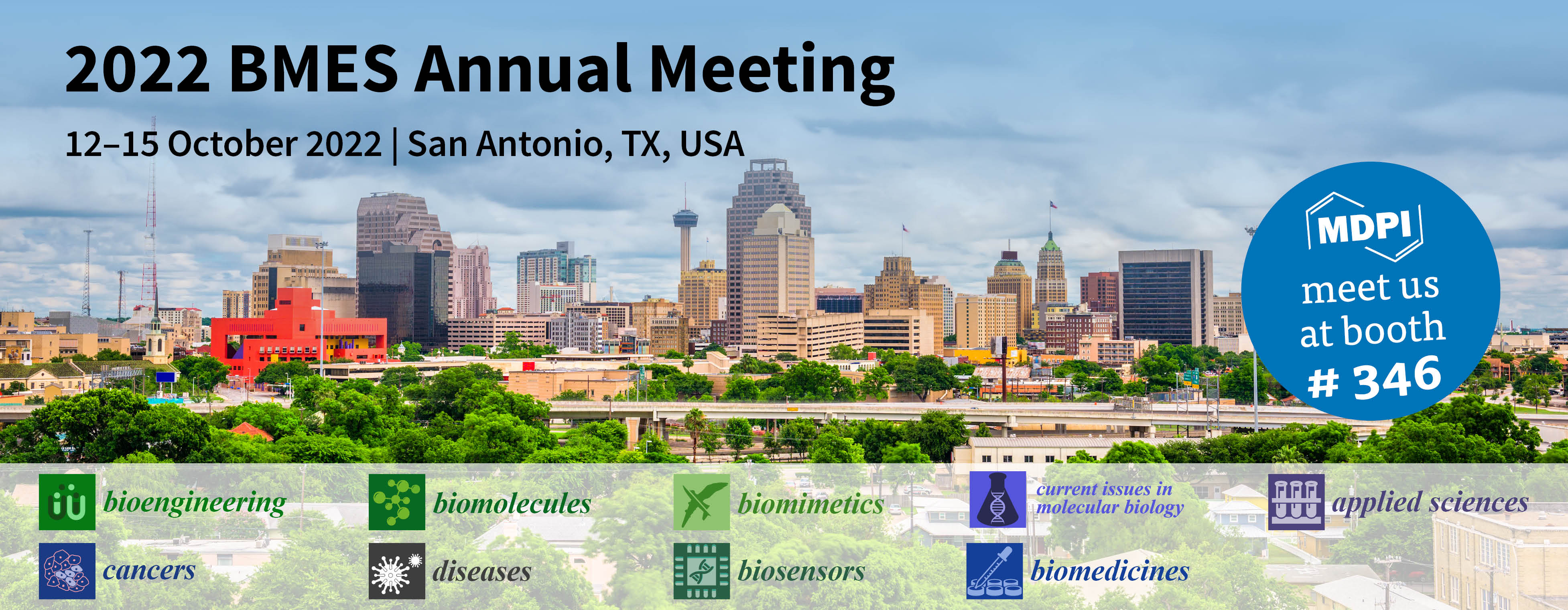
Conference: 2022 BMES Annual Meeting
Date: 12–15 October 2022
Place: San Antonio, Texas, USA
Booth: #346
MDPI will be attending the 2022 BMES Annual Meeting as an exhibitor from 12 to 15 October 2022 in San Antonio, Texas, USA.
BMES holds an annual meeting where they have hosted up to 5,500 biomedical engineers who attend more than 2,500 scientific presentations on cancer treatment, heart disease, women’s health, global health disparities, and more. The meeting allows members to advocate for their innovative solutions, demonstrating their commitment to the society’s core value of health equity for all individuals. In addition, BMES shares scientific information to inspire the up-and-coming generation through four scientific journals, three special interest groups, and collaborations with other scientific societies to elevate the visibility and significant impact that the biomedical engineering community has worldwide as the thought leaders behind the future of human health.
From 12 to 15 October 2022, in the vibrant multicultural city of San Antonio, we will celebrate the tremendous contributions made by BMES members in research, teaching, education, and the workforce that directly impact many sectors of our society. We also aim to highlight equity issues in healthcare and education, stemming from racial and socioeconomic diversity, gender and sexual orientation, and disabilities.
The following MDPI journals will be represented:
- Applied Sciences;
- Bioengineering;
- Biomedicines;
- Biomimetics;
- Biomolecules;
- Biosensors;
- Cancers;
- CIMB;
- Diseases.
Please do not hesitate to reach out if you plan on attending this conference. Our delegates look forward to meeting you in person and answering any questions that you might have.
For more information about the conference, please visit the following website: https://www.bmes.org/annualmeeting.
28 September 2022
Peer Review Week 2022 – Research Integrity: Creating and Supporting Trust in Research
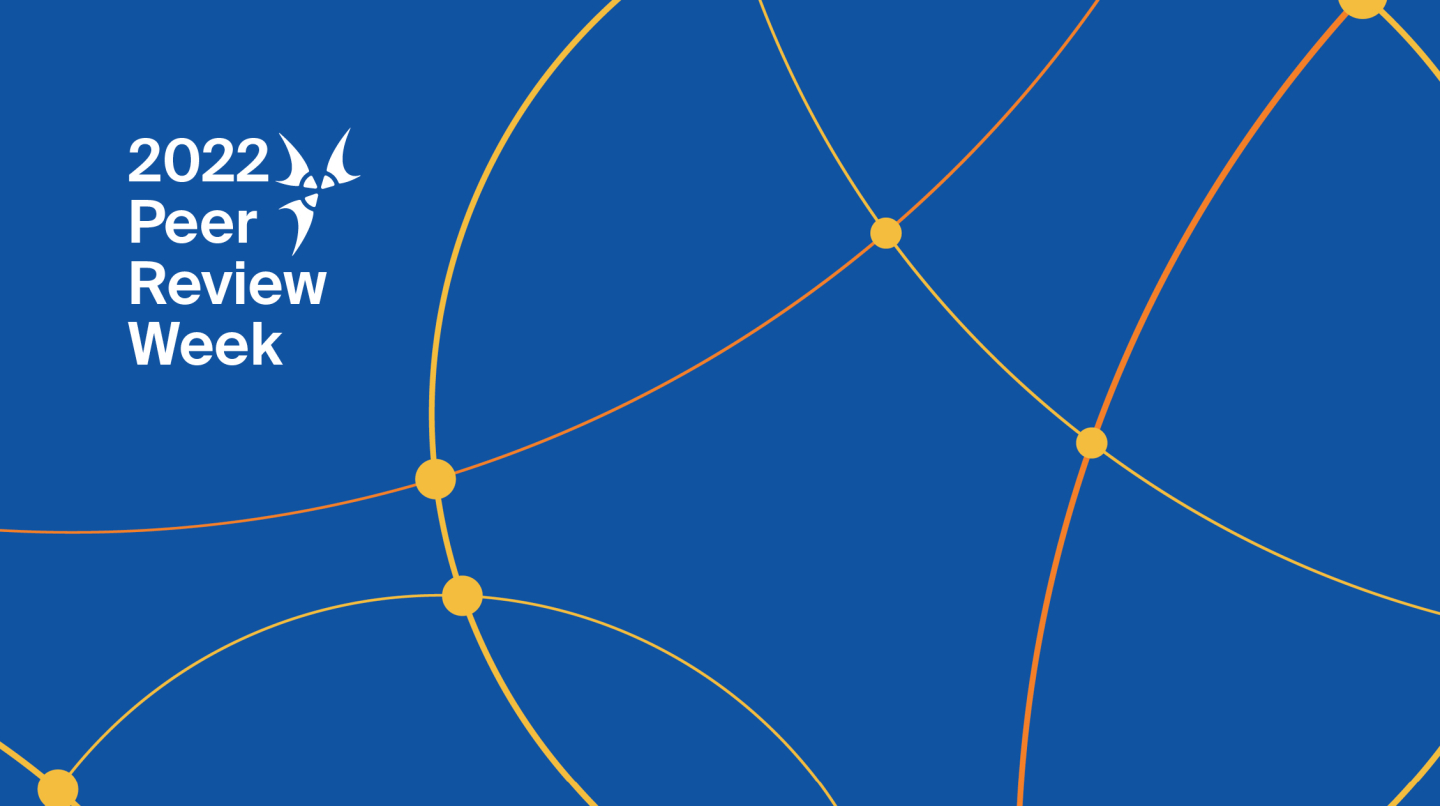
Peer Review Week began 19 September 2022 under the theme of “Research Integrity: Creating and Supporting Trust in Research”. Through various blog articles, podcast, and webinar, we discussed this crucial subject throughout the week, celebrating the essential role peer review plays in maintaining research quality.
To begin, we held a Webinar on the topic. Professor Peter W. Choate and Dr. Emmanuel Obeng-Gyasi joined Dr. Ioana Craciun, one of MDPI’s scientific officers, for an in-depth discussion.
We invite you to view the event recording:
During the week, the MDPI Blog in a series articles highlighted how good Peer Review safeguards research integrity. The following topics were covered:
- Peer Review Week 2022
- Research Integrity
- What We’ve Learned About Peer Review Reports
- 4 Steps to the Perfect Peer Review Report
- How to Write the Perfect Peer Review Report: An Interview
- Inviting Great Peer Reviewers
In a new edition of Insight Faster, an MDPI podcast, we were delighted to talk to the co-chairs of the Peer Review Week committee, Jayashree Rajagopalan (Senior Manager of Global Community Engagement for CACTUS) and Danielle Padula (Head of Marketing and Community Development at Scholastica) to get their take on this year’s event and its related topics.
You can find the Podcast here.
We hope you enjoy the contents!
20 July 2022
Meet Us at the 49th World Polymers Congress MACRO 2022, 17–21 July 2022, Winnipeg, Canada
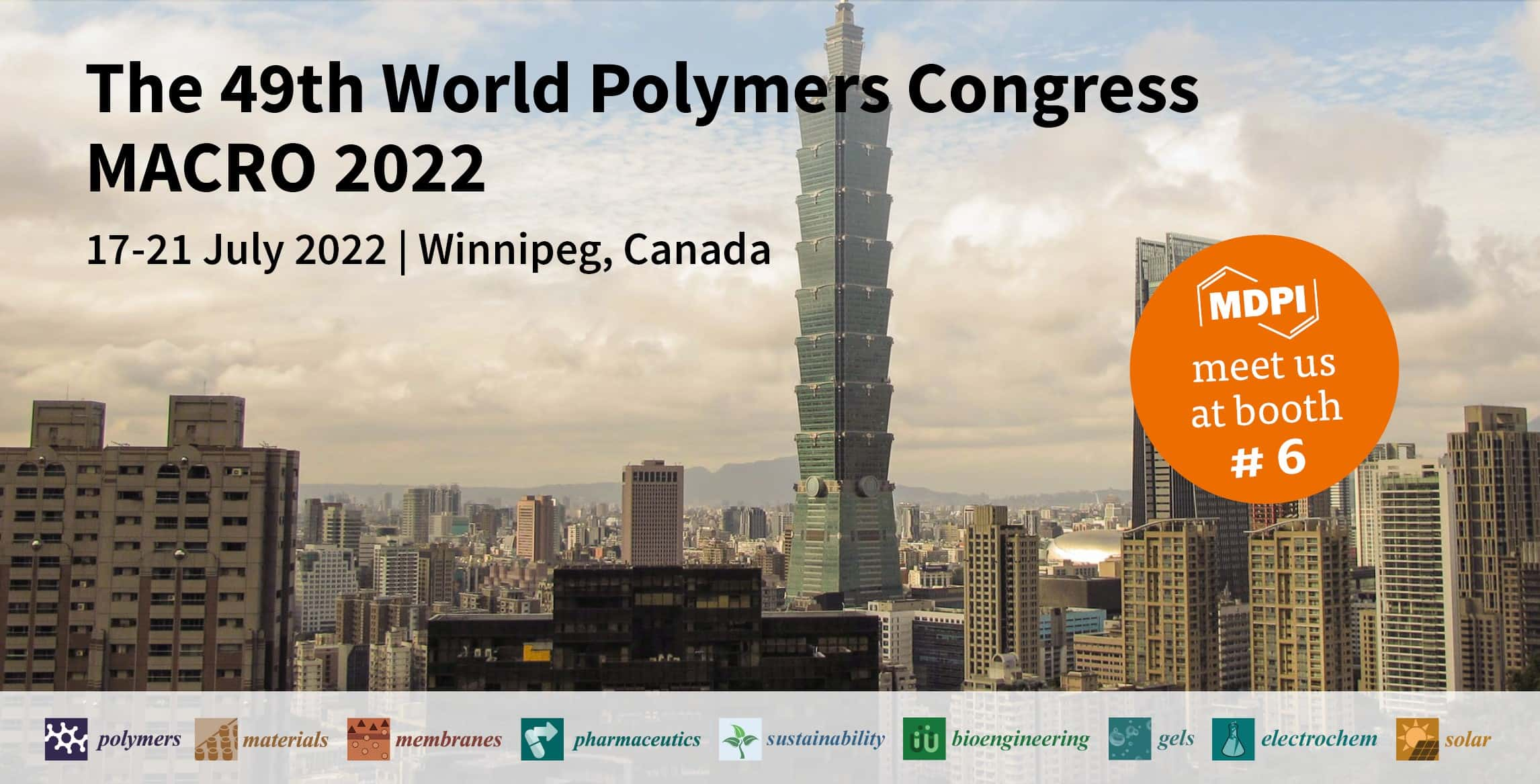
Conference: 49th World Polymers Congress MACRO 2022
Date: 17–21 July 2022
Place: Winnipeg, Canada
Booth: #6
Polymers (ISSN: 2073-4360) and Materials (ISSN: 1996-1944) will be attending the 49th World Polymers Congress MACRO 2022 as exhibitors from 17 to 21 July 2022 in Winnipeg, Canada.
The year 2022 marks the first time that Canada is hosting the World Polymers Congress since it became a biennial event in 1998. The polymer science community of Canada looks forward to connecting at the 49th World Polymers Congress, which is held in the city of Winnipeg from 17 to 21 July 2022. True to its mission, MACRO 2022 will be a forum for international scientists and students who are in various stages of their career development to share knowledge and experiences.
The MACRO 2022 program comprises nine themes that represent the following subjects:
- Polymers for Biomedical Engineering;
- Polymers for Energy and Environmental Applications;
- Polymer Engineering and Rheology;
- Polymers for Nanotechnology;
- Polymer Physics and Characterization;
- Polymers from Renewable Resources and Biodegradable Polymers;
- Polymer Science Education;
- Polymer Synthesis and Kinetics;
- Smart and Functional Polymers.
The following MDPI journals will be represented:
- Polymers;
- Materials;
- Membranes;
- Pharmaceutics;
- Sustainability;
- Bioengineering;
- Gels;
- Electrochem;
- Solar.
Please do not hesitate to reach out if you plan on attending this conference. Our delegates look forward to meeting you in person and answering any questions that you might have.
For more information about the conference, please visit the following website: https://www.macro2022.org/.
11 July 2022
MDPI’s 2021 Best Paper Awards in “Engineering”—Winners Announced
The purpose of our Best Paper Awards is to promote and recognize the most impactful contributions published within MDPI journals.
The academic editors of each journal carefully selected reviews and research papers through a rigorous judging process based on criteria such as the scientific merit, overall impact, and the quality of presentation of the papers published in the journal.
We are honored to present the winners in the “Engineering” category, who were selected amongst extensive competition, and congratulate the authors for their outstanding scientific publications.
- “Position Control of Pneumatic Actuators Using Three-Mode Discrete-Valued Model Predictive Control”
by Haitao Qi, Gary M. Bone and Yile Zhang
Actuators 2019, 8(3), 56; doi: 10.3390/act8030056 - “Review of Electrothermal Actuators and Applications”
by Alissa Potekhina and Changhai Wang
Actuators 2019, 8(4), 69; doi: 10.3390/act8040069
- “Pre-Lithiation Strategies for Rechargeable Energy Storage Technologies: Concepts, Promises and Challenges”
by Florian Holtstiege, Peer Bärmann, Roman Nölle, Martin Winter and Tobias Placke
Batteries 2018, 4(1), 4; doi: 10.3390/batteries4010004 - “A Critical Review of Lithium-Ion Battery Recycling Processes from a Circular Economy Perspective”
by Omar Velázquez-Martínez, Johanna Valio, Annukka Santasalo-Aarnio, Markus Reuter and Rodrigo Serna-Guerrero
Batteries 2019, 5(4), 68; doi: 10.3390/batteries5040068 - “Critical Review of the Use of Reference Electrodes in Li-Ion Batteries: A Diagnostic Perspective”
by Rinaldo Raccichini, Marco Amores and Gareth Hinds
Batteries 2019, 5(1), 12; doi: 10.3390/batteries5010012 - “Life Cycle Analysis of Lithium-Ion Batteries for Automotive Applications”
by Qiang Dai, Jarod C. Kelly, Linda Gaines and Michael Wang
Batteries 2019, 5(2), 48; doi 10.3390/batteries5020048 - “Design Strategies for High Power vs. High Energy Lithium Ion Cells”
by Michael J. Lain, James Brandon and Emma Kendrick
Batteries 2019, 5(4), 64; doi: 10.3390/batteries5040064
- “Influence of Humidity on NO2-Sensing and Selectivity of Spray-CVD Grown ZnO Thin Film above 400 °C”
by Roussin Lontio Fomekong and Bilge Saruhan
Chemosensors 2019, 7(3), 42; doi: 10.3390/chemosensors7030042 - “Low Molecular Weight Fluorescent Probes (LMFPs) to Detect the Group 12 Metal Triad”
by Ashley D. Johnson, Rose M. Curtis and Karl J. Wallace
Chemosensors 2019, 7(2), 22; doi: 10.3390/chemosensors7020022
Journal of Marine Science and Engineering:
- “Marine Application of Fiber Reinforced Composites: A Review”
by Felice Rubino, Antonio Nisticò, Fausto Tucci and Pierpaolo Carlone
Mar. Sci. Eng. 2020, 8(1), 26; doi: 10.3390/jmse8010026 - “Numerical Simulation of Large Wave Heights from Super Typhoon Nepartak (2016) in the Eastern Waters of Taiwan”
by Shih-Chun Hsiao, Hongey Chen, Han-Lun Wu, Wei-Bo Chen, Chih-Hsin Chang, Wen-Dar Guo, Yung-Ming Chen and Lee-Yaw Lin
Mar. Sci. Eng. 2020, 8(3), 217; doi: 10.3390/jmse8030217 - “Development of Deterministic Artificial Intelligence for Unmanned Underwater Vehicles (UUV)”
by Timothy Sands
Mar. Sci. Eng. 2020, 8(8), 578; doi: 10.3390/jmse8080578
- “Solid Lubrication with MoS2: A Review”
by Mohammad R. Vazirisereshk, Ashlie Martini, David A. Strubbe and Mehmet Z. Baykara
Lubricants 2019, 7(7), 57; doi:10.3390/lubricants7070057 - “Investigations of the Friction Losses of Different Engine Concepts. Part 1: A Combined Approach for Applying Subassembly-Resolved Friction Loss Analysis on a Modern Passenger-Car Diesel Engine”
by Christoph Knauder, Hannes Allmaier, David E. Sander and Theodor Sams
Lubricants 2019, 7(5), 39; doi: 10.3390/lubricants7050039 - “A Discussion on Present Theories of Rubber Friction, with Particular Reference to Different Possible Choices of Arbitrary Roughness Cutoff Parameters”
by Andrea Genovese, Flavio Farroni, Antonio Papangelo and Michele Ciavarella
Lubricants 2019, 7(10), 85; doi: 10.3390/lubricants7100085
- “4D Printing of Multi-Hydrogels Using Direct Ink Writing in a Supporting Viscous Liquid”
by Takuya Uchida and Hiroaki Onoe
Micromachines 2019, 10(7), 433; doi: 10.3390/mi10070433 - “Enhanced Photocatalytic Performance and Mechanism of Au@CaTiO3 Composites with Au Nanoparticles Assembled on CaTiO3 Nanocuboids”
by Yuxiang Yan, Hua Yang, Zao Yi, Ruishan Li and Xiangxian Wang
Micromachines 2019, 10(4), 254; doi: 10.3390/mi10040254 - “Three-Dimensionally Structured Flexible Fog Harvesting Surfaces Inspired by Namib Desert Beetles”
by Jun Kyu Park and Seok Kim
Micromachines 2019, 10(3), 201; doi: 10.3390/mi10030201
- “Accelerating Biologics Manufacturing by Modeling or: Is Approval under the QbD and PAT Approaches Demanded by Authorities Acceptable without a Digital-Twin?”
by Steffen Zobel-Roos, Axel Schmidt, Fabian Mestmäcker, Mourad Mouellef, Maximilian Huter, Lukas Uhlenbrock, Martin Kornecki, Lara Lohmann, Reinhard Ditz and Jochen Strube
Processes 2019, 7(2), 94; doi: 10.3390/pr7020094 - “Multiscale Agent-Based and Hybrid Modeling of the Tumor Immune Microenvironment”
by Kerri-Ann Norton, Chang Gong, Samira Jamalian and Aleksander S. Popel
Processes 2019, 7(1), 37; doi: 10.3390/pr7010037 - “Dynamic Flowsheet Model Development and Sensitivity Analysis of a Continuous Pharmaceutical Tablet Manufacturing Process Using the Wet Granulation Route”
by Nirupaplava Metta, Michael Ghijs, Elisabeth Schäfer, Ashish Kumar, Philippe Cappuyns, Ivo Van Assche, Ravendra Singh, Rohit Ramachandran, Thomas De Beer, Marianthi Ierapetritou and Ingmar Nopens
Processes 2019, 7(4), 234; doi: 10.3390/pr7040234
- “A Decentralized Privacy-Preserving Healthcare Blockchain for IoT”
by Ashutosh Dhar Dwivedi, Gautam Srivastava, Shalini Dhar and Rajani Singh
Sensors 2019, 19(2), 326; doi: 10.3390/s19020326 - “The Progress of Glucose Monitoring—A Review of Invasive to Minimally and Non-Invasive Techniques, Devices and Sensors”
by Wilbert Villena Gonzales, Ahmed Toaha Mobashsher and Amin Abbosh
Sensors 2019, 19(4), 800; doi: 10.3390/s19040800 - “Contact-Based Methods for Measuring Respiratory Rate”
by Carlo Massaroni, Andrea Nicolò, Daniela Lo Presti, Massimo Sacchetti, Sergio Silvestri and Emiliano Schena
Sensors 2019, 19(4), 908; doi: 10.3390/s19040908
World Electric Vehicle Journal:
- “Dynamic Wireless Power Transfer Charging Infrastructure for Future EVs: From Experimental Track to Real Circulated Roads Demonstrations”
by Stéphane Laporte, Gérard Coquery, Virginie Deniau, Alexandre De Bernardinis and Nicolas Hautière
World Electr. Veh. J. 2019, 10(4), 84; doi: 10.3390/wevj10040084
11 July 2022
MDPI’s 2021 Young Investigator Awards in “Engineering”—Winners Announced
MDPI’s Young Investigator Awards recognize promising junior researchers, acknowledge their contributions, and enhance communication among scientists. We are proud to present the winners for the year 2021 in the “Engineering” category. The winners were selected by the journals’ editors.
We warmly congratulate the awarded Young Investigators for their outstanding contributions. MDPI will continue to provide support and recognition to the academic community.
- Amay J. Bandodkar, North Carolina State University, USA.
- Andrew S. Paluch, Miami University, USA.
- Mindy Levine, Ariel University, Israel.
- Amir H. Gandomi, University of Technology Sydney, Australia.
Journal of Marine Science and Engineering:
- Tiago Fazeres-Ferradosa, University of Porto, Portugal.
- Chen Lv, Nanyang Technological University (NTU), Singapore;
- Ignacio Gonzalez-Prieto, University of Malaga (UMA), Spain;
- Ning Sun, Nankai University, China.
- Anton Rassõlkin, Tallinn University of Technology, Estonia.
- Qammer H. Abbasi, Queen Mary University of London, UK;
- Chi Hwan Lee, Purdue University, USA.
11 July 2022
MDPI’s 2021 Travel Awards in “Engineering”—Winners Announced
We are proud to recognize the winners of MDPI’s 2021 Travel Awards in the “Engineering” category for their outstanding presentations and to present them with the prize.
MDPI journals regularly offer travel awards to encourage talented junior scientists to present their latest research at academic conferences in specific fields, which helps to increase their influence.
The winners mentioned below were carefully selected by the journal editors based on an outline of their research and the work to be presented at an academic conference.
We would like to warmly congratulate the winners of this year’s Travel Awards and wish them the greatest success with their future research endeavors. MDPI will continue to enhance communication among scientists.
- Matthew Wei Ming Tan, Nanyang Technological University, Singapore.
- Márcia de Sousa Oliveira, University of León, Spain;
- Caroline Sarah Taylor, University of Sheffield, UK;
- Raquel Viveiros, NOVA University of Lisbon, Portugal;
- Alfonso González Briones, University of Salamanca, Spain;
- Alen Horvat, University Carlos III Madrid, Spain;
- Marie Švecová, University of Chemistry and Technology, Czech Republic;
- Venanzio Giannella, University of Salerno, Italy;
- Michaël Lobet, University of Namur, Belgium;
- Lam Thi Ngoc Tran, National Research Council, Italy;
- Hanfei Mei, University of South Carolina, USA.
- Mert Nakip, Polish Academy of Sciences, Poland.
- Mengdi Bao, Rochester Institute of Technology, USA;
Yichi Su, Stanford University, USA.
- Karthik Panchabikesan, Concordia University, Canada;
- Xiaolei Yuan, Tongji University, China.
- Verónica Montes García, Université de Strasbourg & CNRS, France.
- Peng Hang, Nanyang Technological University, Singapore;
- Alfonso González Briones, University of Salamanca, Spain.
- Alberto Zingaro, Politecnico di Milano, Italy;
- Sarah E. Morris, Auburn University, USA.
- Angelo Aloisio, University of L’Aquila, Italy;
- André Filipe Castanheira Alves Furtado, University of Porto, Portugal.
Journal of Low Power Electronics and Applications:
- Tommaso Zanotti, University of Modena and Reggio Emilia, Italy.
Journal of Manufacturing and Materials Processing:
- Nagalingam Arun Prasanth, Rolls-Royce@NTU Corporate Lab, Singapore.
- Muhammad Jamil, Nanjing University of Aeronautics and Astronautics (NUAA), China;
- Mariagrazia Tristano, Sheffield Hallam University, UK.
- Michele Schlich, University of Cagliari, Italy;
- Álvaro Santana Mayor, University of La Laguna, Spain.
- Eleonora Macchia, Åbo Akademi University, Finland;
- Alfonso Gonzalez Briones, University of Salamanca, Spain;
- Saúl Vallejos Calzada, University of Burgos, Spain;
- Ana Novo, University of Vigo, Spain;
- Yalin Liu, Macau University of Science and Technology, China;
- Marilena Giglio, Politecnico of Bari, Italy;
- Yuzhi Shi, Nanyang Technological University (NTU), Singapore.
11 July 2022
MDPI’s 2021 Outstanding Reviewer Awards in “Engineering”—Winners Announced
In order to acknowledge our reviewers, who so generously dedicate their time to reviewing papers and demonstrate diligence, professionalism, and timeliness when reviewing manuscripts, MDPI journals regularly offer outstanding reviewer awards to scholars who participate in the peer-review process.
We are proud to recognize the winners for the year 2021 in the “Engineering” category for their outstanding contributions among extensive competition by presenting them with an Outstanding Reviewer Award.
We would like to take this opportunity to congratulate all of the winners on their achievement. MDPI will continue to provide support and recognition to the academic community.
- Ryszard Dindorf, Kielce University of Technology, Poland.
- Khaled Giasin, University of Portsmouth, UK;
- Jakub Krzysztof Grabski, University of Technology, Poland;
- Marcos Tostado-Véliz, University of Jaén, Spain;
- Luigi Pugliese, University of Calabria, Italy;
- Francesco Bennardo, University of Catanzaro, Italy;
- Heriberto Perez-Acebo, University of the Basque Country UPV/EHU, Spain.
- Amir Hatamie, University of Gothenburg, Sweden.
- Francesco Fiorito, Polytechnic University of Bari, Italy;
- Paul G. O’Brien, York University, Canada.
- Verónica Montes García, University of Strasbourg, France.
- Piotr Gierlak, Rzeszow University of Technology, Poland;
- Sebastian A. Nugroho, University of Michigan, USA;
- Viorel Paleu, Gheorghe Asachi Technical University of Iasi, Romania.
- Marcin Dębowski, University of Warmia and Mazury in Olsztyn, Poland;
- Bartłomiej Zieniuk, Warsaw University of Life Sciences, Poland;
- Zbigniew Nadolny, Poznan University of Technology, Poland;
- Attila Egedy, University of Pannonia, Hungary;
- Seok-Ho Rhi, Chungbuk National University, Korea.
- Hojong Choi, Kumoh National Institute of Technology, Korea;
- Li Fu, Hangzhou Dianzi University, China;
- Leonardo De Mello Honorio, Federal University of Juiz De Fora Juiz De Fora, Brazil;
- Mario Versaci, Mediterranea University, Italy;
- Robertas Damasevicius, Kaunas University of Technology, Lithuania.
28 June 2022
2021 Impact Factors - Released
The 2021 citation metrics have been released in the Journal Citation Reports (JCR), and we’re pleased to announce the following results for MDPI journals:

| Journal | Impact Factor | Rank | Category |
| Antioxidants | 7.675 | Q1 | Food Science & Technology |
| Biochemistry & Molecular Biology | |||
| Chemistry, Medicinal | |||
| Cells | 7.666 | Q2 | Cell Biology |
| Nutrients | 6.706 | Q1 | Nutrition & Dietetics |
| Cancers | 6.575 | Q1 | Oncology |
| Pharmaceutics | 6.525 | Q1 | Pharmacology & Pharmacy |
| International Journal of Molecular Sciences | 6.208 | Q1 | Biochemistry & Molecular Biology |
| Q2 | Chemistry, Multidisciplinary | ||
| Marine Drugs | 6.085 | Q1 | Chemistry, Medicinal |
| Pharmacology & Pharmacy | |||
| Biomolecules | 6.064 | Q2 | Biochemistry & Molecular Biology |
| Batteries * | 5.938 | Q2 | Electrochemistry |
| Energy & Fuels | |||
| Materials Science, Multidisciplinary | |||
| Viruses | 5.818 | Q2 | Virology |
| Biosensors | 5.743 | Q1 | Chemistry, Analytical |
| Instruments & Instrumentation | |||
| Q2 | Nanoscience & Nanotechnology | ||
| Journal of Fungi | 5.724 | Q1 | Mycology |
| Q2 | Microbiology | ||
| Nanomaterials | 5.719 | Q1 | Physics, Applied |
| Q2 | Chemistry, Multidisciplinary | ||
| Materials Science, Multidisciplinary | |||
| Nanoscience & Nanotechnology | |||
| Metabolites | 5.581 | Q2 | Biochemistry & Molecular Biology |
| Foods | 5.561 | Q1 | Food Science & Technology |
| Drones * | 5.532 | Q2 | Remote Sensing |
| Remote Sensing | 5.349 | Q1 | Geosciences, Multidisciplinary |
| Imaging Science & Photographic Technology | |||
| Q2 | Remote Sensing | ||
| Environmental Sciences | |||
| Journal of Theoretical and Applied Electronic Commerce Research | 5.318 | Q2 | Business |
| Antibiotics | 5.222 | Q1 | Pharmacology & Pharmacy |
| Q2 | Infectious Diseases | ||
| Pharmaceuticals | 5.215 | Q1 | Pharmacology & Pharmacy |
| Q2 | Chemistry, Medicinal | ||
| Biology | 5.168 | Q1 | Biology |
| Fermentation | 5.123 | Q2 | Biotechnology & Applied Microbiology |
| Toxins | 5.075 | Q1 | Toxicology |
| Q2 | Food Science & Technology | ||
| Bioengineering * | 5.046 | Q2 | Engineering, Biomedical |
| Polymers | 4.967 | Q1 | Polymer Science |
| Journal of Clinical Medicine | 4.964 | Q2 | Medicine, General & Internal |
| Vaccines | 4.961 | Q2 | Immunology |
| Medicine, Research & Experimental | |||
| Molecules | 4.927 | Q2 | Chemistry, Multidisciplinary |
| Biochemistry & Molecular Biology | |||
| Microorganisms | 4.926 | Q2 | Microbiology |
| Journal of Functional Biomaterials * | 4.901 | Q2 | Engineering, Biomedical |
| Materials Science, Biomaterials | |||
| Biomedicines | 4.757 | Q2 | Medicine, Research & Experimental |
| Pharmacology & Pharmacy | |||
| Biochemistry & Molecular Biology | |||
| Plants | 4.658 | Q1 | Plant Sciences |
| International Journal of Environmental Research and Public Health | 4.614 | Q1 | Public, Environmental & Occupational Health (SSCI) |
| Q2 | Public, Environmental & Occupational Health (SCIE) | ||
| Environmental Sciences (SCIE) | |||
| Membranes | 4.562 | Q1 | Polymer Science |
| Q2 | Engineering, Chemical | ||
| Materials Science, Multidisciplinary | |||
| Chemistry, Physical | |||
| Pathogens | 4.531 | Q2 | Microbiology |
| Catalysts | 4.501 | Q2 | Chemistry, Physical |
| Toxics | 4.472 | Q2 | Toxicology |
| Environmental Sciences | |||
| Gels | 4.432 | Q1 | Polymer Science |
| Journal of Cardiovascular Development and Disease | 4.415 | Q2 | Cardiac & Cardiovascular Systems |
| Chemosensors | 4.229 | Q1 | Instruments & Instrumentation |
| Q2 | Chemistry, Analytical | ||
| Q3 | Electrochemistry | ||
| Genes | 4.141 | Q2 | Genetics & Heredity |
| Diagnostics | 3.992 | Q2 | Medicine, General & Internal |
| Agronomy | 3.949 | Q1 | Agronomy |
| Plant Sciences | |||
| Land | 3.905 | Q2 | Environmental Studies |
| Sustainability | 3.889 | Q2 | Environmental Sciences (SCIE) |
| Environmental Studies (SSCI) | |||
| Q3 | Green & Sustainable Science & Technology (SCIE) | ||
| Q4 | Green & Sustainable Science & Technology (SSCI) | ||
| Sensors | 3.847 | Q2 | Instruments & Instrumentation |
| Chemistry, Analytical | |||
| Engineering, Electrical & Electronic | |||
| Materials | 3.748 | Q1 | Metallurgy & Metallurgical Engineering |
| Q2 | Physics, Applied | ||
| Physics, Condensed Matter | |||
| Q3 | Materials Science, Multidisciplinary | ||
| Chemistry, Physical | |||
| Biomimetics * | 3.743 | Q2 | Engineering, Multidisciplinary |
| Q3 | Materials Science, Biomaterials | ||
| Tropical Medicine and Infectious Disease * | 3.711 | Q1 | Tropical Medicine |
| Q2 | Parasitology | ||
| Q3 | Infectious Diseases | ||
| Lubricants * | 3.584 | Q2 | Engineering, Mechanical |
| Fractal and Fractional | 3.577 | Q1 | Mathematics, Interdisciplinary Applications |
| Water | 3.530 | Q2 | Water Resources |
| Q3 | Environmental Sciences | ||
| Micromachines | 3.523 | Q2 | Instruments & Instrumentation |
| Physics, Applied | |||
| Chemistry, Analytical | |||
| Q3 | Nanoscience & Nanotechnology | ||
| Journal of Personalized Medicine | 3.508 | Q2 | Medicine, General & Internal |
| Health Care Sciences & Services | |||
| Agriculture | 3.408 | Q1 | Agronomy |
| Processes | 3.352 | Q2 | Engineering, Chemical |
| Separations | 3.344 | Q2 | Chemistry, Analytical |
| Magnetochemistry | 3.336 | Q2 | Chemistry, Inorganic & Nuclear |
| Q3 | Chemistry, Physical | ||
| Materials Science, Multidisciplinary | |||
| Brain Sciences | 3.333 | Q3 | Neurosciences |
| Buildings | 3.324 | Q2 | Construction & Building Technology |
| Engineering, Civil | |||
| Forests | 3.282 | Q1 | Forestry |
| Energies | 3.252 | Q3 | Energy & Fuels |
| Life | 3.251 | Q2 | Biology |
| Coatings | 3.236 | Q2 | Materials Science, Coatings & Films |
| Physics, Applied | |||
| Q3 | Materials Science, Multidisciplinary | ||
| Animals | 3.231 | Q1 | Agriculture, Dairy & Animal Science |
| Veterinary Sciences | |||
| Journal of Intelligence * | 3.176 | Q2 | Psychology, Multidisciplinary |
| Fishes | 3.170 | Q1 | Marine & Freshwater Biology |
| Q2 | Fisheries | ||
| Healthcare | 3.160 | Q2 | Health Policy & Services (SSCI) |
| Health Care Sciences & Services (SCIE) | |||
| Inorganics * | 3.149 | Q2 | Chemistry, Inorganic & Nuclear |
| Insects | 3.139 | Q1 | Entomology |
| Atmosphere | 3.110 | Q3 | Meteorology & Atmospheric Sciences |
| Environmental Sciences | |||
| Current Oncology | 3.109 | Q3 | Oncology |
| ISPRS International Journal of Geo-Information | 3.099 | Q2 | Geography, Physical |
| Q3 | Computer Science, Information Systems | ||
| Remote Sensing | |||
| Diversity | 3.029 | Q2 | Biodiversity Conservation |
| Ecology | |||
| Tomography | 3.000 | Q3 | Radiology, Nuclear Medicine & Medical Imaging |
| Current Issues in Molecular Biology | 2.976 | Q3 | Biochemistry & Molecular Biology |
| Medicina | 2.948 | Q3 | Medicine, General & Internal |
| Symmetry | 2.940 | Q2 | Multidisciplinary Sciences |
| Horticulturae | 2.923 | Q1 | Horticulture |
| Machines | 2.899 | Q2 | Engineering, Mechanical |
| Engineering, Electrical & Electronic | |||
| Systems * | 2.895 | Q2 | Social Sciences, Interdisciplinary |
| Applied Sciences | 2.838 | Q2 | Engineering, Multidisciplinary |
| Physics, Applied | |||
| Q3 | Chemistry, Multidisciplinary | ||
| Materials Science, Multidisciplinary | |||
| Children | 2.835 | Q2 | Pediatrics |
| Minerals | 2.818 | Q2 | Mining & Mineral Processing |
| Mineralogy | |||
| Geochemistry & Geophysics | |||
| Universe | 2.813 | Q2 | Astronomy & Astrophysics |
| Q3 | Physics, Particles & Fields | ||
| Journal of Marine Science and Engineering | 2.744 | Q1 | Engineering, Marine |
| Q2 | Oceanography | ||
| Engineering, Ocean | |||
| Entropy | 2.738 | Q2 | Physics, Multidisciplinary |
| Fire * | 2.726 | Q2 | Forestry |
| Q3 | Ecology | ||
| Metals | 2.695 | Q2 | Metallurgy & Metallurgical Engineering |
| Q3 | Materials Science, Multidisciplinary | ||
| Electronics | 2.690 | Q3 | Engineering, Electrical & Electronic |
| Computer Science, Information Systems | |||
| Physics, Applied | |||
| Crystals | 2.670 | Q2 | Crystallography |
| Q3 | Materials Science, Multidisciplinary | ||
| Aerospace | 2.660 | Q1 | Engineering, Aerospace |
| Mathematics | 2.592 | Q1 | Mathematics |
| Photonics | 2.536 | Q3 | Optics |
| Actuators | 2.523 | Q2 | Instruments & Instrumentation |
| Q3 | Engineering, Mechanical | ||
| Veterinary Sciences | 2.518 | Q2 | Veterinary Sciences |
| Behavioral Sciences * | 2.286 | Q3 | Psychology, Multidisciplinary |
| Axioms * | 1.824 | Q2 | Mathematics, Applied |
For more information on Impact Factors and what it means to index academic journals, please visit our related blog posts.
* Journals given their first Impact Factor in 2022
Source: 2021 Journal Impact Factors, Journal Citation Reports TM (Clarivate, 2022)
21 June 2022
Bioengineering | Special Issue Mentor Program
We are pleased to announce the launch of a new initiative—the Bioengineering Special Issue Mentor Program.
This program aims to provide an opportunity for early career scientists to enhance their editing, networking, and organizational skills and to work closely with our journal to gain more editorial experience. Early career scientists who have novel ideas for new Bioengineering Special Issues will act as Guest Editors under the mentorship of an experienced scientist; this mentor could be a member of the Editorial Board of Bioengineering (ISSN: 2306-5354), from other well-established research institutes or laboratories, etc.
The mentee’s responsibilities include:
- Providing a CV, including a list of publications;
- Proposing a Special Issue title and a short introduction;
- Writing a brief promotion plan for the Special Issue;
- Writing an editorial for the online Special Issue;
- Reviewing and making decisions for submissions under the mentorship of our Editorial Board Members.
The mentor’s responsibilities include:
- Conducting a final check before the Special Issue is published online;
- Co-editing the Special Issue with younger scholars and performing quality control of the publications in the SI;
- Providing suggestions to younger scholars if they have doubts or concerns regarding submissions;
- Organizing video calls with young scholars and the office regularly to discuss problems and improvement suggestions for the Special Issue.
Certificates and Awards:
When the Special Issue is closed, the Editorial Office will provide official certificates for all the mentors. The younger scholars will be prioritized as candidates for Bioengineering Young Investigator Awards in future editions.
If you are interested in this opportunity, please send your Special Issue proposal to the Bioengineering Editorial Office (bioengineering@mdpi.com), and we will discuss the process (mentor collaboration, Special Issue topic feasibility analysis, etc.) in further detail.
In addition to the new Special Issue Mentor Program, Bioengineering continues to welcome all Special Issue proposals based on hot research topics as usual.
Bioengineering Editorial Office
9 June 2022
2021 CiteScores - Released
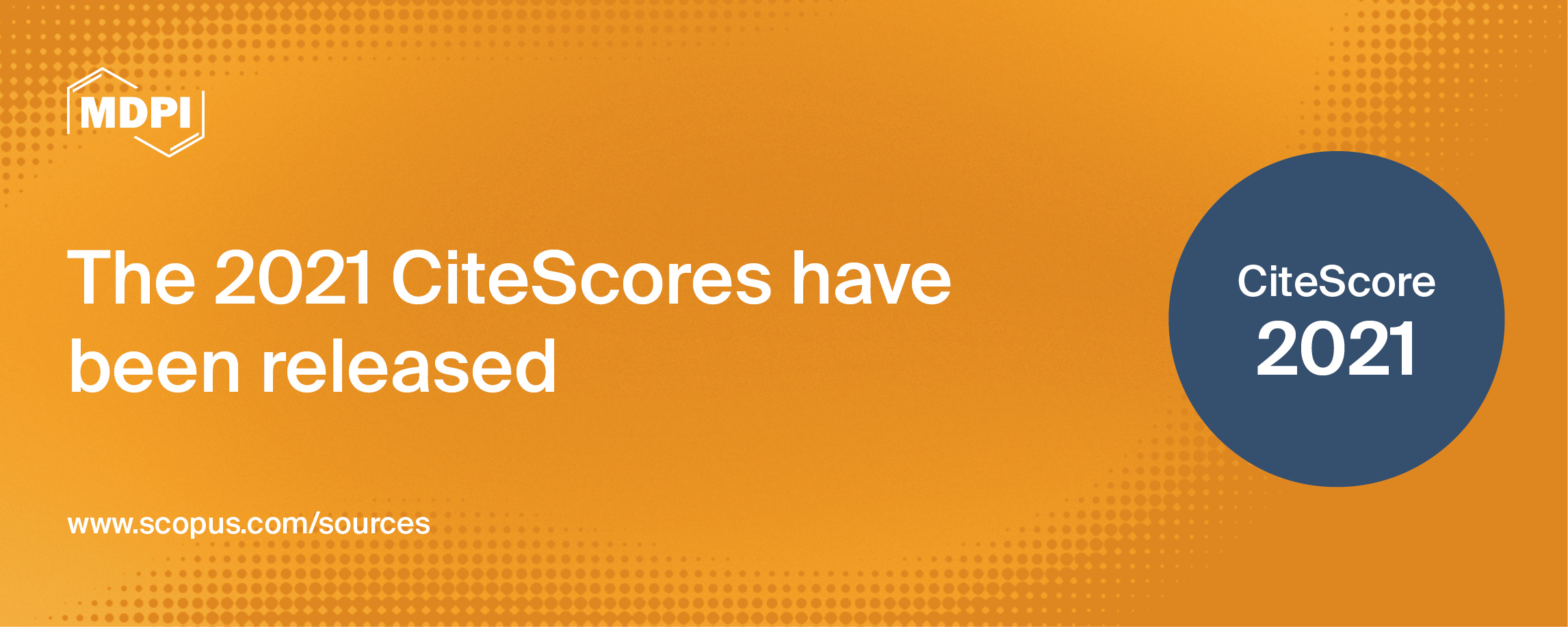
The 2021 citation metrics have been officially released in Scopus!
We are pleased to announce that 182 MDPI journals are included, of which:
● 21 journals received their first CiteScore.
● 85% of journals increased their CiteScore from 2020.
● 155 journals (85%) ranked above average, in at least one category.
The following 65 MDPI journals (36%) ranked among the top 25% of journals, in at least one category:
|
Journal |
CiteScore |
Quartile |
Category |
|
10.1 |
Q1 |
Genetics |
|
|
10.0 |
Q1 |
Biomedical Engineering |
|
|
8.1 |
Q1 |
Pharmacology, Toxicology and Pharmaceutics (miscellaneous) |
|
|
7.9 |
Q1 |
Electrical and Electronic Engineering |
|
|
7.9 |
Q1 |
Nutrition and Dietetics |
|
|
7.4 |
Q1 |
General Earth and Planetary Sciences |
|
|
7.2 |
Q1 |
Computer Science Applications |
|
|
6.9 |
Q1 |
Inorganic Chemistry |
|
|
6.9 |
Q1 |
Computer Networks and Communications |
|
|
6.7 |
Q1 |
General Biochemistry, Genetics and Molecular Biology |
|
|
6.6 |
Q1 |
General Chemical Engineering |
|
|
6.6 |
Q1 |
Health, Toxicology and Mutagenesis |
|
|
6.6 |
Q1 |
Infectious Diseases |
|
|
6.5 |
Q1 |
Food Science |
|
|
6.5 |
Q1 |
Civil and Structural Engineering |
|
|
6.4 |
Q1 |
Nature and Landscape Conservation |
|
|
6.4 |
Q1 |
Instrumentation |
|
|
6.1 |
Q1 |
Management Information Systems |
|
|
5.9 |
Q1 |
Chemistry (miscellaneous) |
|
|
5.7 |
Q1 |
Polymers and Plastics |
|
|
5.6 |
Q1 |
Engineering (miscellaneous) |
|
|
5.5 |
Q1 |
General Environmental Science |
|
|
5.5 |
Q1 |
Urban Studies |
|
|
5.4 |
Q2 |
Computer Networks and Communications |
|
|
5.3 |
Q1 |
Food Science |
|
|
5.3 |
Q1 |
Plant Science |
|
|
5.2 |
Q1 |
Ecology, Evolution, Behavior and Systematics |
|
|
5.2 |
Q1 |
General Engineering |
|
|
Journal of Open Innovation: Technology, Market, and Complexity |
5.1 |
Q1 |
Development |
|
5.0 |
Q1 |
Chemistry (miscellaneous) |
|
|
5.0 |
Q1 |
Control and Optimization |
|
|
5.0 |
Q1 |
Geography, Planning and Development |
|
|
5.0 |
Q1 |
Geography, Planning and Development |
|
|
4.9 |
Q1 |
Forestry |
|
|
4.9 |
Q1 |
Control and Optimization |
|
|
4.9 |
Q1 |
Soil Science |
|
|
4.8 |
Q1 |
General Earth and Planetary Sciences |
|
|
4.8 |
Q1 |
Mechanical Engineering |
|
|
4.8 |
Q1 |
Public Health, Environmental and Occupational Health |
|
|
4.8 |
Q1 |
Geography, Planning and Development |
|
|
International Journal of Environmental Research and Public Health |
4.5 |
Q1 |
Public Health, Environmental and Occupational Health |
|
4.5 |
Q1 |
Physical Therapy, Sports Therapy and Rehabilitation |
|
|
4.4 |
Q1 |
Mathematical Physics |
|
|
4.4 |
Q1 |
General Medicine |
|
|
4.3 |
Q1 |
General Mathematics |
|
|
4.2 |
Q1 |
Surgery |
|
|
4.1 |
Q1 |
Health Professions (miscellaneous) |
|
|
4.1 |
Q1 |
Plant Science |
|
|
4.0 |
Q1 |
General Engineering |
|
|
4.0 |
Q1 |
Forestry |
|
|
4.0 |
Q1 |
Education |
|
|
3.9 |
Q1 |
General Pharmacology, Toxicology and Pharmaceutics |
|
|
3.9 |
Q1 |
Applied Mathematics |
|
|
3.8 |
Q1 |
Development |
|
|
3.8 |
Q1 |
Architecture |
|
|
3.8 |
Q1 |
Metals and Alloys |
|
|
3.5 |
Q1 |
Communication |
|
|
3.4 |
Q1 |
General Social Sciences |
|
|
2.9 |
Q1 |
General Mathematics |
|
|
2.8 |
Q1 |
Analysis |
|
|
2.7 |
Q1 |
General Veterinary |
|
|
2.6 |
Q1 |
Algebra and Number Theory |
|
|
1.8 |
Q1 |
Conservation |
|
|
1.0 |
Q1 |
Religious Studies |
|
|
0.9 |
Q1 |
Philosophy |
Source: 2021 CiteScores™ (Elsevier)
23 March 2022
Welcoming New Editorial Board Members of Bioengineering
We are pleased to announce that five new scholars have been appointed as Editorial Board Members for the journal Bioengineering (ISSN 2306-5354):
- Prof. Dr. Amol V. Janorkar (University of Mississippi Medical Center, USA);
- Prof. Dr. Wen-Ji Dong (Washington State University, USA);
- Prof. Dr. Ubaldo Armato (University of Verona Medical School, Italy);
- Dr. Christian Demitri (University of Salento, Italy);
- Prof. Dr. Michael Super (Harvard University, USA).
We wish them every success in their new position, and we look forward to their contributions to the journal.
23 December 2021
Welcoming New Editorial Members of Bioengineering
It is our pleasure to welcome Prof. Dr. Shang-Tian Yang, Prof. Dr. Mario Petretta, and Prof. Dr. Ning Sun, among others, as new Editorial Board Members for Bioengineering (ISSN: 2306-5354).
We look forward to their contributions to the journal and the continued success of Bioengineering.
22 November 2021
722 MDPI Editorial Board Members Receiving "2021 Highly Cited Researchers" Distinction
It is our great honor to congratulate the Editorial Board Members and Editors in MDPI's journals who have been distinguished as 2021 Highly Cited Researchers by Clarivate, according to Web of Science data. We herewith express our gratitude for the immense impact the named researchers continue to make on scientific progress and on our journals' development.
Clarivate's annual list of Highly Cited ResearchersTM identifies the most highly cited scientists for the past decade. Their impactful papers are among the top 1 per cent in the citation distribution of one or more of 22 fields analyzed in the "Essential Science Indicators", distinguishing them as hugely influential among their peers.
| Abate, Antonio Abatzoglou, John T. Abbaszadeh, Mostafa Acharya, U. Rajendra Acharya, Viral V. Agarwal, Ravi P. Ahn, Myung-Ju Airoldi, Laura Ali, Imran Allakhverdiev, Suleyman I. Aluko, Rotimi E. Anasori, Babak Andersson, Dan I. Andes, David Anker, Stefan D. Apergis, Nicholas Ariga, Katsuhiko Arqub, Omar Abu Aschner, Michael Assaraf, Yehuda G. Astruc, Didier Atala, Anthony Atanasov, Atanas G. Atangana, Abdon Bahram, Mohammad Bakris, George L. Balandin, Alexander A. Baleanu, Dumitru Balsamo, Gianpaolo Bando, Yoshio Banks, William A. Bansal-Travers, Maansi Barba, Francisco J. Barros, Lillian Basit, Abdul W. Baskonus, Haci Mehmet Bassetti, Matteo Battino, Maurizio Bell, Jordana T. Bellomo, Nicola Benediktsson, Jon Atli Benelli, Giovanni Benjakul, Soottawat Bhatnagar, Amit Biddle, Stuart J. H. Biondi, Antonio Biondi-Zoccai, Giuseppe Bjarnsholt, Thomas Blaabjerg, Frede Blaschke, Thomas Blay, Jean-Yves Blumwald, Eduardo Blunt, John W. Boffetta, Paolo Bogers, Marcel Bonomo, Robert A. Bowman, David M.J.S. Boyer, Cyrille Brestic, Marian Brevik, Eric C. Buhalis, Dimitrios Burdick, Jason A. Byrd, John C. Cabeza, Luisa F. Cai, Xingjuan Cai, Jianchao Calhoun, Vince D. Calin, George Cao, Jinde Cao, Guozhong Carvalho, Andre F. Castellanos-Gomez, Andres Cerqueira, Miguel Ângelo Parente Ribeiro Chang, Jo-Shu Chang, Chih-Hao Chastin, Sebastien Chau, Kwok-wing Chemat, Farid Chen, Xiaobo Chen, YangQuan Chen, Jianmin Chen, Chaoji Chen, Min Chen, Qi Chen, Jun Chen, Xi Chen, Peng Chen, Yulin Chen, Bo Chen, Chen Chen, Zhi-Gang Chen, Wei-Hsin Chen, Gang Chen, Yongsheng Chen, Xiang Chen, Yimin Chen, Runsheng Chen, Lidong Chen, Shaowei Chen, Qian Chen, Yu Chen, Shuangming Chiclana, Francisco Cho, Sun Young Choi, Wonyong Chowdhary, Anuradha Choyke, Peter L. Cichocki, Andrzej Corella, Dolores Corma, Avelino Cortes, Javier Cortes, Jorge Costanza, Robert Crommie, Michael F. Cui, Yi Cui, Haiying Cui, Qinghua Cummings, Kenneth Michael Dai, Shifeng Dai, Sheng Daiber, Andreas Davis, Steven J. Dawson, Ted M. de la Fuente-Nunez, Cesar Decker, Eric Andrew Dekel, Avishai Demaria, Marco Deng, Yong Deng, Xiangzheng DePinho, Ronald A. Desneux, Nicolas Dimopoulos, Meletios-Athanasios Ding, Aijun Dionysiou, Dionysios D. Dokmeci, Mehmet Remzi Dolgui, Alexandre Dong, Fan Dou, Shi Xue Dou, Letian Du, Qian Du, Bo Dube, Shanta Rishi Dufresne, Alain Dummer, Reinhard Dupont, Didier Edwards, David Elaissari, Abdelhamid Elhoseny, Mohamed Ellahi, Rahmat Ellis, Erle C. ElMasry, Gamal Esteller, Manel Estévez, Mario Fabbro, Doriano Facchetti, Antonio Fan, Zhanxi Fang, Chuanglin Fasano, Alessio Fečkan, Michal Felser, Claudia Feng, Liangzhu Fensholt, Rasmus Ferdinandy, Péter Fernandez-Lafuente, Roberto Ferreira, Isabel C. F. R. Filippi, Massimo Fisher, Helen Fortino, Giancarlo Fosso Wamba, Samuel Franceschi, Claudio Fujita, Hamido Fujita, Masayuki Gai, Francesco Gaisford, Simon Galanakis, Charis M. Galluzzi, Lorenzo Galvano, Fabio Gan, Ren-You Gan, Lihua Gandomi, Amir H. Gao, Bin Gao, Feng Gao, Minrui Gao, Huijun Gao, Wei Gao, Huile Garbe, Claus Garcia, Hermenegildo Gasbarrini, Antonio Gasco, Laura Gautret, Philippe Geng, Yong Gerdts, Gunnar Geschwind, Daniel H. Ghadimi, Noradin Ghaffari, Roozbeh Ghamisi, Pedram Giampieri, Francesca Glick, Bernard R. Gnant, Michael Goel, Ajay Gogotsi, Yury Goldewijk, Kees Klein Gong, Jinlong Gong, Yongji Govindan, Kannan Granato, Daniel Grancini, Giulia Green, Douglas R. Grosso, Giuseppe Gu, Ke Guan, Cao Guastella, Adam J. Guerrero, Josep M. Gui, Guan Guizani, Mohsen Guo, Zaiping Gupta, Rangan Gutzmer, Ralf Haase, Dagmar Habibi-Yangjeh, Aziz Hagemann, Stefan Hagger, Martin Hamblin, Michael R. Hammoudeh, Shawkat Han, Heesup Hanes, Justin Harrison, Roy M. Hartung, Hans-Peter Hasanuzzaman, Mirza He, Jr-Hau He, Hongwen He, Jiaqing He, Debiao Henseler, Jörg Herrera, Francisco Herrera-Viedma, Enrique Hetz, Claudio Ho Kim, Jung Holmes, Elaine Hossain, Ekram Hsueh, Po-Ren Hu, Xiaosong Hu, Wenbin Huang, Jianping Huang, Hongwei Huang, Yu Huang, Jianying Huang, Peng Huang, Baibiao Huang, Shaoming Hubacek, Klaus |
Iqbal, Hafiz M. N. |
Saad, Fred |
The full list of 2021 Highly Cited Researchers can be accessed at the following webpage in the Web of ScienceTM https://recognition.webofscience.com/awards/highly-cited/2021/.
--- Highly Cited Researchers (HCR) is a Clarivate product.
16 November 2021
Topical Advisory Panel Established to Support Editorial Board
Academic editors play a crucial role in leading our journals and ensuring that each article undergoes a robust and timely peer-review. With the launch of Topics this year and addition of Topic Editors to our family of academic editors, we decided it would be a good time to restructure our academic boards, thus providing more clarity and support for each role. MDPI is pleased to announce the launch of a new position—Topical Advisory Panel Member, that will replace the previous position of Topics Board Member. The Topical Advisory Panel will be comprised of early career researchers eager to gain experience in editorial work.
The main responsibility of the new members of the Topical Advisory Panel is to regularly provide support to Guest Editors, Topic Editors, and Section Board Members. The responsibilities of the Topical Advisory Panel are available here: https://www.mdpi.com/editors.
Each year, the members’ performances are evaluated, and outstanding members are promoted to the Editorial Board by the Editor-in-Chief.
To qualify as a Topical Advisory Panel Member, applicants must:
- Have expertise and experience in the field related to the journal;
- Have received a Ph.D. in the last 10 years, approximately;
- Have at least 6-8 published papers in the last 5 years as first author or corresponding author;
- Currently hold an independent research position in academia or a government institute.
If you are interested in this role, please contact the editorial office by email.
We look forward to hearing from you soon.
25 October 2021
Open Access Week 2021 | It Matters How We Open Knowledge: Building Structural Equity, 25–31 October

Founded in 1996, MDPI was one of the first fully Open Access publisher. Over 25 years MDPI has grown to become the largest Open Access publisher globally, publishing over 160,000 articles across more than 350 journals in 2020. At the core, MDPI was founded in response to a pressing need of fast publication and inclusion. The scholar was set at the centre of the publication process for the first time. Acting as a service provider, rather than a product provider, MDPI exists to help scientists achive their objective to disseminate research results. At MDPI, we believe scientists deserve a better service from the publishing world.
The International Open Access Week (Open Access Week), founded by the SPARC (the Scholarly Publishing and Academic Resources Coalition) Alliance and student partners in 2008, has been successfully running for 13 years. As an advocate and pioneer of open access publishing, MDPI actively responds to the call of International Open Access Week. This year’s theme of “It Matters How We Open Knowledge: Building Structural Equity” highlights the Recommendation’s call for equitable participation from all authors and readers.
For the last 25 years, MDPI has been committed to disseminating open research. Here is a video showing MDPI’s Commitment to Equity, Inclusion and Diversity for More than 25 Years.
International Open Access Week is an important opportunity to catalyze new conversations, create connections across and between communities that can facilitate this co-design, and advance progress in the building of more equitable foundations for opening knowledge—discussions and actions that need to be continued, year in and year out. MDPI has always aimed to provide professional and efficient publishing services to scholars around the world.
Our mission is to make scientific research accessible to everyone; this year, we interview and hold discussions with open science ambassadors on how to build an equal and inclusive environment for open science. Academic editors help us collaborate with more institutions to advocate for open access ideas.
Besides this, our scientific community is a key driver of our success and MDPI’s remarkable growth. Despite the pandemic, we have prepared online conferences and workshops to gather scholars from different communities.
The Basel Sustainable Publishing online forum provides an equal opportunity for stakeholders and researchers from multi-cultural environments to exchange ideas and eliminate barriers to participation.
Conference date: 25 October 2021, online
Conference website: https://bspf2021.sciforum.net/
Main topics: MDPI discusses the current dilemma of open access science from various perspectives such as governments, libraries, and publishers, and related measures on how to change the status quo of discrimination from a global perspective.
We aim to support equality, inclusion, diversity, and accessibility in scholarly communications. We collaborate with universities and key laboratories and have scholarly communications with researchers, teachers, and students on open access workshops.

- 25 October 2021
Energies journal and Institute of Mechanics, Chinese Academy of Sciences
- 28 October 2021
Machines journal and State Key Laboratory of Traction Power, Southwest Jiaotong University
- 29 October 2021
Processes journal and Beijing Institute of Technology
- 29 October 2021
Coatings journal and Wuhan University of Technology
MDPI is committed to providing open access and high-quality publishing services for scholars and promoting rapid dissemination of academic achievements. We hope to promote the practices and policies of open access publishing and diversify the dissemination of academic achievements.
23 September 2021
2020 MDPI Top Reviewer Award—Winners Announced
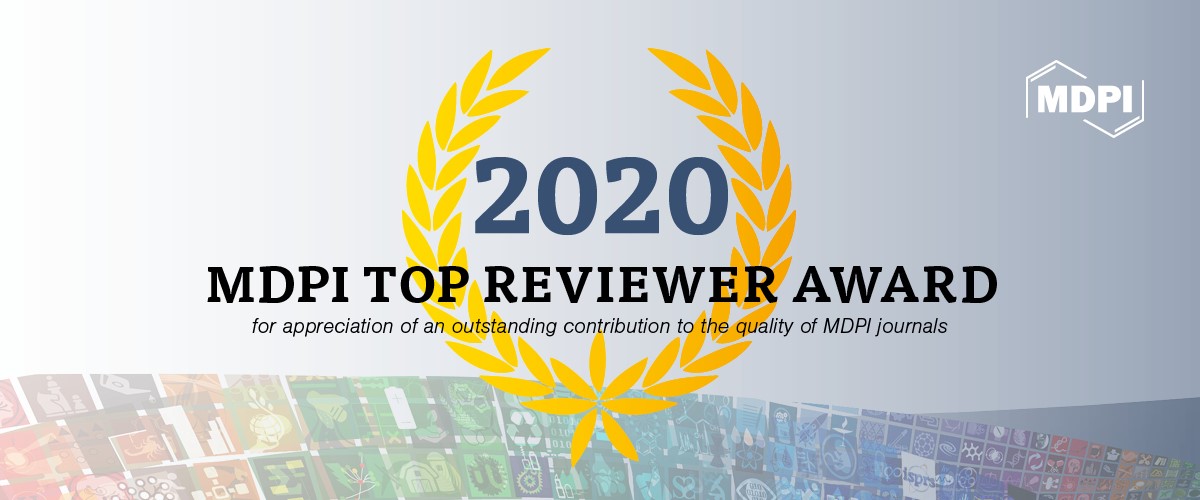
Rigorous peer-review is the cornerstone of high-quality academic publishing. Over 369,916 scholars served as reviewers for MDPI journals in 2020. We are extremely appreciative of all those who made a contribution to the editorial process in this capacity. At the beginning of every year, journal editorial offices publish a list of all reviewers’ names to express our gratitude. In addition, this year, the MDPI Top Reviewer Award was announced, to recognize the very best reviewers for their expertise and dedication, and their high-quality, and timely review reports. We are pleased to announce the following winners of the 2020 MDPI Top Reviewer Award:
- Adriana Burlea-Schiopoiu;
- Alban Kuriqi;
- Álvaro González-Vila;
- Alessandro Alaimo;
- Alexey Beskopylny;
- Alexander Yu Churyumov;
- Alberto Fernández-Isabel;
- Andrea Mastinu;
- Antonios N. Papadopoulos;
- Anton Rassõlkin;
- Antonio Humberto Hamad Minervino;
- Arkadiusz Matwijczuk;
- Artur Słomka;
- Baojie He;
- Bartłomiej Potaniec;
- Bojan Đurin;
- Camilo Arturo Rodriguez Diaz;
- Carmelo Maria Musarella;
- Chiachung Chen;
- Chiman Kwan;
- Cristian Busu;
- Danil Pimenov;
- Dan-Cristian Dabija;
- Delfín Ortega-Sánchez;
- Demetrio Antonio Zema;
- Denis Butusov;
- Elena Lucchi;
- Gaurab Dutta;
- Livia Anastasiu;
- M. R. Safaei.
For more information about how to become a reviewer of MDPI journals, please see: www.mdpi.com/reviewers.
23 September 2021
Welcoming New Editorial Board Members of Bioengineering
We are honored to welcome our two new Editorial Board members, Prof. Dr. Luca Mesin from Polytechnic University of Turin, Italy, and Prof. Dr. Hala Zreiqat from The University of Sydney, Australia. We look forward to their contributions to the journal and the continued success of Bioengineering (ISSN 2306-5354).
23 September 2021
Meet Us at the 2023 Annual Conference for Society of Chinese Mechanical Engineering Biomanufacturing Division and the International Symposium on Bio-Manufacturing (ACBD-ISBM2023), 17–19 March, in Beijing, China
The Annual Conference for the Society of Chinese Mechanical Engineering Biomanufacturing Division and the International Symposium on Bio-Manufacturing (ACBD-ISBM2023) will be held from 17 to 19 March 2023, in Beijing, China. The conference is organized by the Society of Chinese Mechanical Engineering Biomanufacturing Division, Beihang University, and co-organized by Tsinghua University, Academy of Military Medical Sciences, and Southeast University.
Symposia:
- Biomanufacturing and Regenerative Medicine;
- Bio-Bionic Manufacturing and Planting/Interventional Devices;
- Biosensor and Flexible Electronics Manufacturing;
- Multi-Scale Biomimetic Manufacturing;
- Micromanipulation and Minimally Invasive Instruments.
- Biological Modeling and Bio-3D Printing;
- Tissue and Organ Chip;
- Innovative Medical Devices and Biomaterials.
The following MDPI journals will be represented:
- Bioengineering;
- Life
- Actuators;
- Applied Sciences;
- Biomimetics;
- Inventions;
- ASI;
- Machines.
22 September 2021
MDPI Joins SDG Publishers Compact

UN's 17 Sustainable Development Goals (SDGs) are the blueprint to achieve a better and more sustainable future for all. In 2020 the SDG Publishers Compact was launched, aimed to inspire publishers and accelerate progress to achieve the 17 goals by 2030. Members of the programme are committed to support the publication of materials that will promote and inspire actions towards SDGs.
MDPI is an eager advocate of SDGs and has already been supporting the programme by creating Special Issues and publishing a series of books on SDGs prior to joining the Compact in 2021. MDPI's Sustainability Foundation initiated the World Sustainability Awards in 2016. We fully support UN's goals to promote sustainable actions that make the world a better place for all and, as part of its commitment, we will focus our actions on SDG10: Reduced Inequalities whilst promoting all 17 SDGs. For more details, please visit the programme’s website: https://www.un.org/sustainabledevelopment/sdg-publishers-compact/.
Joining this initiative was a unanimous decision. MDPI has in its core values the dissemination of science for all, breaking the wall between research access and under-represented members of the scientific community and the general population. To support this initiative further and continue to support under-represented scientists, MDPI will take a series of actions that will be announced once ready.
The first action MDPI takes is to nominate Dr. Liliane Auwerter as the coordinator of the programme. Dr. Auwerter studied Environmental Process Technology (UTFPR, Brazil), obtained her MSc degree in Water and Environmental Engineering (University of Surrey, UK) and in 2020 completed her PhD in self-healing low-friction materials for water transport (Imperial College London, UK), always focusing on diverse scientific projects that would potentially bring sustainability to industrial processes. As a student in Brazil, she engaged in volunteering activities focused on environmental education and took part in the Millennial Development Goals meetings held at the university.
For more information, please contact:
Dr. Liliane Auwerter
Scientific Officer
liliane.auwerter@mdpi.com
24 August 2021
Bioengineering Added into SCIE in the Web of Science
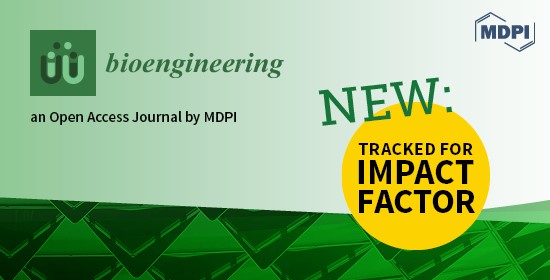
It is our great pleasure to announce that Bioengineering (ISSN 2306-5354) has been accepted for inclusion in Science Citation Index Expanded (SCIE) in the Web of Science Core Collection. Articles published from Volume 1 (2014) will be indexed in the Web of Science Core Collection, and the journal is expected to receive its first Journal Impact Factor in the June 2022 release of the Journal Citation Reports, published by Clarivate.
Bioengineering (ISSN 2306-5354) is an international, scientific, peer-reviewed, open access journal on the science and technology of bioengineering, published monthly online by MDPI.
We would like to extend our sincerest gratitude to the editors, authors, and reviewers who contributed to the journal and enabled these achievements!
3 August 2021
Announcement on Japanese Consumption Tax (JCT)
This serves to announce to our valued authors based in Japan that value-added tax, or consumption tax will now be imposed on article processing fees and other service fees for all papers submitted, or resubmitted (assigned new paper IDs), effective from 15 August 2021. The change is in accordance with the Japanese "Act for Partial Revision of the Income Tax Act and Other Acts" (Act No. 9 of 2015), which includes a revision of consumption taxation on cross-border supplies of services such as digital content distribution.
For additional information from the National Tax Agency please see here ("Cross-border supplies of electronic services").
Contact: Setsuko Nishihara, MDPI Tokyo
28 April 2021
Book Builder—Compile a Customized E-Book from Your Favorite MDPI Open Access Content
MDPI Books recently released Book Builder, a new online tool to conveniently arrange, design and produce an eBook from any content published in MDPI journals. Book Builder offers two functions: on the one hand (1) Selections, available to every registered user of MDPI; on the other hand (2) Special Issue Reprints, which can be used exclusively by Guest Editors of Special Issues.
Selections
In just a matter of a few clicks, all users are now able to assemble books from MDPI articles and receive instantaneous feedback in the form of a fully produced and compiled book (PDF), which can be downloaded or ordered as print copy. Selections can include any paper published with MDPI, picking and combining content from different journals and special issues.
This way, the user may for example choose to compile an ebook focusing around a particular topic, or assemble articles from a group of others.
We invite you to make yourself familiar with the new tool! The Book Builder can be found here: https://www.mdpi.com/books/book_builder.
Special Issue Reprints
The Book Builder allows Guest Editors of MDPI journals to create a reprint from a successfully completed Special Issue or Topical Collection in book format. If you are a Guest Editor for an MDPI journal, you can use the new tool to create an PDF document which includes all articles published in the Special Issue as well as a book cover and table of contents.
For Special Issues containing a minimum of 5 articles, the Guest Editor can request its publication on the MDPI Book platform. Published reprints are assigned an ISBN and DOI.
In addition to the PDF copy of the Reprint Book, as a token of our gratitude, MDPI offers every Guest Editor one (1) complimentary print copy (via print-on-demand). All contributors benefit from a discount on orders of any additional print copies, to share with colleagues or libraries or others.
In line with our organization's values, MDPI Books publishes all content in open access, promoting the exchange of ideas and knowledge in a globalized world. MDPI Books encompasses all the benefits of open access—high availability and visibility, as well as wide and rapid dissemination. MDPI Books are distributed under the terms and conditions of the Creative Commons Attribution License, meaning as an author you retain the copyright for your work. In addition, with MDPI Books you can complement the digital version of your work with a high-quality printed counterpart.
If you are interested in editing a book volume or series, or have a monograph manuscript to be considered for publication, please submit your proposal online and look at our Information for Authors.
Contact: Laura Wagner, MDPI Books Manager (email)
15 April 2021
MDPI Celebrates Company Milestone With 25th Anniversary Page
"We exist to help scientists achieve their own objectives"

In June of this year, MDPI will celebrate the 25th anniversary of its foundation. To mark this significant milestone, we have created a 25th Anniversary page on our website that evokes the development of our company over the past quarter-century.
MDPI has been a pioneer of Open Access publishing ever since the concept was first created.
In a wide-ranging interview, our CEO Delia Mihaila reflects on the company’s 25th anniversary and its contribution to the world of scientific publishing.
Delia considers how MDPI has evolved since starting life in 1996 as a visionary ‘project’ run out of an apartment in Basel, Switzerland, by Dr. Shu-Kun Lin. A chemist who was passionate about the long-term preservation of rare chemical sample, Dr. Lin was determined to help scholars publish their findings as quickly as possible and make their research results available to as wide a readership as possible worldwide. That determination remains unchanged 25 years later.
Today, MDPI is an international organization with over 4,000 employees based on three continents and in ten countries, and ranks among the world's top four academic publishers.
MDPI's mission is to accelerate access to new scientific research, delivering insight faster for researchers worldwide. Read more here about the company's remarkable success story and what the Open Access publishing model can offer the global scientific community.
10 March 2021
Journal Selector: Helping to Find the Right MDPI Journal for Your Article
At MDPI, we strive to make your online publication process seamless and efficient. To achieve this, our team is continuously developing tools and features to make the user experience useful and convenient.
As the number of academic papers continues to grow, so does the need to analyze and work with them on a large scale. This prompted us to design a new feature aimed at helping researchers find journals that are relevant to their publication by matching their abstract topic. In this regard, we designed a similarity model that automatically identifies the most suitable academic journals for your paper.
We are pleased to introduce Journal Selector, a new feature that measures similarity in academic contexts. By simply entering the title and/or abstract into our Journal Selector, the author will see a list of the most related scientific journals published by MDPI. This method helps authors select the correct journals for their papers, highlighting the time of publication and citability.
The methodology is known as representation learning, where words are represented as vectors in hyperspace. Representation helps us differentiate between different concepts within articles, and in turn, helps us identify similarities between them.
We used an advanced machine learning model to better capture the semantic meanings of words. This helps the algorithm make better predictions by leveraging scientific text representation. In turn, this ensures high precision, helping authors decide which journal they should submit their paper to.
The goal is to support authors to publish their work in the most suitable journal for their research, as fast as possible, accelerating their career progress.
Contact: Andrea Perlato, Head of Data Analytics, MDPI (email)
15 December 2020
MDPI adopts C4DISC principles to improve diversity and inclusion in scholarly communications
MDPI is proud to adopt the principles of the Coalition for Diversity & Inclusion in Scholarly Communications (C4DISC) to support building equity, inclusion, diversity, and accessibility in scholarly communications.
The C4DISC represents organizations and individuals working in scholarly communications and is focused on addressing issues of diversity and inclusion within the publishing industry.
MDPI’s Managing Editors encourage the Editors-in-Chief and Associate Editors to appoint diverse expert Editorial Boards. This is also reflective in our multi-national and inclusive workplace. We are proud to create equal opportunities without regard to gender, ethnicity, geographic location, sexual orientation, age, disability, political beliefs, religion, or socio-economic status. There is no place for discrimination in our workplace and editors of MDPI journals are to uphold these principles in high regard.
Representatives from C4DISC meet monthly, and have started to implement initiatives to shed light and improve on the lack of diversity in scholarly communications. Some of the initiatives include developing a joint statement of principles; conducting market research; providing training resources, best practices, toolkits, and documentation for our collective memberships; and establishing outreach programs, curricula, events, and publications.
The Coalition is committed to:
- eliminating barriers to participation, extending equitable opportunities across all stakeholders, and ensuring that our practices and policies promote equitable treatment and do not allow, condone, or result in discrimination;
- creating and maintaining an environment that respects diverse traditions, heritages, and experiences;
- promoting diversity in all staff, volunteers, and audiences, including full participation in programs, policy formulation, and decision-making;
- raising awareness about career opportunities in our industries to groups who are currently underrepresented in the workforce;
- supporting our members in achieving diversity and inclusion within their organizations.
14 December 2020
Article Layout and Templates Revised for Future Volumes
At MDPI we have slightly revised the layout for articles to be published in the 2021 Volume, starting at the end of December 2020. As of today, the article templates available for download on ‘Instructions for Authors’ pages have been updated.
The most noticeable change can be found on the first page of the article, where a left-hand column has been created to include the following front matter elements: (i) the recommended citation style for the article, (ii) the publishing history, (iii) as well as the Creative Commons Attribution license used (iv) a standard note regarding affiliations. At the same time, the extra spacing on the left means the authors’ affiliations are now more clearly set apart than before. Other front matter key elements such as journal logo, article type, article title, authors, abstract and keywords remain unchanged.
The blank column on the left runs through all pages in an article; as a result, the main text is slightly more condensed, which improve reader friendliness for smaller screens. Small figures/tables are aligned on the left with standard indenture, while large figures/tables are centered and covering the full width of the page. The revised layout was applied in the article pictured below, to serve as an example:

1) Information is displayed in the left information bar.

2) In the main text, there is a blank column on the left.

3) Small tables/figures are aligned on the left, large tables/figures are centered.
11 December 2020
2020 "Highly Cited Researchers" on MDPI Journal's Editorial Boards
We are pleased to acknowledge that many academic editors who have made an impact on MDPI journals as editorial board members, editors-in-chief, or section editors, are recognized as 2020 Highly Cited Researchers by Clarivate.
Highly Cited Researchers highlights the top 1% of researchers, by citations, in one or more of the 22 fields used in Clarivate Analytics Essential Science Indicators. We offer our congratulations to 279 academic editors of MDPI journals who were recognized as the most influential scholars in their fields in 2020.
Adams, Dave Agarwal, Ravi P. Ahn, Choon Ki Ahn, Myung-Ju Albrecht, Randy A. Andersson, Dan I. Anker, Stefan D. Apergis, Nicholas Ariga, Katsuhiko Artaxo, Paulo Balsamo, Gianpaolo Barba, Francisco J. Benediktsson, Jon Atli Benelli, Giovanni Bhatnagar, Amit Bialystok, Ellen Blaabjerg, Frede Blay, Jean-Yves Bogers, Marcel Bolton, Declan J. Boyer, Cyrille Brocca, Luca Bruix, Jordi Buhalis, Dimitrios Burdick, Jason A. Byrd, John C. Cabeza, Luisa F. Cabrerizo-Lorite, Francisco Javier Cai, Jianchao Calhoun, Vince D. Cantu, Robert C. Cerqueira, Miguel Chang, Jo-Shu Chau, Kwok-wing Chemat, Farid Chen, Jianmin Chen, Jun Chen, Min Chen, Shaowei Chen, Wei Chen, Wei-Hsin Chen, Xiaofeng Chen, Yangkang Chen, Zhi-Gang Chiclana, Francisco Corella, Dolores Cortes, Javier Cortes, Jorge Cummings, Kenneth Michael Dai, Shifeng Decker, Eric A. DePinho, Ronald A. Dimopoulos, Meletios-Athanasios Dincer, Ibrahim Du, Yihong Dupont, Didier Edwards, David Ellahi, Rahmat Ellis, Erle C. ElMasry, Gamal Esteller, Manel Estruch, Ramón Fang, Chuanglin Fasano, Alessio Fernandez-Lafuente, Roberto Ferreira, Isabel Fortino, Giancarlo Galluzzi, Lorenzo Galvano, Fabio Gandomi, Amir H. Gandomi, Amir H. Gao, Bin Gao, Feng Gao, Wei Garbe, Claus García, Hermenegildo Geschwind, Daniel H. Giampieri, Francesca Giralt, Sergio A. Glanz, Karen Goldewijk, Kees Klein Gössling, Stefan Govindan, Kannan Granato, Daniel Grosso, Giuseppe Grosso, Giuseppe Guerrero, Josep M. Haase, Dagmar Hagger, Martin S. Hamblin, Michael R. Han, Heesup Jankovic, Joseph Janotti, Anderson |
Jiang, Hai-Long Kalaji, Hazem M. Kalantar-Zadeh, Kourosh Kaner, Richard B. Karimi, Hamid Reza Kataoka, Kazunori Keesstra, Saskia Kepp, Oliver Kerminen, Veli-Matti Keyzers, Robert A. Khademhosseini, Ali Khan, Nafees A. Kim, Ki-Hyun Klemeš, Jiří Jaromír Klenk, Hans-Peter Konopleva, Marina Y. Krammer, Florian Krebs, Frederik C. Kroemer, Guido Kudo, Masatoshi Kurths, Juergen Kurzrock, Razelle Kuznetsov, Nikolay V. Kyrpides, Nikos C. La Vecchia, Carlo Lai, Yuekun Lam, James Lancellotti, Patrizio Lee, Sangmoon Leung, Victor C. M. Li, Jinghong Li, Yurui Lindahl, José M. Merigó Lip, Gregory Y. H. Loh, Xian Jun Long, Hualou Lund, Henrik Luo, Jingshan Luque, Rafael Lyons, Timothy W. Ma, Jun Ma, Wen-Xiu Ma, Yanming Maeda, Keisuke Makarova, Kira Mantovani, Alberto Martín-Belloso, Olga Martinoia, Enrico Marzband, Mousa Masclaux-Daubresse, Celine Masson, Patrick Mateos, María Victoria Mathiesen, Brian Vad Matyjaszewski, Krzysztof McArthur, Grant A. McCauley, Darren Medlock, Jolyon M. Melero, Ignacio Mezzetti, Bruno Miroshnichenko, Andrey E. Moran, Daniel Mueller, Lukas A. Mueller-Roeber, Bernd Naushad, Mu Nemeroff, Charles B. Nieto, Juan J. O'Donnell, Colm Ogino, Shuji Olabi, Abdul-Ghani O'Regan, Donal Orsini, Nicola Oswald, Isabelle P. Ozcan, Aydogan Pahl-Wostl, Claudia Pang, Huan Payne, James E. Peng, Shushi Perc, Matjaz Perez-Alvarez, Jose Angel Piquero, Alex R. Ploss, Alexander Postolache, Mihai Pradhan, Biswajeet Prinsep, Michele R. Qian, Dong Qu, Xiaogang Reiter, Russel J. Riahi, Keywan Richter, Andreas Rignot, Eric Robert, Caroline Ros, Emilio Rosell, Rafael |
Rosen, Marc A. |
The full list of 2020 Highly Cited Researchers can be accessed on https://recognition.webofsciencegroup.com/awards/highly-cited/2020/
--- Highly Cited Researchers (HCR) is a Clarivate product.
9 July 2020
Open Access Agreement Between Jisc Collections and MDPI
We are delighted to announce the establishment of our Open Access agreement with Jisc Collections, which will allow UK institutions to benefit from access to article processing charge (APC) discounts and streamlined payment workflows.
All institutions participating in the agreement will also gain access to the MDPI online submission system where they can find full article metadata and pricing information for easy identification and additional transparency.
Eligible authors affiliated with the participating institutions are prompted to choose the corresponding Institutional Open Access Program (IOAP) when they submit an article via our online submission system.
About Jisc
Jisc's vision is for the UK to be the most digitally advanced education and research nation in the world. At its heart is the super-fast national research and education network, Janet, with built-in cyber security protection. Jisc also provides technology solutions for its members (colleges, universities and research centres) and customers (public sector bodies), helps members save time and money by negotiating sector-wide deals and provides advice and practical assistance on digital technology. Jisc is funded by the UK higher and further education and research funding bodies and member institutions.
For more information, contact helen.dobson@jisc.ac.uk.
About MDPI
MDPI is a publisher of fully peer-reviewed, Open Access journals with a focus on thorough and rapid editorial processing. Its aim is to ensure that high-quality research is verified and made available to the research community as quickly as possible. MDPI stands at the forefront of the Open Access movement, having launched its first online journal Molecules in 1996. Today, MDPI is a leader in Open Access publishing with over 250 journals across all research disciplines, and all content published under a Creative Commons Attribution License (CC BY).
For any questions about this agreement, please contact the MDPI IOAP team at ioap@mdpi.com.
13 May 2020
COVID-19 Academic Resources Center

Since 1996, MDPI has been committed to supporting the research community by providing the latest research freely available and making relevant and useful research available as quickly as possible. The world is current experiencing a pandemic of COVID-19, and researchers are working extremely hard to understand it and find a cure.
The values MDPI holds strongly are particularly important at the moment, and we will continue to publish relevant, peer-reviewed research as quickly as possible in open access format. This means that it will immediately be available for researchers, health professionals, and the general public to read, distribute, and reuse. We believe that scientific advancements will be crucial to overcoming this pandemic, and will do everything we can to support researchers working looking for solutions.
COVID-19 Academic Resources Center contains a variety of information related to COVID-19 available from MDPI, including journal articles, special issues, and preprints, among others.
For more information, please visit: https://www.mdpi.com/covid-19
9 April 2020
Free Open Platforms to Support Academics During the COVID-19 Pandemic

As a leading Open Access publisher, MDPI is committed to fostering open scientific exchange in all forms across all disciplines. Due to the outbreak of COVID-19, many researchers have to stay at home and many academic conferences have been cancelled or postponed. In light of these changes, MDPI has adopted numerous initiatives that may help accelerate scientific exchange and provide support to the academics during this period.
Scholarly Community—Encyclopedia
Encyclopedia is an online reference created and curated by active scholars. It aims to highlight the latest research results as well as providing benchmark information for researchers and the general public interested in accurate and advanced knowledge on specific topics.
Comprehensive and Free Literature Database—Scilit
Scilit is a comprehensive, free database for scientists that uses a new method to collate data and index scientific material. Our crawlers extract the latest data from CrossRef and PubMed on a daily basis. This means that newly published articles are immediately added to Scilit.
Display Academic Achievements—SciProfiles
SciProfiles is an innovative social network for researchers and scholars that is developed by MDPI. In line with our broad mission, the purpose of SciProfiles is to accelerate discovery and innovation by facilitating immediate access to research results and providing opportunities for academic networking.
Organize and Participate in Conferences Online—Sciforum
Sciforum is an event planning platform that supports open science by offering the opportunity to host and participate in academic conferences. It provides an environment for scholarly exchange, discussion of topics of current interest, building of networks, and establishing collaborations.
Post Early Versions of Research Outputs—Preprints
Preprints is a platform dedicated to making early versions of research outputs permanently available and citable. We post original research articles and comprehensive reviews, and papers can be updated by authors at any time. Content on Preprints is not peer-reviewed, and feedback can be received from readers.
***
MDPI remains committed to open science and open data and has signed a statement, along with more than thirty scholarly publishers, showing our intention to facilitate sharing of new research findings as early on as possible. The initiative sees publishers collectively removing barriers to new research, in the face of a global healthcare crisis.
25 March 2020
MDPI Comment on the COVID-19 Virus
The world is currently suffering from a global pandemic of the corona virus COVID-19. MDPI expresses its sympathies for all of those affected by the virus and stands in solidarity with medical staff and researchers treating patients and searching for scientific solutions.
MDPI has previously published papers covering corona viruses in addition to new papers on the current outbreak, see all papers here. In particular, Viruses has published a number of Special Issues and papers on the topic (see here, here, and here) as well as a forthcoming Special Issue.
Alongside journal articles, MDPI has been a strong supporter of preprints, which are increasingly being used to rapidly disseminate the latest research, and we run the preprint server Preprints.org. Our database of research articles, Scilit, is free to use and covers all publishers including preprint servers. New papers are often in search results within hours of publication and users can set up alerts for new papers.
Our main priority during this period has been the health and safety of staff, and we continue to allow staff to work at home and closely monitor the situation in all locations in which we work. Despite the restrictions, we continue to provide a full publication service and, by close collaboration with our editorial boards and making use our in-house teams, ensure that there are no unnecessary delays in publishing vital research. Fast and open publication has always been at the core of MDPI values and is now more important than ever.
We hope that a solution to the current situation will emerge soon. In the meantime, we will do our best to continue communicating vital research in all fields.
20 March 2020
MDPI Backs Open Pharma Statement on Open Access
MDPI has endorsed Open Pharma’s Position Statement in support of open access publishing with the aim of advancing medical science and ultimately, improving patient care. Open pharma is a group of research funders, healthcare professionals, publishers, academics, and other healthcare stakeholders.
Since its inception in 1996, MDPI’s efforts have aligned with Open Pharma’s vision of more effective and transparent publishing, collaborating internationally with experts to deliver peer-reviewed online research journals to the scientific community and the general public. MDPI publishes 56 journals in the field of Medicine and Pharmacology and is planning to hold the World Pharma Forum in Basel in 2021.
Published under a Creative Commons License, MDPI’s articles can be freely shared and their content re-used, upon proper attribution. In support of the statement, MDPI will continue to uphold its open access policy and provide fast editorial services to ensure that new medical evidence can be read by everyone, without paywall restrictions.
18 March 2020
MDPI Co-Signed Position Statement on Transformative Agreements
The advantages of the open access model of scientific publishing are being increasingly recognized in the scientific community. It allows new scientific evidence to be accessed from the moment of publication for free by anyone around the globe, boosting the impact of new research. In response, many funders, libraries and universities have been adopting new principles to accelerate the transition to open access.
Recently, “transformative agreements” have been negotiated between traditional publishers and various institutions. While increasing the number of open access papers, these agreements lack binding commitments to a full transition to open access, their conditions vary across different regions, and access is still limited for many users.
MDPI is a co-signatory of the recent position statement raising concerns about potential downsides of transformative agreements and how they may delay a full transition to open access. The statement highlights that these models “risk perpetuating current limitations on access, transparency and market competitiveness, while simultaneously facilitating excessive charges on the public purse”.
As a pioneering open access journal publisher, MDPI is the first to promote the importance of science being made available to everyone. Our peer-reviewed journals, covering diverse academic disciplines, are fully accessible to the public free of charge under a Creative Commons Attribution License (CC BY). This is why, along with other open access publishers, MDPI is a proud signatory of the position paper and is committed to contributing to the replacement of weak transitional agreements with “agreements with publishers that are already fully committed to open science and who offer full, immediate and transparent Open Access”.
Read the position paper here
16 March 2020
Encyclopedia Outstanding Contributor Awards 2020 - Open for Application
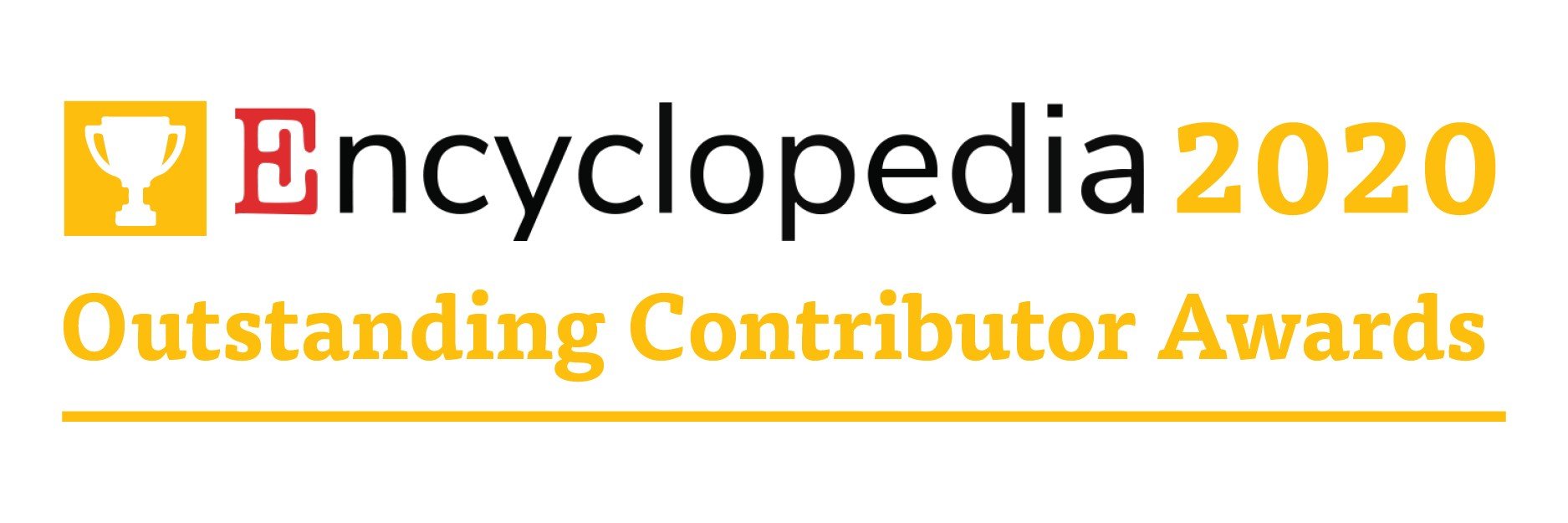
We are pleased to announce that Encyclopedia will be awarding five Outstanding Contributor Awards for researchers in 2020. The nominations and applications will be assessed by an Evaluation Committee consisting of senior scholars from the Encyclopedia Editorial Board.
Prize for Winners
- An official certificate;
- A cash award of 500 CHF or an MDPI discount voucher of 800 CHF.
Application Deadline
31 December, 2020 (Please send your application email with a list of all entries you contributed to our office before the deadline: office@encyclopedia.pub)
Candidate Requirements
- Have a Ph.D. degree;
- Have more than three qualified entries published in Encyclopedia in 2020.
Evaluation Standards
- Number of entries published in Encyclopedia in 2020;
- Quality of entries online (including length, figure quality, and novelty);
- Impact of entries (including the number of likes, discussion contents, views, and downloads).
If you are a researcher and have not yet contribute entries to Encyclopedia, please do not miss this chance to highlight your research results.
11 October 2019
Introducing SciProfiles, an Academic Social Network
MDPI is pleased to announce the release of SciProfiles, its social network platform for researchers and scholars.
The purpose of SciProfiles is aligned with MDPI’s broad mission to accelerate discovery and innovation by facilitating immediate access to research results and to serve scholars and communities by providing opportunities for academic networking.
SciProfiles also ambitions to serve as a sustainable, transparent and community-driven research evaluation system aligned with the DORA principles (https://sfdora.org/). Through their scientific profiles, academics can highlight their contribution to research communities, and measure their impact on their field, beyond publication numbers and impact factors. SciProfiles is currently a beta version and will enrich to give researchers the possibility to highlight all of their contributions to science and their scientific communities as authors, reviewers, editors, conference organizers, conference panelists, conference keynote speakers, or even as lecturers or student mentors at their University.
The classic components of popular community social networks, including follower/following, classical metrics, endorsements and recommendations (https://www.mdpi.com/about/announcements/1690), comments (https://www.mdpi.com/about/announcements/1397) are or will be very soon highlighted in SciProfiles as open science contributions.
To help increase the impact and visibility of articles and their authors to an appropriate audience, the platform offers a NewsFeed that includes recommendations of relevant content based on interests, publication history, saved searches or colleagues’ recommendations.
SciProfiles’ avatars are now being integrated on several MDPI platforms, meaning that you will directly access researchers’ profiles from any of the MDPI platforms:
MDPI's journal publishing website: www.mdpi.com
MDPI's conference hosting and management website: www.sciforum.net
MDPI's pre-print website : www.preprints.org
MDPI's knowledge sharing website : www.encyclopedia.pub
MDPI's books store: www.mdpi.com/books
MDPI's literature database : www.scilit.net
SciProfiles aims to serve scientific communities at large. It can be embedded into third-party websites and also welcomes integration of data from third-parties.
Dr. Shu-Kun Lin: https://sciprofiles.com/profile/2
Dr. Franck Vazquez: https://sciprofiles.com/profile/FranckVazquez
Dr. Martyn Rittman: https://sciprofiles.com/profile/martynrittman
2 October 2019
Winners of the 2019 MDPI Writing Prize
We are delighted to announce the winners of the 2019 MDPI Writing Prize. Entrants were asked to write on the theme "Judging research: How should research and researchers be evaluated and rewarded?" We received a large number of excellent essays from PhD students and postdocs, and the process of shortlisting and choosing winners was not an easy one. The winners demonstrated excellent writing skills alongside interesting and thought-provoking ideas.
As last year, we will begin the process of collating all entries into a book that will be available in open access format. Alongside promoting good writing skills, we see the prize as a way to promote the voices of early career researchers within broader debates and policy discussions.
Congratulations to all of the participants and especially the winners. The winners are:
1st Prize (500 CHF):
Albin Nilsson (National Centre for Nuclear Research, Warsaw, Poland)
[Read here]
2nd Prize (250 CHF):
Qi Zhang (Shandong University, Jinan, China)
[Read here]
Igor Ogashawara (Indiana University, Indianapolis, US)
[Read here]
3rd Prize (100 CHF):
Margaret Sivapragasam (Universiti Teknologi Petronas, Perak, Malaysia)
[Read here]
Arvind Sharma (The University of Queensland, Gatton, Australia)
[Read here]
Jose Flores-Guerrero (University Medical Center Groningen, Groningen, The Netherlands)
[Read here]
The MDPI Writing Prize is an annual award supported by MDPI Author Services, which provides services including language editing, reformatting, plagiarism checks, and image editing.
20 September 2019
MDPI Now Gives Scholars the Possibility to Endorse and Recommend Articles

MDPI is pleased to announce the release of a new functionality giving the possibility for researchers and scholars to endorse, and formally recommend articles to their colleagues.
MDPI was an early signatory of the San Francisco Declaration on Research Assessment (https://sfdora.org/read/) which calls for improvement in how quality and impact of scholarly research outputs are evaluated, especially in moving beyond journal-based citation metrics (journal Impact Factor, Scopus Citescore, etc.).
MDPI supports the establishment of article-level impact metrics, including citations, views, downloads, and Altmetric scores. These measures serve as an impact indicator for research articles on a case–by-case basis, assessing paper on its own merit. However, these metrics are also subjective and can give a biased picture of the article impact: they do not directly reflect the quality or the intrinsic scientific value of the article.
In our view, community engagement with publications based on community-driven metrics can help to overcome this limitation. We have therefore launched an option for scholars to endorse articles, indicating their own assessment of its content and making a recommendation to their community. This follows our implementation of the open source Hypothesis commenting tool, which has been available for all articles published by MDPI for over a year (https://www.mdpi.com/about/announcements/1397). Both endorsement and commenting are available for all previously published and forthcoming MDPI articles.
In addition to potentially serving as a sustainable solution to article assessment, endorsements will help scientific communities to identify the most relevant articles, independently of the journal in which it was published.
The code for the endorsing functionality, which relies on DOIs and ORCIDs, will be made available on GitHub with an open source license.
Dr. Shu-Kun Lin, President and Founder
Dr. Franck Vazquez, Chief Scientific Officer
Dr. Martyn Rittman, Publishing Director
11 September 2019
Create an Entry in Encyclopedia to Get a 100 CHF Voucher in Publishing in MDPI Journals
Encyclopedia is a free online reference created and curated by active scholars. It aims to highlight the latest research results as well as provide a comprehensive record of scientific development. If you have any suggestions or questions, please feel free to contact us via office@encyclopedia.pub.

6 August 2019
Preprints Reaches 10,000 Posted Articles Milestone
We are pleased to announce that Preprints has passed the milestone of 10,000 posted preprints. We are delighted to have reached this after just over three years of operation. Our congratulations and thanks go to our authors and advisory board who have supported growth of the platform and been crucial to its operation.
You can find further details at https://www.preprints.org/announcement/show/37.
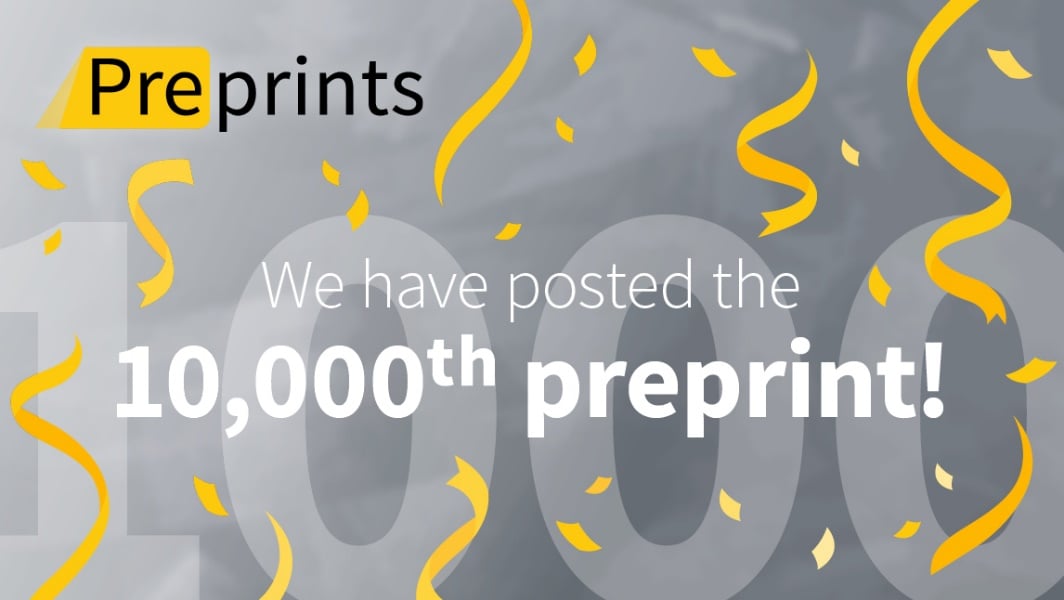
2 August 2019
DeepGreen Partnering with Publishers and Universities in Distributing Open Access Content to Institutional Repositories
Last week, the DeepGreen initiative in Germany started into an advanced test phase with the publishing partners S. Karger AG, SAGE Publishing, MDPI, Frontiers and De Gruyter, as well as 27 universities from all over Germany, from Hamburg University of Applied Sciences to University of Konstanz.
DeepGreen aims at lowering the barriers for open access publishing by automatically delivering metadata and full text publications from participating publishers to authorized repositories at German universities.
In preparation for a later live operation, the advanced test phase serves to gain experience with extensive data deliveries from publishers and also handling different repository software (including OPUS4, DSpace, EPrints, MyCoRe). DeepGreen thereby acts as a sophisticated platform, receiving articles published by authors affiliated with German universities and depositing these articles to respective university repositories, based on the affiliation metadata. For more information about DeepGreen: https://deepgreen.kobv.de
Karger AG has been a close cooperation partner of the DeepGreen consortium since 2016. S. Karger has more than 80 subscription-based and around 20 open access journals covering a wide spectrum in health science. DeepGreen will assign S. Karger articles to authorized institutions on the legal basis of German alliance and national licenses.
SAGE Publishing was founded by Sara Miller McCune in 1965 to support the dissemination of usable knowledge and educate a global community. SAGE publishes more than 1,000 journals and over 600 new books each year, spanning a wide range of subject areas. Our growing selection of library products includes archives, data, case studies and video. SAGE remains majority owned by our founder and after her lifetime will become owned by a charitable trust that secures the company’s continued independence. Principal offices are located in Los Angeles, London, New Delhi, Singapore, Washington DC and Melbourne. SAGE Publishing has been a close cooperation partner of DeepGreen since 2016.
MDPI is a scientific open access publisher and has been a partner of DeepGreen since 2017. MDPI comprises 205 peer-reviewed journals of various disciplines. All articles are published under a CC-BY license and are freely available without embargo period.
Frontiers is a scientific open access publisher with 61 journals of over 600 academic disciplines. All articles are peer-reviewed and published freely available under CC-BY license.
De Gruyter is an academic publisher with more than 700 subscription-based and open access journals of 29 disciplines. Articles provided by De Gruyter will be assigned to institutions with German alliance and national licenses.
There is promising communication with other publishers.
DeepGreen is funded by the German Research Foundation (DFG) and the consortium comprises six institutions: the Cooperative Library Network Berlin-Brandenburg, Bavarian State Library, Bavarian Library Network, University Library of the Technische Universität Berlin, University Library of Erlangen-Nuremberg and the Helmholtz Open Science Coordination Office at the GFZ German Research Centre for Geosciences.
If you would like to know in more detail which institutions take part in the advanced test phase of DeepGreen, you can find more information here.
17 July 2019
First Basel Sustainable Publishing Forum
The University of Basel and the MDPI Sustainability Foundation are organizing the First Basel Sustainable Publishing Forum on 9th September 2019.
The aim of this event is to provide background and perspectives on Plan S to Learned Societies, which have to make well-informed decisions to transition their journals to Open Access (OA).
The BSPF will bring together several representatives of Learned societies, Plan S architects as well as representatives from various publishers and publishing platforms. After getting the big picture from cOAlition S, panel discussions will allow to better understand the diverse challenges that Learned societies are facing to transition their journals to OA as well as to identify sustainable, implementable and scalable solutions for successful Open Access transition.
For program details and registration, please follow the link below:
https://sciforum.net/conference/SustainableSolutionsToOpenAccess
31 May 2019
First-Timers: MDPI Journals Receiving a First CiteScore™ in Scopus
In addition to MDPI journals who received updated CiteScores for 2018, the titles listed below were added in Scopus recently and therefore received a first CiteScore in May 2019, based on last year's citation activity in the database.
For almost all of the newly added MDPI titles, their CiteScore ranks in the upper 50% of the distribution (Q1 or Q2) in at least one of the research areas. The following titles rank in the top 25% cited journals based on CiteScore: Actuators; Biomedicines; Coatings; Cosmetics; Fermentation; Journal of Fungi; Journal of Open Innovation: Technology, Market, and Complexity; Nanomaterials; and Publications.
To access the full data for MDPI journals, please see here. More data can also be found in SJR Scimago Journal & Country Rank.
New CiteScore for MDPI Journals
| Journal | Rank (Quartile) |
Category | Link | CiteScore 2018 | SNIP 2018 |
| Actuators | 9/92 (Q1) 60/232 (Q2) |
• Control and Optimization • Control and Systems Engineering |
Link | 2.80 | 1.542 |
| Atmosphere | 26/71 (Q2) | • Environmental Science (miscellaneous) | Link | 2.27 | 0.855 |
| Atoms | 36/69 (Q3) 105/173 (Q3) 239/397 (Q3) |
• Nuclear and High Energy Physics • Atomic and Molecular Physics, and Optics • Condensed Matter Physics |
Link | 1.20 | 0.707 |
| Axioms | 25/91 (Q2) 26/78 (Q2) 11/27 (Q2) 55/135 (Q2) 35/58 (Q3) |
• Algebra and Number Theory • Geometry and Topology • Logic • Analysis • Mathematical Physics |
Link | 0.99 | 0.670 |
| Bioengineering | 42/139 (Q2) | • Bioengineering | Link | 3.14 | - |
| Biomedicines | 40/189 (Q1) 47/206 (Q1) |
• General Biochemistry, Genetics and Molecular Biology • Medicine (miscellaneous) |
Link | 3.33 | 0.908 |
| Chemosensors | 34/110 (Q2) 50/160 (Q2) |
• Analytical Chemistry • Physical and Theoretical Chemistry |
Link | 2.77 | 0.770 |
| Climate | 53/109 (Q2) | • Atmospheric Science | Link | 1.95 | 0.864 |
| Coatings | 27/116 (Q1) 63/271 (Q1) 15/53 (Q2) |
• Surfaces, Coatings and Films • Materials Chemistry • Surfaces and Interfaces |
Link | 2.42 | 1.186 |
| Computation | 74/204 (Q2) 171/460 (Q2) 58/118 (Q2) 127/259 (Q3) |
• General Computer Science • Applied Mathematics • Theoretical Computer Science • Modeling and Simulation |
Link | 1.40 | 0.552 |
| Computers | 128/274 (Q2) 52/89 (Q3) |
• Computer Networks and Communications • Human-Computer Interaction |
Link | 1.59 | - |
| Cosmetics | 92/390 (Q1) 38/128 (Q2) 67/164 (Q2) 11/23 (Q2) 23/30 (Q4) |
• Surgery • Dermatology • Pharmaceutical Science • Chemical Engineering (miscellaneous) • Aging |
Link | 1.81 | 1.689 |
| Econometrics | 339/595 (Q3) | • Economics and Econometrics | Link | 0.82 | - |
| Fermentation | 91/404 (Q1) 76/273 (Q2) 10/24 (Q2) |
• Plant Science • Food Science • Biochemistry, Genetics and Molecular Biology (miscellaneous) |
Link | 2.24 | - |
| Fibers | 86/288 (Q2) 34/103 (Q2) 118/352 (Q2) 49/83 (Q3) |
• Civil and Structural Engineering • Ceramics and Composites • Mechanics of Materials • Biomaterials |
Link | 2.01 | 0.889 |
| Galaxies | 46/76 (Q3) | • Astronomy and Astrophysics | Link | 1.08 | 0.308 |
| High-Throughput | 181/257 (Q3) 153/205 (Q4) 108/139 (Q4) 340/407 (Q4) |
• Biotechnology • Biomedical Engineering • Bioengineering • Biochemistry |
Link | 0.88 | 0.295 |
| Inorganics | 35/69 (Q3) | • Inorganic Chemistry | Link | 1.90 | 0.474 |
| International Journal of Neonatal Screening | 138/277 (Q3) 3/5 (Q3) 95/166 (Q3) |
• Pediatrics, Perinatology and Child Health • Immunology and Microbiology (miscellaneous) • Obstetrics and Gynecology |
Link | 1.07 | 0.240 |
| Journal of Developmental Biology | 39/76 (Q3) 224/375 (Q3) 164/265 (Q3) |
• Developmental Biology • Molecular Biology • Cell Biology |
Link | 2.36 | 0.813 |
| Journal of Functional Biomaterials | 11/83 (Q1) 26/205 (Q1) |
• Biomaterials • Biomedical Engineering |
Link | 5.10 | 2.234 |
| Journal of Fungi | 90/591 (Q1) 62/404 (Q1) |
• Ecology, Evolution, Behavior and Systematics • Plant Science |
Link | 2.84 | 0.982 |
| Journal of Imaging | 291/661 (Q2) 136/272 (Q3) 36/70 (Q3) 40/75 (Q3) |
• Electrical and Electronic Engineering • Radiology, Nuclear Medicine and Imaging • Computer Graphics and Computer-Aided Design • Computer Vision and Pattern Recognition |
Link | 1.47 | - |
| Journal of Marine Science and Engineering | 30/92 (Q2) 105/288 (Q2) 77/203 (Q2) |
• Ocean Engineering • Civil and Structural Engineering • Water Science and Technology |
Link | 1.76 | 0.955 |
| Journal of Open Innovation: Technology, Market, and Complexity | 4/202 (Q1) 27/1111 (Q1) 9/214 (Q1) |
• General Economics, Econometrics and Finance • Sociology and Political Science • Development |
Link | 4.26 | 2.138 |
| Journal of Sensor and Actuator Networks | 13/92 (Q1) 27/123 (Q1) 70/274 (Q2) |
• Control and Optimization • Instrumentation • Computer Networks and Communications |
Link | 2.58 | 1.036 |
| Lubricants | 182/579 (Q2) 42/116 (Q2) |
• Mechanical Engineering • Surfaces, Coatings and Films |
Link | 1.87 | 1.321 |
| Machines | 104/323 (Q2) 33/92 (Q2) 214/579 (Q2) 21/53 (Q2) 262/661 (Q2) 109/232 (Q2) |
• Industrial and Manufacturing Engineering • Control and Optimization • Mechanical Engineering • Computer Science (miscellaneous) • Electrical and Electronic Engineering • Control and Systems Engineering |
Link | 1.63 | 0.769 |
| Mathematics | 86/339 (Q2) | • General Mathematics | Link | 1.04 | 0.739 |
| Nanomaterials | 29/272 (Q1) 66/439 (Q1) |
• General Chemical Engineering • General Materials Science |
Link | 4.21 | 1.112 |
| Processes | 9/23 (Q2) 25/59 (Q2) 68/139 (Q2) |
• Chemical Engineering (miscellaneous) • Process Chemistry and Technology • Bioengineering |
Link | 2.05 | 1.049 |
| Proteomes | 54/115 (Q2) 23/46 (Q2) 213/407 (Q3) 229/375 (Q3) |
• Clinical Biochemistry • Structural Biology • Biochemistry • Molecular Biology |
Link | 2.32 | 0.445 |
| Publications | 11/66 (Q1) 51/312 (Q1) 83/351 (Q1) 233/569 (Q2) |
• Media Technology • Communication • Business and International Management • Computer Science Applications |
Link | 1.96 | 1.068 |
| Robotics | 234/579 (Q2) 38/92 (Q2) |
• Mechanical Engineering • Control and Optimization |
Link | 1.53 | 0.722 |
| Toxics | 32/117 (Q2) 3/8 (Q2) 40/114 (Q2) |
• Health, Toxicology and Mutagenesis • Chemical Health and Safety • Toxicology |
Link | 2.84 | 0.896 |
20 March 2019
Fostering Open Access Publishing Worldwide: New IOAP Participants in February and March 2019
We are pleased to welcome more universities from Poland, Italy, Germany, Brazil and other parts of the world to MDPI's Institutional Open Access Program (IOAP). A warm welcome to the institutions listed below, who have joined the Program in February and March this year.
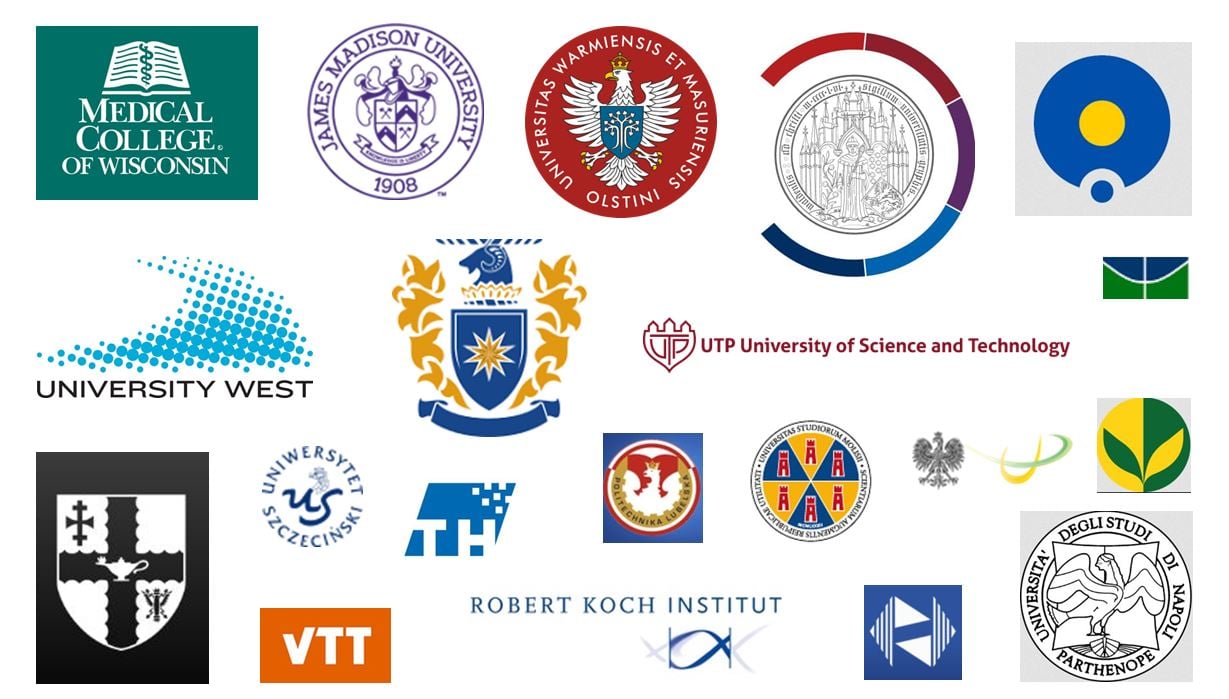
Authors affiliated with these institutions can now enjoy a discount on the APC for papers accepted for publication in any MDPI journal. If you would like to learn more about our program, please visit: https://www.mdpi.com/about/ioap or email us at ioap@mdpi.com.
5 March 2019
MDPI Joins Jisc’s Publications Router Service
We are delighted to announce our participation in Jisc’s Publication Router project, as of March 2019.
Publications Router is a Jisc service that automatically sends notifications about research articles to institutions' systems such as their repositories or CRISs, since May 2015. Through this agreement, MDPI will provide Jisc with daily feeds and information regarding published articles, which will be gathered by their system and delivered to institutions also registered to this service. Nearly all of our articles are published within 15 days of acceptance, so institutions will receive them quite promptly.
The feed will include the full text of the published version of record, with no embargo, so the articles can be exposed immediately for public view. They are accompanied by rich metadata, including confirmation of the immediate CC BY licence, minimising the need for any manual intervention or checking.
For more information about Publications Router, you may contact Jisc’s central helpdesk at help@jisc.ac.uk. For any queries about MDPI’s institutional agreements and collaborations, you may get in touch with MDPI’s Institutional Engagement team at ioap@mdpi.com, which would be very happy to hear from further UK institutions.
1 February 2019
2018 MDPI Top Reviewer Award—Winners Announced
Rigorous peer-review is the cornerstone of high quality academic publishing. Over 97,000 scholars served as reviewers for MDPI journals in 2018. We are extremely appreciative of all those who made a contribution to the editorial process in this capacity. At the beginning of every year, journal editorial offices publish a list all reviewers’ names to express our gratitude. In addition, this year the “MDPI Top Reviewer Awards” are announced, to recognize the very best reviewers for their expertise, dedication, high quality, and timely review reports. We are pleased to announce the following winners of the 2018 MDPI Top Reviewer Awards:
- Ali Behnood
- Andrea Pezzuolo
- Angela Gorgoglione
- Anna D'Auria
- Antonio D'Andrea
- Azhar Abbas
- Bogdan Zagajewski
- Chunhui Chen
- Dominika Głąbska
- Dominika Guzek
- Dragan Pamucar
- Francisco J. G. Silva
- Frank Li
- Gianluca Serafini
- Gyorgy Szekely
- Haozhi Pan
- Helvi Heinonen-Tanski
- José Manuel Gómez-Soberón
- Kathy Lewis
- Klara Kosova
- Luis N. López De Lacalle
- M. Z. Naser
- Malwina Tytła
- Masoume Amirkhani
- Matteo Ghidelli
- Moretti Laura
- Petra Schneider
- Roberto Cerchione
- Spyros Papaefthymiou
- Ştefan Cristian Gherghina
24 January 2019
JAMS Journals: A Low-Cost Publishing Platform

Since 2010, MDPI has run its own online submission system. More recently, we have made the software, with accompanying publishing services, available to other publishers as JAMS (Journal and Article Management System). We are now delighted to announce the launch of JAMS Journals, a standardized platform for operating open access journals at low cost.
JAMS Journals provides a comprehensive service, including a shared submission website, journal websites hosted at a URL provided by the publisher, and a full production service. There is a small setup fee and the cost for each published paper is just a few hundred Swiss francs.
The platform demonstrates that running an open access journal can be straightforward and affordable. The JAMS Journals platform is suitable for
- small publishers or groups of scholars looking to launch their own journal;
- existing publishers or societies seeking to explore open access options;
- publishers looking to convert an existing subscription journal to open access.
JAMS journals launches with two journals from Canadian-based publisher Etcetera Publications:
- Canadian Journal of Pesticides & Pest Management (http://www.cjppm.ca)
- Nanotechnology in Agriculture, Food & Environment (http://www.nanoafe.ca)
Dr AJ Al-Rajab (President of Etcetera Publications) comments:
“In the past few months, we were working on our project to launch new open access scientific journals in the field of agricultural and environmental sciences. We decided to go with JAMS for this venture because of the high quality of their services, reasonable prices, professionalism and easy communication. Our portfolio is expected to grow rapidly during 2019 to include more titles covering different areas in agriculture and environment. MDPI earned already our complete satisfaction and we are looking for a long term cooperation.”
Alongside the new platform, we continue to provide flexible, tailored journal management solutions for existing publishers. For any questions or to request a quotation, contact Dr. Constanze Schelhorn (constanze.schelhorn@mdpi.com).
24 January 2019
Popularity of Preprints Continues to Grow

2018 was a great year for preprints, with increasing numbers of authors looking to make their papers available online before peer review. Along with other preprint servers, our platform Preprints.org saw an increase in the uptake from authors, and more than double the number of announced papers compared to 2017. In fact, we recently passed two important milestones: 8000 preprints online and 30,000 authors.
We believe that the whole research community has the opportunity to benefit from work being available online as early as possible. We thank and congratulate our authors for supporting us to make this goal a reality.
In 2019, we will be looking carefully at how to provide better value for authors, maintain efficiency while growing in size, and make sure we remain well-connected with the research community.
If you want to participate, you can consider screening preprints or joining our advisory board. And, of course, posting your own work.
9 January 2019
Open Access Agreement between the Austrian Academic Library Consortium (KEMÖ), the Austrian Science Fund (FWF), and MDPI

We are delighted to announce the establishment of our national Open Access agreement with the Austrian Academic Library Consortium (KEMÖ) and the Austrian Science Fund (FWF). Through this national agreement, the Austrian institutions listed below as well as FWF will cover the Article Processing Charges (APC) of manuscripts published by eligible corresponding or funded authors in MDPI journals as long as central funds are available.
All participating institutions have gained access to the MDPI online submission system where they can find full article metadata and pricing information as well as Funder and Grant ID details for easy identification and additional transparency. At the same time eligible authors are benefited from an APC discount which comes at no cost for the institutions.
Eligible corresponding authors affiliated with the participating institutions are prompted to choose the corresponding Institutional Open Access Program (IOAP) when they submit an article via our online submission system. The program will be selected automatically if authors submit their papers using their institutional email address. To claim their discount, FWF funded authors should choose the particular funder and add their Grant ID upon online submission of their manuscript. The institutions will then crosscheck the information and confirm the APC funding.
Eligible authors that have their APC covered by their institution or funder are advised to include the following sentence in their acknowledgments: "Open Access Funding by the [name of the institution/funder]".
The full text of the agreement is openly available online at: http://doi.org/10.5281/zenodo.2536007
For any questions about the agreement, please contact the KEMÖ Consortium at emedien@obvsg.at, FWF at Katharina.Rieck@fwf.ac.at, or the MDPI IOAP team at ioap@mdpi.com.
The Austrian institutions participating in this agreement are:
- Austrian Science Fund (FWF)
- University for Continuing Education Krems
- University of Applied Sciences BFI Vienna
- University of Applied Sciences Upper Austria
- University of Applied Sciences Technikum Wien
- Vorarlberg University of Applied Sciences
- International Institute for Applied Systems Analysis (IIASA)
- Institute of Science and Technology Austria
- MCI Management Center Innsbruck
- University of Graz
- University of Linz
- University of Salzburg
- Graz University of Technology
- TU Wien
- University of Veterinary Medicine Vienna
- University of Vienna
This is our first collective agreement with a national library consortium, while the individual institutions around the world participating in our IOAP are now more than 500 - see details here: https://www.mdpi.com/about/ioap. We would be mostly interested in discussing about possible collaborations with other consortia, funders, and institutions in our mutual efforts to accelerate Open Access.
2 January 2019
Encyclopedia—the Scholarly Community Encyclopedia

We are pleased to announce the new platform Encyclopedia, which is an online reference created and curated by active scholars. It aims to highlight the latest research results as well as providing benchmark information for researchers and the general public interested in accurate and advanced knowledge on specific topics.
We encourage authors of review articles to quote and adapt the content of their published papers to create Encyclopedia entries. You can create completely new entries on topics in which you have knowledge and expertise. There is no limit on the topics or research fields. All of science and the humanities are included. Each entry will be published directly after submission.
We also have prepared a DOI application function in Encyclopedia. Once a DOI application is approved, the entry website will announce the DOI number and a pdf version with DOI information will be automatically created.
We look forward to your contributions and hope you will make use of this service. Find more about the service at: https://encyclopedia.pub/
30 October 2018
Institutional Open Access Agreement between Bill and Melinda Gates Foundation and MDPI

We are delighted to announce that the Bill and Melinda Gates Foundation (BMGF) is now a participant of our Institutional Open Access Program (IOAP). Authors funded by the BMGF can enjoy discounts on the APC, while the funder covers the costs of eligible articles centrally. BMGF also has access to the MDPI online submission system where they can find full article metadata and pricing information as well as Grant ID details for easy identification and additional transparency.
We hope that funded authors find the programme beneficial and we are happy to offer our IOAP to other funders that need a streamlined workflow of compliance checking and APC coverage.
To claim their discount, BMGF funded authors should choose the particular funder and add their Grant ID upon online submission of their manuscript.
For any questions about the BMGF agreement, please contact the funder at support@chronos-oa.com or the MDPI IOAP team at ioap@mdpi.com.
11 October 2018
Meet Us at the NanoBio&Med2018 conference in Barcelona, Spain, 20–22 November 2018
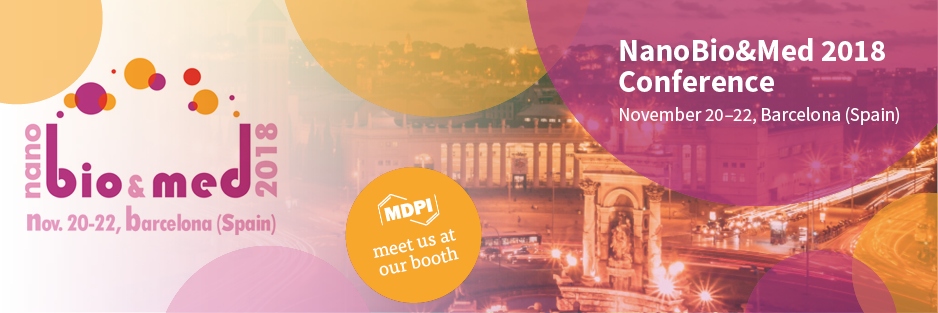
MDPI will be attending NanoBio&Med2018, to be held in Barcelona, Spain, 20–22 November 2018.
This conference presents the most recent international developments in the field of Nanobiotechnology and Nanomedicine. Emerging and future trends of the converging fields of Nanotechnology, Biotechnology and Medicine will be discussed among industry, academic, governmental and non-governmental institutions and the conference will provide a platform for multidisciplinary communication.
The following MDPI journals will be represented:
If you are also attending this conference, please feel free to stop by our booth. Our delegates look forward to meeting you in person to answer any question you may have. For more information about the conference, please visit: http://www.nanobiomedconf.com/NBM18/index.php
2 October 2018
MDPI Welcomes Plan S
Recently, it was announced that a group of European funders supported 10 principles that will help to expand open access, known as Plan S. MDPI warmly welcomes this move as a step towards achieving more open and accessible communication of research across all disciplines. Some aspects remain to be clarified, however the details given so far match the aims and values that MDPI has held over the past two decades.

We believe that open access publishers should be active participants in discussions around Plan S, particularly regarding potential new business models and practical aspects of implementation. MDPI supports APCs as a transparent unit of payment for article publishing, however we are committed to exploring other measures and recently signed the Jussieu Call. Sustainability is a key value for MDPI, and future funding models should have at their heart the sustainability of knowledge and research dissemination. Plan S provides an opportunity for funders and publishers to directly discuss funding of open access journals in ways that are beneficial to all parties involved.
30 August 2018
MDPI establishes Open Access agreement with Qatar National Library

We are happy to announce the establishment of an Open Access (OA) agreement with Qatar National Library (QNL). QNL is committed to supporting and helping Qatar authors publish OA at no cost. Through this national agreement, QNL will cover the Article Processing Charges (APC) of manuscripts published by Qatar-based corresponding authors in MDPI journals.
Eligible corresponding authors affiliated with Qatar research centers and universities are prompted to choose QNL as part of our Institutional Open Access Program (IOAP) when they submit an article via our online submission system. The program will be selected automatically if authors submit their papers using their institutional email and/or a computer registered with the institution’s IP range. QNL will then crosscheck the information and confirm the APC funding.
Qatar authors that have their APC covered by QNL are advised to include the following sentence in their acknowledgments: "The publication of this article was funded by Qatar National Library".
For more information, please visit Open Access at QNL or email the QNL Open Access team at openaccess@qnl.qa.
31 May 2018
2017 CiteScore™ Metrics Released
The 2017 CiteScore™ data is available now, based on citation data in the Scopus® database. The current CiteScore reflects citation activity in 2017 for articles published in 2014‒2016. Please note that the list below includes journals assigned a CiteScore in this year’s release. For a full list of journals indexed in Scopus, please see our journal list.
Thirteen of our journals received a CiteScore which is in the top 10% of the distribution in at least one of the categories (marked with * in the table below), while a further 32 journals exhibit scores that are in the first quartile of the respective categories.
To access the full data for MDPI journals, please see here. More data can also be found in SJR Scimago Journal & Country Rank.
Unlike CiteScores and the widely used Journal Impact Factors, the Source Normalized Impact per Paper (SNIP) metrics are normalized in order to correct for differences in citation practices between scientific fields. Therefore, the SNIP allows direct comparison between journals specialized in different fields.
According to 2017 data, MDPI publishes six journals with an average citation impact, or SNIP, in excess of 1.500. These journals are Biomolecules, Cancers, Journal of Clinical Medicine (JCM), Marine Drugs, Remote Sensing and Sensors (see the last column in the table below).
CiteScore Data for MDPI Journals
| Journal | Rank (Quartile) |
Category | Link | CiteScore 2017 | 2016 |
2015 |
SNIP 2017 |
| Aerospace | 43/116 (Q2) | • Aerospace Engineering | Link | 1.23 | - | - | 1.152 |
| Agriculture | 69/309 (Q1) 91/398 (Q1) 78/255 (Q2) |
• Agronomy and Crop Science • Plant Science • Food Science |
Link | 1.93 | - | - | 1.133 |
| Agronomy | 46/309 (Q1) | • Agronomy and Crop Science | Link | 2.38 | - | - | 1.115 |
| Algorithms | 22/46 (Q2) 61/125 (Q2) 60/107 (Q3) 64/114 (Q3) |
• Numerical Analysis • Computational Mathematics • Computational Theory and Mathematics • Theoretical Computer Science |
Link | 1.03 | 1.15 | 1.07 | 0.749 |
| Animals | 12/154 (Q1) * 48/367 (Q1) |
• General Veterinary • Animal Science and Zoology |
Link | 2.02 | 1.46 | 1.66 | 1.099 |
| Antibiotics | 6/68 (Q1) * 62/263 (Q1) 55/230 (Q1) 31/108 (Q2) 47/134 (Q2) 139/398 (Q2) |
• General Pharmacology, Toxicology and Pharmaceutics • Infectious Diseases • Pharmacology (medical) • Microbiology (medical) • Microbiology • Biochemistry |
Link | 2.85 | 1.65 | - | 0.975 |
| Antibodies | 43/143 (Q2) 61/164 (Q2) 85/189 (Q2) |
• Drug Discovery • Immunology and Allergy • Immunology |
Link | 2.85 | - | - | 0.844 |
| Antioxidants | 23/119 (Q1) 35/169 (Q2) 100/398 (Q2) 119/367 (Q2) 102/264 (Q2) |
• Clinical Biochemistry • Physiology • Biochemistry • Molecular Biology • Cell Biology |
Link | 3.42 | - | - | 1.361 |
| Applied Sciences | 48/270 (Q1) 15/66 (Q1) 31/116 (Q2) 18/53 (Q2) 151/434 (Q2) 186/535 (Q2) |
• General Engineering • Fluid Flow and Transfer Processes • Instrumentation • Process Chemistry and Technology • General Materials Science • Computer Science Applications |
Link | 1.90 | - | - | 0.801 |
| Biology | 12/177 (Q1)* 32/186 (Q1) 10/40 (Q1) |
• General Agricultural and Biological Sciences • General Biochemistry, Genetics and Molecular Biology • General Immunology and Microbiology |
Link | 3.48 | 3.02 | 2.78 | 0.961 |
| Biomolecules | 31/398 (Q1) * 41/367 (Q1) |
• Biochemistry • Molecular Biology |
Link | 5.72 | 1.67 | 3.08 | 1.542 |
| Biosensors | 20/119 (Q1) | • Clinical Biochemistry | Link | 3.59 | 2.83 | 2.37 | 1.122 |
| Brain Sciences | 47/111 (Q2) | • General Neuroscience | Link | 2.56 | - | - | 0.695 |
| Cancers | 26/323 (Q1) * 23/191 (Q1) |
• Oncology • Cancer Research |
Link | 5.82 | 5.02 | 4.07 | 1.567 |
| Catalysts | 32/151 (Q1) 21/46 (Q2) |
• Physical and Theoretical Chemistry • Catalysis |
Link | 3.23 | 3.44 | 3.45 | 0.954 |
| Crystals | 76/272 (Q2) 140/434 (Q2) 127/398 (Q2) 26/64 (Q2) |
• General Chemical Engineering • General Materials Science • Condensed Matter Physics • Inorganic Chemistry |
Link | 1.97 | 1.89 | 1.47 | 0.745 |
| Diagnostics | 49/119 (Q2) | • Clinical Biochemistry | Link | 2.43 | - | - | 0.788 |
| Diversity | 30/124 (Q1) 14/52 (Q2) 83/306 (Q2) 11/29 (Q2) |
• Nature and Landscape Conservation • Agricultural and Biological Sciences (miscellaneous) • Ecology • Ecological Modelling |
Link | 2.15 | 2.03 | 1.96 | 1.300 |
| Electronics | 109/644 (Q1) 26/148 (Q1) 42/224 (Q1) 50/259 (Q1) 23/96 (Q1) |
• Electrical and Electronic Engineering • Hardware and Architecture • Control and Systems Engineering • Computer Networks and Communications • Signal Processing |
Link | 2.97 | - | - | 1.227 |
| Energies | 6/73 (Q1) * 31/192 (Q1) 103/644 (Q1) 4/16 (Q1) 47/140 (Q2) |
• Control and Optimization • Energy Engineering and Power Technology • Electrical and Electronic Engineering • Energy (miscellaneous) • Renewable Energy, Sustainability and the Environment |
Link | 3.11 | 2.50 | 2.87 | 1.340 |
| Entropy | 35/202 (Q1) | • General Physics and Astronomy | Link | 2.41 | 1.87 | 1.99 | 1.189 |
| Forests | 17/129 (Q1) | • Forestry | Link | 2.31 | 2.06 | 1.76 | 0.990 |
| Future Internet | 132/259 (Q3) | • Computer Networks and Communications | Link | 1.25 | - | - | - |
| Games | 132/187 (Q3) 78/110 (Q3) 305/418 (Q3) |
• Statistics and Probability • Statistics, Probability and Uncertainty • Applied Mathematics |
Link | 0.61 | 0.87 | 0.57 | 1.038 |
| Genes | 21/91 (Q1) 74/311 (Q1) |
• Genetics (clinical) • Genetics |
Link | 3.49 | 3.62 | 3.18 | 0.374 |
| Geosciences | 32/182 (Q1) |
• General Earth and Planetary Sciences | Link | 1.97 | 1.67 | 1.29 | 0.856 |
| Information | 143/251 (Q3) | • Information Systems | Link | 1.16 | 0.78 | 0.94 | 1.146 |
| Insects | 27/135 (Q1) | • Insect Science | Link | 1.85 | 1.81 | 1.38 | 0.719 |
| International Journal of Environmental Research and Public Health (IJERPH) | 80/478 (Q1) 34/106 (Q2) |
• Public Health, Environmental and Occupational Health • Health, Toxicology and Mutagenesis |
Link | 2.41 | 2.38 | 2.42 | 0.931 |
| International Journal of Molecular Sciences (IJMS) | 7/69 (Q1) * 61/535 (Q1) 20/163 (Q1) 9/64 (Q1) 26/151 (Q1) 89/367 (Q2) 17/46 (Q2) |
• Spectroscopy • Computer Science Applications • Organic Chemistry • Inorganic Chemistry • Physical and Theoretical Chemistry • Molecular Biology • Catalysis |
Link | 3.86 | 3.73 | 3.37 | 0.998 |
| ISPRS International Journal of Geo-Information (IJGI) | 79/605 (Q1) 22/82 (Q2) 13/36 (Q2) |
• Geography, Planning and Development • Earth and Planetary Sciences (miscellaneous) • Computers in Earth Sciences |
Link | 2.10 | 1.62 | 1.52 | 1.062 |
| Journal of Clinical Medicine (JCM) | 10/841 (Q1) * | • General Medicine | Link | 7.07 | - | - | 1.535 |
| Journal of Functional Biomaterials (JFB) | 43/199 (Q1) 23/77 (Q2) |
• Biomedical Engineering • Biomaterials |
Link | 3.47 | - | - | 1.344 |
| Journal of Low Po- wer Electronics and Applications (JLPEA) |
301/644 (Q2) | • Electrical and Electronic Engineering | Link | 1.12 | 0.98 | 0.83 | 0.367 |
| Journal of Personalized Medicine (JPM) | 54/189 (Q2) | • Medicine (miscellaneous) | Link | 2.61 | - | - | 0.944 |
| Land | 50/124 (Q2) 129/306 (Q2) 36/65 (Q3) |
• Nature and Landscape Conservation • Ecology • Global and Planetary Change |
Link | 1.44 | - | - | 0.658 |
| Life | 4/94 (Q1) * 70/561 (Q1) 40/186 (Q1) 20/80 (Q2) |
• Palaeontology • Ecology, Evolution, Behavior and Systematics • General Biochemistry, Genetics and Molecular Biology • Space and Planetary Science |
Link | 3.16 | 2.95 | 1.68 | 0.935 |
| Marine Drugs | 17/146 (Q1) | • Drug Discovery | Link | 4.58 | 3.83 | 3.66 | 1.537 |
| Materials | 83/434 (Q1) | • General Materials Science | Link | 3.02 | 3.26 | 3.11 | 1.285 |
| Membranes | 5/18 (Q2) 15/53 (Q2) 4/10 (Q2) |
• Chemical Engineering (miscellaneous) • Process Chemistry and Technology • Filtration and Separation |
Link | 2.69 | 2.19 | 2.95 | 0.880 |
| Metabolites | 47/209 (Q1) 103/398 (Q2) 127/367 (Q2) |
• Endocrinology, Diabetes and Metabolism • Biochemistry • Molecular Biology |
Link | 3.35 | - | - | 0.925 |
| Metals | 155/434 (Q2) | • General Materials Science | Link | 1.87 | - | - | 0.955 |
| Micromachines | 105/554 (Q1) 154/644 (Q1) 64/224 (Q2) |
• Mechanical Engineering • Electrical and Electronic Engineering • Control and Systems Engineering |
Link | 2.31 | 1.83 | 1.78 | 0.987 |
| Minerals | 33/175 (Q1) 45/208 (Q1) |
• Geotechnical Engineering and Engineering Geology • Geology |
Link | 2.21 | 2.13 | 1.77 | 1.149 |
| Molecules | 4/25 (Q1) 25/172 (Q1) 18/104 (Q1) 31/163 (Q1) 30/151 (Q1) 31/146 (Q1) 55/160 (Q2) |
• Chemistry (miscellaneous) • Pharmaceutical Science • Analytical Chemistry • Organic Chemistry • Physical and Theoretical Chemistry • Drug Discovery • Molecular Medicine |
Link | 3.27 | 3.09 | 2.65 | 1.146 |
| Nutrients | 11/255 (Q1) * 9/112 (Q1) * |
• Food Science • Nutrition and Dietetics |
Link | 4.35 | 4.29 | 4.07 | 1.403 |
| Pathogens | 38/263 (Q1) 20/108 (Q1) 9/40 (Q1) 40/164 (Q1) 110/367 (Q2) |
• Infectious Diseases • Microbiology (medical) • General Immunology and Microbiology • Immunology and Allergy • Molecular Biology |
Link | 3.52 | - | - | 1.166 |
| Pharmaceuticals | 14/172 (Q1) * 33/160 (Q1) |
• Pharmaceutical Science • Molecular Medicine |
Link | 4.12 | 4.90 | 3.64 | 1.370 |
| Pharmaceutics | 21/172 (Q1) | • Pharmaceutical Science | Link | 3.68 | 3.83 | 2.68 | 1.092 |
| Photonics | 30/116 (Q1) 80/270 (Q2) 53/160 (Q2) |
• Instrumentation • Radiology Nuclear Medicine and Imaging • Atomic and Molecular Physics, and Optics |
Link | 1.96 | - | - | 0.817 |
| Plants | 73/561 (Q1) 48/389 (Q1) 44/306 (Q1) |
• Ecology, Evolution, Behavior and Systematics • Plant Science • Ecology |
Link | 3.13 | - | - | 0.969 |
| Polymers | 17/142 (Q1) 63/359 (Q1) |
• Polymers and Plastics • General Chemistry |
Link | 3.30 | 3.74 | 3.37 | 1.213 |
| Religions | 26/389 (Q1) * | • Religious Studies | Link | 0.56 | - | - | 0.676 |
| Remote Sensing | 13/182 (Q1) * | • General Earth and Planetary Sciences | Link | 4.03 | 3.56 | 3.76 | 1.559 |
| Resources | 19/142 (Q1) 39/261 (Q1) |
• Nature and Landscape Conservation • Management, Monitoring, Policy and Law |
Link | 2.69 | - | - | 1.387 |
| Scientia Pharmaceutica | 92/172 (Q3) | • Pharmaceutical Science | Link | 0.86 | - | - | 0.513 |
| Sensors | 9/116 (Q1) * 25/160 (Q1) 100/644 (Q1) 19/104 (Q1) 113/398 (Q2) |
• Instrumentation • Atomic and Molecular Physics, and Optics • Electrical and Electronic Engineering • Analytical Chemistry • Biochemistry |
Link | 3.23 | 2.78 | 2.21 | 1.550 |
| Social Sciences | 81/213 (Q2) | • General Social Sciences | Link | 0.60 | - | - | 0.445 |
| Sustainability | 61/605 (Q1) * 55/261 (Q1) 60/140 (Q2) |
• Geography, Planning and Development • Management, Monitoring, Policy and Law • Renewable Energy, Sustainability and the Environment |
Link | 2.37 | 1.96 | 1.78 | 1.030 |
| Symmetry | 44/327 (Q1) 17/45 (Q2) 16/40 (Q2) 14/25 (Q2) |
• General Mathematics • Computer Science (miscellaneous) • Physics and Astronomy (miscellaneous) • Chemistry (miscellaneous) |
Link | 1.32 | 1.12 | 0.95 | 0.802 |
| Toxins | 18/106 (Q1) 21/111 (Q1) |
• Health, Toxicology and Mutagenesis • Toxicology |
Link | 3.32 | 3.34 | 3.76 | 1.136 |
| Vaccines | 5/230 (Q1) * 13/263 (Q1) * 18/302 (Q1) * 11/146 (Q1) * 32/189 (Q1) |
• Pharmacology (medical) • Infectious Diseases • Pharmacology • Drug Discovery • Immunology |
Link | 4.88 | 1.23 | 3.76 | 1.255 |
| Viruses | 29/263 (Q1) 16/68 (Q1) |
• Virology • Infectious Diseases |
Link | 3.88 | 3.60 | 3.74 | 1.130 |
| Water | 66/605 (Q1) 37/191 (Q1) 43/199 (Q1) 193/398 (Q2) |
• Geography, Planning and Development • Water Science and Technology • Aquatic Science • Biochemistry |
Link | 2.29 | 2.05 | 1.96 | 1.007 |
30 April 2018
Winners of the First MDPI Writing Prize
We are pleased to announce the results of the first MDPI Writing Prize. We received a large number of entries from across the globe on the theme of “The Global Benefits of Open Research”. It was a pleasure to read so many original, well-researched and well-presented ideas, and the final choice was not an easy one. We are pleased to announce that the winners are as follows:
1st prize (500 CHF, Swiss knife and certificate)
Edmond Sanganyado, Shantou University, China
2nd prizes (250 CHF, Swiss knife and certificate)
Kamala T. Rajahgopal, Asia e University, Malaysia
Yin Zhixuan, Qingdao University of Technology, China
3rd prizes (100 CHF, Swiss knife and certificate)
Alexandra Ticea, Carol Davila University of Medicine and Pharmacy, Romania
Ankur Sarker, University of Virginia, USA
Daniel Attoye, United Arab Emirates University, UAE
Congratulations to all of them! The winning entries can be downloaded by clicking on the names above. A compilation of all entries will soon be available as an open access book.
The writing prize is sponsored by the MDPI English editing service.
23 March 2018
Check for Updates: A New Function in the Article PDF Version

At MDPI, we always want to keep you up to date. Even for already published articles, some corrections or minor changes may occur. To prevent you from missing any updates, from now on you will be able to access the latest version of any manuscript by clicking on the “check for updates” logo that you can find in the PDF file, even if you have saved the file on your computer.
13 March 2018
MDPI Becoming a Member of UKSG
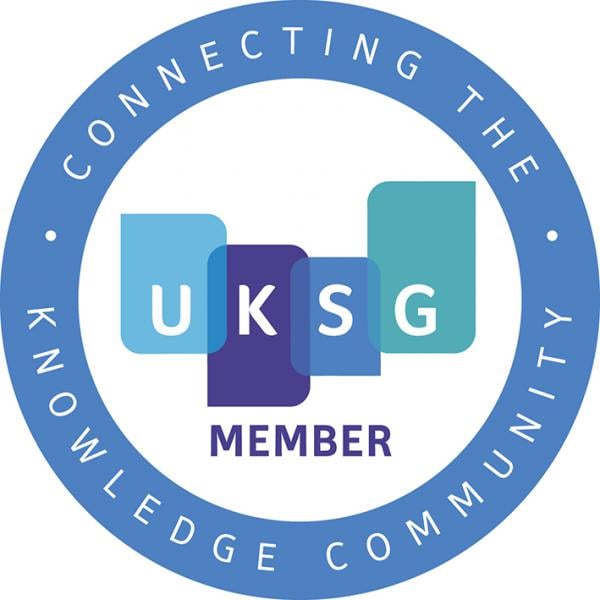
We are proud to announce that MDPI is now a member of UKSG, the UK´s largest scholarly communications community. Through UKSG, different stakeholders share their knowledge and experience in order to improve the knowledge and information environment for researchers. UKSG´s members include universities, publishers, content providers, intermediaries, and other similar organisations. Members participate in discussions and events on issues around scholarly communications.
The UKSG Annual Conference and Exhibition is a flagship initiative from the UKSG and one of the most stimulating events in the scholarly communications calendar. It is held annually and attracts a large number of delegates. More information is available at https://www.uksg.org/events/annualconference
MDPI is delighted to be a part of this active community and we look forward to making our own contribution. We will continue to support organisations and initiatives that boost collaboration and vision within scholarly communication.
More information about UKSG can be found at https://www.uksg.org/. The full membership list is available at: https://www.uksg.org/members.
1 February 2018
MDPI Signed the San Francisco Declaration on Research Assessment (DORA)

The DORA initiative addresses the need for advanced approaches in the evaluation and measurement of the quality of scientific research outputs. It is a worldwide initiative covering all scholarly disciplines. MDPI proudly joins a list of more than 400 organizations around the world which support DORA’s recommendations for improving the way the quality of research results is evaluated.
More info can be found at http://www.ascb.org/dora/
22 January 2018
Meet Us at the Experimental Biology 2018 (21–25 April 2018) in San Diego, CA, USA

MDPI will be attending the Experimental Biology 2018 annual meeting in San Diego, CA, USA from 21 to 25 April 2018, representing the following open access journals:
Antibiotics
Antioxidants
Behavioral Sciences
Bioengineering
Biology
Biomedicines
Brain Sciences
Cancers
Cells
Dentistry Journal
Diagnostics
Diseases
Epigenomes
Fermentation
Genes
High-Throughput
International Journal of Molecular Sciences (IJMS)
International Journal of Environmental Research and Public Health (IJERPH)
Journal of Clinical Medicine (JCM)
Journal of Developmental Biology (JDB)
Journal of Functional Morphology and Kinesiology (JFMK)
Metabolites
Methods and Protocols
Microorganisms
Non-Coding RNA
Nutrients
Pharmaceuticals
Pharmaceutics
Proteomes
Sports
Veterinary Sciences
Viruses
Experimental Biology is the annual meeting of five societies comprised of more than 14,000 scientists and 25 guest societies.
The areas of primary focus include anatomy; biochemistry and molecular biology; investigative pathology; nutrition; pharmacology; physiology. Attendees represent scientists from academic institutions, government agencies, non-profit organizations and industry.
Conference details:
San Diego Convention Center
San Diego CA
USA
21–25 April 2018
Do you want to learn more about MDPI open access journals? Don’t miss this opportunity to discuss them with our editors and MDPI delegates. If you are at Experimental Biology 2018, just come visit our booth for a moment to have a chat. We have some gifts for you to take home and will answer any questions that you have about the open access journal (booth # 1034).
For more information, please visit:
http://experimentalbiology.org/2018/Home.aspx
19 December 2017
Announcing the MDPI English Writing Prize
The competition is still open until end of March! Please check out the banner for more details: https://mdpi-res.com/data/english-prize.pdf
15 December 2017
UCL Press Adopts the MDPI Editorial Platform JAMS
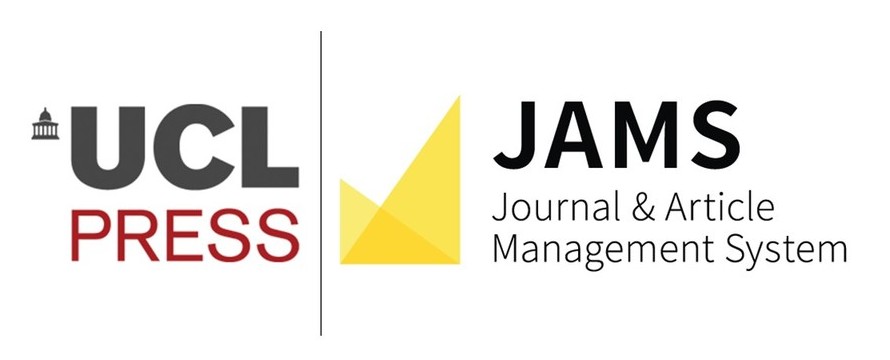
We are delighted to announce that UCL Press has adopted MDPI's Journal Article & Management System, JAMS, including production services. JAMS is a modular, integrated editorial platform for academic publishers. It offers flexibility, ease-of-use, and is a fully integrated solution for the end-to-end management of scholarly journals. JAMS is based on the software used to publish MDPI’s portfolio of journals.
Ian Caswell, UCL Press Journals Manager, says he is "excited to see UCL Press and MDPI partner together to implement the JAMS submission system for all UCL Press journals. The system offered a flexible, efficient and straightforward solution for our processes from author submission to ready for publication. I am grateful for the valuable experience and support MDPI have offered and look forward to developing our programme with an effective submission system in place.” Dr Martyn Rittman, MDPI’s Publishing Services Manager, adds, “We are proud to support one of the UK’s premier university presses in their publishing operation. This is an excellent way for us at MDPI to share our experience and knowledge, and benefit the research community beyond our own journals.”
JAMS combines services that are kept separate for many publishers. The entire editorial process, production and invoicing (e.g. for open access article processing charges) are fully integrated into a single platform. This allows for efficient, fast manuscript processing. For further information about JAMS, see https://www.mdpi.com/publishing_services.
23 November 2017
New Participants in the Institutional Open Access Program (IOAP)
We are pleased to welcome new participants to MDPI's Institutional Open Access Program (IOAP), designed to help institutions manage the transition to the Open Access publishing model. Researchers affiliated with participating universites benefit from a 10% discount on the Article Processing Charges (APC) for any paper published in an MDPI journal, while the participating library or university incurs no basic fee for participating in the program.
The IOAP set of free services, provided by MDPI to institutions that sign up, include:- No fee for participants and no obligation to prolong after the initial 12 months. The participants may withdraw from the programme at any time, and we will also keep it free for the library for as long as they continue in the programme.
- Authors affiliated with the university will receive a 10% discount on the APC.
- The institution is granted free access to the MDPI submission system and can receive free alerts of new submissions to our journals.
- By default, authors from the institution will continue to be invoiced directly unless the institution opts for central billing.
- Auto-archiving of papers into the institutions´ repository as long as it supports SWORD 1.3.
More details about the programme and a list of our current participant institutions can be found at: https://www.mdpi.com/about/ioap
Institutions which are interested to participate may do so online at: https://www.mdpi.com/ioap-form
The following North American universities have signed up to the IOAP program recently:
Connecticut College, USA
Emory University, USA
Florida International University, USA
Johns Hopkins University, USA
Mississippi State University, USA
Northeastern University, USA
Rice University, USA
University of Ontario Institute of Technology, Canada
University of Rhode Island, USA
University of Texas Southwestern Medical Center, USA
University of Toronto, Canada
University of Windsor, Canada
University of Wisconsin–Madison, USA
Wellesley College, USA
West Virginia University, USA
Many prestigious institutions from Europe and Asia have joined as well:
Asia Pacific University of Technology & Innovation, Malaysia
Czech Technical University in Prague, Czech Republic
Gdansk University of Technology, Poland
Martin-Luther-Universität Halle-Wittenberg, Germany
National Chung Hsing University, Taiwan
Newcastle University, UK
Northumbria University, UK
Southwest University, China
Technical University of Crete, Greece
University Malaya, Malaysia
University of Antwerp, Belgium
University of Cyprus, Cyprus
University of Manchester, UK
University of Reading, UK
University of Sussex, UK
University of Warwick, UK
West Pomeranian University of Technology Szczecin, Poland
We offer a warm welcome to the new participants!
10 November 2017
Available Journal Awards at MDPI
In order to reward the academic community, especially young researchers, and enhance communication among scientists, MDPI journals regularly offer various awards to researchers in specific fields, for example, Young Investigator Awards, Travel Awards, Best Paper Awards, and Best Poster Awards, etc. The awardees range from PhD students to junior scientists.
Currently, the following 44 awards given by MDPI journals are accepting applications. Please click on the award title below to check whether you are eligible for it and start the application process.
|
Subject |
Journal |
Award |
Intended Awardee |
|
Biology & Life Sciences |
Animals |
PhD students or postdoctoral researchers |
|
|
Antioxidants |
Postdoctoral researchers or PhD students |
||
|
Biology |
PhD or postdoctoral fellows |
||
|
Forests |
Postdocs or PhD students |
||
|
International Journal of Molecular Sciences (IJMS) |
Ground-breaking contribution in the fields of Molecular Biology, and Molecular Pathology |
||
|
Journal of Fungi (JoF) |
Travel Awards 2018 |
PhD graduate students, and postdoctoral fellows |
|
|
Life |
Travel Award 2018 |
PhD students or postdoctoral fellows |
|
|
Metabolites |
PhD students |
||
|
Pharmaceuticals |
PhD students |
||
|
Toxins |
Postdoctoral fellows |
||
|
Viruses |
Viruses 2018 participants |
||
|
Viruses |
Viruses 2018 participants |
||
|
Water |
2018 Young Investigator Award |
Young investigators |
|
|
Chemistry & Materials Science |
Biomimetics
|
Graduate Student or Postdoctoral Trainee / Research Associate |
|
|
Catalysts |
PhD students |
||
|
Chemosensors |
PhD or postdoctoral fellows |
||
|
Entropy |
Young investigators |
||
|
Fibers |
2018 Travel award |
Postdocs or PhD students |
|
|
Magnetochemistry |
Postdocs |
||
|
Materials |
PhD or postdoctoral fellows |
||
|
Metals |
PhD or postdoctoral fellows |
||
|
Minerals |
PhD or postdoctoral fellows |
||
|
Sensors |
Travel Award 2018 |
PhD or postdoctoral fellows |
|
|
Sensors |
Sensors' reviewers in 2017 |
||
|
Sensors |
Young investigators |
||
|
Technologies |
PhD students |
||
|
Computer Science & Mathematics |
Multimodal Technologies and Interaction (MTI) |
Postdoctoral researchers or PhD students |
|
|
ISPRS International Journal of Geo-Information(IJGI) |
Postdocs |
||
|
Journal of Sensor and Actuator Networks (JSAN) |
Postdoctoral fellows and PhD students |
||
|
Journal of Imaging |
Postdoctoral fellows and PhD students |
||
|
Engineering |
Actuators |
PhD or postdoctoral fellows |
|
|
Remote Sensing |
Authors |
||
|
Machines |
PhD or postdoctoral fellows |
||
|
Micromachines |
PhD or postdoctoral fellows |
||
|
Fluids |
Postdoctoral fellows and PhD students |
||
|
ChemEngineering |
Postdoctoral researchers and PhD students |
||
|
Environmental & Earth Sciences |
Diversity |
Travel Awards 2018 |
Postdoctoral fellows |
|
International Journal of Environmental Research and Public Health (IJERPH) |
Authors who submit from 1 Nov 2017 to 31 Oct 2018 |
||
|
Resources |
Postdocs or PhD students |
||
|
Geosciences |
Postdoctoral fellows and PhD students |
||
|
Physical Sciences & Astronomy |
Galaxies |
Ph.D. students, postdoctoral fellows, or lecturers in cosmology or galaxies physics |
|
|
Applied Science |
Postdocs |
||
|
Medicine & Pharmacology; Public Health & Healthcare |
Journal of Clinical Medicine (JCM) |
PhD or postdoctoral fellows |
|
|
Medicines |
Postdocs |
7 November 2017
MDPI has signed the Jussieu Call for Open Science and Bibliodiversity
The Jussieu Call aims to develop and implement alternative models to meet the aims of open science while promoting bibliodiversity. In particular it wishes to promote new business models for funding open access publication. It was drafted on the Jussieu campus in Paris by a group of French researchers and scientific publishing professionals.
MDPI supports scholarly communities and initiatives that innovate and further promote Open Access publishing. There is a need to explore different frameworks to fund open access in ways that ensure that excessive funds are not diverted from research towards publishing. Many fair funding models already exist, and they can be further developed and extended. These include institutional support, library contributions or subsidies, premium services, participatory funding, etc. For this reason, MDPI has signed up to the Jussieu call and welcomes its aims.
More information can be found at http://jussieucall.org/ (archived here)
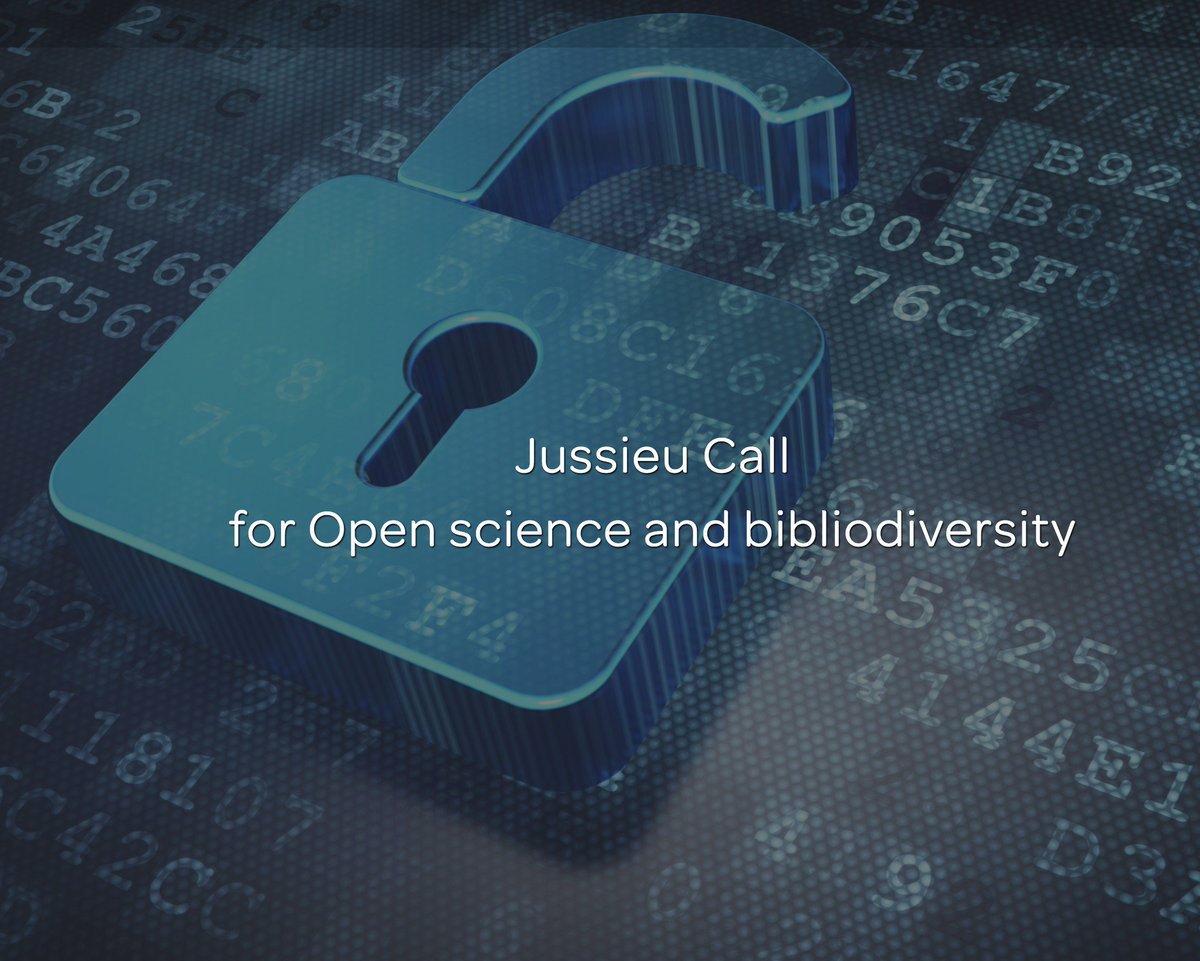
6 October 2017
Dr. Franck Vazquez, MDPI CEO, Interviewed by Scholarly Kitchen
The Society for Scholarly Publishing’s popular blog about topics in academic publishing, Scholarly Kitchen, recently interviewed MDPI’s CEO, Dr. Franck Vazquez. He shared some thoughts and information on the past and future of MDPI and open access publishing in general:
“In the long run, we aim to anchor MDPI in research communities. We recently developed and launched the preprint platform Preprints, revamped our free-to-use conference hosting platform Sciforum, and are working on other projects, such as Scilit, our bibliographic database.”
Read the full interview here.
29 September 2017
Bioengineering | Diseases | Medicines — Now Available in PubMed and PubMed Central
25 September 2017
Meet Us at the ICONAN 2017 Conference in Barcelona
We will attend the International Conference On Nanomedicine And Nanobiotechnology (ICONAN 2017) that will be held in Barcelona, Spain, 25–27 September 2017, representing our open access journals at the interface of nanotechnology, medicine and biology:
Bioengineering
Biomedicines
Biomimetics
Biomolecules
Journal of Functional Biomaterials
Journal of Personalized Medicine
High-Throughput
Medical Sciences
Scientia Pharmaceutica
Please stop by our booth to chat with our delegates about our journals. They will answer any questions about open access publishing and our journals. We look forward to meeting you in Barcelona!
For more information on the conference, please visit:
http://premc.org/conferences/iconan-nanomedicine-nanobiotechnology/
19 September 2017
Meet Us at the 2017 MRS Fall Meeting in Boston
We will be attending the 2017 MRS Fall Meeting which will be held in Boston, Massachusetts, from November 26–December 1, 2017, and representing the following open access journals:
Materials
Nanomaterials
Energies
Metals
Applied Sciences
Crystals
Minerals
Journal of Functional Biomaterials
Coatings
Robotics
Biosensors
Chemosensors
Polymers
Bioengineering
Please come along to our booth (booth number: #122) to chat with our delegates about our journals and hear about our travel awards offered to Postdocs and PhD students. Our delegates will also answer any questions about online publishing and our journals. We look forward to meeting you in person in Boston!
For more information on the conference, please visit:
www.mrs.org/fall2017
19 September 2017
A Warm Welcome to the New IOAP Participants
We are delighted to have welcomed 24 new participants to our Institutional Open Access Programme (IOAP) since the beginning of September this year. These are University libraries and Research Institutions located around the world; from the USA and Canada to the UK, and from Norway and Spain to Greece. Well respected Universities, such as the University of Denver, the University of Colorado Boulder, and the University of Arizona in the US, have signed up, while their researchers can now benefit from a 10% discount on the Article Processing Charges (APC) for any papers they publish in MDPI journals, at no cost for the library or the University.
We are more than happy to see the Open Access movement growing stronger and wider every day and we appreciate the vital role which librarians, repository managers, and other scholarly communications professionals play in the field. Our communication with and service to this community is, therefore, one of our principal priorities. The IOAP is our way to support academic and scientific Institutions as well as their scholars in managing, administrating, and publishing research in an Open Access world.
The IOAP set of free services, provided by MDPI to institutions that sign up, include:
- No fee for participants and no obligation to prolong after the initial 12 months. The participants may withdraw from the programme at any time, and we will also keep it free for the library for as long as they continue in the programme.
- Authors affiliated with the university will receive a discount on the article processing charge (APC).
- The institution is granted free access to the MDPI submission system and can receive free alerts of new submissions to our journals.
- By default, authors from the institution will continue to be invoiced directly unless the institution opts for central billing.
- Auto-archiving of papers into the institutions´ repository as long as it supports SWORD 1.3.
More details about the programme and a list of our current participant institutions can be found at: https://www.mdpi.com/about/ioap
Institutions which are interested to participate may do so online at: https://www.mdpi.com/ioap-form
The full list of the Institutions that signed up in September is as follows:
- University of Denver, USA
- University of Colorado Boulder, USA
- University of Arizona, USA
- Institute of Metrology of Bosnia and Herzegovina, Bosnia and Herzegovina
- Middlebury College, USA
- Touro College, USA
- University of New Orleans, USA
- University of Leicester, UK
- Indiana University-Purdue University Indianapolis, USA
- University of Strathclyde, UK
- Cranfield University, UK
- Hope College, USA
- Oregon State University, USA
- Drew University, USA
- Swansea University, UK
- University of South Florida, USA
- University of Georgia, USA
- Arizona State University, USA
- University of Southern Mississippi, USA
- Université du Québec à Chicoutimi, Canada
- Grinnell College, USA
- Norwegian University of Science and Technology, Norway
- University of Patras, Greece
- Public University of Navarre, Spain
23 June 2017
Congratulations for Publishing the 100,000th Peer-Reviewed Article
Congratulations to the authors Javier Monroy and Javier Gonzalez-Jimenez from Universidad de Malaga, Spain, Victor Hernandez-Bennets, Han Fan and Achim Lilienthal from Örebro University, Sweden for publishing the 100,000th peer-reviewed article.
The article is published in the Chemical Sensors section of Sensors.
GADEN: A 3D Gas Dispersion Simulator for Mobile Robot Olfaction in Realistic Environments
Evermore pressing environmental concerns have led global actors and decision-makers to search for stricter emission monitoring approaches. As part of novel monitoring systems, robots with gas and environmental sensors are a promising solution. However, validation of such robotic inspectors is expensive, time consuming, and plagued by repeatability issues. In this article, we present GADEN (the short form for Gas Dispersion Simulator for Mobile Robot Olfaction in Realistic Environments), which combines gas dispersion and robotics simulation in a common framework. Developed under the widely used Robot Operating System (ROS), GADEN enables validation of sensing strategies with gas dispersion being simulated using computational fluid dynamics and filament dispersion theory. GADEN allows simulating complex, realistic, 3D environments for reproducible testing of robotic gas sensing algorithms. Through qualitative and quantitative evaluations, we show that GADEN is a versatile and user-friendly evaluation tool and emphasize its enormous potential for the mobile robot olfaction community.
Read the full article here: https://www.mdpi.com/1424-8220/17/7/1479/htm
6 June 2017
CiteScore™ Metrics Released for Scopus Journals
The CiteScore, the new citation metric for journals covered in the Scopus® database, was released on 1 June 2017, reflecting the citation activity in 2016 for articles published during the three previous years. Please note that the list below does not contain all MDPI journals covered in Scopus. For the CiteScore to serve as a reliable metric at least three volumes of articles need to be indexed in Scopus; journals which have not met this criterion have been omitted here.
Ten MDPI journals received a CiteScore which is in the Top 10% of scores in at least one of the categories, while a further 21 journals exhibit scores that are in the first quartile of the respective categories.
CiteScore Data for MDPI Journals
| Journal | Rank | Category | Link | CiteScore 2016 | 2015 |
2014 |
| Algorithms | 44/112 (Q2) 49/111 (Q2) 19/42 (Q2) 52/113 (Q2) |
• Numerical Analysis • Computational Mathematics • Computational Theory and Mathematics • Theoretical Computer Science |
Link | 1.15 | 1.07 | 1.06 |
| Animals | 69/343 (Q1) 21/146 (Q1) |
• Animal Science and Zoology • General Veterinary |
Link | 1.46 | 1.66 | 0.74 |
| Biology | 13/92 (Q1) 34/81 (Q1) 10/75 (Q1) |
• General Agricultural and Biological Sciences • General Biochemistry, Gene- tics and Molecular Biology • General Immunology and Microbiology |
Link | 3.02 | 2.78 | 1.74 |
| Biomolecules | 234/382 (Q3) 260/353 (Q3) |
• Biochemistry • Molecular Biology |
Link | 1.67 | 3.08 | 1.00 |
| Biosensors | 36/118 (Q2) 209/2156 (Q1) |
• Clinical Biochemistry • General Medicine |
Link | 2.83 | 2.37 | 2.04 |
| Cancers | 29/196 (Q1) 27/321 (Q1) |
• Cancer Research • Oncology |
Link | 5.02 | 4.07 | 2.31 |
| Catalysts | 18/44 (Q2) 27/144 (Q1) |
• Catalysis • Physical and Theoretical Chemistry |
Link | 3.44 | 3.45 | 2.17 |
| Crystals | 70/270 (Q2) 25/64 (Q2) 118/398 (Q2) 131/424 (Q2) |
• General Chemical Engineering • Inorganic Chemistry • Condensed Matter Physics • General Materials Science |
Link | 1.89 | 1.47 | 1.03 |
| Diversity | 10/41 (Q1) 9/25 (Q2) 76/291 (Q2) 24/109 (Q1) |
• Agricultural and Biological Sciences (miscellaneous) • Ecological Modelling • Ecology • Nature and Landscape Conservation |
Link | 2.03 | 1.96 | 1.82 |
| Energies | - | - | Link | 2.50 | 2.87 | 2.66 |
| Entropy | 51/198 (Q2) | • General Physics and Astronomy | Link | 1.87 | 1.99 | 1.69 |
| Forests | 17/127 (Q1) | • Forestry | Link | 2.06 | 1.76 | 1.84 |
| Games | 204/398 (Q3) 83/181 (Q2) 48/105 (Q2) |
• Applied Mathematics • Statistics and Probability • Statistics, Probability and Uncertainty |
Link | 0.87 | 0.57 | 0.64 |
| Genes | 62/300 (Q1) 18/90 (Q1) |
• Genetics • Genetics (clinical) |
Link | 3.62 | 3.18 | 1.33 |
| Geosciences | 36/169 (Q1) |
• General Earth and Planetary Sciences | Link | 1.67 | 1.29 | 1.13 |
| Information | 156/237 (Q3) | • Information Systems | Link | 0.78 | 0.94 | 0.74 |
| Insects | 28/131 (Q1) | • Insect Science | Link | 1.81 | 1.38 | 1.23 |
| International Journal of Environmental Research and Public Health (IJERPH) | 67/446 (Q1) 31/102 (Q2) |
• Public Health, Environmental and Occupational Health • Health, Toxicology and Mutagenesis |
Link | 2.38 | 2.42 | 2.47 |
| International Journal of Molecular Sciences (IJMS) | 23/157 (Q1) 8/64 (Q1) 90/353 (Q1) 22/144 (Q1) 16/44 (Q1) 8/62 (Q1) |
• Organic Chemistry • Inorganic Chemistry • Molecular Biology • Physical and Theoretical Chemistry • Catalysis • Spectroscopy |
Link | 3.73 | 3.37 | 3.06 |
| ISPRS International Journal of Geo-Information | 12/29 (Q2) 28/79 (Q2) 96/587 (Q1) |
• Computers in Earth Sciences • Earth and Planetary Sciences (miscellaneous) • Geography, Planning and Development |
Link | 1.62 | 1.52 | - |
| Journal of Low Power Electronic Applications (JLPEA) | 301/645 (Q2) | • Electrical and Electronic Engineering | Link | 0.98 | 0.83 | 0.83 |
| Life | 65/525 (Q1) 36/186 (Q1) 5/92 (Q1) 20/80 (Q2) |
• Ecology, Evolution, Behavior and Systematics • General Biochemistry, Gene- tics and Molecular Biology • Palaeontology • Space and Planetary Science |
Link | 2.95 | 1.68 | 1.20 |
| Marine Drugs | 18/145 (Q1) | • Drug Discovery | Link | 3.83 | 3.66 | 3.59 |
| Materials | 63/424 (Q1) | • General Materials Science | Link | 3.26 | 3.11 | 2.69 |
| Membranes | 103/424 (Q1) | • Materials Science | Link | 2.19 | 2.95 | 2.42 |
| Micromachines | 173/645 (Q2) 69/211 (Q2) 113/526 (Q1) |
• Electrical and Electronic Engineering • Control and Systems Engineering • Mechanical Engineering |
Link | 1.83 | 1.78 | 2.10 |
| Minerals | 45/206 (Q1) 29/167 (Q1) |
• Geology • Geotechnical Engineering and Engineering Geology |
Link | 2.13 | 1.77 | - |
| Molecules | 32/157 (Q1) | • Organic Chemistry | Link | 3.09 | 2.65 | 2.62 |
| Nutrients | 12/247 (Q1) | • Food Science | Link | 4.29 | 4.07 | 3.78 |
| Pharmaceuticals | 8/168 (Q1) 21/158 (Q1) |
• Pharmaceutical Science • Molecular Medicine |
Link | 4.90 | 3.64 | 1.92 |
| Pharmaceutics | 19/168 (Q1) | • Pharmaceutical Science | Link | 3.83 | 2.68 | 2.46 |
| Polymers | 13/138 (Q1) 44/354 (Q1) |
• Polymers and Plastics • General Chemistry |
Link | 3.74 | 3.37 | 4.10 |
| Remote Sensing | 13/169 (Q1) | • General Earth and Planetary Sciences | Link | 3.56 | 3.76 | 3.23 |
| Sensors | 25/96 (Q2) 25/159 (Q1) 124/382 (Q2) 103/645 (Q1) |
• Analytical Chemistry • Atomic and Molecular Physics, and Optics • Biochemistry • Electrical and Electronic Engineering |
Link | 2.78 | 2.21 | 2.40 |
| Sustainability | 49/129 (Q2) 68/587 (Q1) 56/236 (Q1) |
• Renewable Energy, Sustai-nability and the Environment • Geography, Planning and Development • Management, Monitoring, Policy and Law |
Link | 1.96 | 1.78 | 1.52 |
| Symmetry | 17/42 (Q2) 49/111 (Q2) |
• Numerical Analysis • Computational Mathematics |
Link | 1.12 | 0.95 | 1.02 |
| Toxins | 16/102 (Q1) 16/108 (Q1) |
• Health, Toxicology and Mutagenesis • Toxicology |
Link | 3.34 | 3.76 | 2.85 |
| Vaccines | 146/184 (Q4) 151/250 (Q3) 93/145 (Q3) 186/299 (Q3) 130/232 (Q3) |
• Immunology • Infectious Diseases • Drug Discovery • Pharmacology • Pharmacology (medical) |
Link | 1.23 | 3.76 | 2.85 |
| Viruses | 15/68 (Q1) 34/250 (Q1) |
• Virology • Infectious Diseases |
Link | 3.60 | 3.74 | 3.80 |
| Water | 33/184 (Q1) 48/195 (Q1) 62/587 (Q1) 198/382 (Q3) |
• Water Science and Technology • Aquatic Science • Geography, Planning and Development • Biochemistry |
Link | 2.05 | 1.96 | 1.45 |
17 May 2017
Three New Institutional Memberships Established
We are pleased to announce that the Goethe University of Frankfurt, the Technical University of Hamburg (TU Hamburg-Harburg), as well as the Humboldt University of Berlin, in Germany, have joined MDPI's institutional membership program: Primary authors from these instititions will benefit from a 10% discount on the article processing charges.
Additional details can be found on our institutional membership page.
4 May 2017
MDPI Supports the Initiative for Open Citations (I4OC)
As an open access publisher, we are keen to support openness and transparency in the research process. Citation data is very important for assessing the value of individual papers and the contribution of researchers. As such, we support the recently launched Initiative for Open Citations (I4OC). The initiative recognizes that citations should be freely available and machine-readable. By doing so, authors gain the maximum benefit from having their work cited.
MDPI now uploads citation data with metadata uploaded to Crossref when registering digital object identifiers (DOIs) for published papers. We are delighted to take this step to support a truly open research environment.
2 May 2017
Publons Peer Review Academy Goes Live
Getting high quality review reports is critical for any journal’s editorial process. At MDPI we have put in place several measures to motivate reviewers and reward them for their work. We are proud of the quality of reviewer reports we receive and grateful for the hours put in by active researchers from across the globe.
Reviewers of MDPI’s largest journals can get recognition via Publons, a website dedicated to rewarding peer reviewers. They have now taken this one step further and launched the Publons Reviewer Academy to help train reviewers to provide useful feedback. Through the academy, researchers can be trained and tutored in various aspects of how to provide structured feedback that will be of genuine help to editors and authors. We support this initiative and recommend it to potential MDPI reviewers, especially early career researchers. See the Publons announcement for further information.
More information on reviewing for MDPI, including how to volunteer as a reviewer, can be found here.
24 April 2017
Two New Institutional Memberships Established
We are pleased to announce that the following universities have joined MDPI's institutional membership program: Trinity University, San Antonio, Texas, USA and the University of New South Wales (UNSW), Sydney, Australia. Primary authors from these instititions will benefit from a 10% discount on the article processing charges.
Additional details can be found on our institutional membership page.
30 March 2017
Credit for Preprints Comments via Publons
Preprints.org is a platform run by MDPI that allows authors to make early versions of manuscripts available before peer review has been completed.
One of the major benefits of putting a preprint online is to get feedback before journal submission. Until now, however, the feedback has been on a voluntary basis. Preprints is delighted to be the first preprint server to collaborate with Publons to acknowledge substantial comments as reviews and give commentators the opportunity to receive credit for their efforts.
When you add a comment to any article, there is a check box to click for it to appear on Publons. If you have already linked your account it will be passed on automatically. If you don't already have a Publons account, you will be contacted soon afterwards with instructions on how to create one.
We appreciate the enthusiasm and cooperation of Publons in this project and expect it to be of great benefit to authors and commenters alike.
20 March 2017
MDPI 2016 Annual Report Released
We are pleased to announce that our annual report for the year 2016 has now been published.
It contains information regarding company and journal performance, conferences and other publishing services that we provided throughout 2016.
To read the report in full or download a copy, please click here.
15 March 2017
Our 100,000th Article Could be Yours!
After the 20th anniversary of MDPI in 2016, we will reach another milestone this year and will publish the 100,000th peer-reviewed article in one of our 170+ open access journals.
We would like you to be part of this great achievement and so are offering to publish the 100,000th accepted paper free of charge.
To be in with a chance, select a journal in one of our 10 scientific subject areas and submit your paper.
Access the live tracker on published articles here.
![]()
3 March 2017
1000 Preprints Online
We are delighted that Preprints now has 1000 papers online since its launch on 3 May 2016.
For more information, see the editorial here.
9 February 2017
Minister and State Secretaries Visit MDPI Office at STP, Belgrade, Serbia
Earlier this week the Science Technology Park in Belgrade, Serbia was visited by Swiss Secretary of State Dr. Mauro Dell’Ambrogio, as well as Serbian Minister of Public Administration and Local Self-Government Ana Brnabic, State Secretary Dr. Vladimir Popovic and Mayor of Belgrade Mr. Siniša Mali.
During the visit to the STP they had a short presentation from MDPI’s CEO Dr. Franck Vazquez and IT Manager Mr. Miloš Čučulović, and further discussed important issues such as Open Access and Open education. Dr. Dell'Ambrogio said he was impressed with the potential for development and ideas for business.
For more information please see:
http://bit.ly/2kpIu7k and http://bit.ly/2kpUQfz
7 February 2017
The 6th World Sustainability Forum: Final Press Release
Basel, 29 January 2017
The 6th World Sustainability Forum #WSF2017SA: African universities critical to achieving the Sustainable Development Goals
Jeffrey and Sonia Sachs win first World Sustainability Award.
Universities need to take the lead in solving the greatest challenges the world faces today, particularly in Africa. They need to do this not only through education – teaching the next generation to think critically and creatively to find sustainable solutions – but also through research that cuts across a range of disciplines. To ensure these solutions are implemented, they need to partner with the private sector and with government.
This was the key message from the 6th World Sustainability Forum (WSF2017), which took place in Cape Town on 27 and 28 January 2017. Sponsored by MDPI and the journal Sustainability under the patronage of the Universities of the Western Cape (UWC), Cape Town (UCT), University of Basel and the National Research Foundation (NRF) of South Africa, the conference was attended by key national and international speakers, including world-leading economist Professor Jeffrey D. Sachs, senior United Nations (UN) advisor and director of the Earth Institute at Columbia University.
The WSF is an annual sustainability conference which addresses research in a range of areas related to sustainable development and sustainability globally. This was the first WSF to take place on the African continent. Discussions at the 2017 conference were driven by the 17 sustainable development goals (SDGs) adopted as part of the 2030 Agenda for Sustainable Development by the UN in September 2015.
Achieving the SDGs “is the moonshot for our generation,” said Sachs. “Like the moonshot [moon landing] of the 1960s, these are tough, bold and achievable objectives.”
“This is a nasty, tough world we live in, and our world agrees on very little. So when 193 governments agree on something, that is important. And when they agree on something as important as sustainable development, that is really something for us to grab hold of – that is a lifeline.”
There was agreement at the WSF that the SDGs are particularly important for Africa, and that African universities in particular have a role to play in achieving them.
Said Professor Tyrone Pretorius, vice-chancellor of UWC: “The quest for sustainable development can only be met through education. Universities today are the oil that fuels the knowledge economy.”
As part of the drive to develop academic capacity to provide the knowledge needed to meet the SDGs, WSF2017 was preceded by the 1st Postgraduate Forum on Sustainability. “A series of workshops for postgraduate education linked to WSF are important, in order to equip postgraduates with the skills necessary to promote sustainability,” said Professor Thandi Mgwebi, director for research at UWC. A second postgraduate forum will take place alongside the WSF2018 in Beijing.
This capacity development is particularly critical to Africa. Said Sachs: “African universities need to do research to find solutions to Africa’s development challenges, because no other university will.”
The UN set a target of achieving the SDGs by 2030: “I regard this as the breakthrough period to end extreme poverty on the continent,” said Sachs, “and for Africa to become one of the most dynamic centres of the world economy.”
It is a critical time for South African universities, said Professor Mamokgethi Phakeng, deputy vice-chancellor for research and internationalisation at UCT: “Higher education is at a crossroads, and there is much polarisation. We need to think carefully about how this sustainable development agenda is owned by all so that it is inclusionary.”
There was also strong emphasis on public–private partnerships – for universities, business and government to work together to achieve the goals.
Said Professor Francis Petersen, deputy vice-chancellor at UCT and vice-chancellor designate at the University of the Free State: “Business sustainability has become critical, because there is increasing demand and complexity of demand on business from the natural, social and economic environment. Sustainability cannot be a standalone issue, divorced from business as usual. Sustainability needs to be embedded into business.”
Environmental crises and climate change was also high on the WSF agenda. In his keynote address, Sachs noted the irreversibility of the climate- and environmental-related challenges.
“If we don’t get our act together, we lose the chance of safety,” he said.
Said Professor Mark New, pro vice-chancellor and director of the African Climate and Development Initiative at UCT: “We have a fundamental challenge in responding to climate change, and we must go further than just putting a plaster on a wound. We need to address the deep structural issues, to move from our current model of development into climate-compatible development.”
“This requires researchers to find the evidence for the correct development pathways to take, and then support the ability of policymakers at all levels to enable the shift to climate-compatible development planning.”
Said Dr. Aldo Stroebel, executive director of international relations and cooperation at the NRF, in closing: “We have seen over the past two days an urgency towards the next step of thinking, that critical type of framework that we all must engage with, not only from an academic perspective, but further up into the policy environment and into rural-based environments where one can clearly see the links and effectiveness of the work.”
World Sustainability Awards
The first World Sustainability Award and the first Emerging Sustainability Leader Awards were presented by Prof. Thandi Mgwebi, Director of Research at UWC, and Dr. Franck Vazquez, CEO of MDPI, during the ceremony on 27 January 2017 as part of the gala dinner of the 6th World Sustainability Forum in South Africa.after day one of proceedings of the 2017 World Sustainability Forum South Africa.
Professor Jeffrey D. Sachs and Dr. Sonia Ehrlich Sachs are the joint recipients of the first World Sustainability Award. Jeffrey Sachs is a world-renowned economist and senior United Nations (UN) advisor and director of the Earth Institute at Columbia University. Sonia Sachs is a paediatrician and public health specialist, and director of the Health Centre at the Centre for Sustainable Development, also at Columbia University.
The joint recipients of the first Emerging Sustainability Leader Award are Dr. Esther Ngumbi and Dr. Xiaosong Hu. Esther Ngumbi is a postdoctoral researcher at Auburn University in Alabama USA and serves as a 2015 Clinton Global University Mentor for agriculture. Xiaosong Hu is a professor at the Chongqing University in China and specialises in automotive control systems and mechanical engineering.
The World Sustainability Award and the Emerging Sustainability Leader Awards are funded to encourage new initiatives and developments in sustainability with the ultimate aim of fostering the transition to sustainable practices and societies.
The World Sustainability Award is funded by the MDPI Sustainability Foundation, and included a monetary prize of USD 100,000 to Jeffrey and Sonia Sachs. The Emerging Sustainability Leader Award is funded by the journal Sustainability, awarded to researchers under 40, and included a monetary prize of USD10,000.
Issued jointly by: UCT Global Strategy and Visibility, Research Office, UWC Communications & Media and MDPI AG
Conference photos are free available at: https://sciforum.net/conference/wsf-6/page/175 Photo credit: Matthias Burkhalter
|
Carla Bernardo |
Luthando Tyhalibongo |
Matthias Burkhalter |
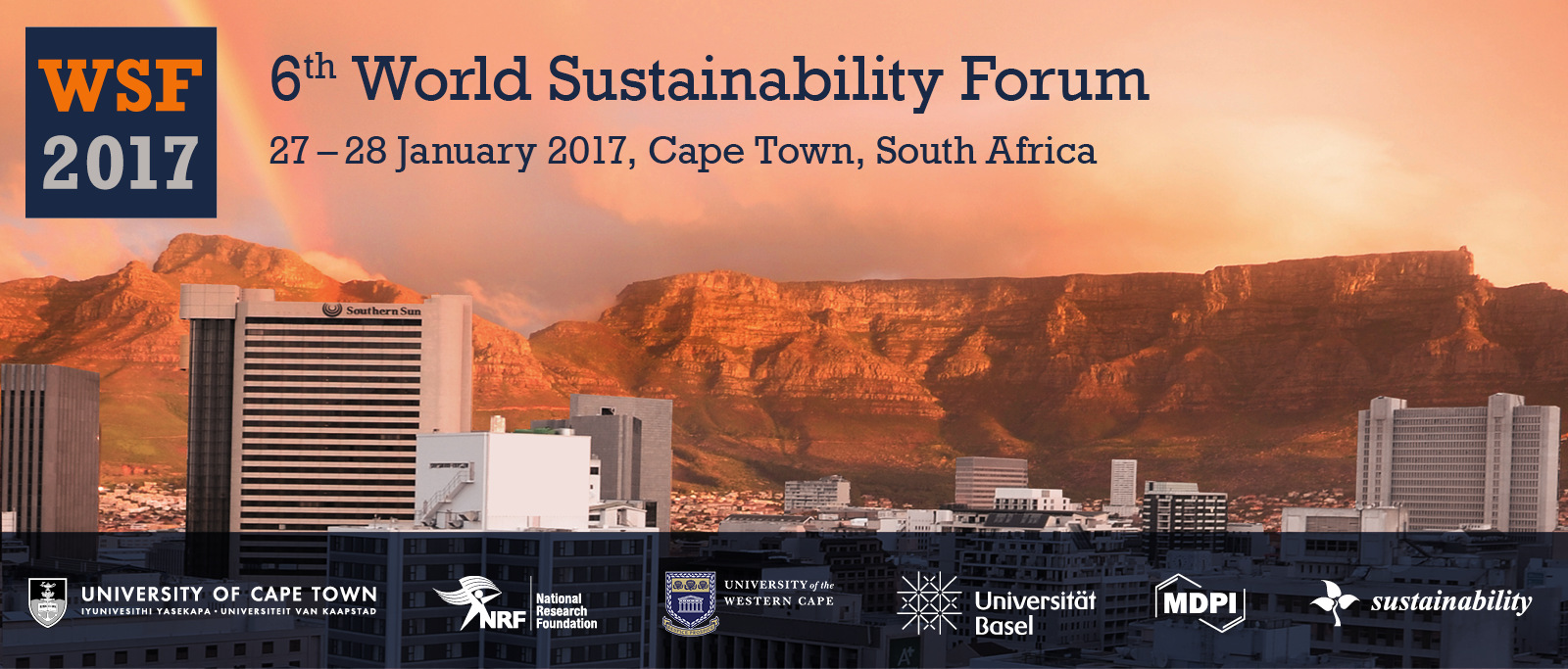
31 January 2017
Three New Institutional Memberships Established
We are pleased to announce that the Chalmers University of Technology, Sweden, the University of Manitoba, Canada and the Technical University of Cartagena, Spain, have joined MDPI's institutional membership program: Primary authors from these institutions will benefit from a 10% discount on the article processing charges.
Additional details can be found on our institutional membership page.
27 January 2017
6th World Sustainability Forum under way in South Africa
The 6th World Sustainability Forum is currently being held at the Cape Sun Hotel until 28 January 2017.
The Forum will showcase the work of internationally renowned researchers and include more than 150 presentations. During the conference dinner, the World Sustainability Award, associated with a US$ 100,000 prize, will be announced, as well as the Emerging Sustainability Leader Award, associated with a US$ 10,000 prize. The prizes are sponsored by the MDPI Sustainability Foundation and Sustainability, an academic open access journal by MDPI.
Here are some pictures from the forum so far:
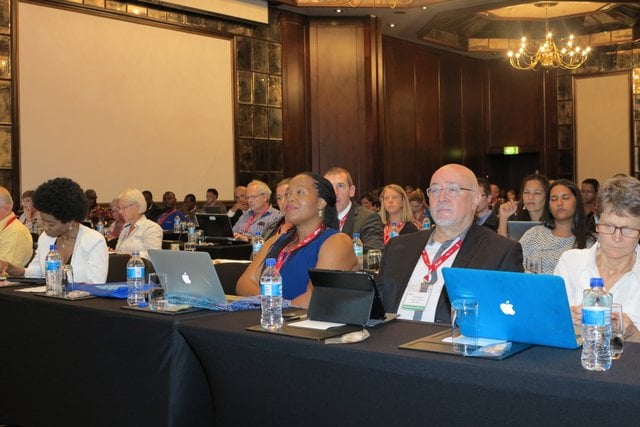
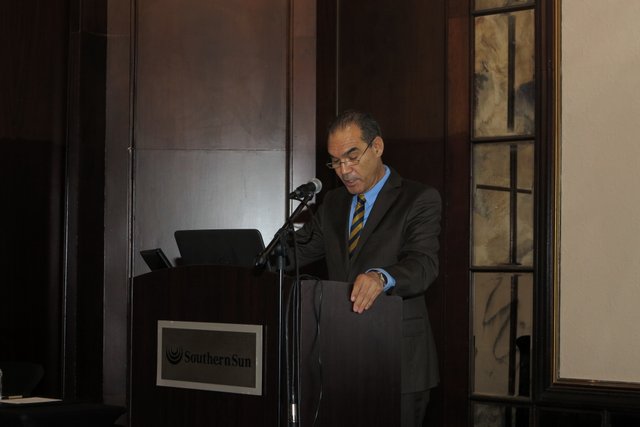
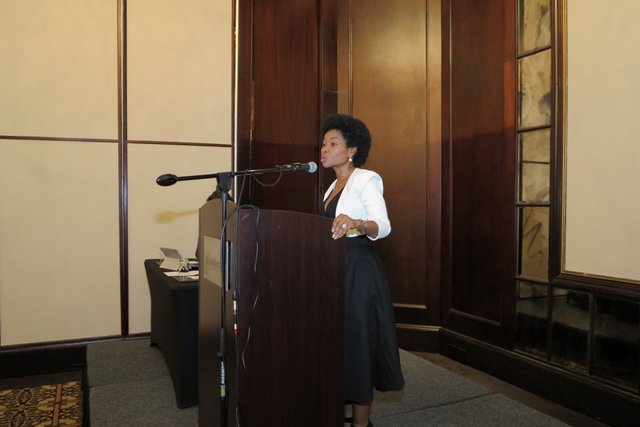
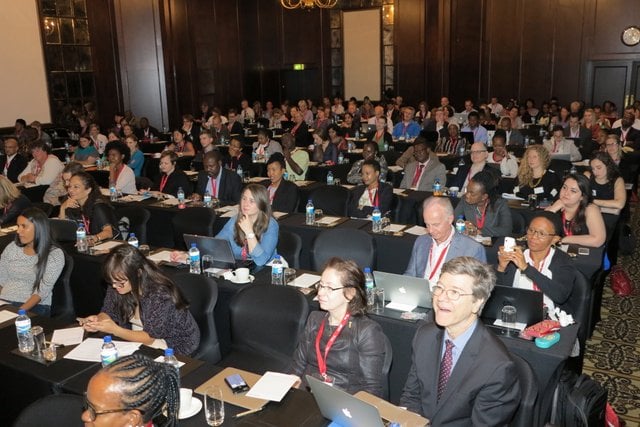
To see the full WSF2017 program and schedule, please see here: https://sciforum.net/conference/wsf-6/page/schedule
19 January 2017
Cape Town to Host the 6th World Sustainability Forum
Cape Town will host the 6th World Sustainability Forum at the Cape Sun Hotel on 27 and 28 January 2017. This prominent event, held for the first time in Africa, will include many illustrious South African and international experts, such as Her Excellency Graça Machel (Sustainable Development Advocate for the United Nations, Mozambique), Joyene Isaacs (HoD Agriculture Western Cape Government), Jeffrey Sachs (Columbia University, USA), Max Bergman (SRaM, University of Basel), Mark New (Pro Vice-Chancellor, University of Cape Town), Frans Swanepoel (FutureAfrica, University of Pretoria) and Francis Petersen (Vice-Chancellor-designate, University of the Free State). The Forum will provide a stage for national and international debates on sustainability in South Africa, the African continent, and about international perspectives on sustainability. It brings together researchers and representatives from government and the business sector to discuss a wide-ranging set of issues associated with sustainability, including food security, water and energy scarcity, mining, poverty reduction, climate change, and urbanisation.
The next few decades will be marked by profound changes in the relationships between global economics, national societies, and the environment. We have entered what some call the Anthropocene, an age in which human activity dominates the climate and the environment. These changes will have numerous consequences on societies around the globe. South Africa and Africa will play a central role, for better or worse, in creating opportunities and risks during these changing times as Africa is profoundly influencing and being influenced by global developments.
The adoption of the 17 United Nations Sustainable Development Goals and the 2030 Agenda for Sustainable Development in September 2015 was accompanied by what insiders considered an optimism they have not experienced in relation to UN resolutions before. The relative efficiency in the drafting, the lack of trenches between East and West, or between North and South, and the unanimity of support of the 193 countries speak volumes. In stark contrast, sustainability seems to go against a changing economic and political tide, where waves of nationalism and protectionism from some of the most powerful countries risk the wellbeing of the rest of the world. The 6th World Sustainability Forum will enable fruitful exchanges, which sensitise South African and international communities to the global urgency and specifics of sustainability.
The Forum will showcase the work of internationally renowned researchers and include more than 150 presentations. During the conference dinner, the World Sustainability Award, associated with a US$ 100 000 prize, will be announced, as well as the Emerging Sustainability Leader Award, associated with a US$ 10 000 prize. The prizes are sponsored by the MDPI Sustainability Foundation and Sustainability, an academic open access journal by MDPI. The World Sustainability Forum is preceded by the Postgraduate Forum on Sustainability, which will introduce more than 100 young scholars from South Africa and the African continent to sustainability research. Both events are organized and sponsored by the University of Cape Town, the University of the Western Cape, the University of Basel, MDPI, and by the National Research Foundation of South Africa.
Contacts:
Scientific Matters: Prof Manfred Max Bergman, Social Research and Methodology Group (SRaM), University of Basel, Switzerland; Email: max.bergman@unibas.ch
Press Accreditation and General Enquiries: Mr Matthias Burkhalter, MDPI AG, Basel, Switzerland; Email: burkhalter@mdpi.com; Tel. +41 61 683 77 34
Follow us on Twitter
#WSF2017SA
6 January 2017
MDPI Supports the OA2020 Initiative
MDPI is now a proud supporter of the OA2020 Initiative.
Open Access 2020 is an international initiative that aims to induce the swift, smooth and scholarly-oriented transformation of today’s scholarly journals from subscription to open access publishing.
MDPI is participating in the upcoming Berlin13 conference in March 2017, where we are contributing to the initiative by aiding in the design of the roadmap which will make OA the default publishing model.
For more information please see here.
5 January 2017
Three New Institutional Memberships Established
We are pleased to announce that the University of Texas at Arlington, USA, the Harbin Institute of Technology, China and TU Darmstadt, Germany, have joined MDPI's institutional membership program: Primary authors from these institutions will benefit from a 10% discount on the article processing charges.
Additional details can be found on our institutional membership page.
22 December 2016
Two New Institutional Memberships Established
We are pleased to announce that the Otto-von-Guericke-Universität Magdeburg, Germany and the University of California, Berkeley, USA, have joined MDPI's institutional membership program: Primary authors from these instititions will benefit from a 10% discount on the article processing charges.
Additional details can be found on our institutional membership page.
19 December 2016
MDPI and Wellcome Trust Compliance
The Wellcome Trust has, for a number of years, required that the results of its funded projects are published in open access format. Recently it announced criteria that publishers must fulfil for publication fees to be paid by the Trust. MDPI is pleased to have been added to the list of compliant publishers.
Only publishers who have confirmed their compliance by 16 December 2016 will be eligible to receive payment of APCs by the Wellcome Trust as of 1 April 2017. For more information on the criteria and a full list of publishers that meet them, see here.
13 December 2016
Meet MDPI at the 2016 AGU Fall Meeting
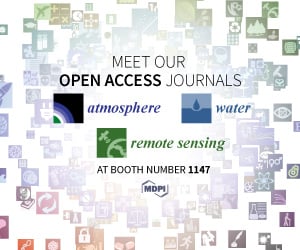 MDPI is currently attending the 2016 AGU Fall Meeting (12–16 December, 2016)
MDPI is currently attending the 2016 AGU Fall Meeting (12–16 December, 2016)
If you are also attending the conference, please feel free to stop by our booth (Booth #1147) and meet the representative editors.
Conference details:
2016 AGU Fall Meeting
12–16 December 2016
Moscone Center
747 Howard St
San Francisco, CA 94103, USA
8 December 2016
Three New Institutional Memberships Established
We are pleased to announce that Purdue University, USA, the Universitat Politécnica de Valencia, Spain and the Queensland University of Technology, Australia, have joined MDPI's institutional membership program: Primary authors from these instititions will benefit from a 10% discount on the article processing charges.
Additional details can be found on our institutional membership page.
16 November 2016
World Sustainability Award - Final Extension
The deadline for the World Sustainability Award has been extended for one last time! You now have one more month to nominate an individual researcher, group or project! The final deadline for nominations will be December 15, 2016.
For full details, please visit here.
11 November 2016
Three New Institutional Memberships Established
We are pleased to announce that the University of Minnesota, USA, the Universidad Politécnica de Madrid, Spain and Shanghai Jiao Tong University, China, have joined MDPI's institutional membership program: Primary authors from these instititions will benefit from a 10% discount on the article processing charges.
Additional details can be found on our institutional membership page.
4 November 2016
MDPI Joins the United Nations Global Compact
MDPI has become a member of the United Nations Global Compact to support corporate sustainability and have committed ourselves to the ten principles associated with the Compact.
Sustainability has always been at the core of MDPI’s values, starting with the collection and preservation of rare chemical samples that started in 1996 and led to the first journal, Molecules. Sustainability has become one of our flagship journals and we have supported and organized several conferences and events based on Sustainability, including the upcoming 6th World Sustainability Forum. As a global enterprise, we see it as our duty to promote responsible practices that will ensure a bright future for our planet. Given this, the choice to join the Global Compact was an easy one and we will do our utmost to fully implement it.
3 November 2016
MDPI Now a Member of SPARC Europe
We are delighted to announce that MDPI has become a member of SPARC Europe, an organization that works for open scholarship in Europe, including support of open access publication.
As one of the few publishers to join SPARC Europe to date, MDPI looks forward to making a contribution that puts open scholarship on a positive and sustainable path. We fully support the goals of open scholarship that allow the largest number of people possible to benefit from work of researchers in all disciplines. We hope that our membership will enable us to work with other stakeholders to find the best possible solution.
2 November 2016
World Sustainability Award Deadline Extension
The deadline for the World Sustainability Award has been extended! You now have until November 15, 2016 to nominate an individual researcher, group or project!
For full details, please visit here.
26 October 2016
Four New Institutional Memberships Established
We are pleased to announce that the Wuppertal Institut, Germany, the University of Girona, Spain and Central South University and Huazhong University of Science and Technology, China, have joined MDPI's institutional membership program: Primary authors from these instititions will benefit from a 10% discount on the article processing charges.
Additional details can be found on our institutional membership page.
24 October 2016
International Open Access Week 2016
Meet us during International Open Access Week 2016! We will be presenting at various locations in Europe and China.
To get involved and for full details see the complete list of events organised by MDPI here.
18 October 2016
Institutional Membership established with Universitat Pompeu Fabra, Spain and Aalto University, Finland
We are pleased to announce that the Universitat Pompeu Fabra, Spain and Aalto University, Finland, have joined MDPI's institutional membership program: Primary authors from these universities will benefit from a 10% discount on the article processing charges.
Additional details can be found on our institutional membership page.
12 October 2016
Institutional Membership Established with Iowa State University and the University of North Texas, USA
We are pleased to announce that the Iowa State University and the University of North Texas, USA, have joined MDPI's institutional membership program: Primary authors from these universities will benefit from a 10% discount on the article processing charges.
Additional details can be found on our institutional membership page.
7 October 2016
MDPI at Open Access Days in Munich, 10-11 October 2016
Meet MDPI during the Open Access Days held from 10-11 October 2016 at Ludwig Maximilian University of Munich, Germany.
The two-day event will feature experts from the open access sector, scientists from all disciplines, publishing representatives and supporters of scientific research and communication from libraries as well as research institutes and funding institutions. Join us!
For more information about the event and to see the program, visit the event webpage.
7 October 2016
Institutional Membership Established with the University of Sevilla and the University of Alicante, Spain
We are pleased to announce that the University of Sevilla and the University of Alicante, Spain have joined MDPI's institutional membership program: Primary authors from these universities will benefit from a 10% discount on the article processing charges.
Additional details can be found on our institutional membership page.
29 September 2016
Institutional Membership Established with the University of Delaware
We are pleased to announce that the University of Delaware, USA, has joined MDPI's institutional membership program: Primary authors from this university will benefit from a 10% discount on the article processing charges.
Additional details can be found on our institutional membership page.
19 September 2016
Peer Review Week 2016
As an open access publisher indebted to the work of our peer reviewers, we are proud to support Peer Review Week 2016. As part of the week's activities and to celebrate this year's theme "Recognition for Review", MDPI will host two webinars that anyone can join.
These webinars will explore the role and value of reviewers and the recognition they receive from a publishers perspective, with examples from MDPI's experience in publishing nearly 80,000 peer reviewed papers, along with evidence from reviewer surveys. It will also touch upon potential changes in how review is carried out and tips for early career researchers who want to be involved in the review process.
Details and links to join can be found below:
Wednesday September 21, 08:00 (CEST)
Friday September 23, 16:00 (CEST)
For more information about all the activites taking place, please visit the Peer Review Week website.
6 September 2016
Institutional Membership established with Kansas State University and Northwestern University, USA
We are pleased to announce that Kansas State University and Northwestern Universty, USE, have joined MDPI's institutional membership program: Primary authors from these universities will benefit from a 10% discount on the article processing charges.
Additional details can be found on our institutional membership page.
5 September 2016
Institutional Membership Established with University College Cork
We are pleased to announce that University College Cork, Ireland, has joined MDPI's institutional membership program: Primary authors from this university will benefit from a 10% discount on the article processing charges.
Additional details can be found on our institutional membership page.
22 August 2016
MDPI New Office Location
We are pleased to announce that MDPI has now moved to a new permanent address:
MDPI AG
St. Alban Anlage 66
CH-4052 Basel
Postfach, CH-4020 Basel
Switzerland
Telephone and fax numbers remain unchanged.
10 August 2016
Institutional Membership established with the University of Texas at Austin, USA, the Wroclaw University of Science and Technology, Poland and the University of Granada and the Compultense University of Madrid, Spain
We are pleased to announce that the following institutions have joined MDPI's institutional membership program in August 2016:
- University of Texas at Austin, USA
- Wroclaw University of Science and Technology, Poland
- University of Granada, Spain
- Compultense University of Madrid, Spain
Authors affiliated with these institutions will benefit from a 10% discount on the article processing charges.
Additional details can be found on our institutional membership page.
18 July 2016
Institutional Membership established with Louisiana State University and Florida State University, USA, Royal College of Surgeons, Ireland, University of Rostock, Germany, AGH University of Science and Technology, Poland and Southeast University, China
We are pleased to announce that the following institutions have joined MDPI's institutional membership program in July 2016:
- Louisiana State University, USA
- Florida State University, USA
- Royal College of Surgeons, Ireland
- University of Rostock, Germany
- AGH University of Science and Technology, Poland
- Southeast University, China
Authors affiliated with these institutions will benefit from a 10% discount on the article processing charges.
Additional details can be found on our institutional membership page.
12 July 2016
MDPI Moving to New Office Location in Basel (Switzerland) in August 2016
As of 20 August 2016, MDPI's new address in Basel will be:
MDPI AG
St. Alban-Anlage 66
CH-4052 Basel
Switzerland
Telephone and fax numbers remain unchanged.
St. Alban-Anlage 66 was built from 1947 to 1948 and initially the home of the "Bühler AG", a book printing business.
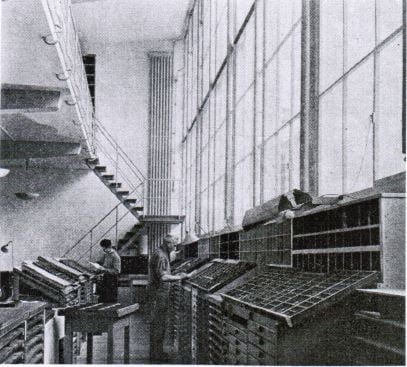
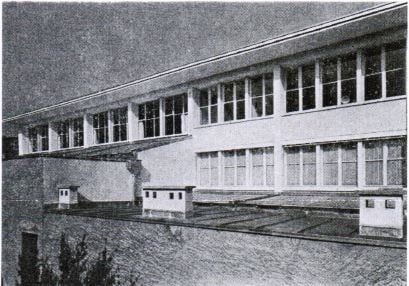
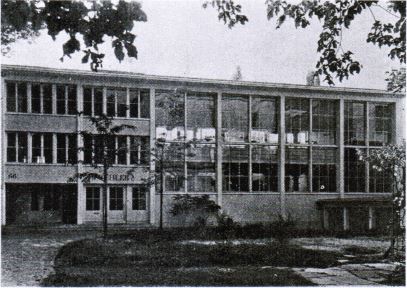
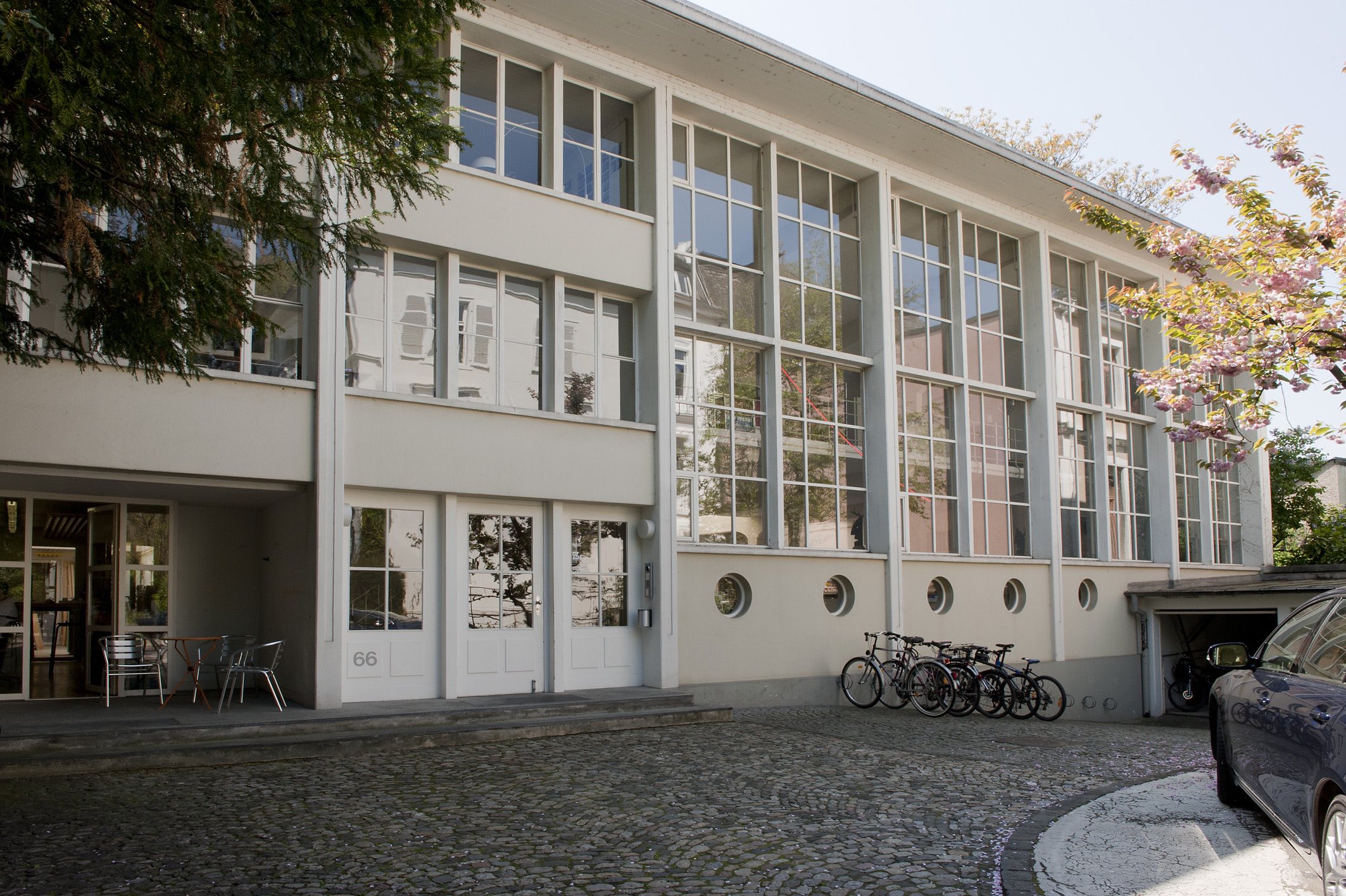
For more information about this building, see: https://www.mdpi.com/about/headquarters
21 June 2016
"Behind the Scenes of Academic Publishing—A Publisher's Perspective" - MDPI's Lecture at the University of Basel
From the 15-16 September, 2016, MDPI will run a course on Academic Publishing at the University of Basel.
In this two day workshop, MDPI will look in detail at the role performed by academic journal publishers and how they interact with academics. Ethical dimensions, what happens when problems occur and how the publisher coordinates all aspects of the submission process will also be covered.
For more detailed information about the program, trainers and registration please visit the course webpage.
14 June 2016
2015 Impact Factors Released
We are pleased to report the 2015 Journal Impact Factors in the latest Journal Citation Reports® Science Edition, published by Thomson Reuters in June 2016. Twenty out of 25 journals have seen an increase in their Impact Factor and two journals (Crystals and IJGI) received a first Impact Factor. Coatings was recently added to SCIE and will receive its first Impact Factor in next year’s JCR.
Updated Impact Factors for Journals in the Science Citation Index Expanded (SCIE)
| Journal | 2015 Impact Factor | Details | Category Rank |
| Applied Sciences | 1.726 | Link | 83/163 (Q3) in ‘Chemistry, Multidisciplinary’; 129/271 (Q2) in ‘Materials Science, Multidisciplinary’; 64/145 (Q2) in ‘Physics, Applied’ |
| Atmosphere | 1.221 | Link | 66/84 (Q4) in ‘Meteorology & Atmospheric Sciences’ |
| Catalysts | 2.964 | Link | 53/144 (Q2) in ‘Chemistry, Physical’ |
| Energies | 2.077 | Link | 43/88 (Q2) in ‘Energy & Fuels’ |
| Entropy | 1.743 | Link | 25/79 (Q2) in ‘Physics, Multidisciplinary’ |
| Forests | 1.583 | Link | 19/66 (Q2) in ‘Forestry’ |
| Genes | 3.242 | Link | 60/165 (Q2) in ‘Genetics & Heredity’ |
| International Journal of Environmental Research and Public Health (IJERPH) | 2.035 | Link | 101/225 (Q2) in ‘Environmental Sciences’ |
| International Journal of Molecular Sciences (IJMS) | 3.257 | Link | 110/289 (Q2) in ‘Biochemistry & Molecular Biology’; 51/163 (Q2) in ‘Chemistry, Multidisciplinary’ |
| Marine Drugs | 3.345 | Link | 13/59 (Q1) in ‘Chemistry, Medicinal’ |
| Materials | 2.728 | Link | 63/271 (Q1) in ‘Materials Science, Multidisciplinary’ |
| Metals | 1.574 | Link | 18/73 (Q1) in ‘Metallurgy & Metallurgical Engineering’; 145/271 (Q3) in ‘Materials Science, Multidisciplinary’ |
| Micromachines | 1.295 | Link | 30/56 (Q3) in ‘Instruments & Instrumentation’ 63/83 (Q4) in ‘Nanoscience & Nanotechnology’ |
| Minerals | 1.468 | Link | 9/21 (Q2) in ‘Mining & Mineral Processing; 14/29 (Q2) in ‘Mineralogy’ |
| Molecules | 2.465 | Link | 24/59 (Q2) in ‘Chemistry, Organic’ |
| Nanomaterials | 2.690 | Link | 64/271 (Q1) in ‘Materials Science, Multidisciplinary’; 36/83 (Q2) in ‘Nanoscience & Nanotechnology’ |
| Nutrients | 3.759 | Link | 16/78 (Q1) in ‘Nutrition & Dietetics’ |
| Polymers | 2.944 | Link | 20/85 (Q1) in ‘Polymer Science’ |
| Remote Sensing | 3.036 | Link | 5/28 (Q1) in ‘Remote Sensing’ |
| Sensors | 2.033 | Link | 36/75 (Q2) in ‘Chemistry, Analytical’; 16/27 (Q3) in ‘Electrochemistry’; 12/56 (Q1) in ‘Instruments & Instrumentation’ |
| Sustainability | 1.343 | Link | 146/225 (Q3) in ‘Environmental Sciences’; 22/29 (Q4) in ‘Green & Sustainable Science & Technology’ |
| Symmetry | 0.841 | Link | 31/63 (Q2) in ‘Multidisciplinary Sciences’ |
| Toxins | 3.571 | Link | 16/89 (Q1) in ‘Toxicology’ |
| Viruses | 3.042 | Link | 14/33 (Q2) in ‘Virology’ |
| Water | 1.687 | Link | 33/85 (Q2) in ‘Water Resources’ |
Journals with First Impact Factors
| Journal | 2015 Impact Factor | Details | Category Rank |
| Crystals | 2.075 | Link | 13/26 (Q2) in ‘Crystallography’ |
| ISPRS International Journal of Geo-Information | 0.651 | Link | 45/49 (Q4) in ‘Geography, Physical’; 26/28 (Q4) in ‘Remote Sensing’. |
8 June 2016
Bioengineering, Biomedicines, Children, Magnetochemistry and Resources added to the Emerging Sources Citation Index in Web of Science
We are pleased to announce that the journals Bioengineering, Biomedicines, Children, Magnetochemistry and Resources have been accepted for inclusion in the Emerging Sources Citation Index (ESCI) in Web of Science.
The ESCI serves to highlight promising journals which are still under consideration for the Science Citation Index Expanded (SCIE) or the Social Sciences Citation Index (SSCI).
The Emerging Sources Citation Index (ESCI), Science Citation Index Expanded (SCIE), Social Sciences Citation Index (SSCI), and Web of Science™ (WoS) are Thomson Reuters products.





26 May 2016
Institutional Membership established with University of Bremen, Germany, Koç University, Turkey, IIASA, Austria and Jilin University and Kunming Institute of Botany, CAS, China
We are pleased to announce that the following institutions have joined MDPI's institutional membership program in May 2016:
- Unversity of Bremen, Germany
- Koç University, Turkey
- International Institute for Applied Systems Analysis (IIASA), Austria
- Jilin University, China
- Kunming Institute of Botany, Chinese Academy of Sciences, China
Authors affiliated with these institutions will benefit from a 10% discount on the article processing charges.
Additional details can be found on our institutional membership page.
23 May 2016
Institutional Membership Established with the KTH Royal Institute of Technology, Sweden and the South China University of Technology, Beijing University of Technology and Southern Medical University, China
We are pleased to announce that the following institutions have joined MDPI's institutional membership program in April and May 2016:
- KTH Royal Institute of Technology, Sweden
- South China University of Technology, China
- Beijing University of Technology, China
- Southern Medical University, China
Authors affiliated with these institutions will benefit from a 10% discount on the article processing charges.
Additional details can be found on our institutional membership page.
26 April 2016
New Section on www.mdpi.com - Latest Books
You may have noticed a new section that is now visible on our home page. This section is called "Latest Books" and showcases recent publications from MDPI Books, our book publishing service.
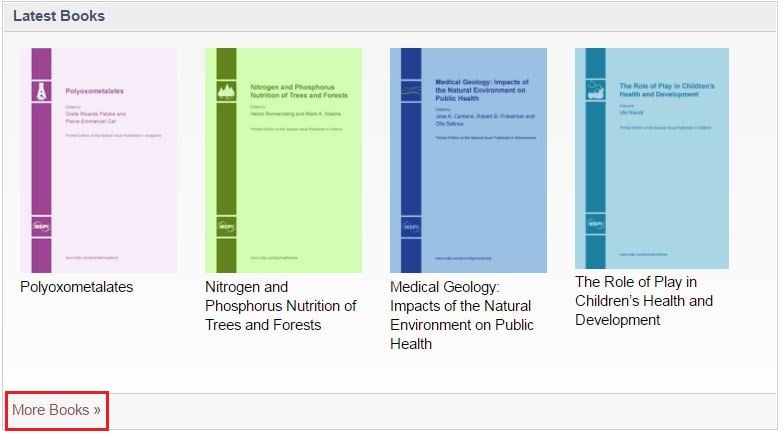
By clicking on the hyperlink "More Books" you will be taken to the MDPI Books Home Page. There you will find more information about the service, as well as the "Recent Publications" list.
Clicking on any of the book images in this list will take you to detailed information about that book (shown below). Here you can also download a PDF version of the book, or order a hardcover printed copy.
For further information about the MDPI Books service, please visit the webpage or contact books@mdpi.com.
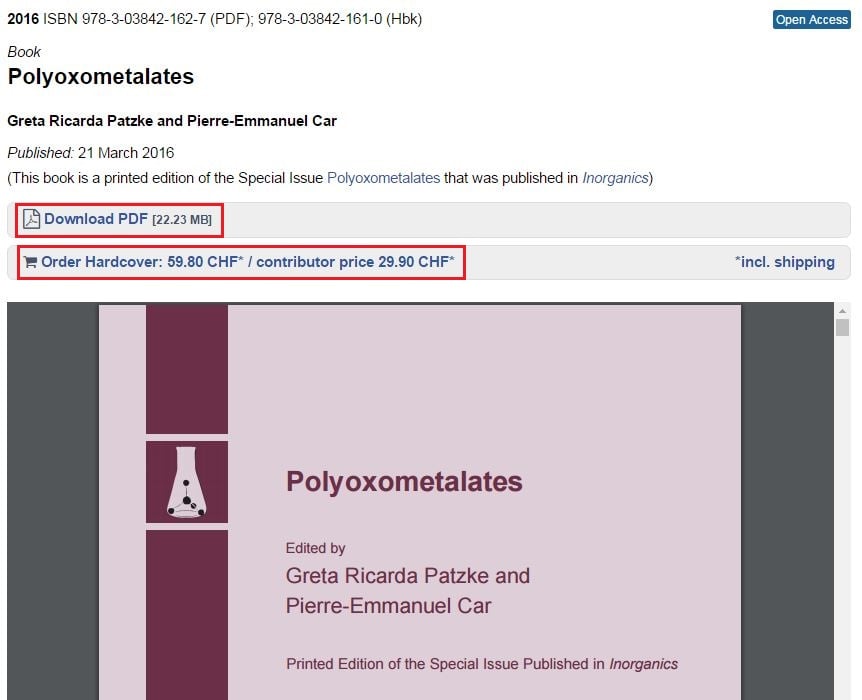
31 March 2016
Axioms, Behavioral Sciences, Photonics, Separations and Toxics added to the Emerging Sources Citation Index in Web of Science
We are pleased to announce that the journals Axioms, Behavioral Sciences, Photonics, Separations and Toxics were recently accepted for inclusion in the newly launched Emerging Sources Citation Index (ESCI) in Web of Science.
ESCI serves to highlight promising journals which are still under consideration for the Science Citation Index Expanded (SCIE) or the Social Sciences Citation Index (SSCI).
The Emerging Sources Citation Index (ESCI), Science Citation Index Expanded (SCIE), Social Sciences Citation Index
(SSCI), and Web of Science™ (WoS) are Thomson Reuters products.
30 March 2016
Institutional Membership established with the University of Winchester, UK, Silesian University of Technology, Poland and Beijing Jiaotong University and Zhejiang University, China
We are pleased to announce that the University of Winchester, UK, the Silesian University of Technology, Poland and Beijing Jiaotong University and Zhejiang University, China, have joined our Institutional Membership program. Primary authors from these universities will benefit from a 10% discount on article processing charges.
Additional details can be found on our institutional membership page.
24 March 2016
New Editorial Office in Barcelona, Spain
We are excited to announce the opening of our new editorial office in Barcelona, Spain. The launch team is led by a Senior Editor and comprises further staff holding doctoral degrees with several years of research experience. The new editorial team will help us to get closer to European research communities and progress Sciforum, the platform to support the scientific community via conference hosting and other functions. They will also help spread the word about Open Access and meet academics at scientific events.
We are in the process of hiring more doctoral and masters graduates to join the editorial team and welcome applications via jobs@mdpi.com. For contact details about the office, see our contact page.

22 February 2016
Membership Established with the Max Planck Society
We are pleased to announce that the Max Planck Digital Library (MPDL) has signed an agreement with MDPI to support authors associated with the Max Planck Society (Max-Planck-Gesellschaft). As of 22 February 2016, corresponding authors will receive full funding from the MPDL for articles published in MDPI journals, with a 10% discount applied to the Article Processing Charges. Additional details can be found at our institutional membership page.
Founded in 1948, The Max Planck Society is one of Germany’s leading research organizations, and is currently made up of 83 institutes conducting basic research in natural sciences, life sciences, social sciences and humanities. 18 Nobel laureates have emerged from its ranks of scientists and the society has more than 15,000 publications in scientific journals each year.
5 February 2016
Institutional Membership Extension: Wageningen University, CSIC, University of Zürich, ETH Zürich, University of Tübingen and Osnabrück University
We are pleased to announce that Wageningen University, the Netherlands, the Spanish National Research Council (CSIC), Spain, the University of Zürich and ETH Zürich, Switzerland, and the University of Tübingen and Osnabrück University, Germany, have not only renewed their institutional memberships with MDPI after two years of successful cooperation, but have also increased the reduction of the article processing charges (APCs) for affiliated authors to 25%.
Additional details can be found on our institutional membership page.
5 February 2016
Institutional Membership established with Brock University, Canada and the University of Pisa, Italy
We are pleased to announce that Brock University, Cananda, and the University of Pisa, Italy, have joined MDPI's institutional membership program: Primary authors from these universities will benefit from a 10% discount on the article processing charges as of 01 February 2016.
Additional details can be found on our institutional membership page.
25 January 2016
MDPI Sponsors diss:kurs with the University of Basel
MDPI is pleased to announce its newly established sponsorship of diss:kurs, an event coordinated by the University of Basel to support their doctorate program. For more information about the event and how to register, please visit the diss:kurs webpage.
7 January 2016
New Institutional Memberships Established with Tsinghua University, the Chinese Society of Micro-Nano Technology, Ruhr University Bochum and the University of Ulm
We are pleased to announce that the following institutions have joined MDPI's institutional membership program as of 1 January 2016:
- Tsinghua University, China
- Chinese Society of Micro-Nano Technology (CSMNT)
- Ruhr University Bochum, Germany
- University of Ulm, Germany
Authors affiliated with these institutions will benefit from a 10% discount on the article processing charges.
Additional details can be found on our institutional membership page.
5 January 2016
Safety, Fermentation, C-Journal of Carbon Research, Magnetochemistry, Batteries and Horticulturae Released Their First Issue in December 2015
We are pleased to announce that MDPI's open access journals Safety, Journal of Imaging, Fermentation, C-Journal of Carbon Research, Magnetochemistry, Batteries and Horticulturae released their first issue at the end of December 2015.
17 December 2015
Institutional Membership Extension: University of Bern, Switzerland
We are pleased to announce that the University of Bern, Switzerland has not only renewed their institutional membership with MDPI after two years of successful cooperation, but also increased the reduction of the article processing charges (APCs) for affiliated authors to 25%.
17 December 2015
Institutional Membership with the University of Ulm and Helmholtz Zentrum Munich
We are pleased to announce that University of Ulm, Germany and Helmholtz Zentrum Munich, Germany has joined MDPI's institutional membership program:
Primary authors from the University of Ulm and Helmholtz Zentrum Munich will benefit from a 10% discount on the article processing charges as of 1 January 2016. Additional details can be found on our institutional membership page.
9 December 2015
Membership Established with the Virginia Polytechnic Institute and State University (Virginia Tech)
We are pleased to announce that Virginia Tech has joined MDPI's institutional membership program. Authors from Virginia Tech will benefit from a 10% discount on the article processing charges as of 1 December 2015. Additional details can be found on our institutional membership page.
1 December 2015
Membership Established with the Technical University of Denmark and the University of North Florida
We are pleased to announce that the following universities have joined MDPI's institutional membership program:
- Technical University of Denmark (as of 1 November 2015)
- University of North Florida, USA (as of 15 November 2015)
Primary authors from the Technical University of Denmark and the University of North Florida will benefit from a 10% discount on the article processing charges.
Additional details can be found on our institutional membership page.
2 October 2015
Membership Established with the University of Freiburg and the University of Regensburg
We are pleased to announce that the following universities have joined MDPI's institutional membership program:
University of Freiburg, Germany
University of Regensburg, Germany
Primary authors from the University of Freiburg and the University of Regensburg will benefit from a 10% discount on the article processing charges as of 1 October 2015 and 1 November 2015.
Additional details can be found on our institutional membership page.
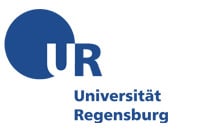








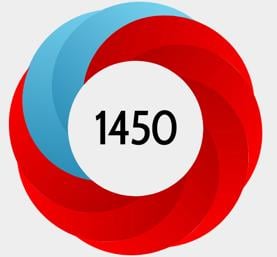



























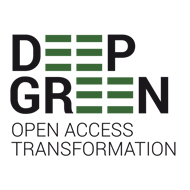




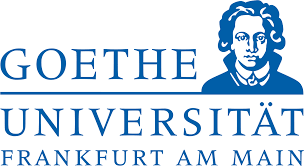
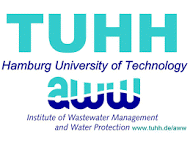




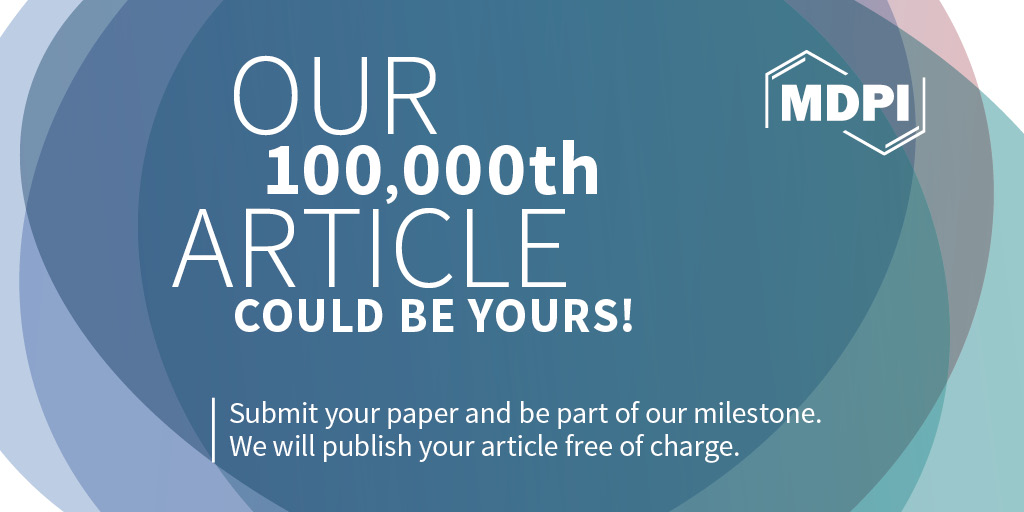

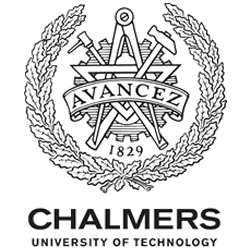

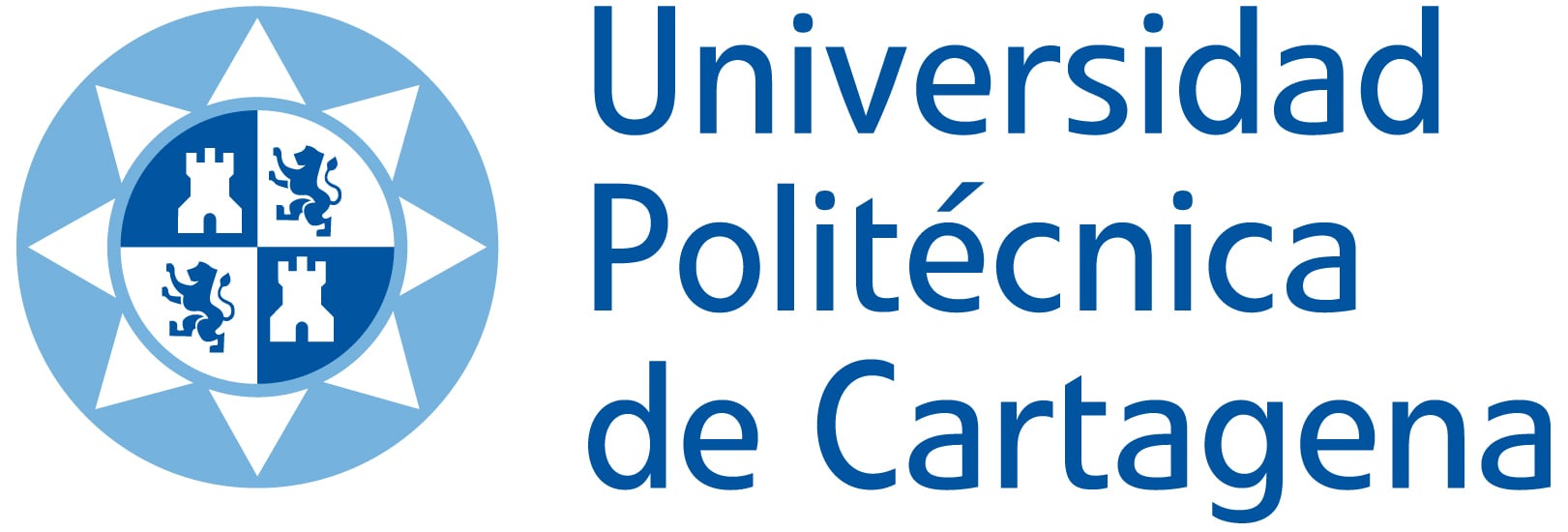
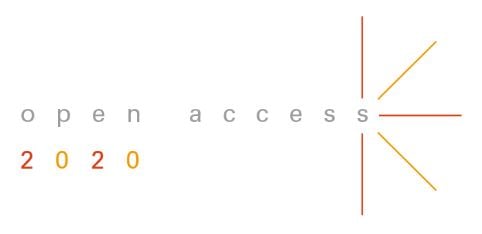



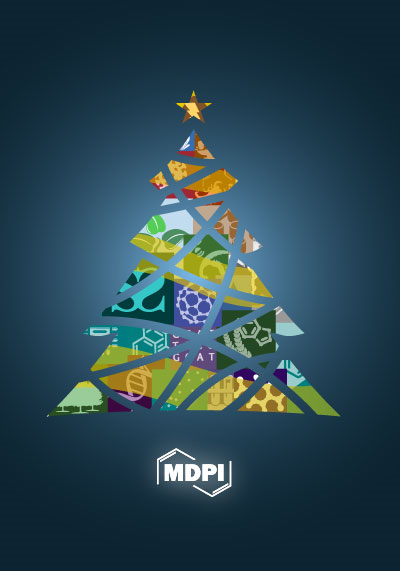


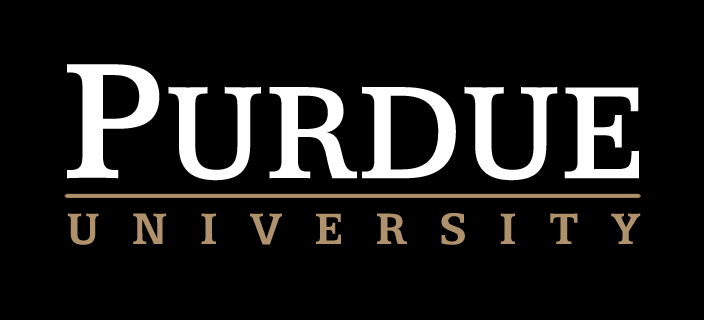


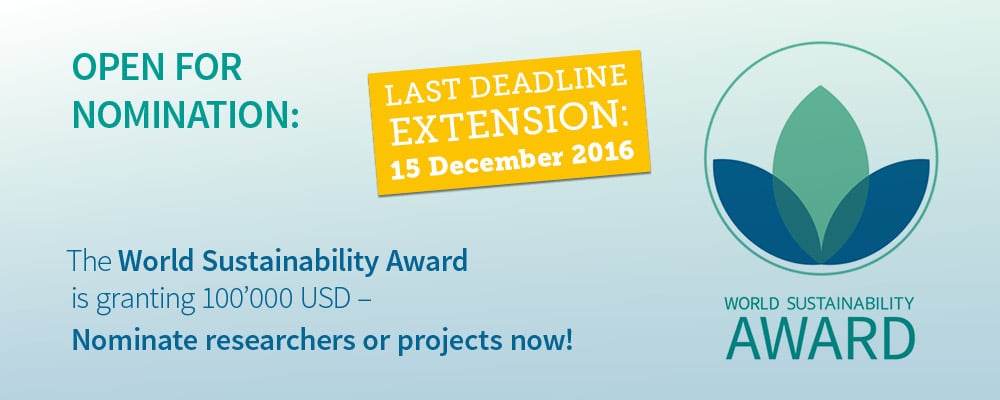



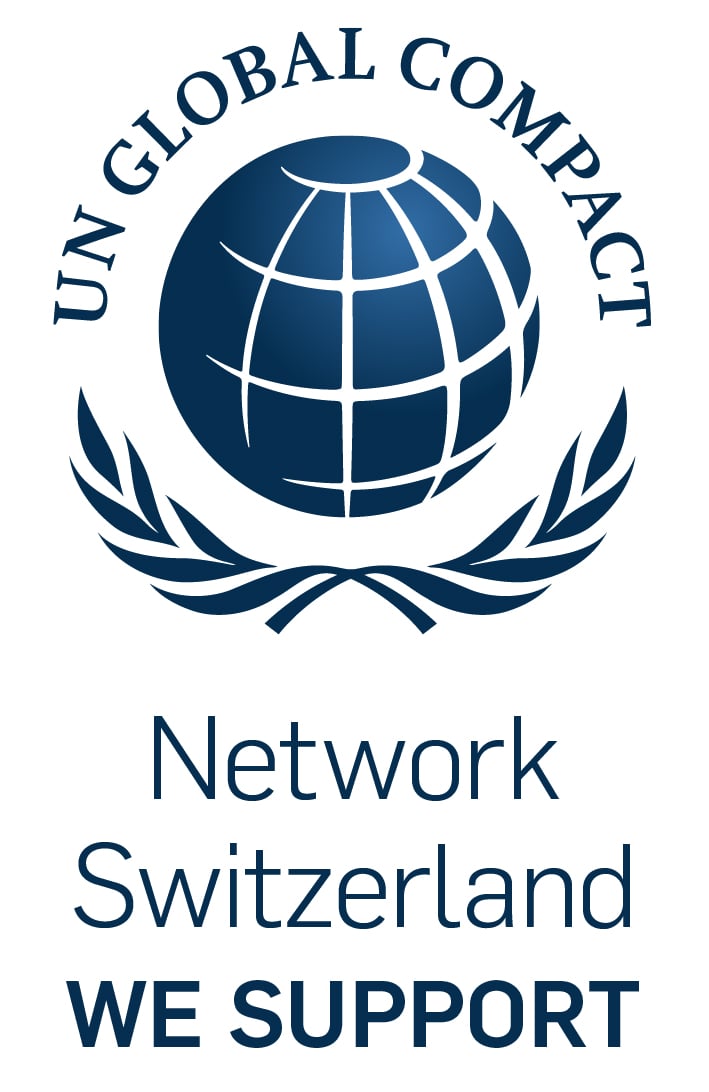
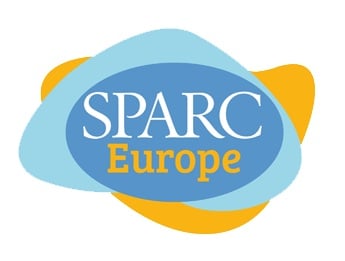
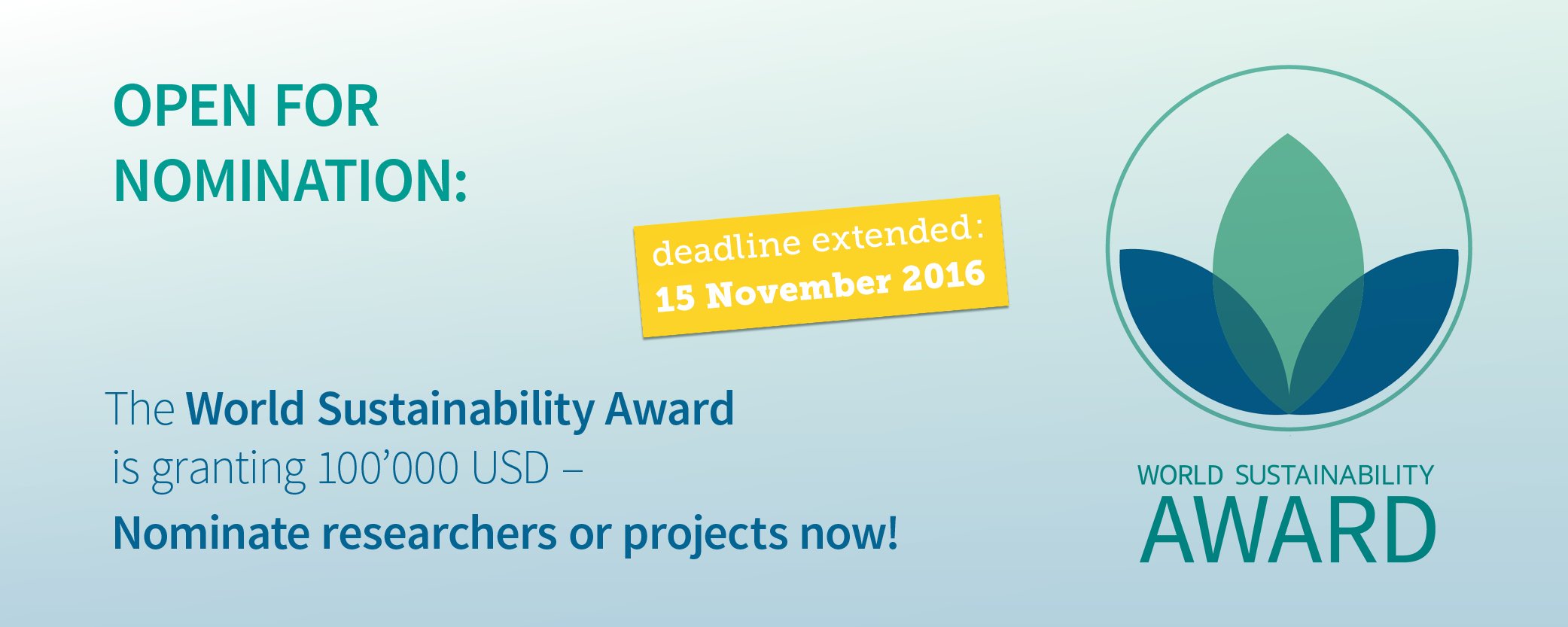 .
.